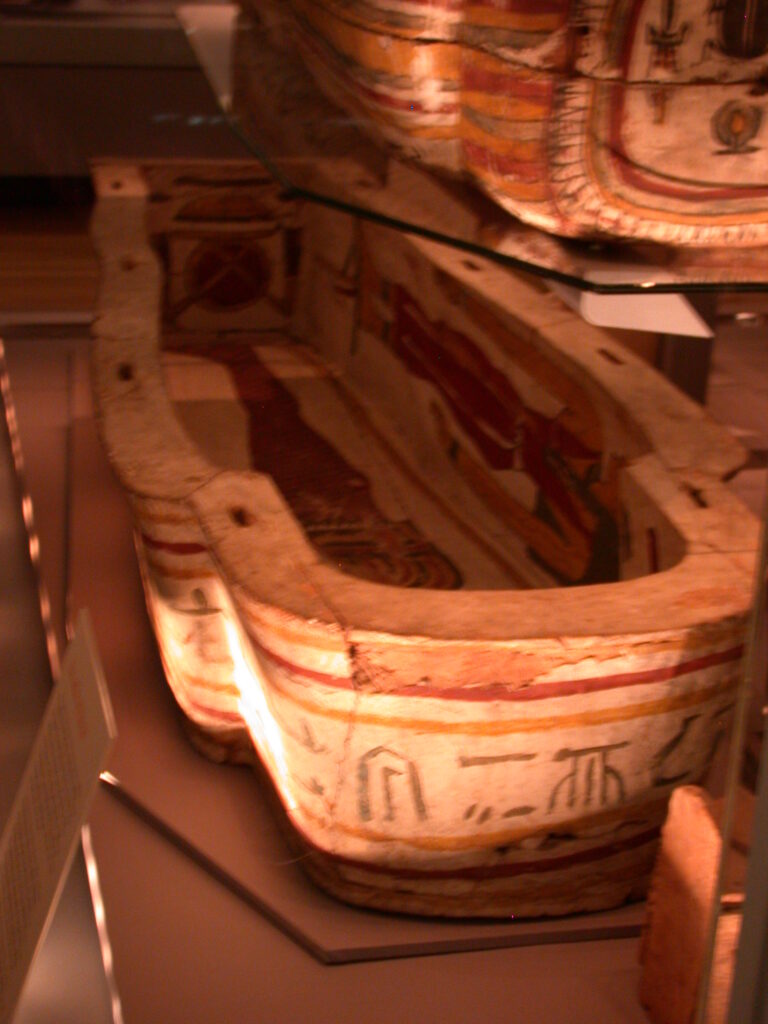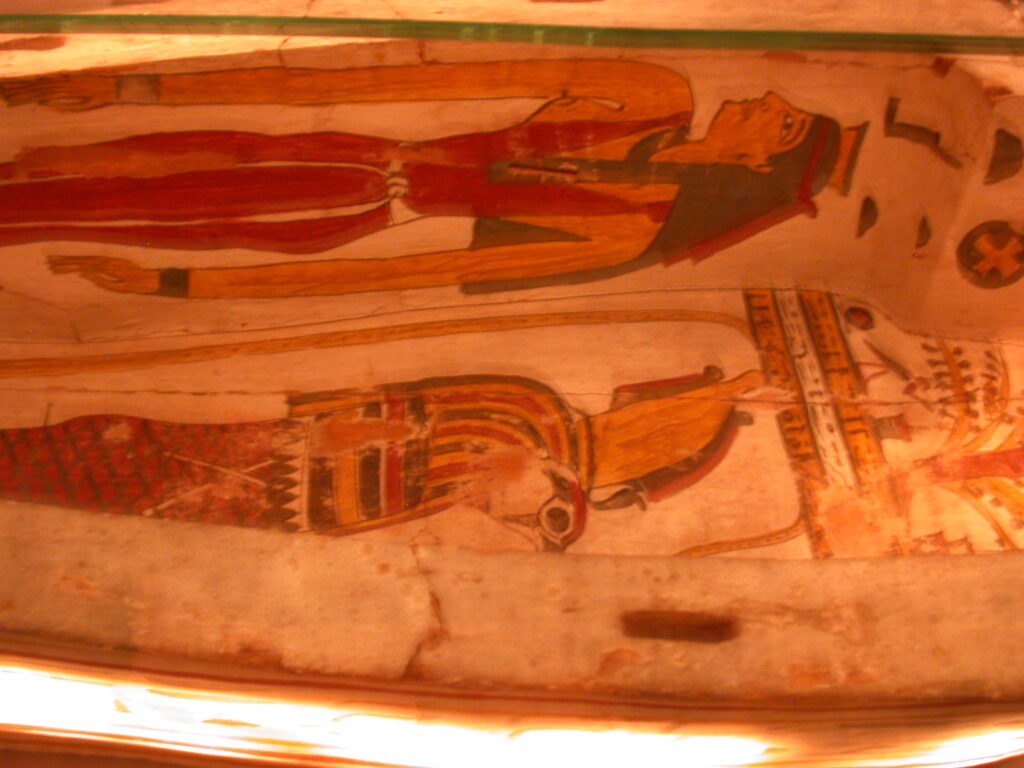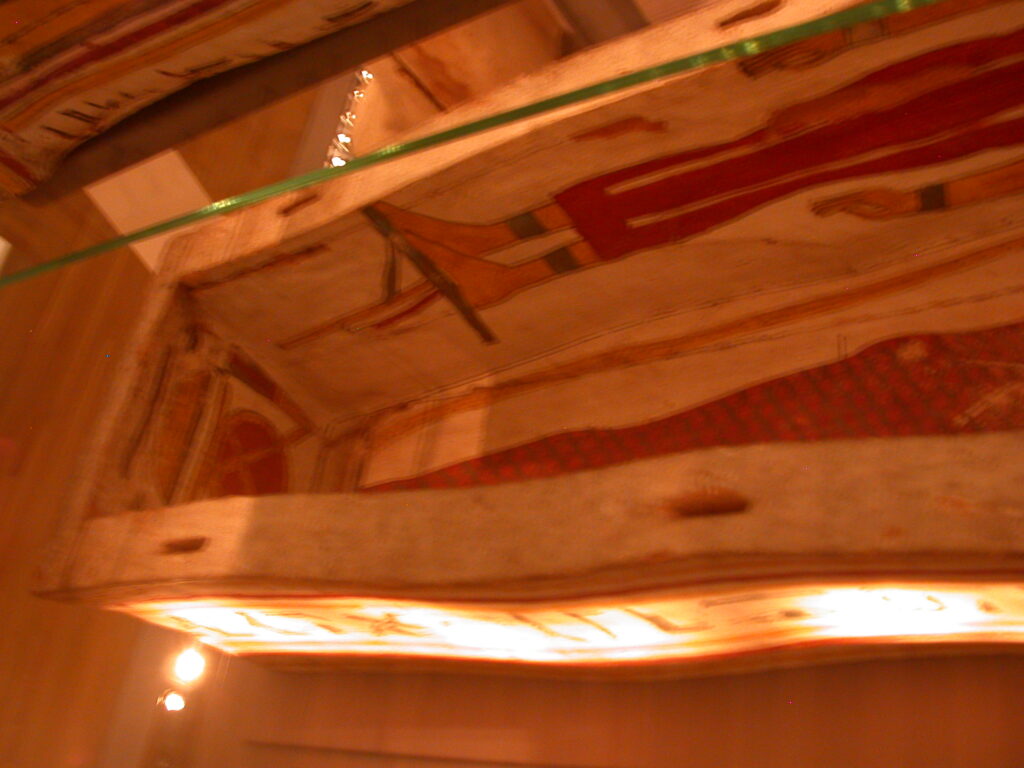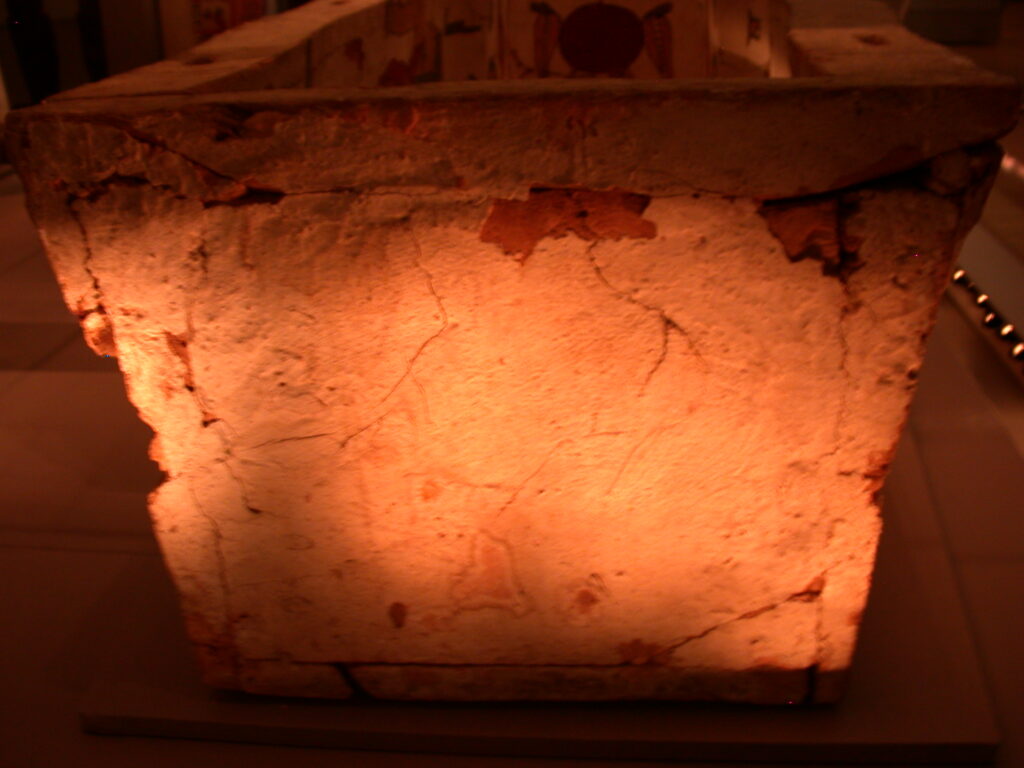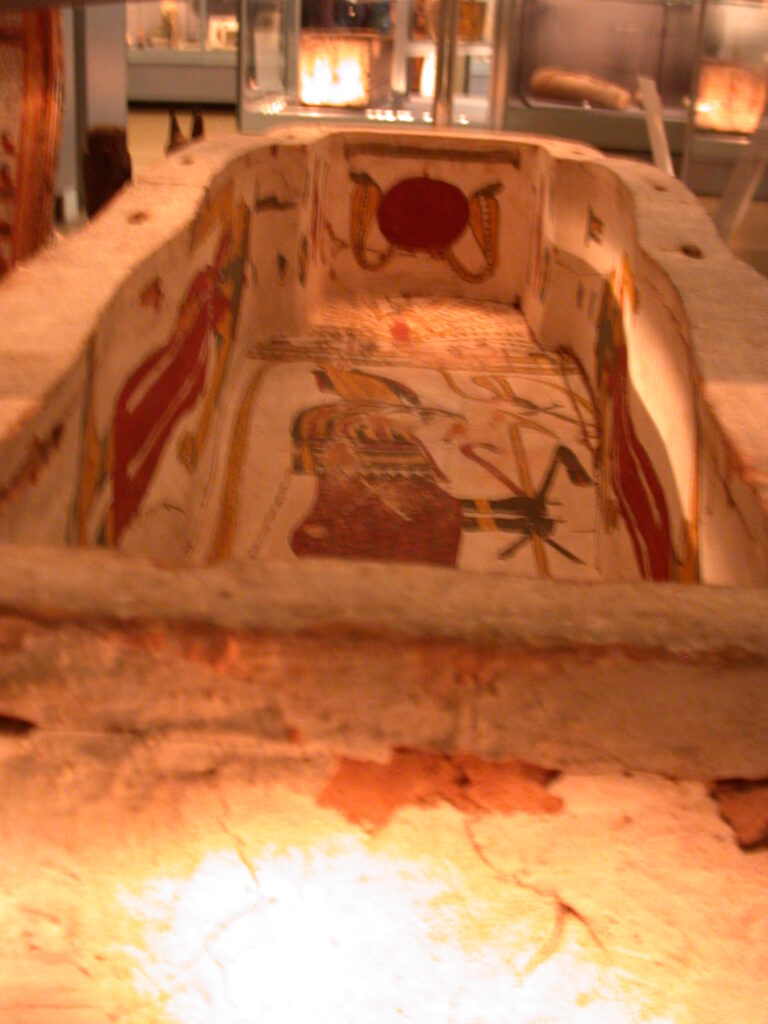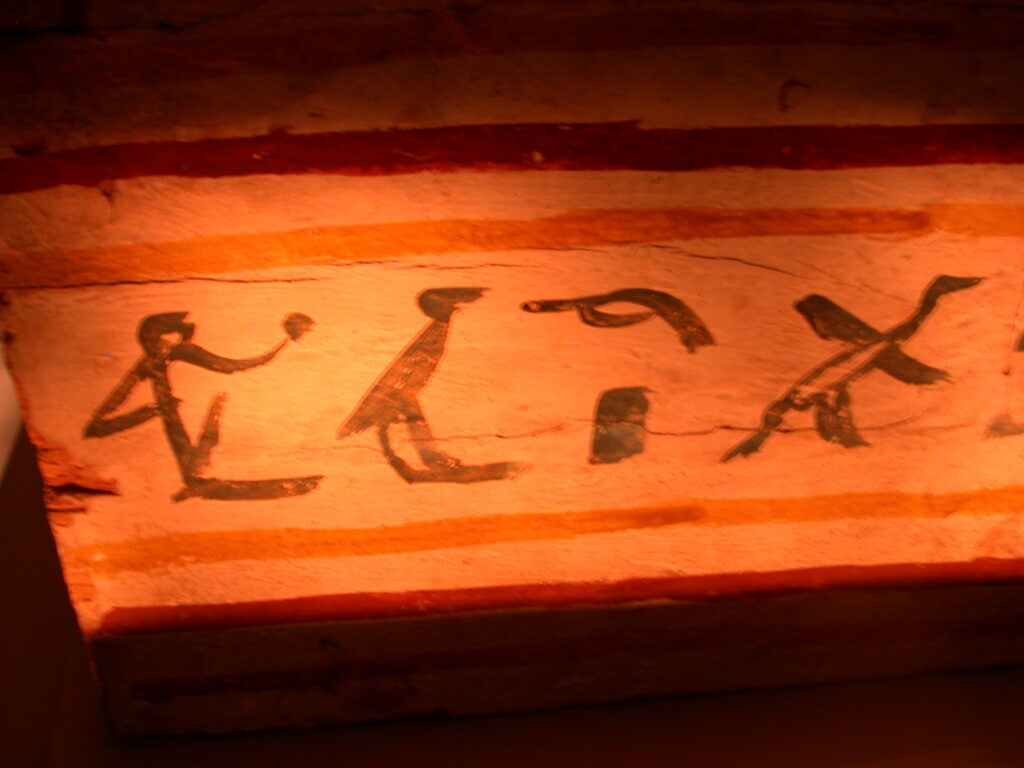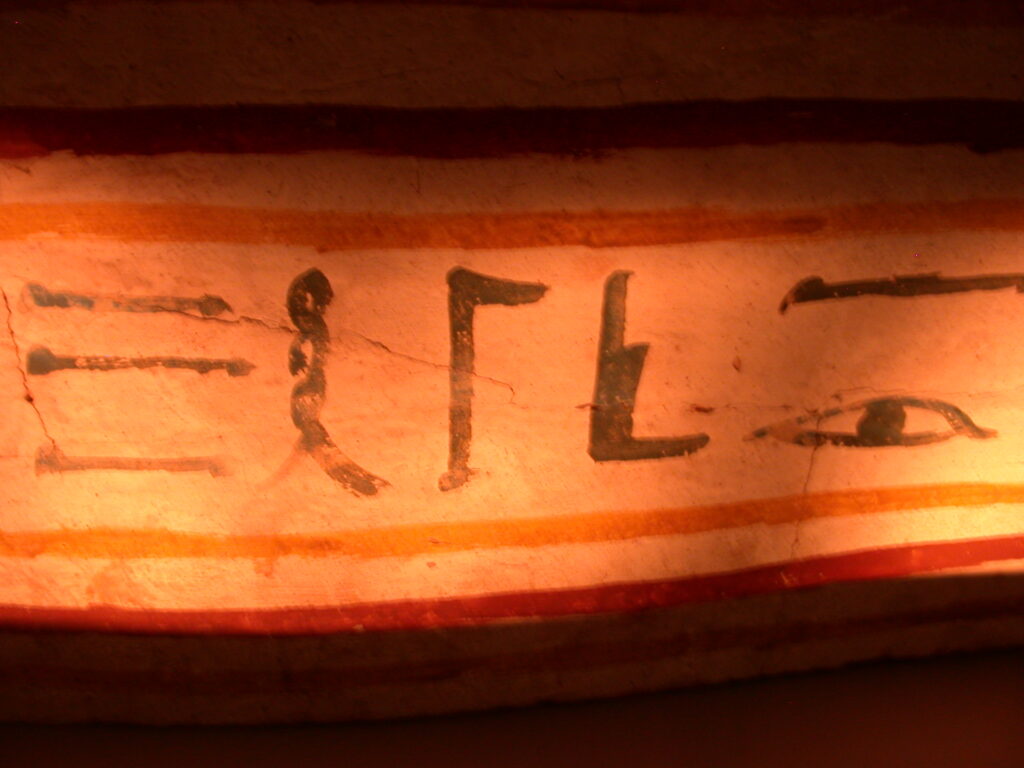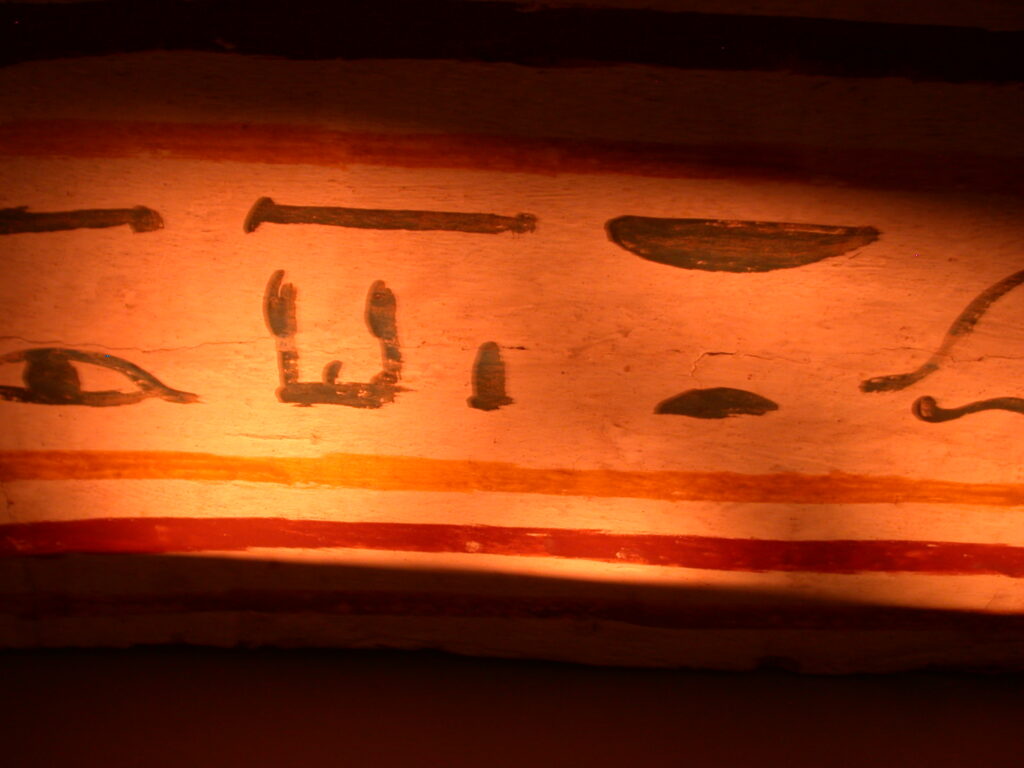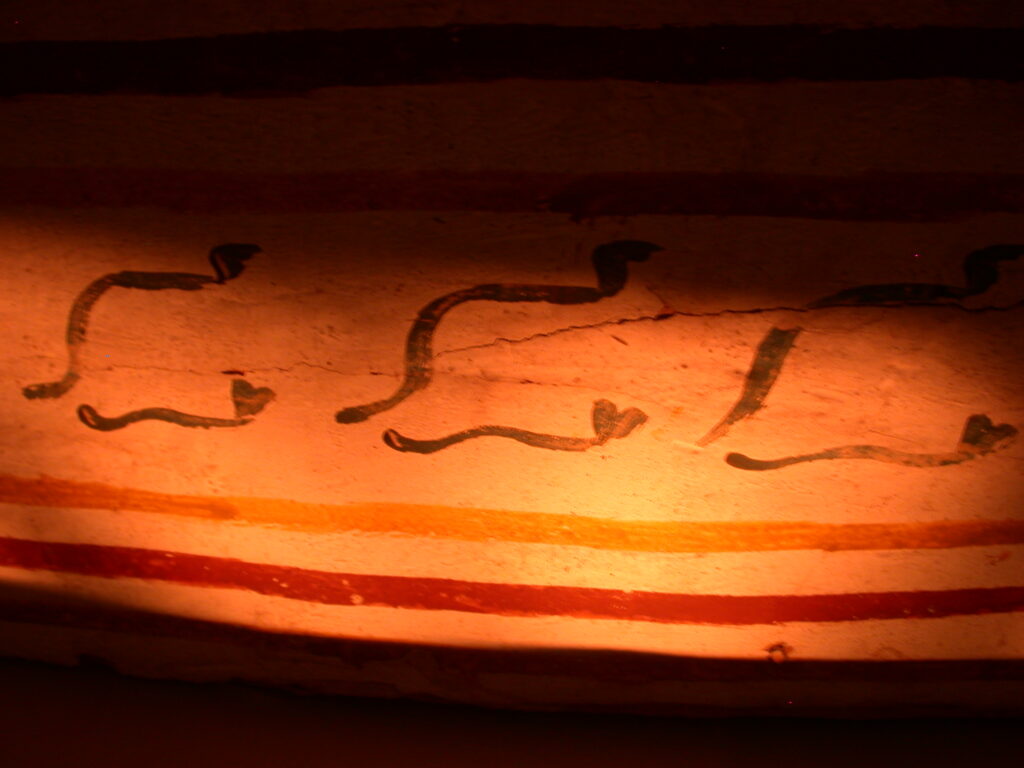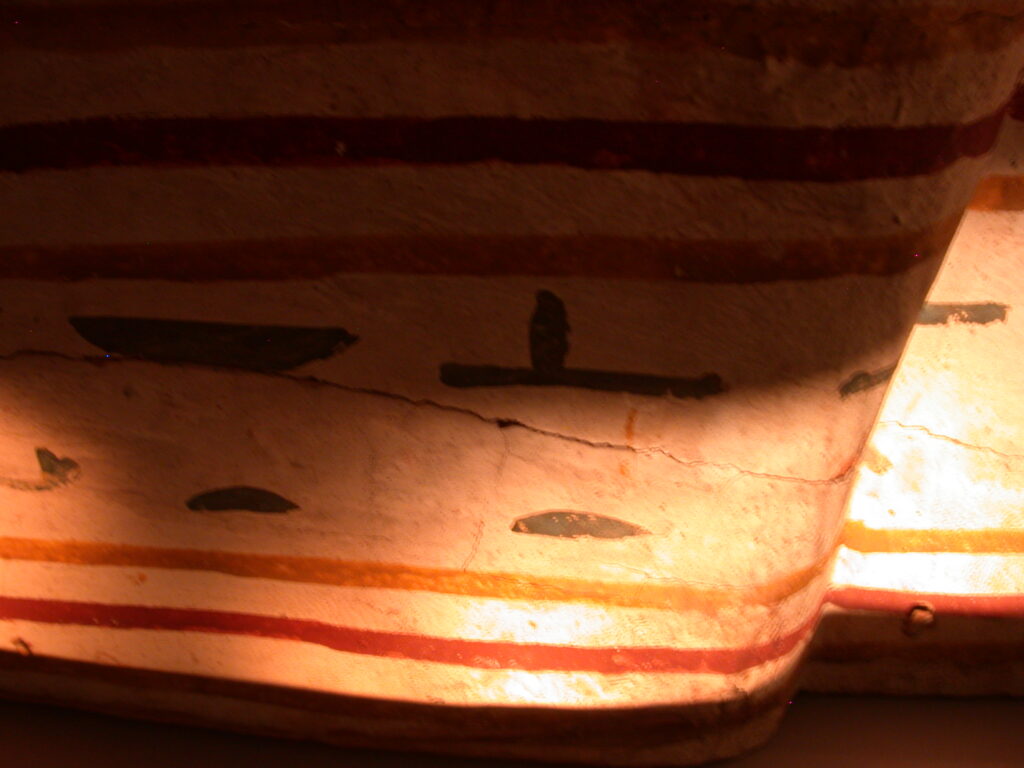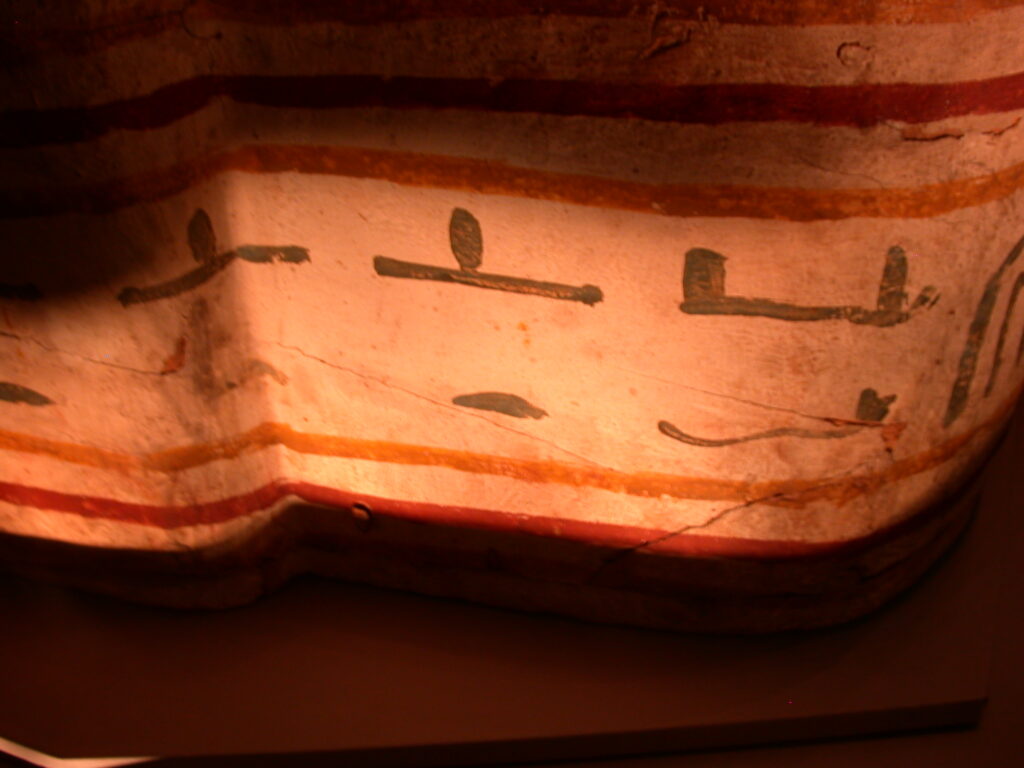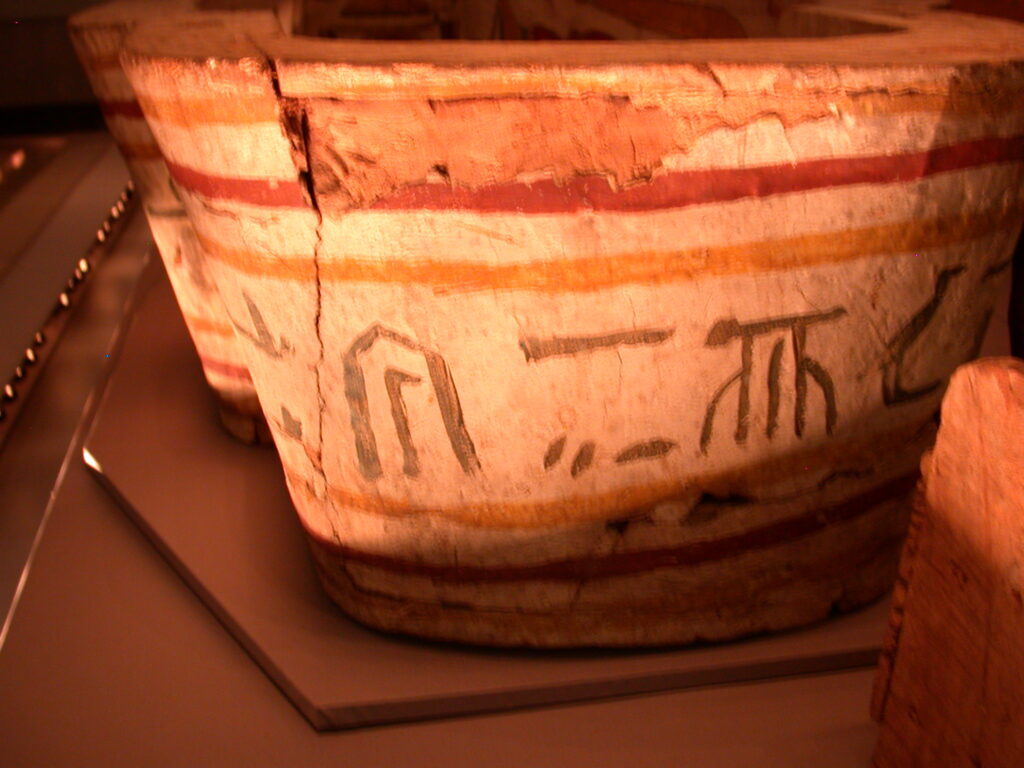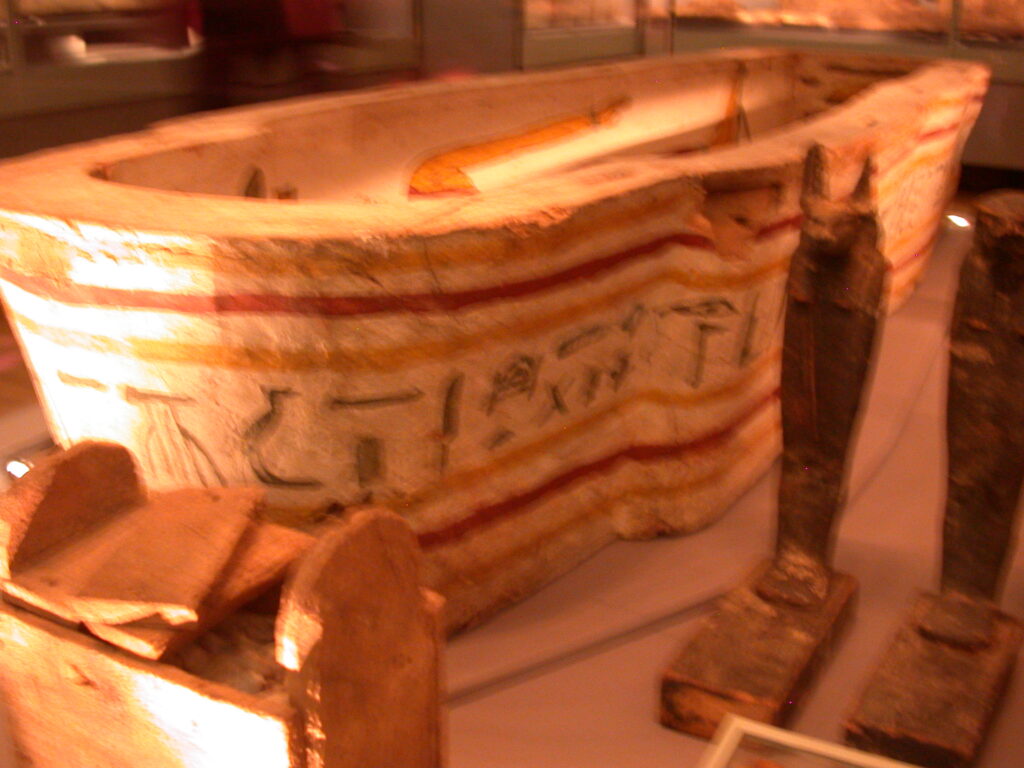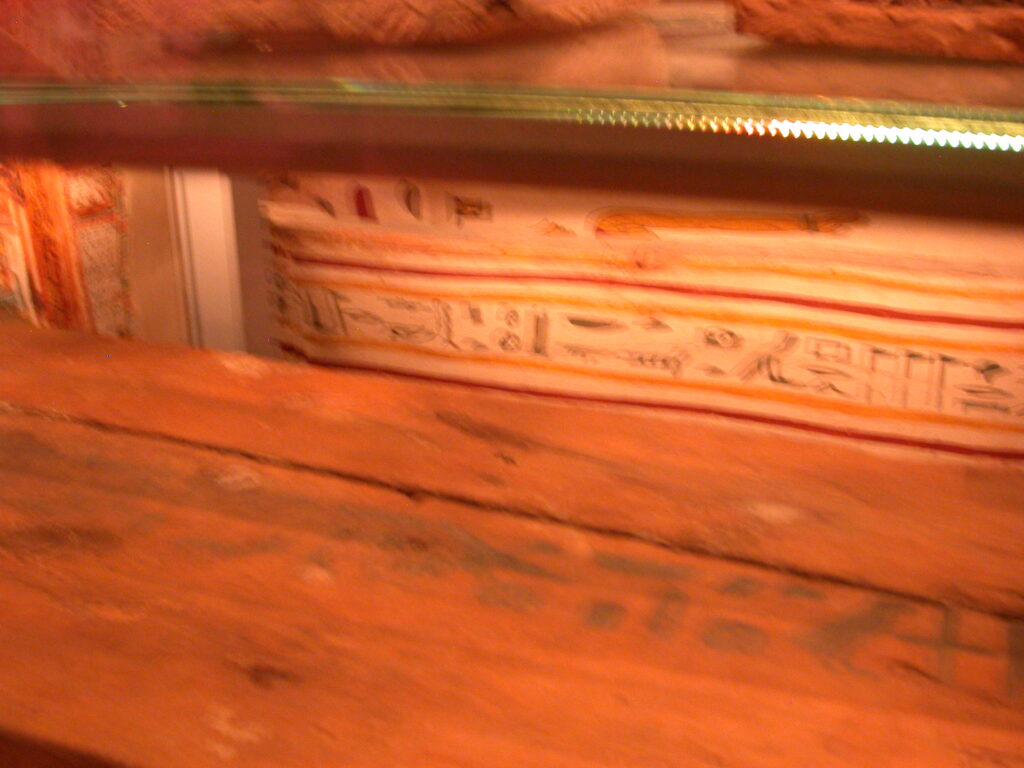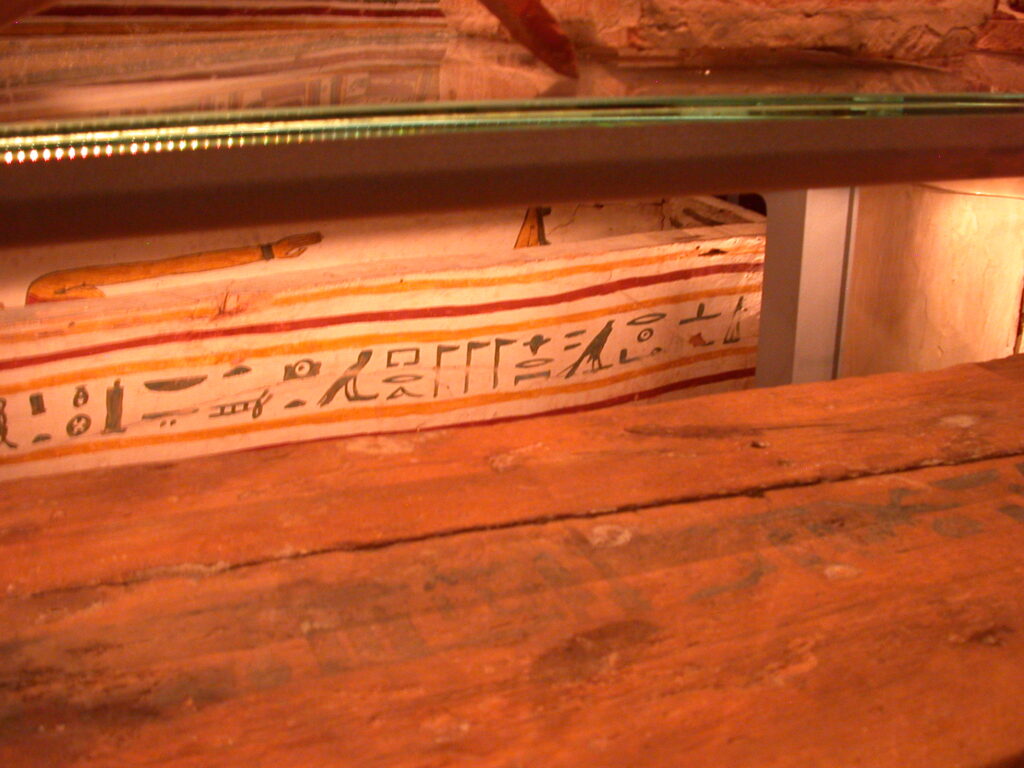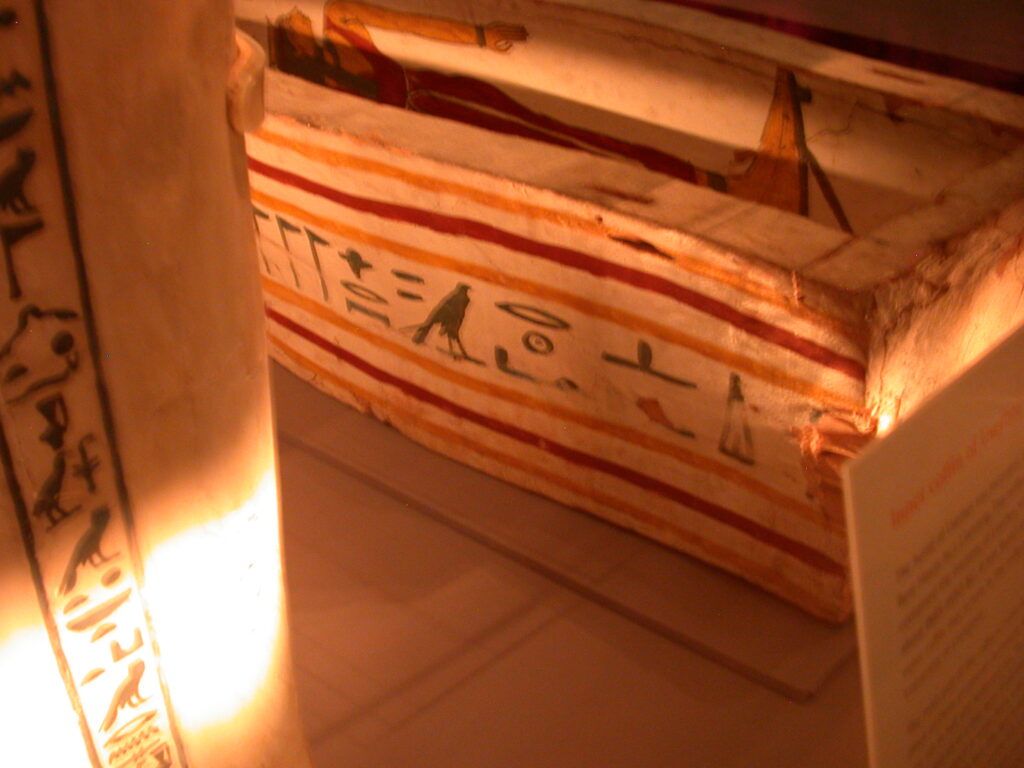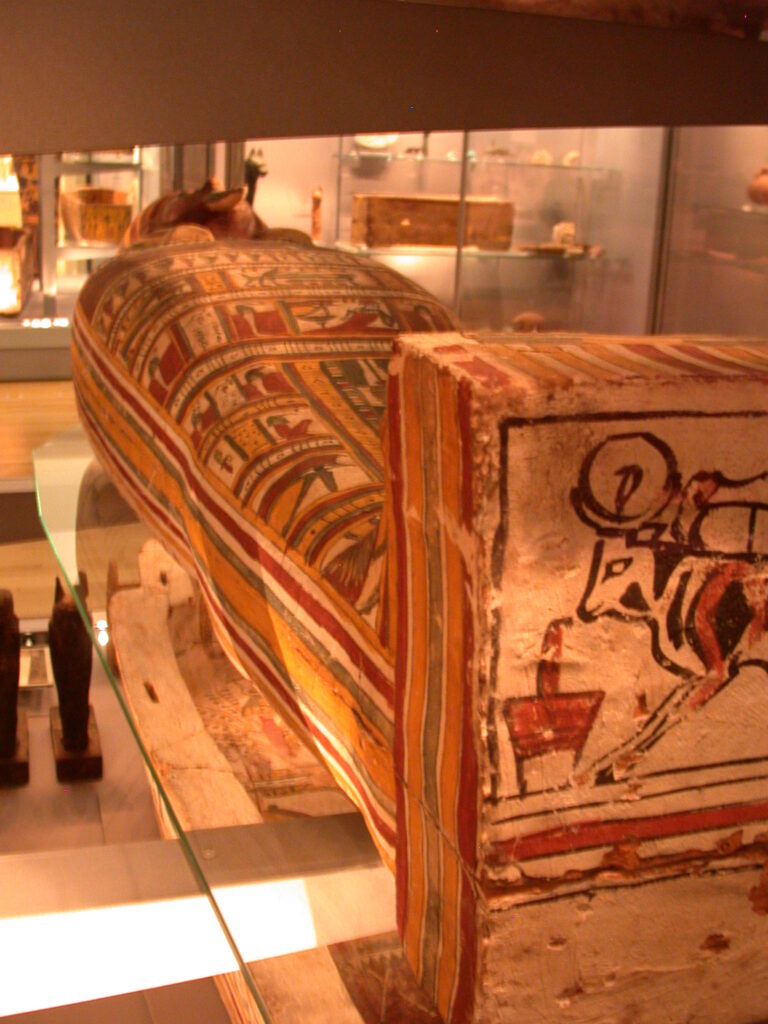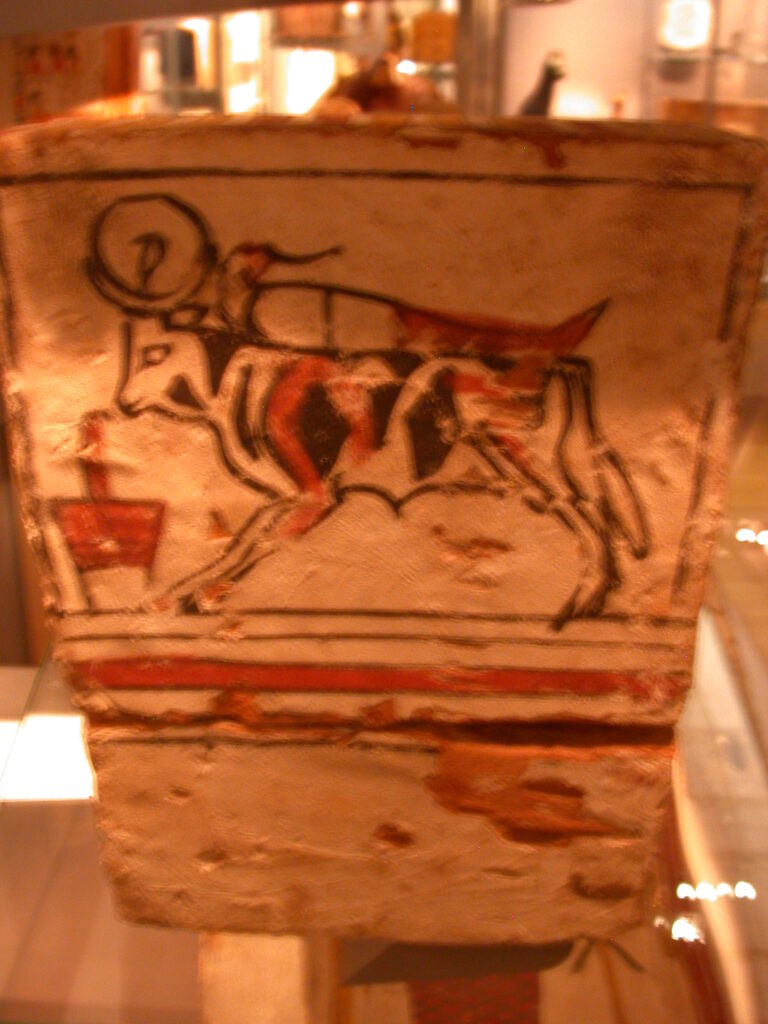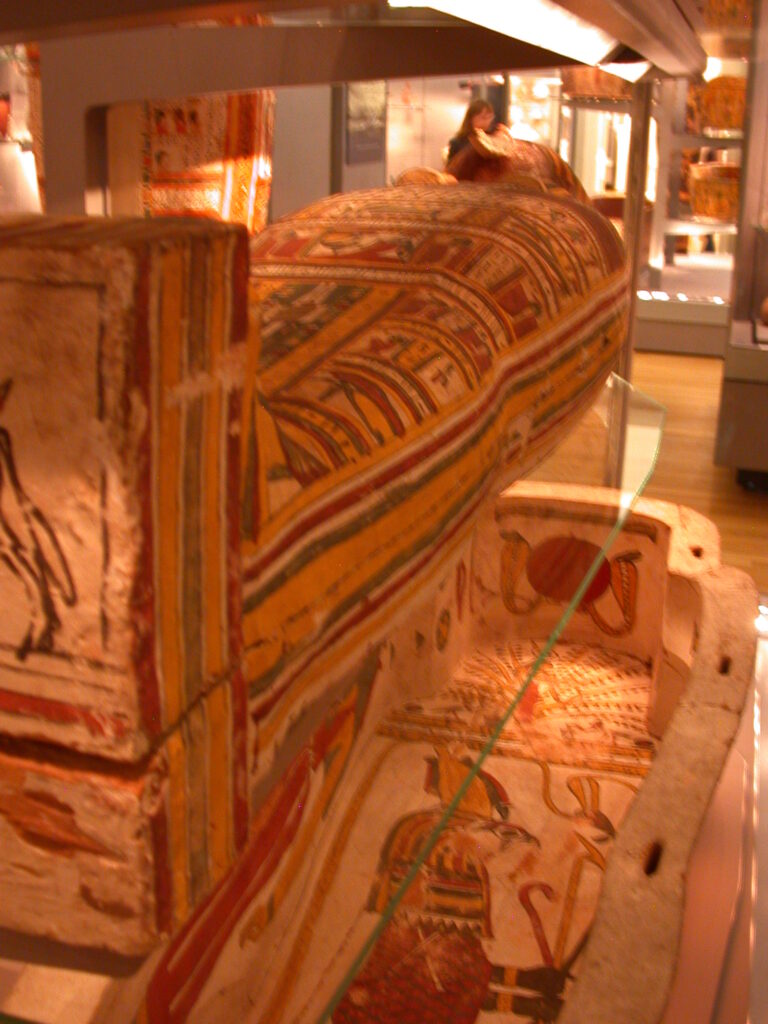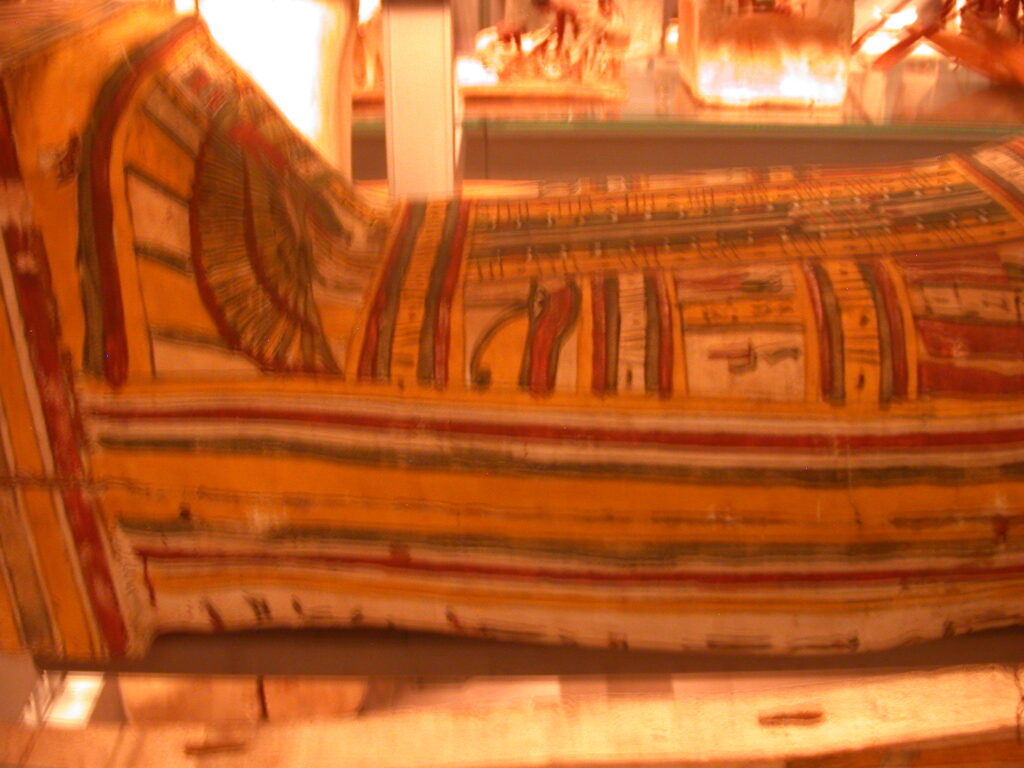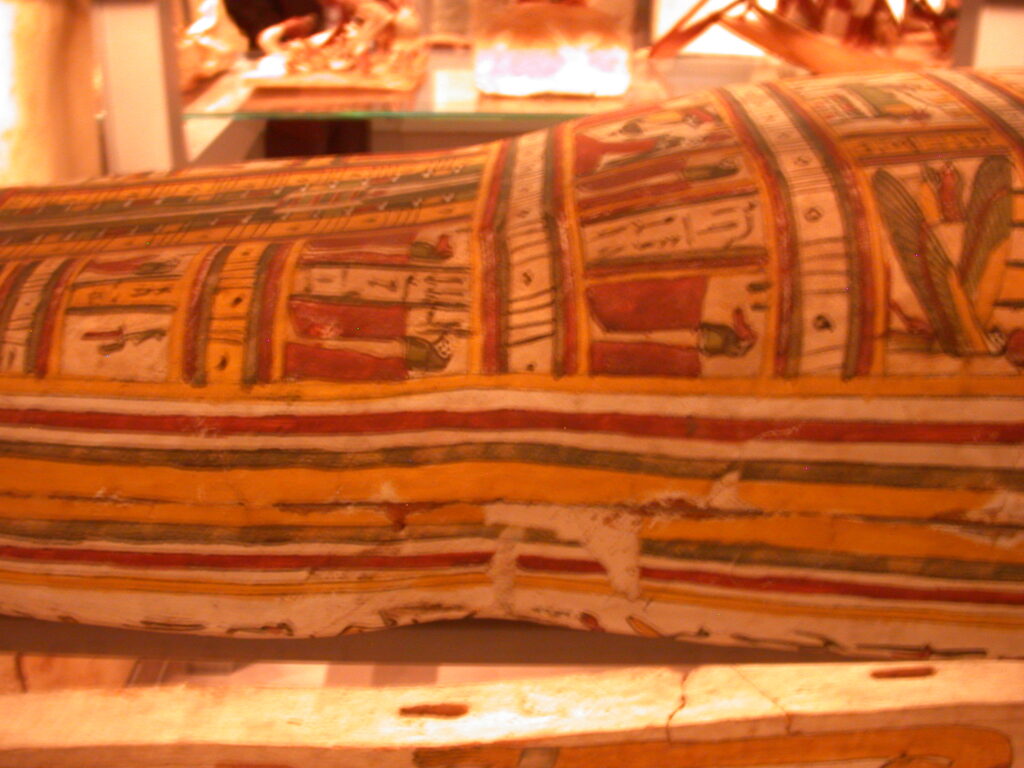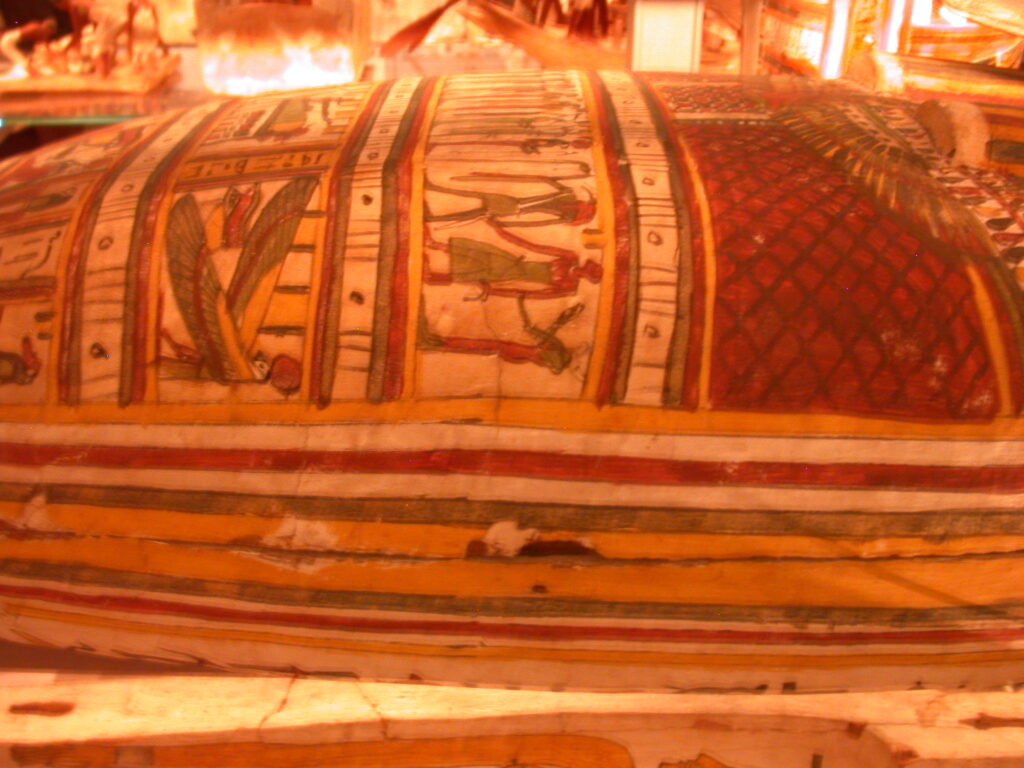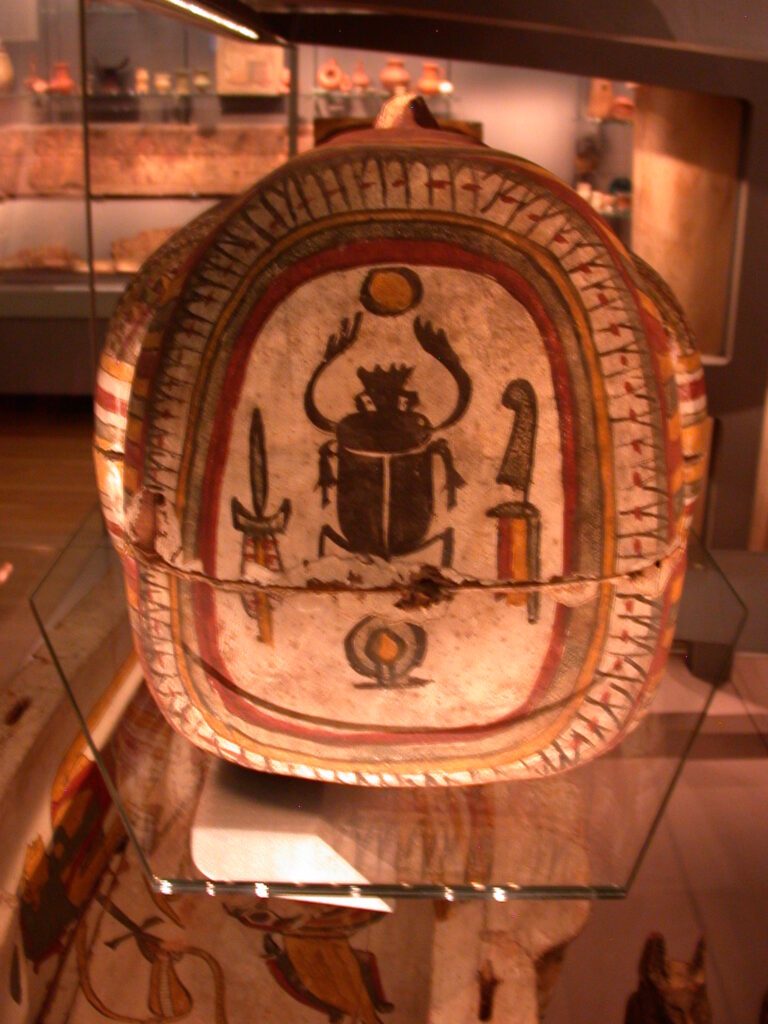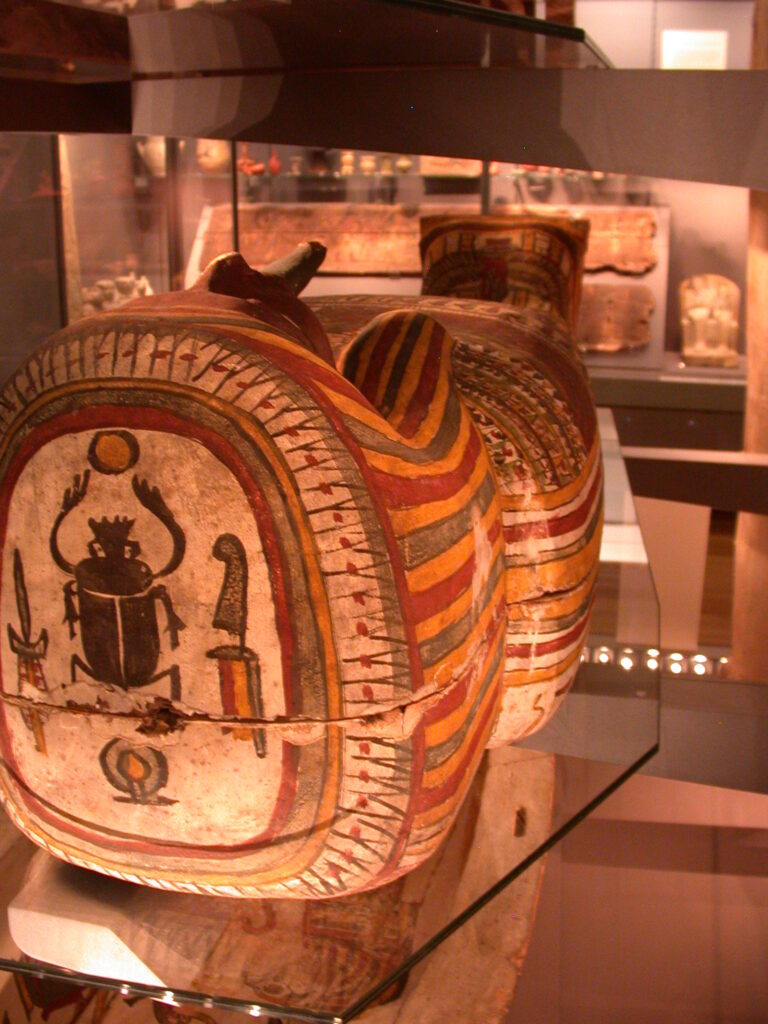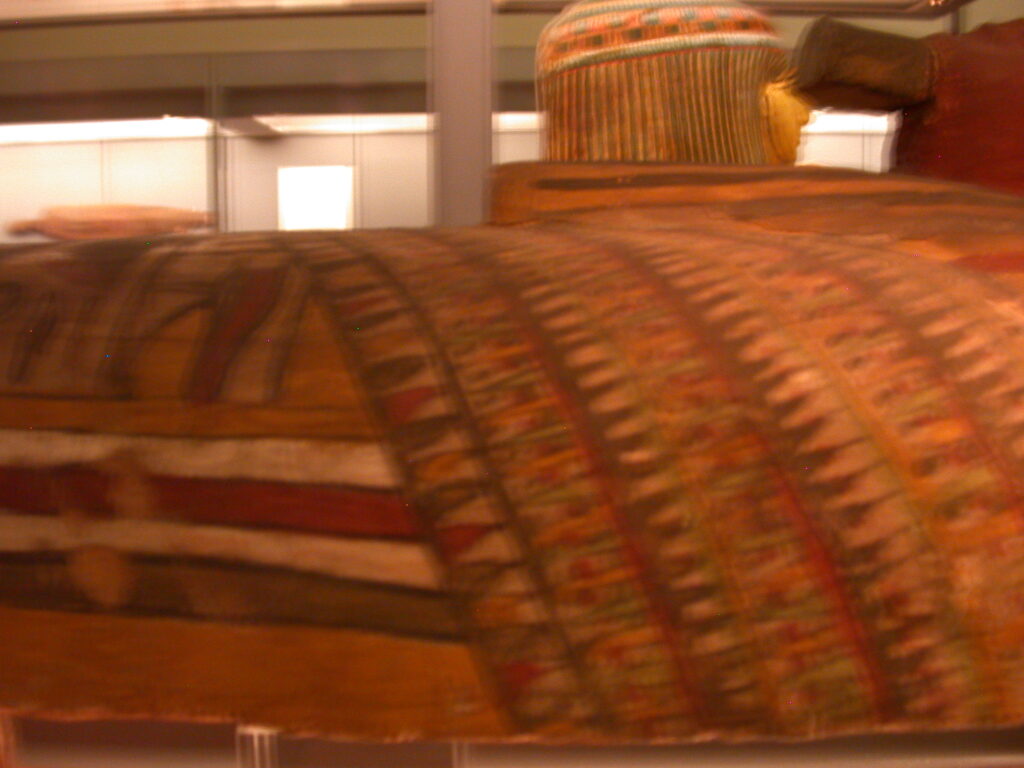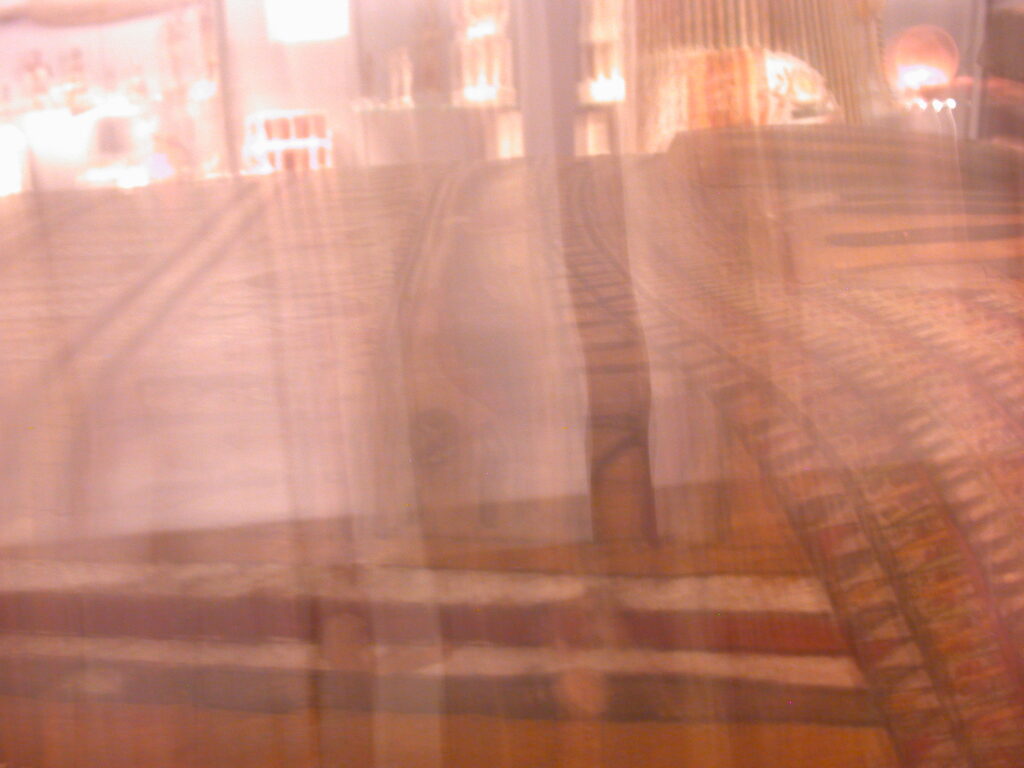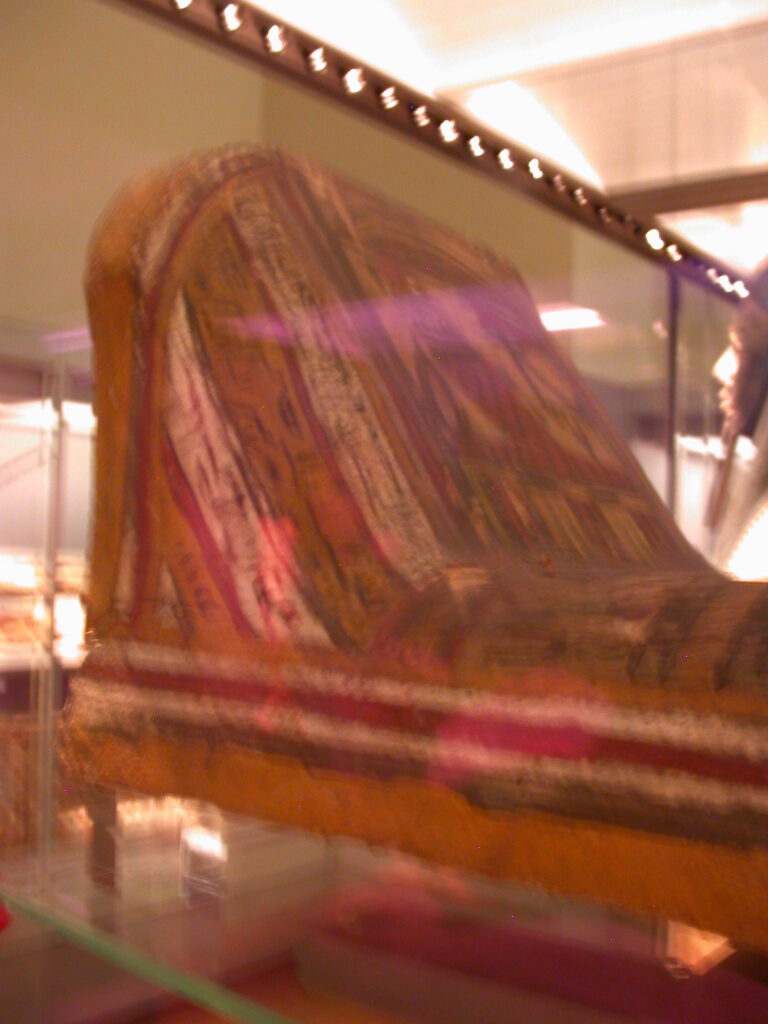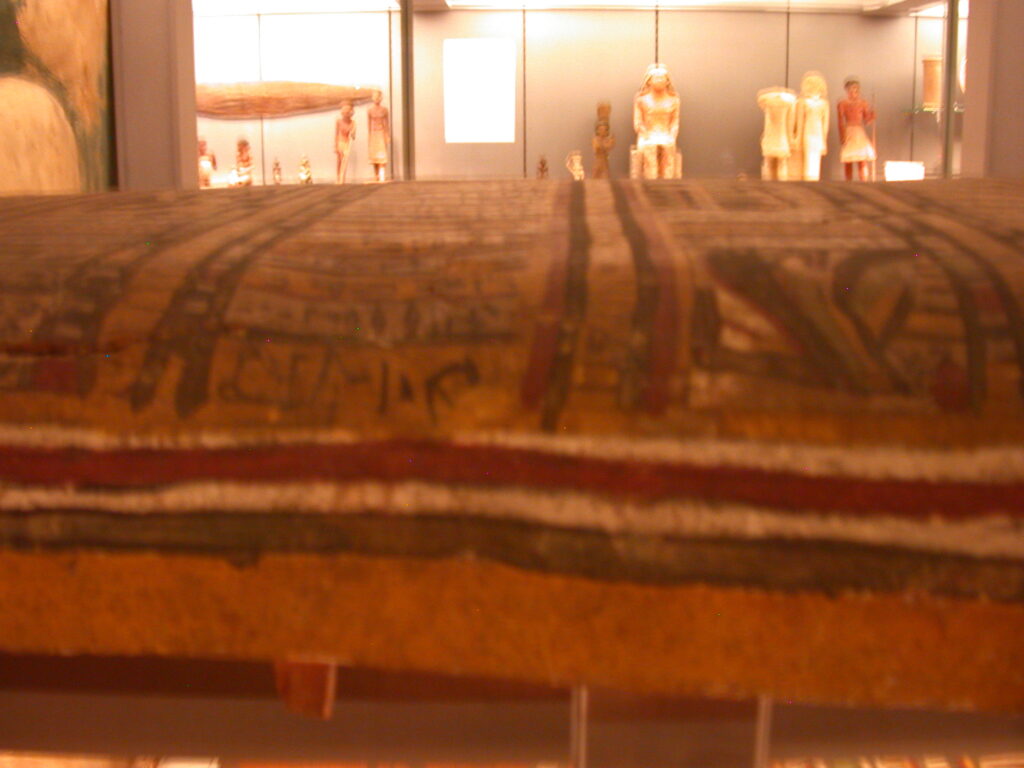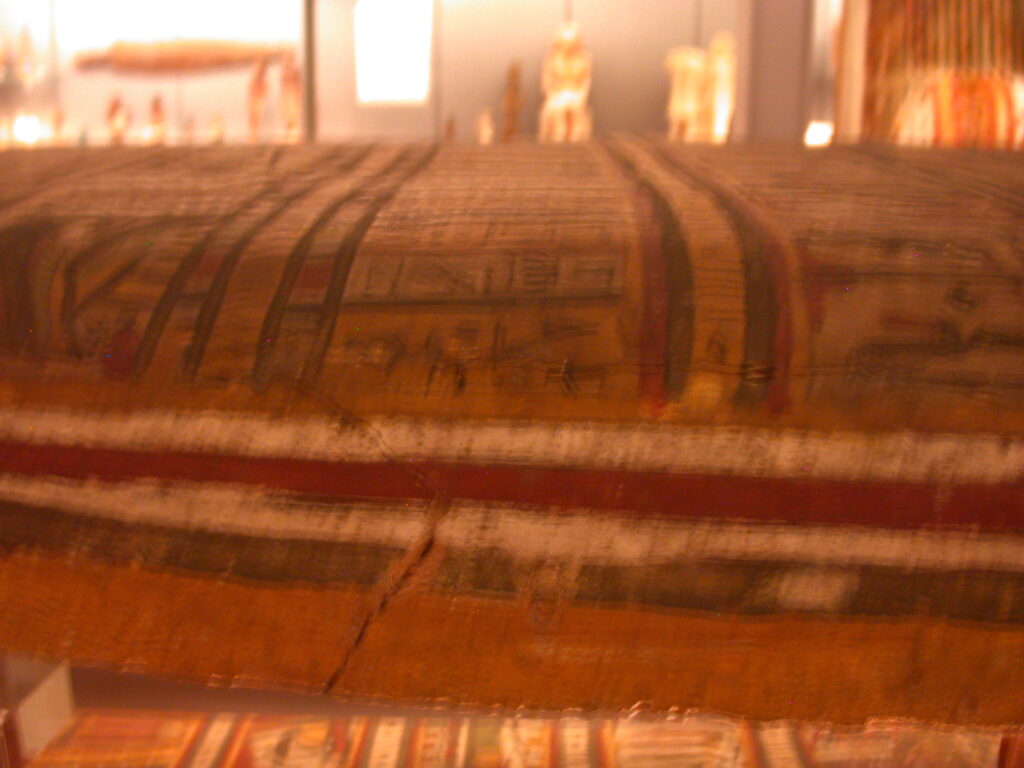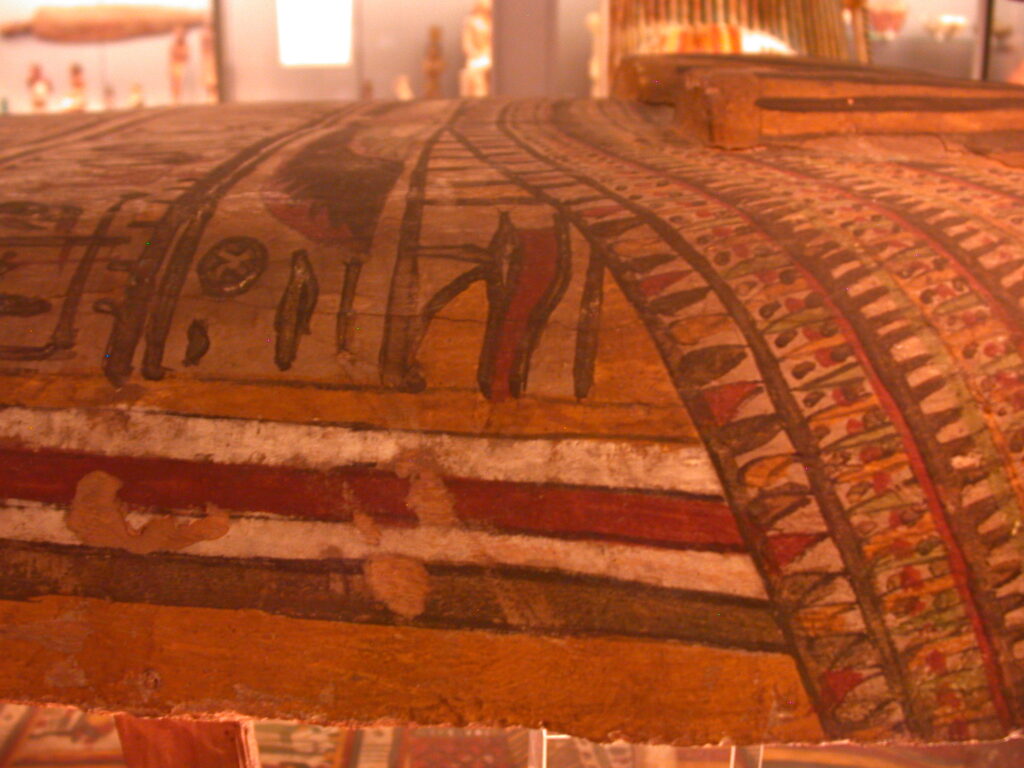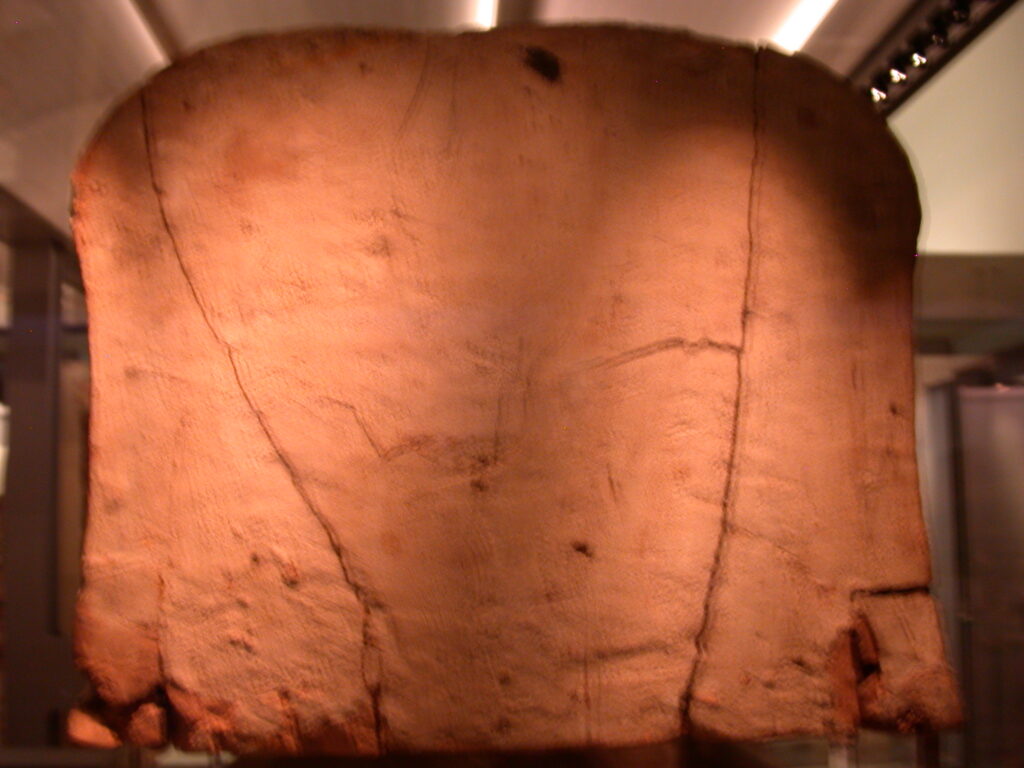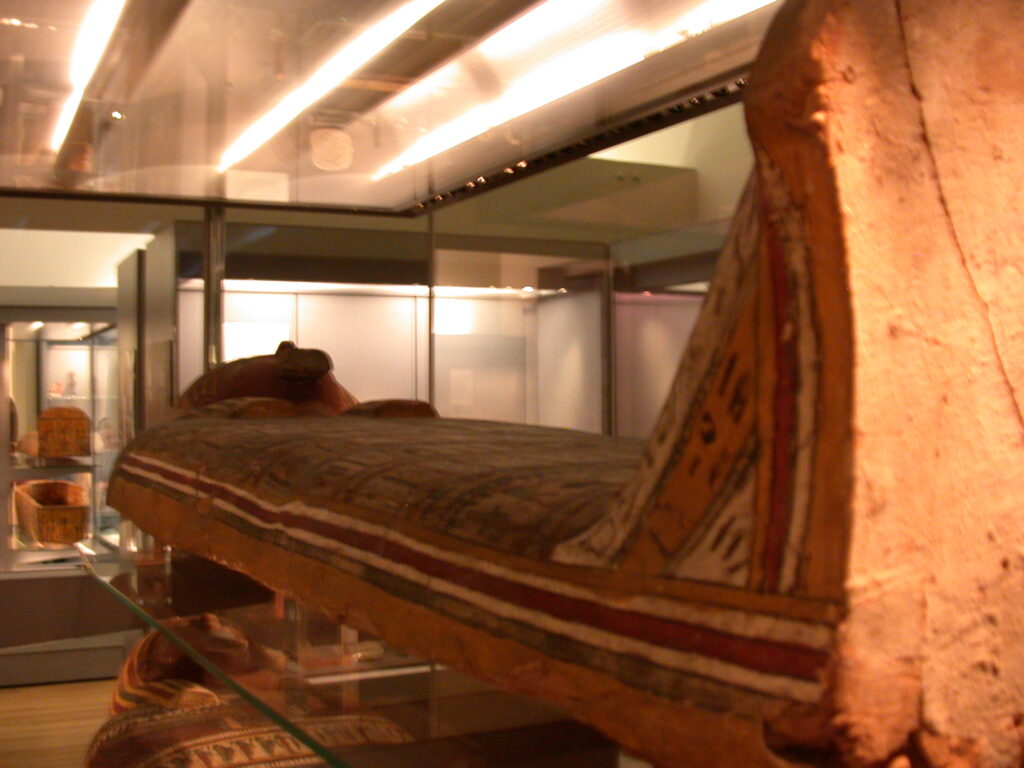While celebrating the gains of queer people, such as the recent U.S. Supreme Court ruling on same-sex marriages, I feel it’s important to remember that you can still be arrested for your sexual orientation in 75 countries and punished by death in 10 countries around the world.
Category Archives: Sudan
Lunch With Andrew, Oxford and the Ashmolean Museum
Written June 21, 2008, on train from Manchester, England, to Holyhead, Wales, for ferry to Dublin, Ireland
After a good veg breakfast the next morning, I took two buses to Salisbury, then continued on to Oxford. I walked from the train station to the Ashmolean Museum, where I met Andrew Hodges for a pleasant lunch. We hadn’t seen each other for six or seven years since he stopped at Mills College as part of his lecture tour for his book on Alan Turing.
The Ashmolean has a wonderful collection of 25th dynasty materials, which I photographed along with a few contemporary Assyrian items.
On Andrew’s advice, I took a walk through town to see the old campus halls, the church, and other beautiful buildings. Then, back to the station and on to Manchester.
Special Feature: Pakepu’s Coffins at the Fitzwilliam Museum in Cambridge, England
Fitzwilliam Museum in Cambridge and Back to London
Written on June 13, 2008, at Eat and Two Veg Restaurant, London, United Kingdom
This morning, I had to go to Cambridge and Sarah was off to Kent, so we said our goodbyes. I caught the train to Cambridge and met a nice woman named Emily Esche on the way. She is studying archaeology and is particularly interested in studying human remains. So, we could talk shop. She later sent me an email with great advice for sites around Stonehenge.
When I got off the train at Cambridge, I was stunned by the number of bikes parked outside the station (the pic shows less than a quarter of the bikes).
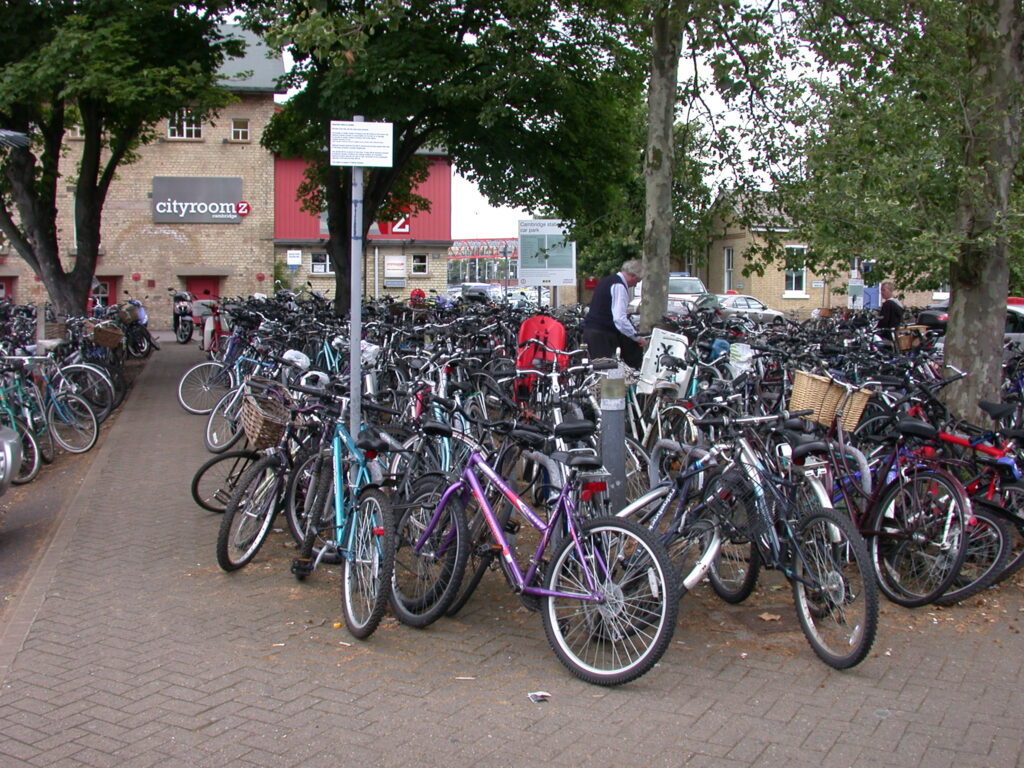
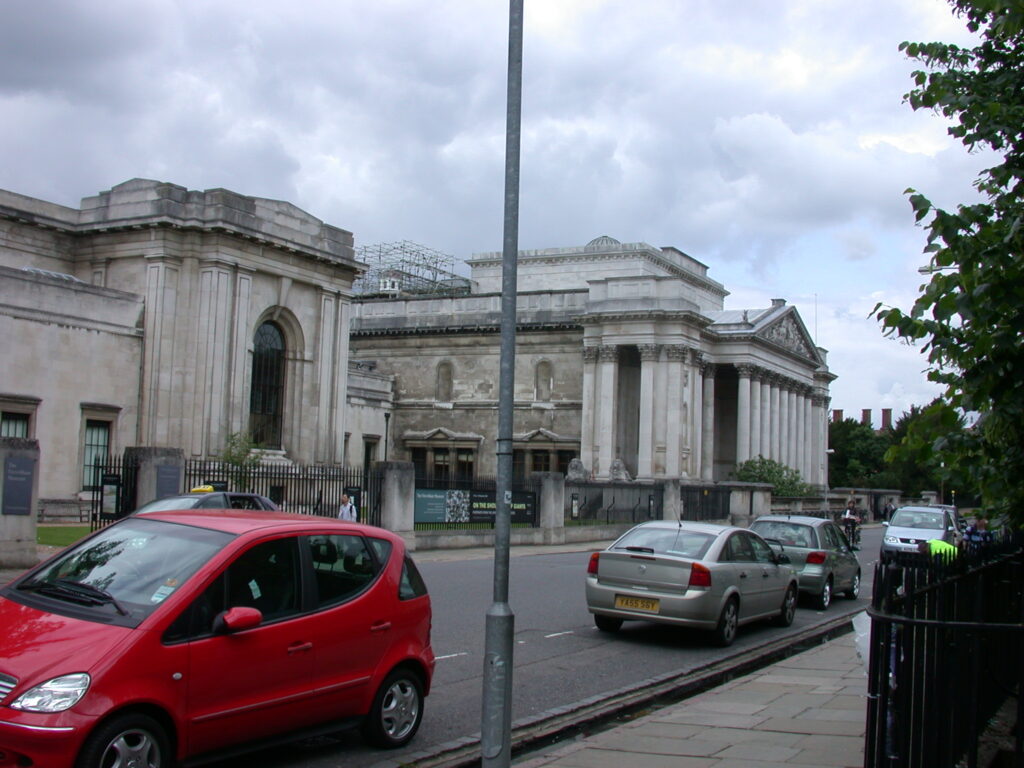
I walked to the Fitzwilliam Museum and, since the museum’s 25th dynasty expert is on leaving writing her thesis, I met with a fellow named Anders Bell, who showed me an Assyrian artifact from the museum’s store (i.e. storage area) then directed me to the ancient Sudan gallery and three ancient Egyptian galleries, excellent for research purposes.
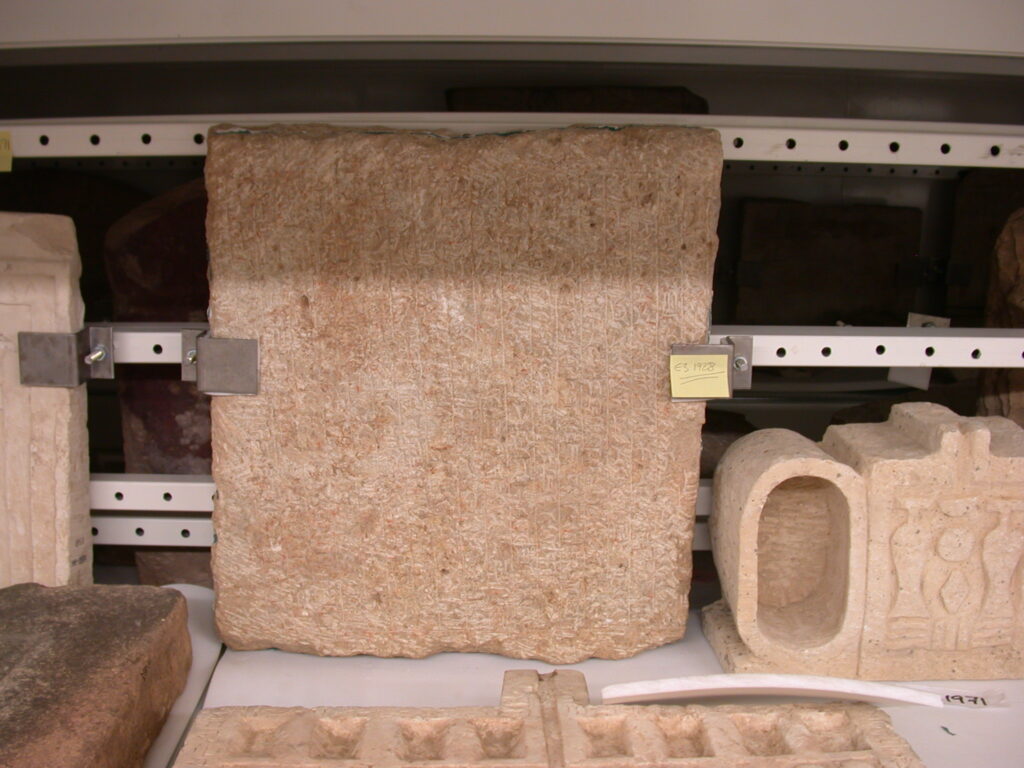
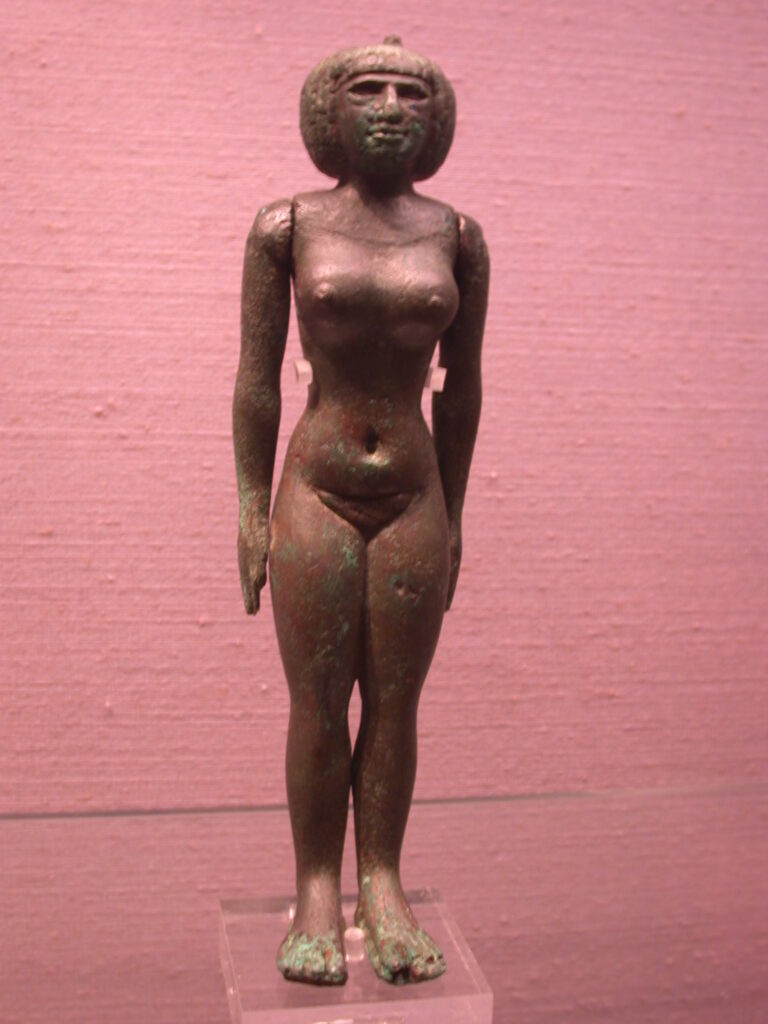
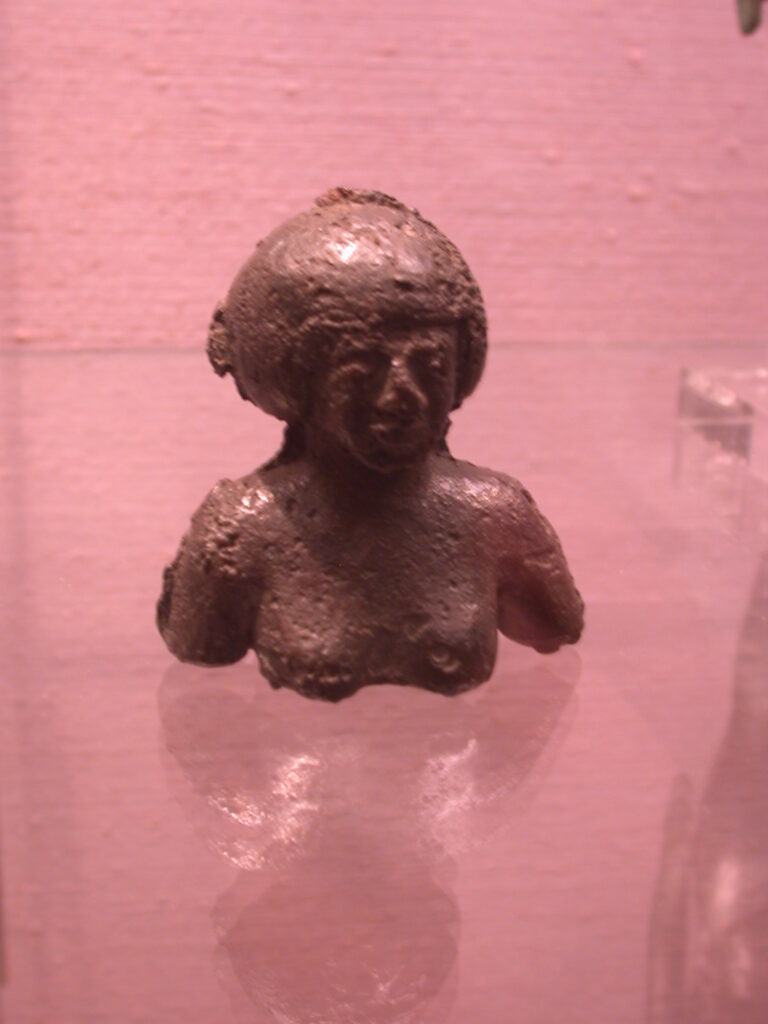
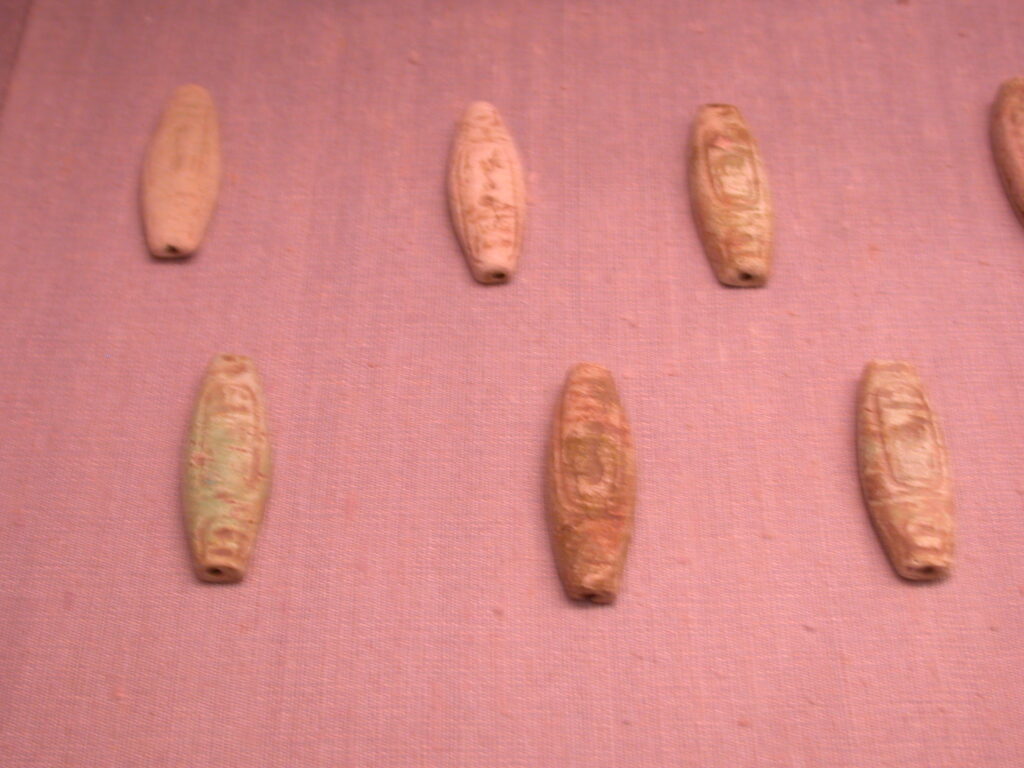
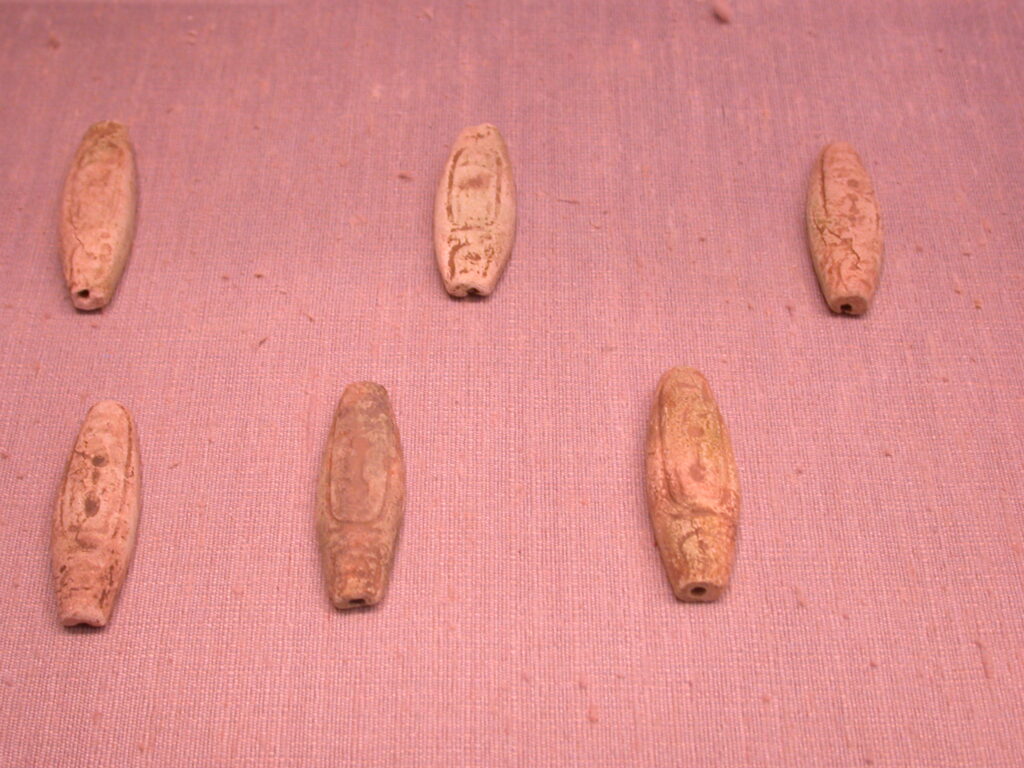
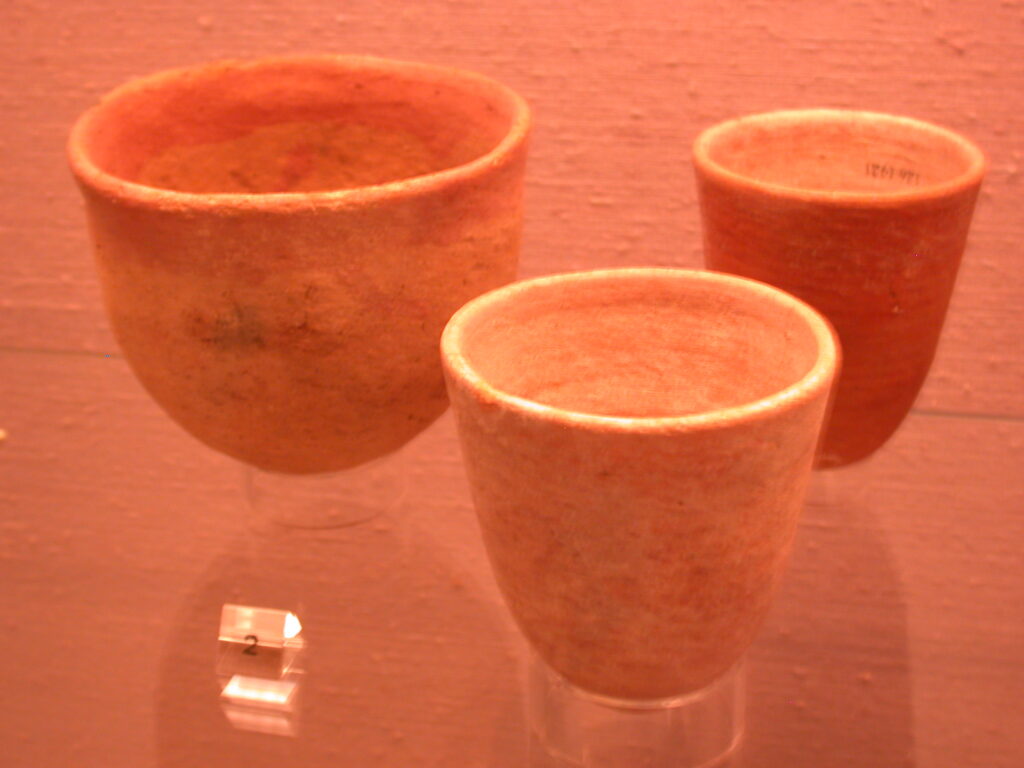
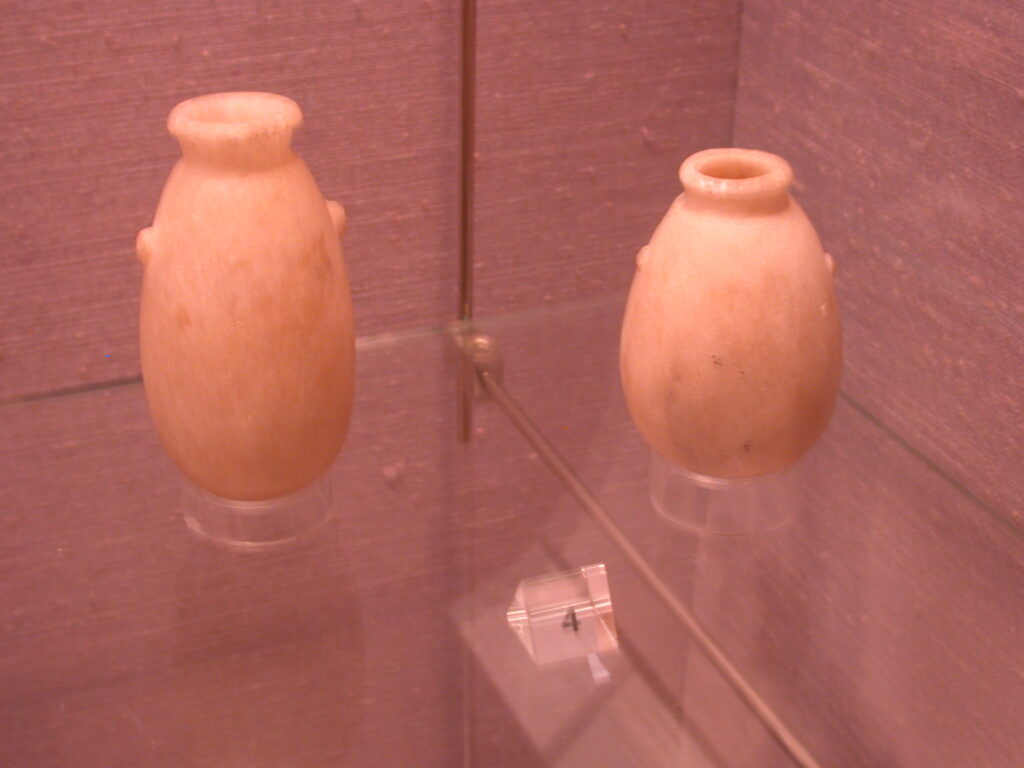
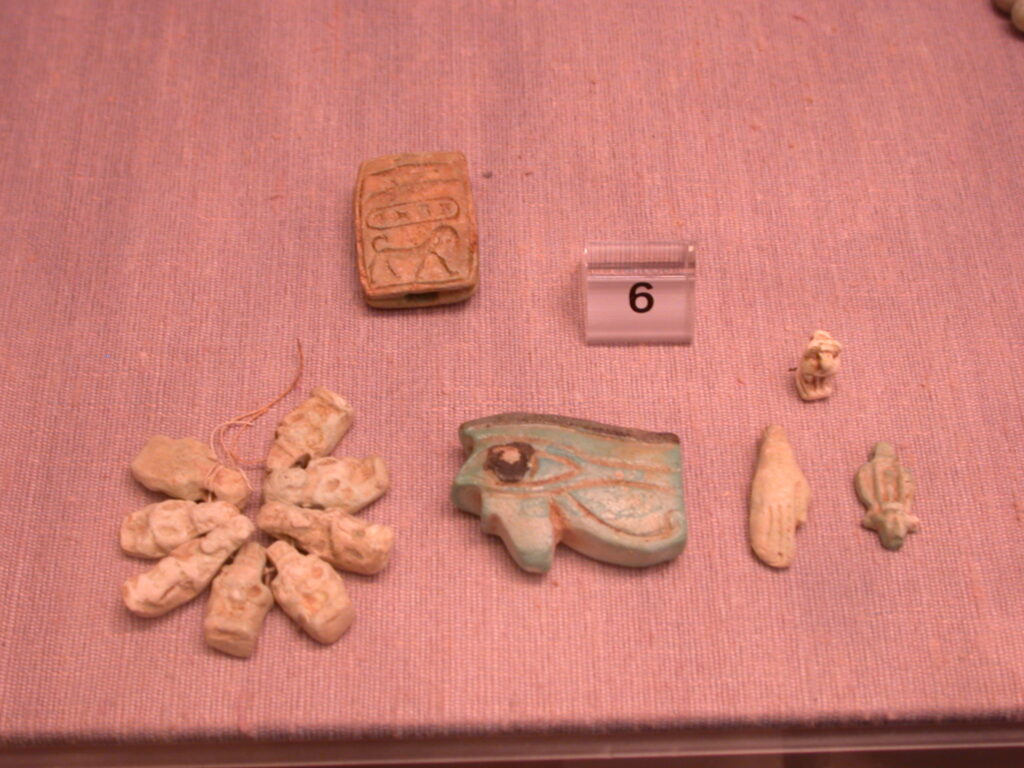
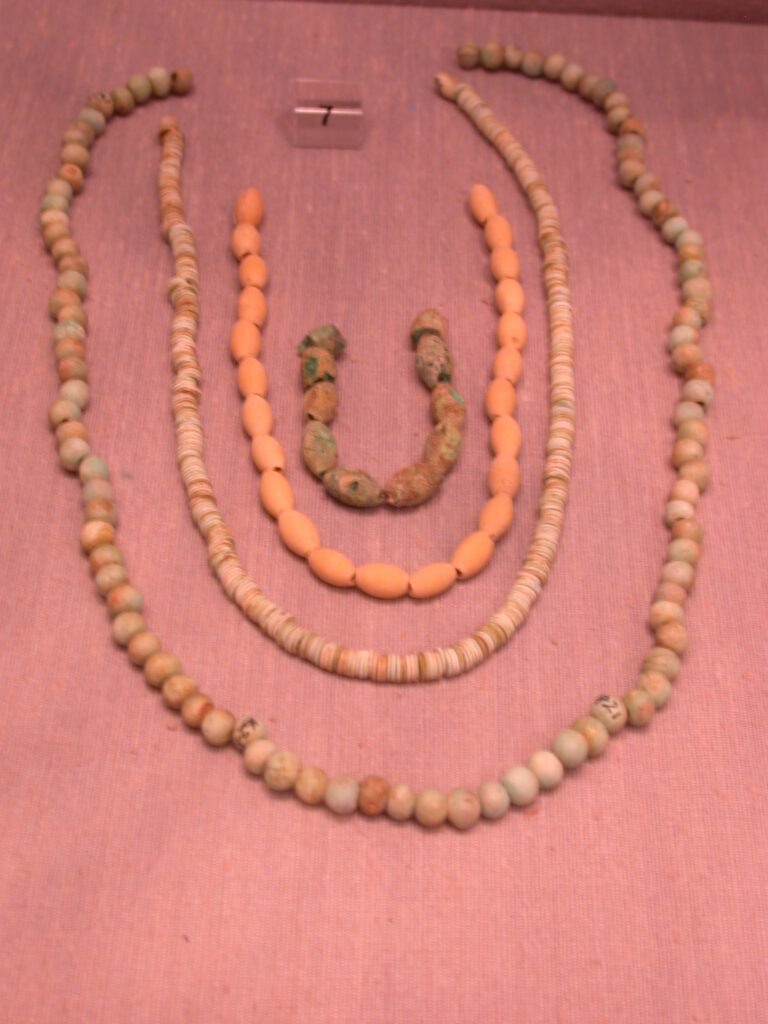
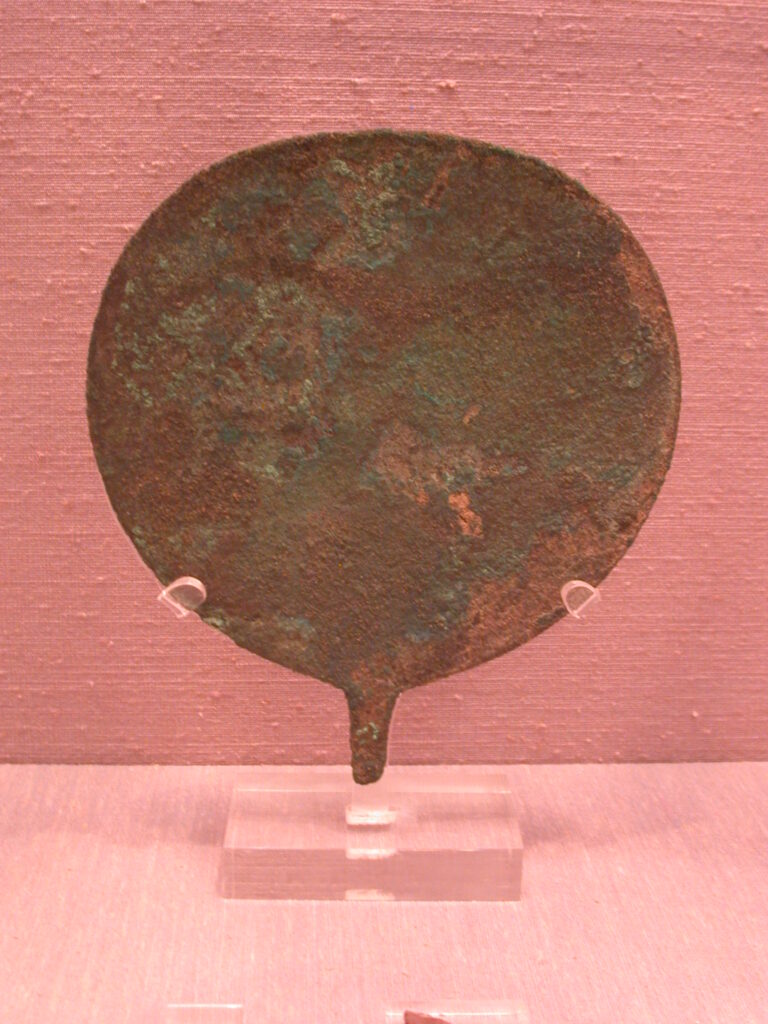
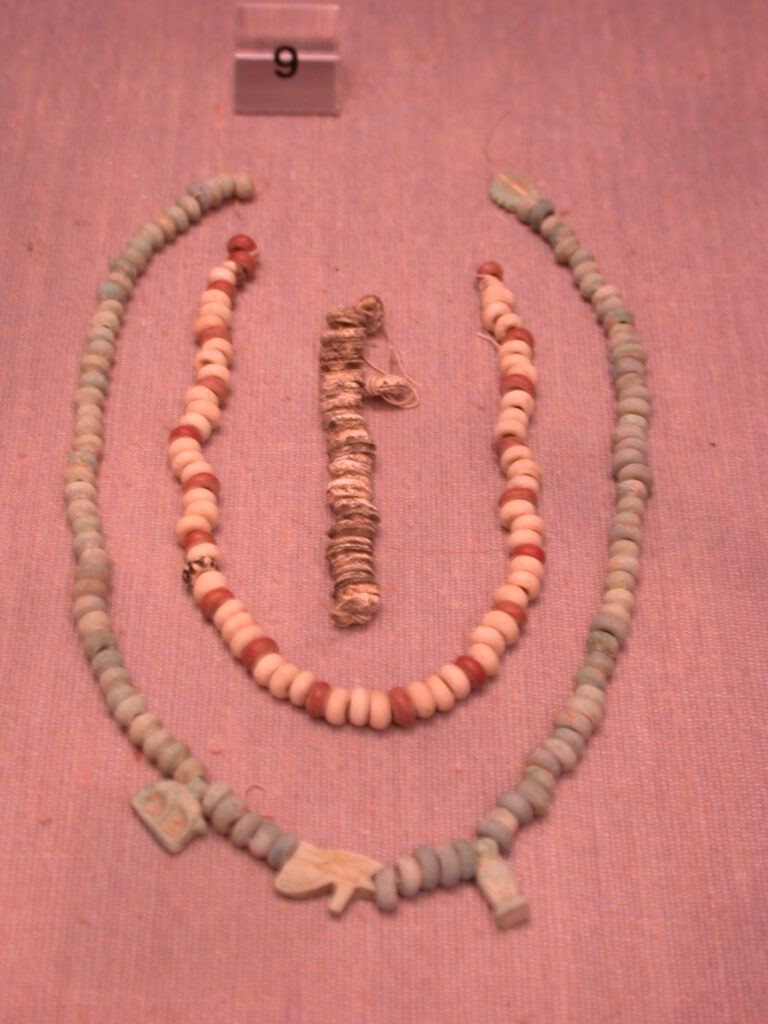
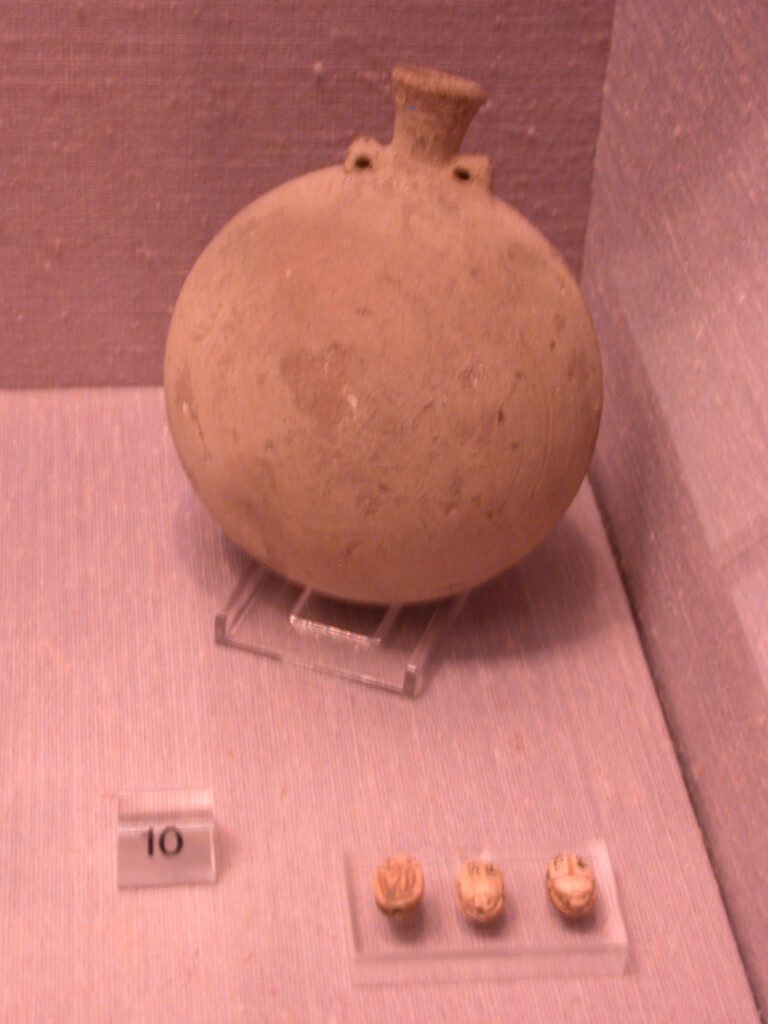
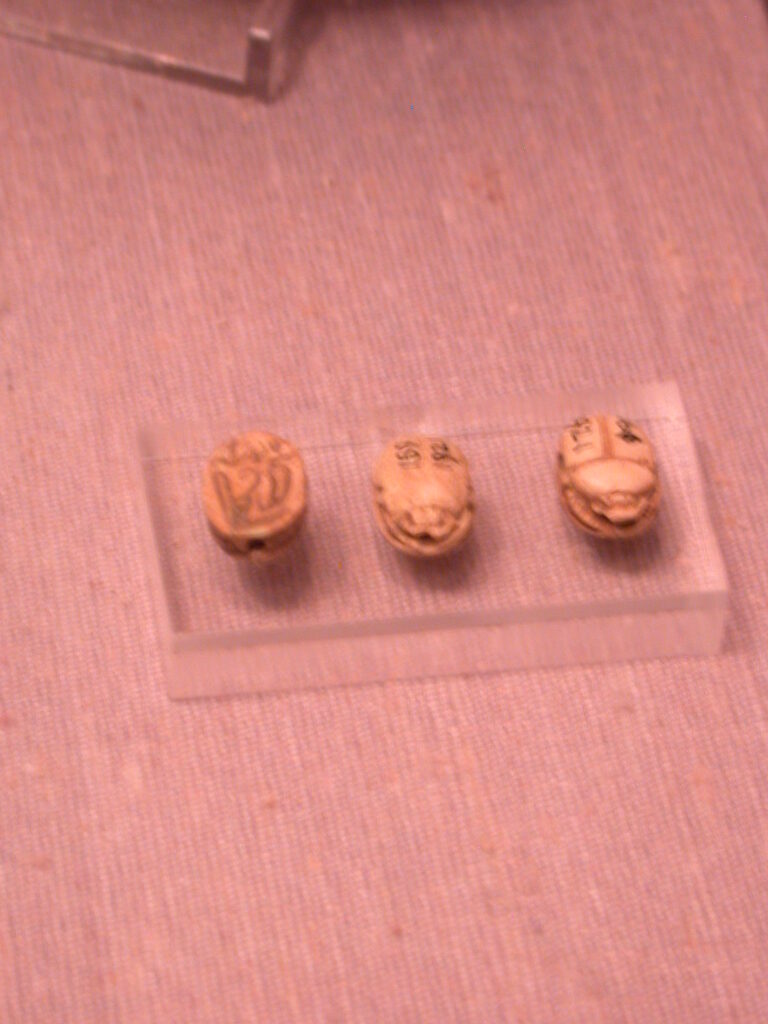
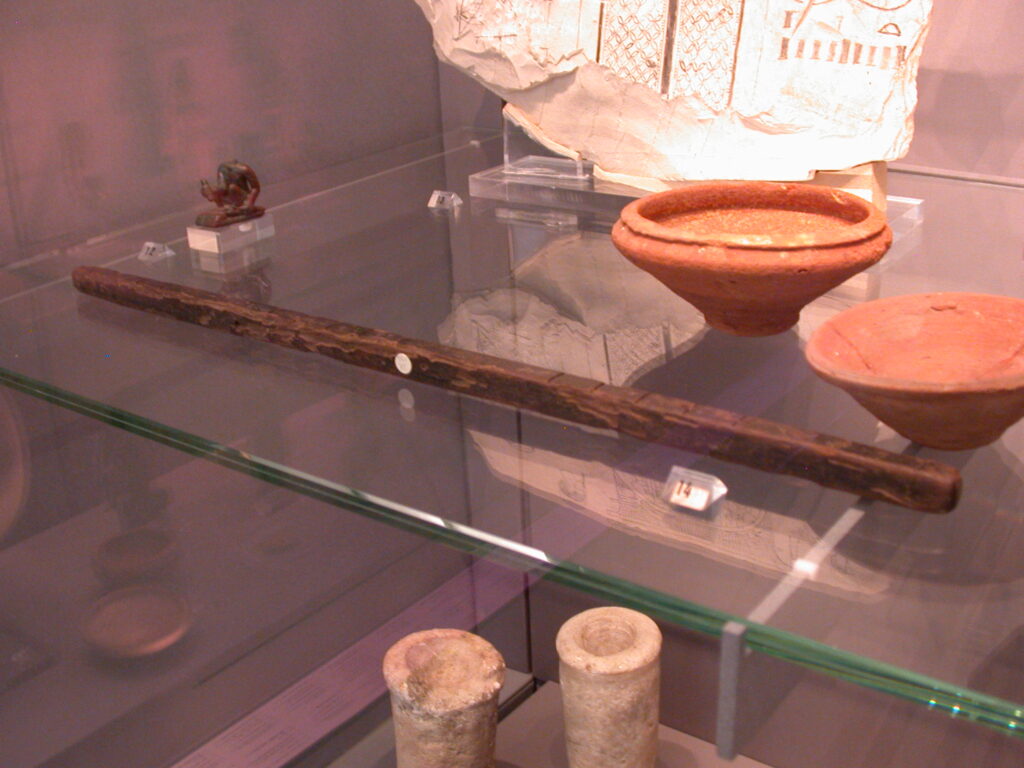
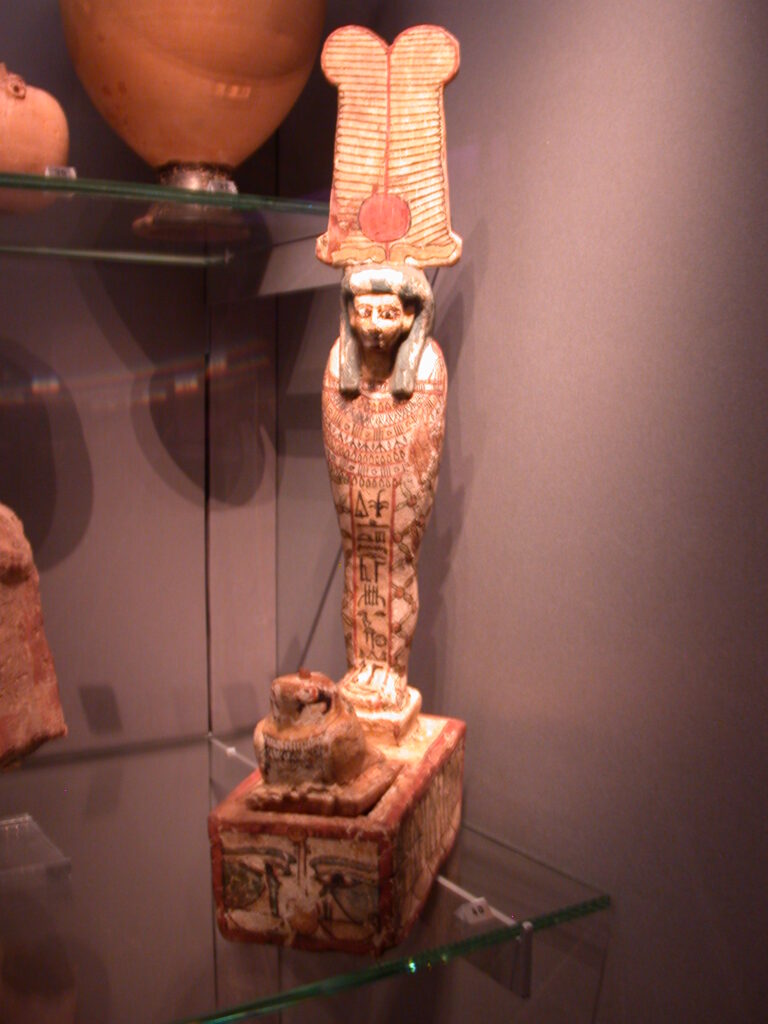
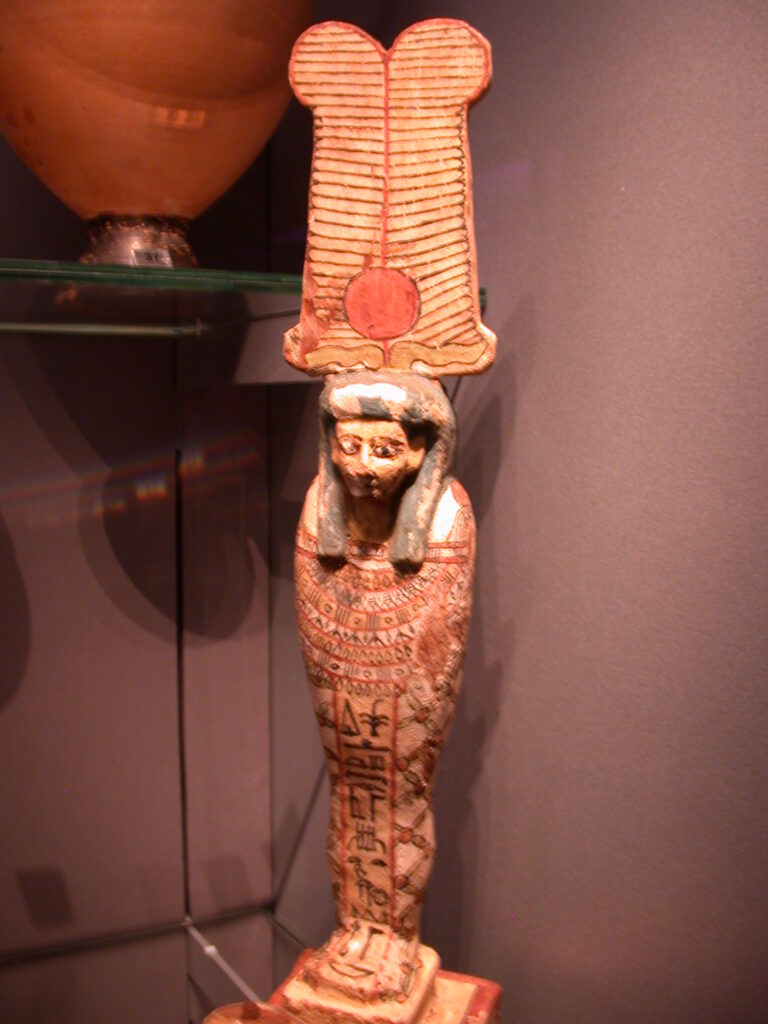
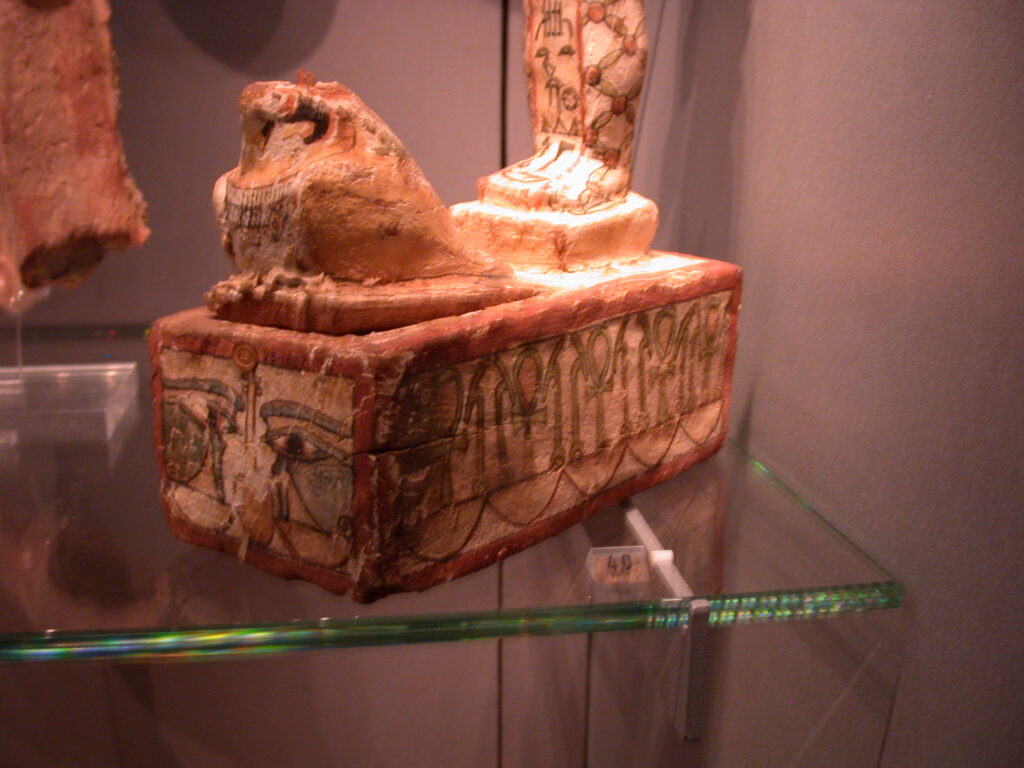
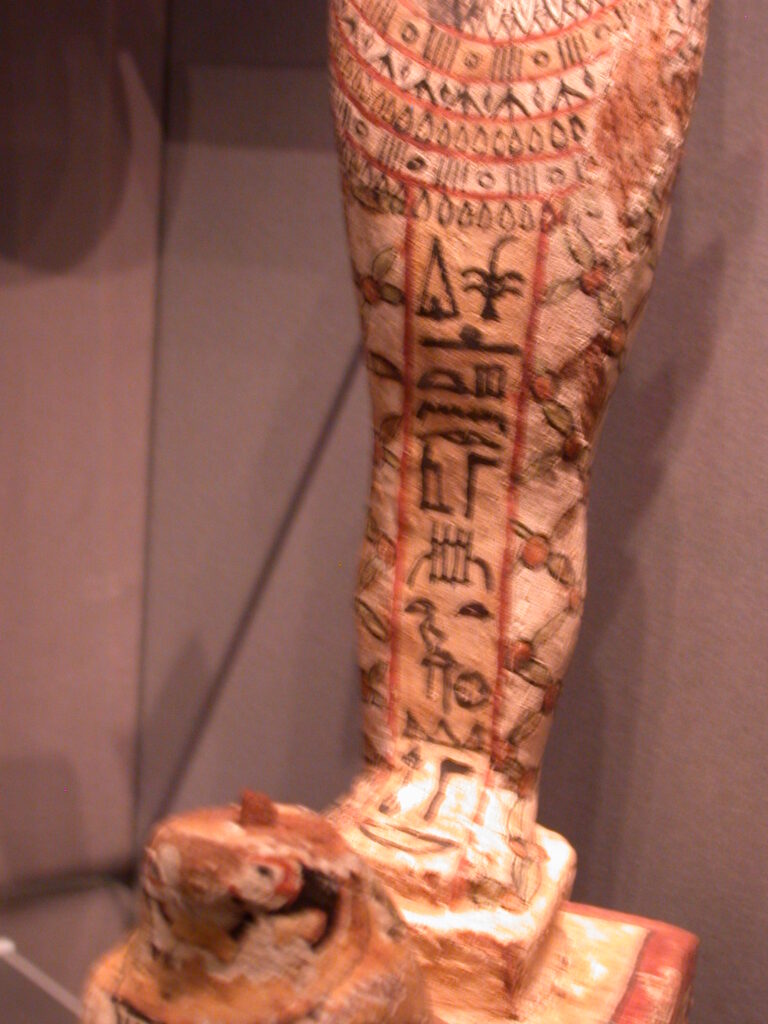
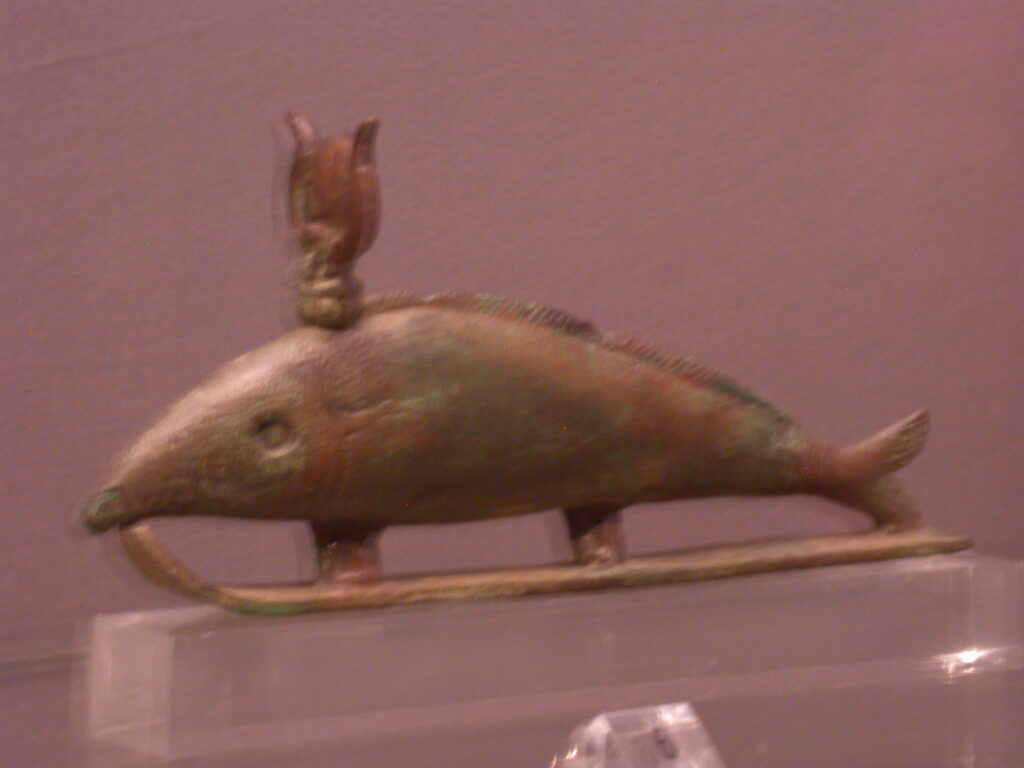
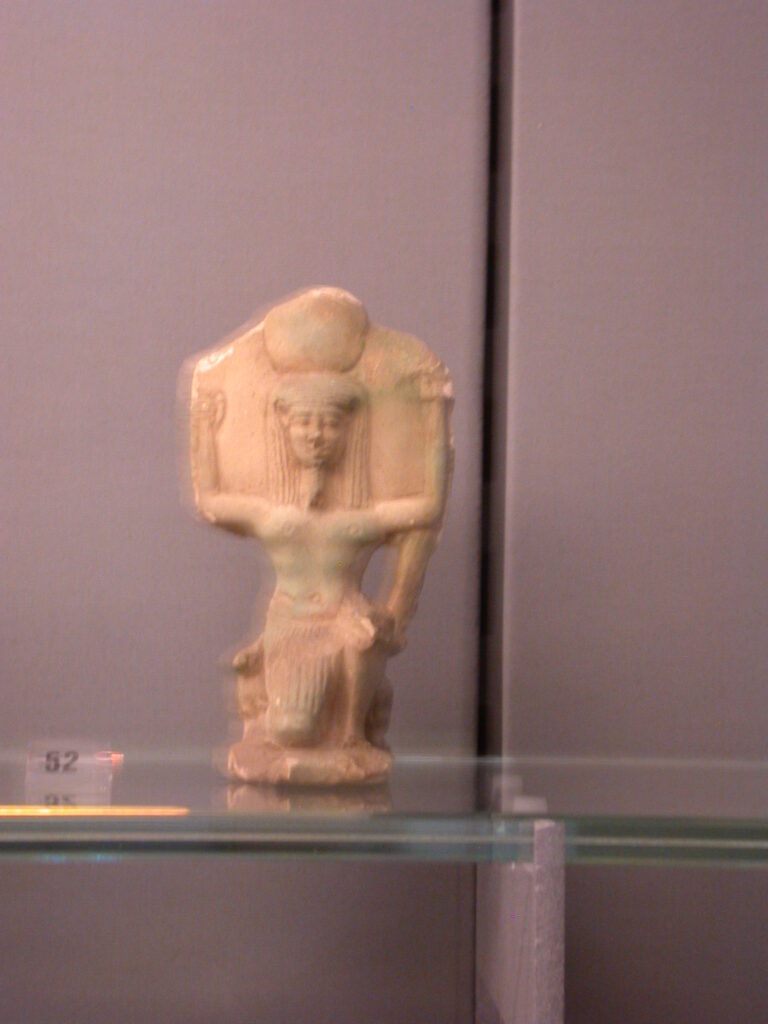
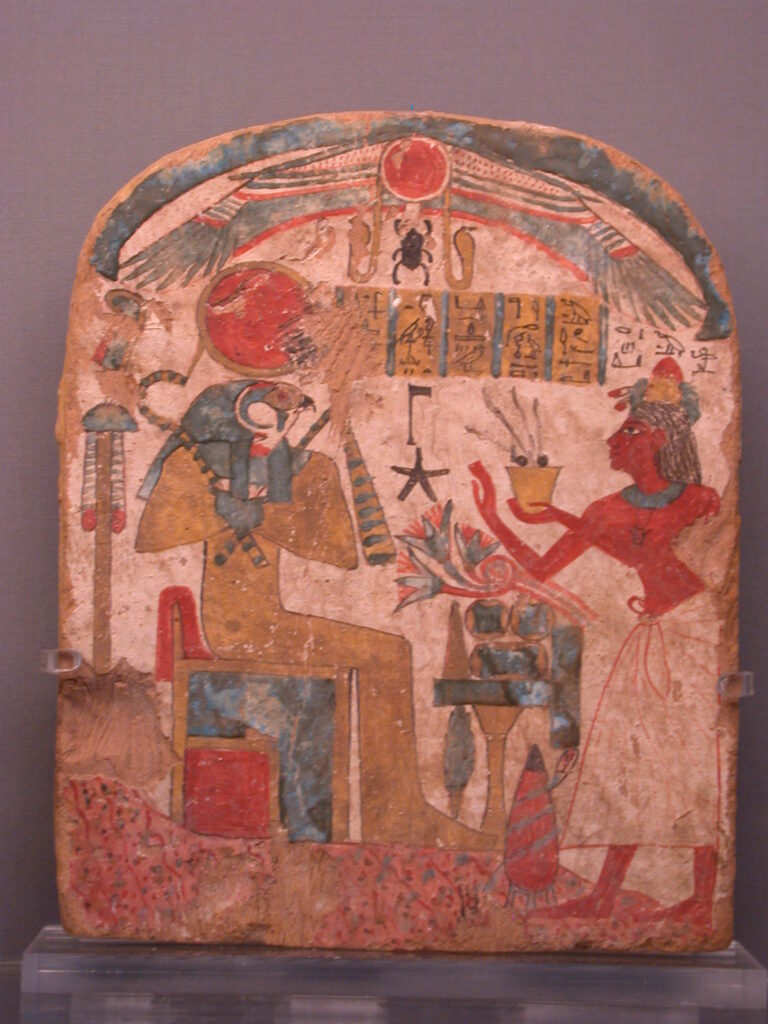
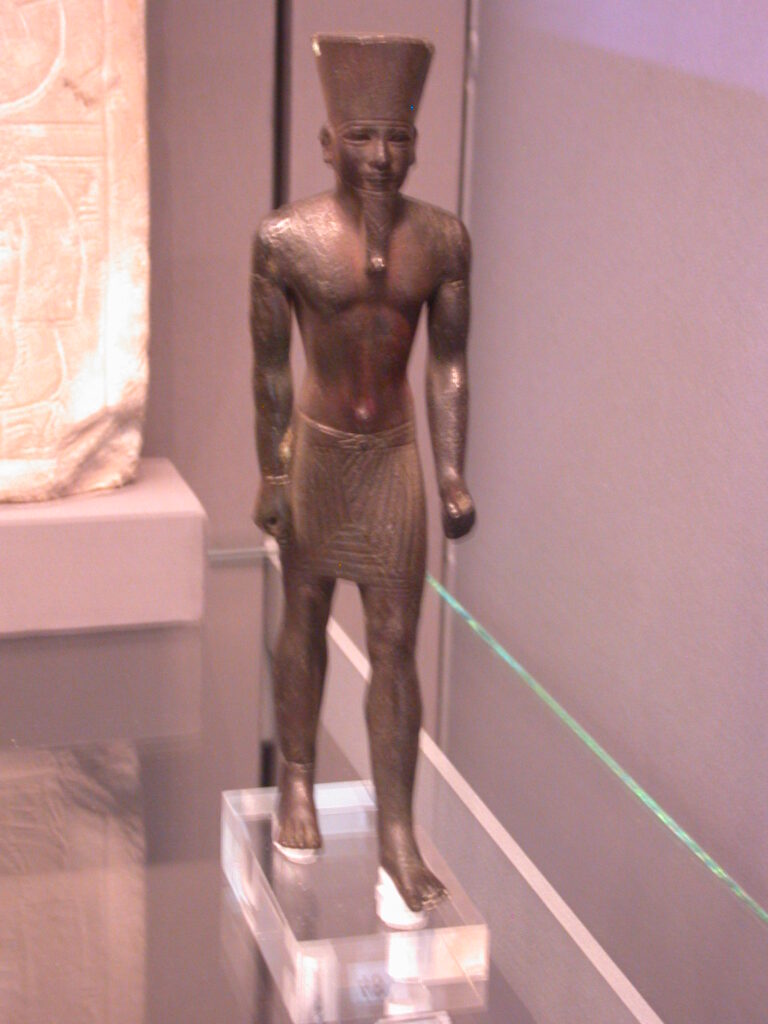
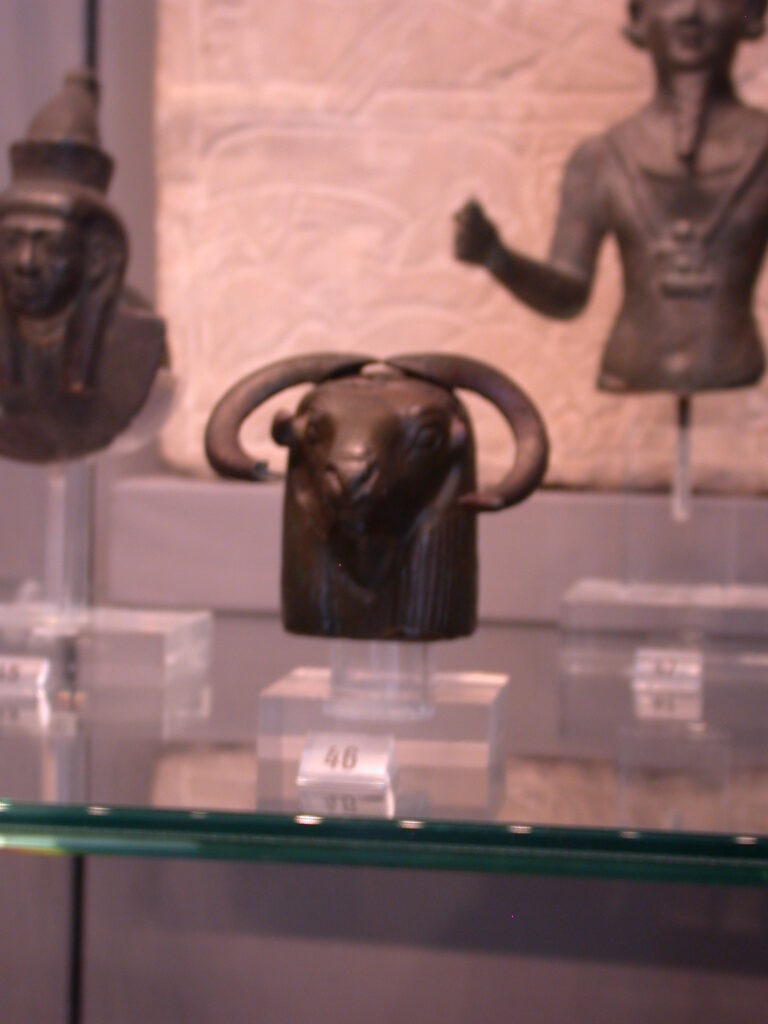
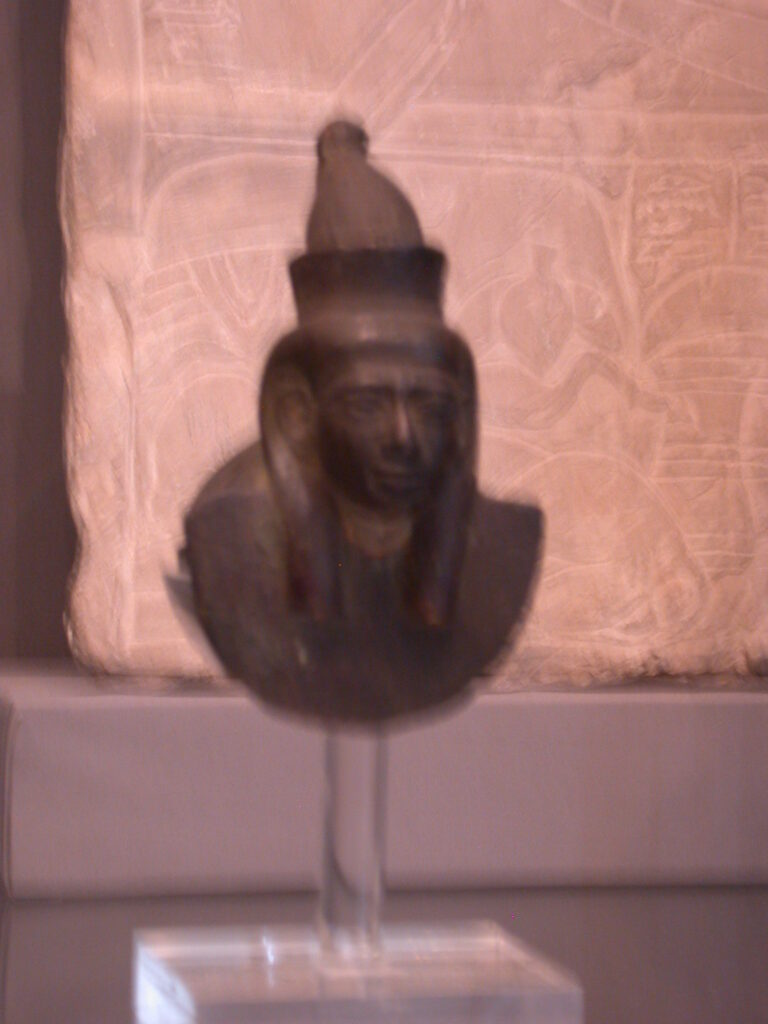
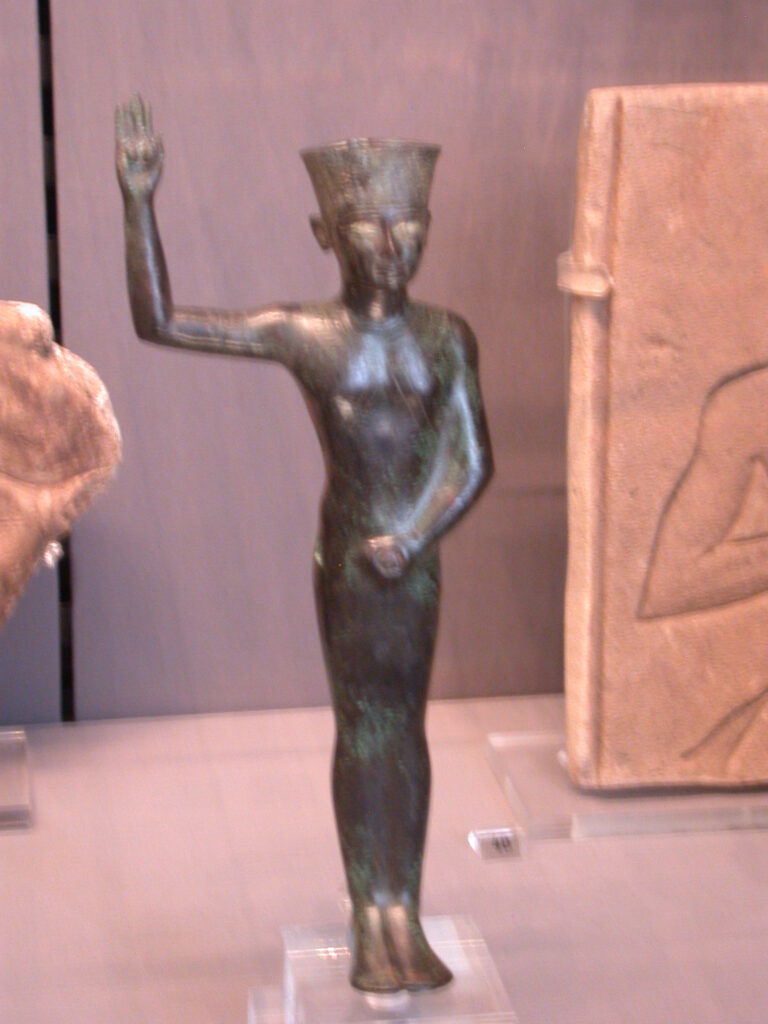
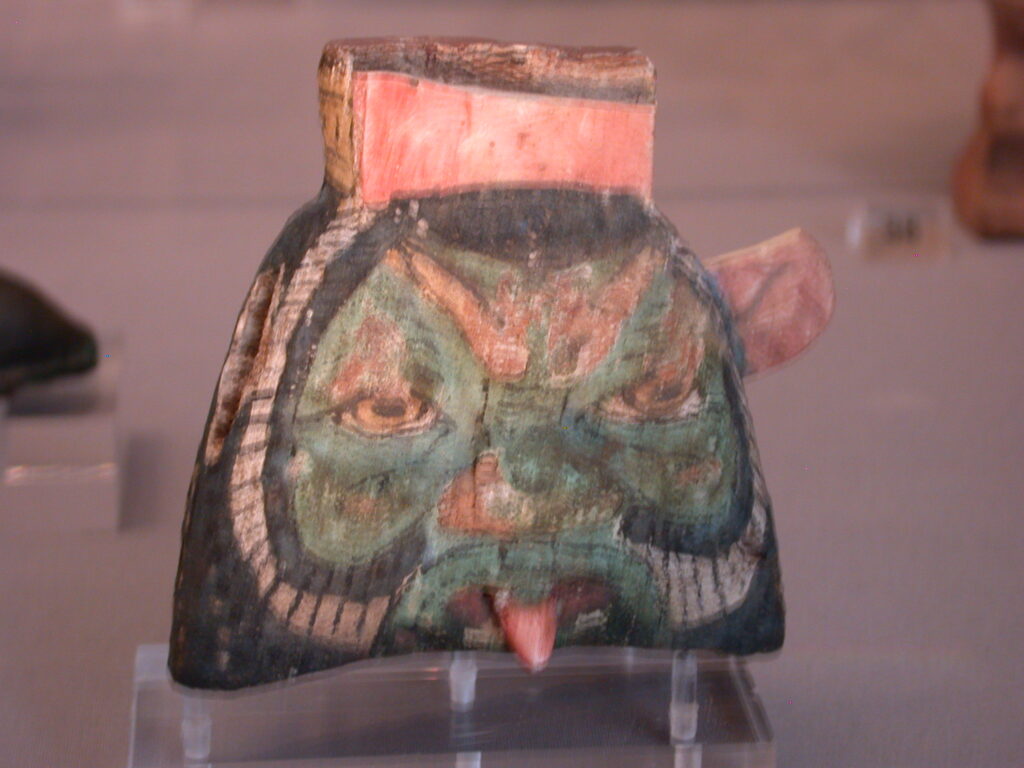
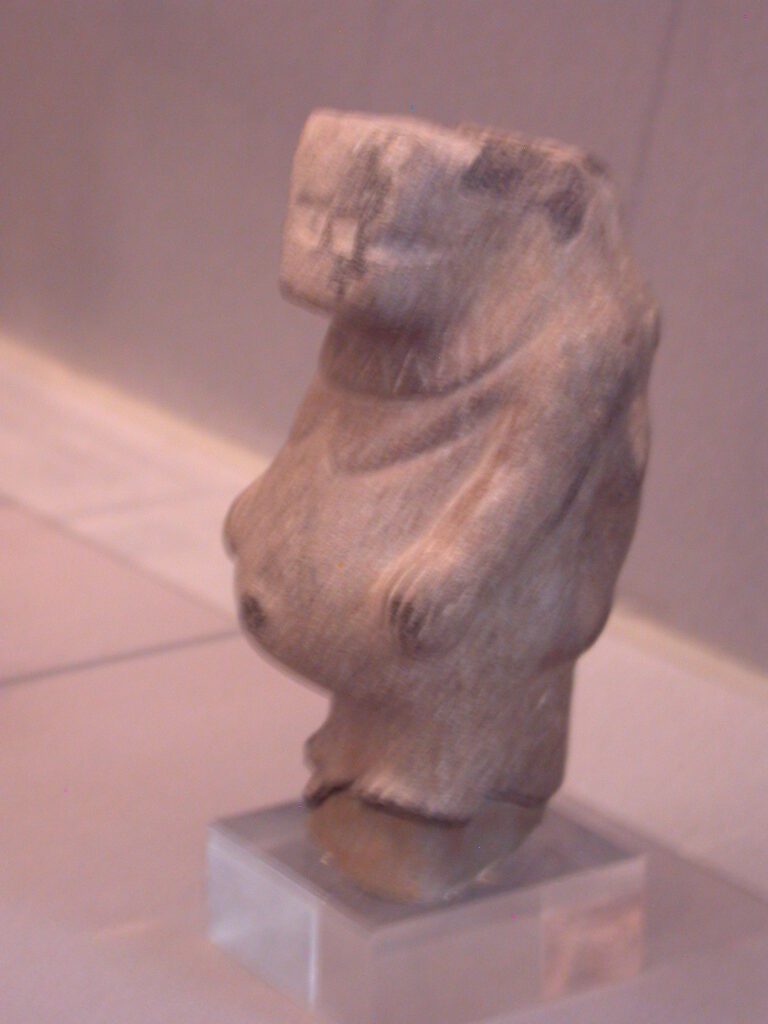
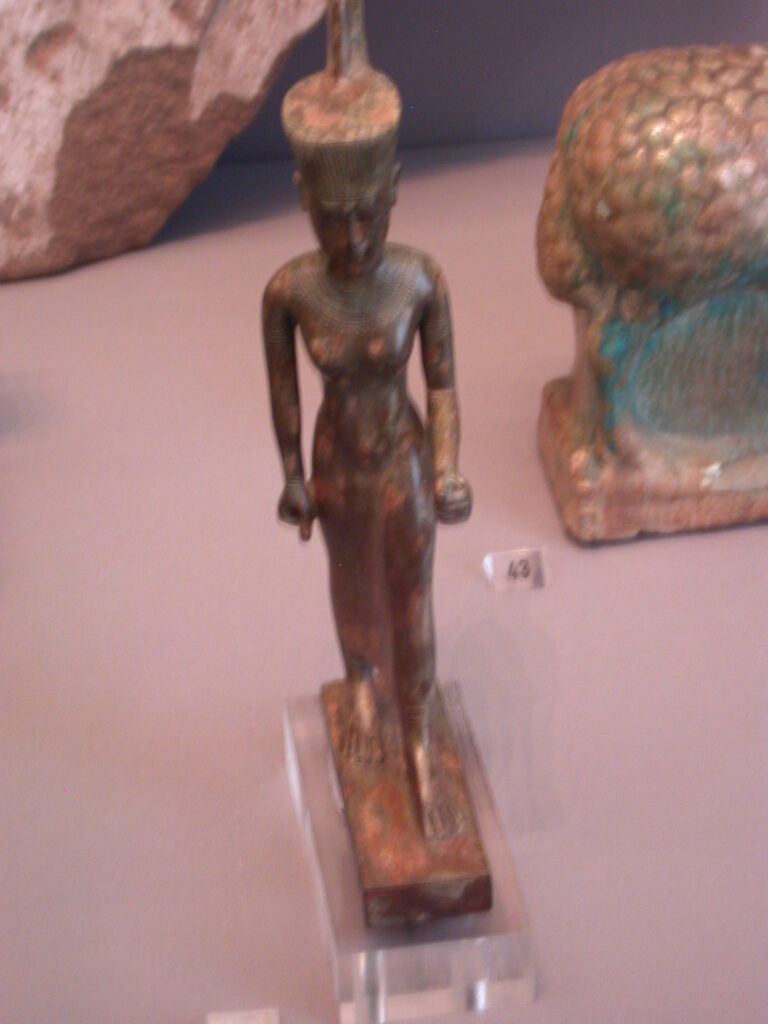
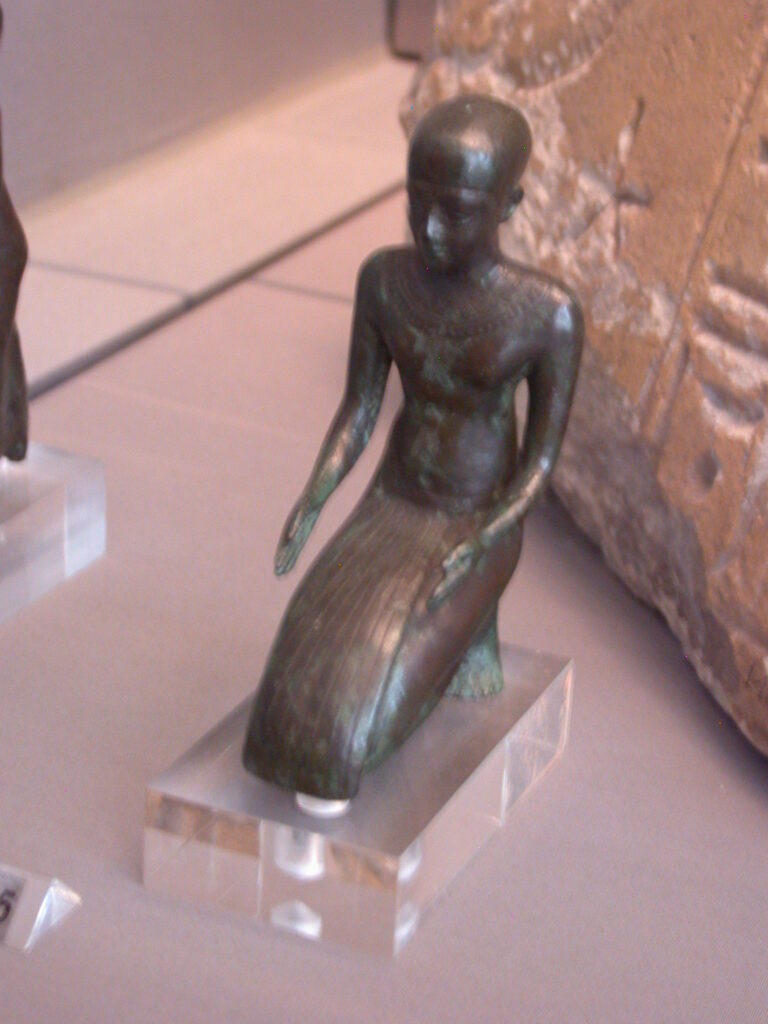
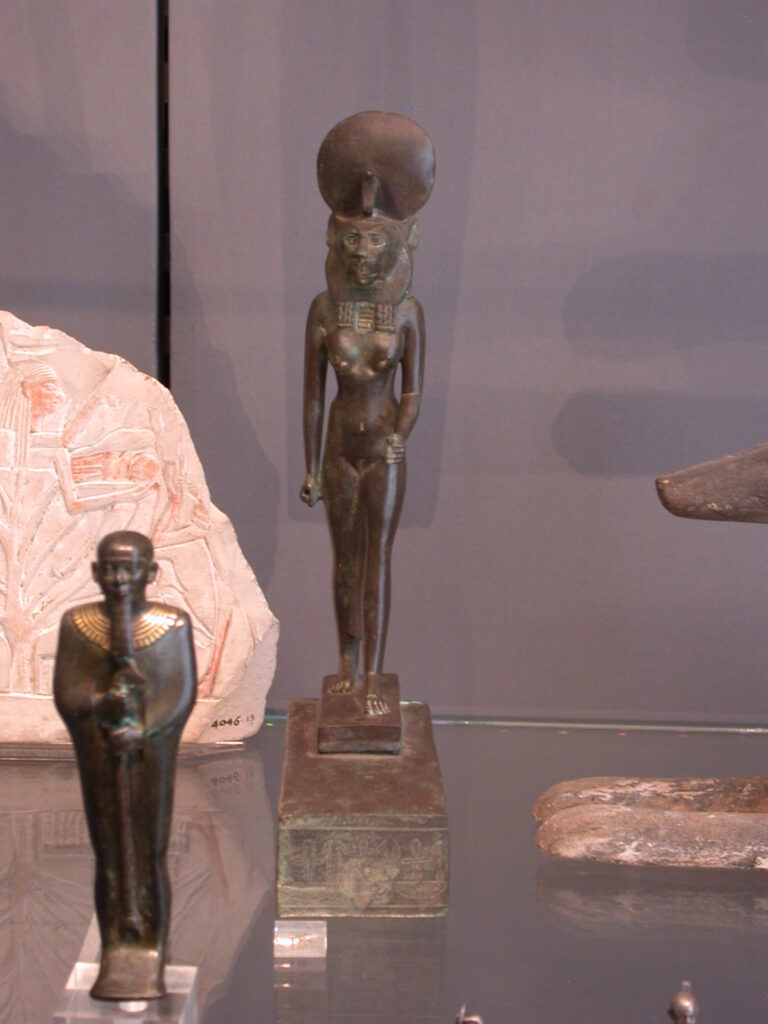
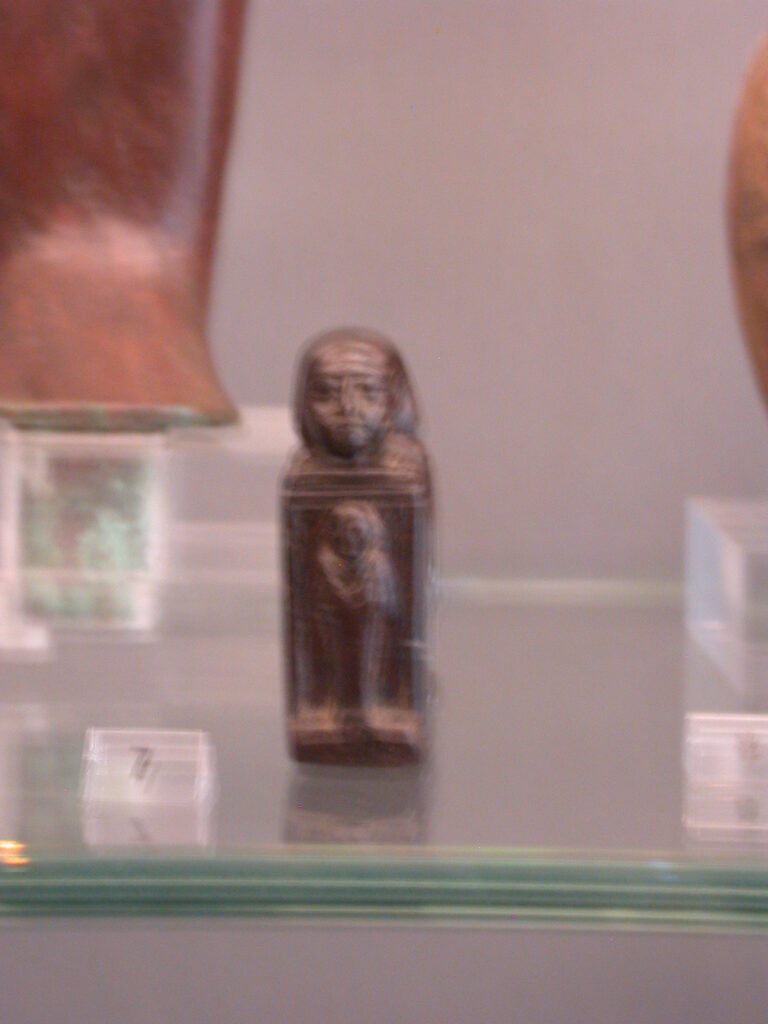
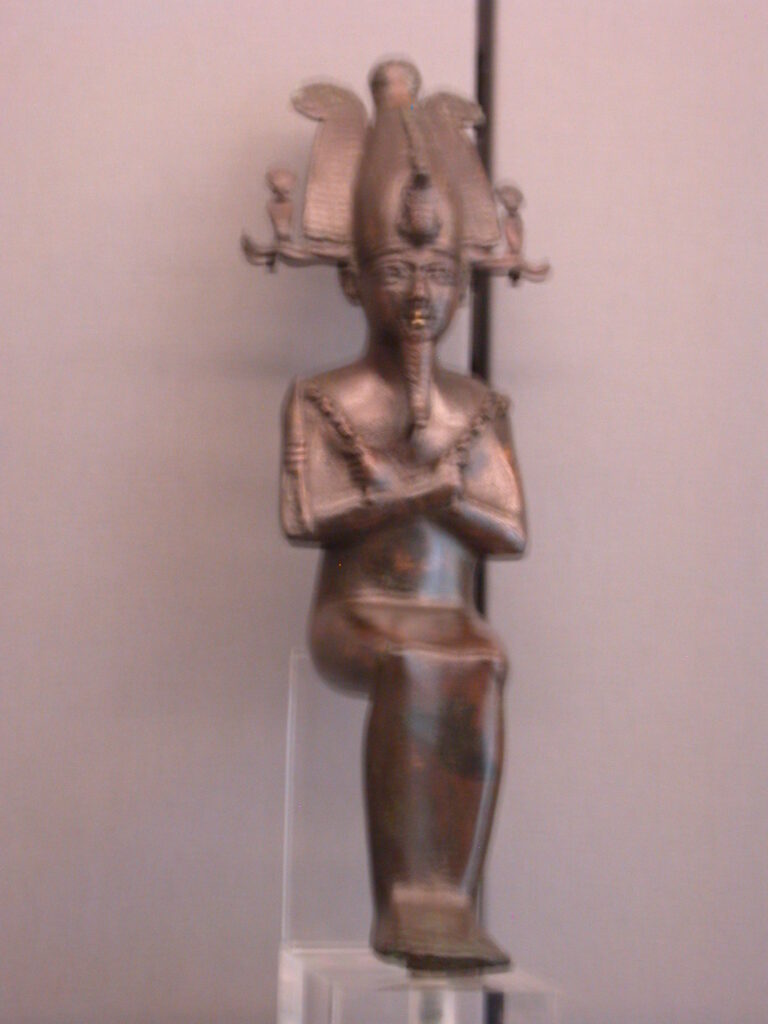
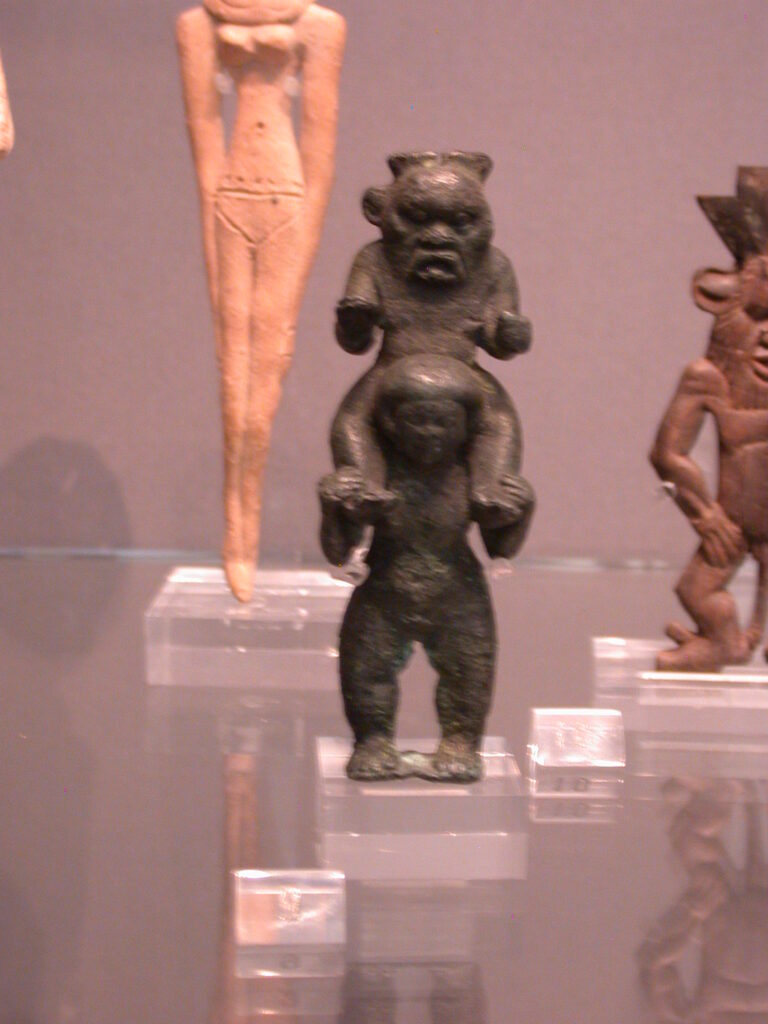
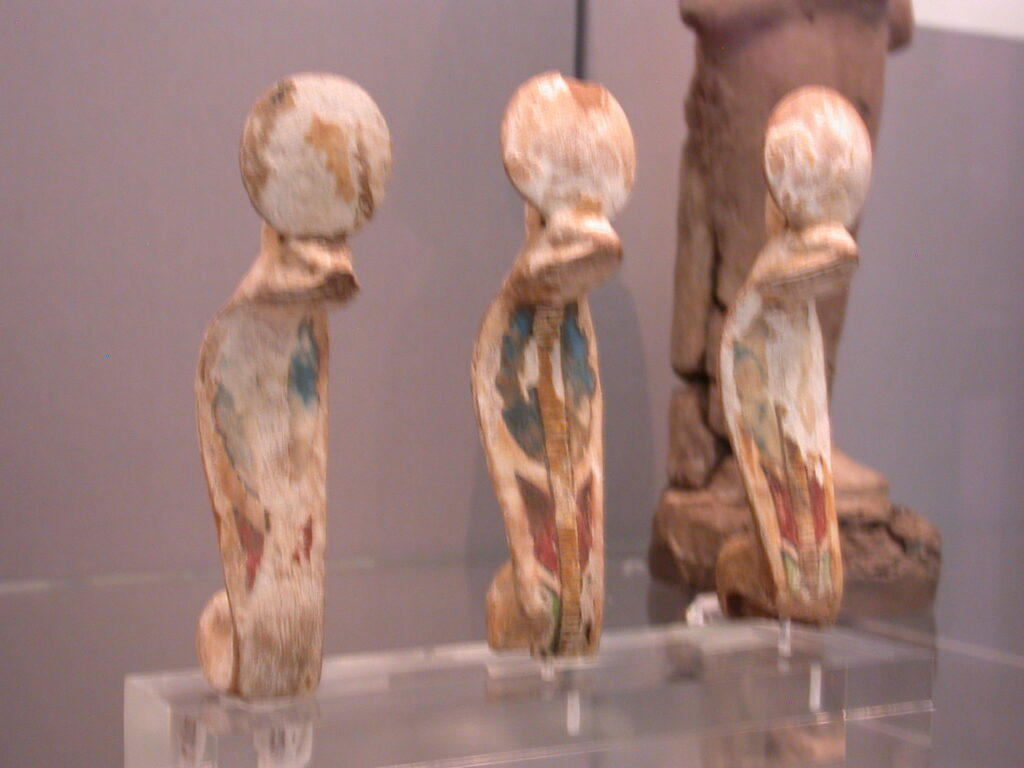
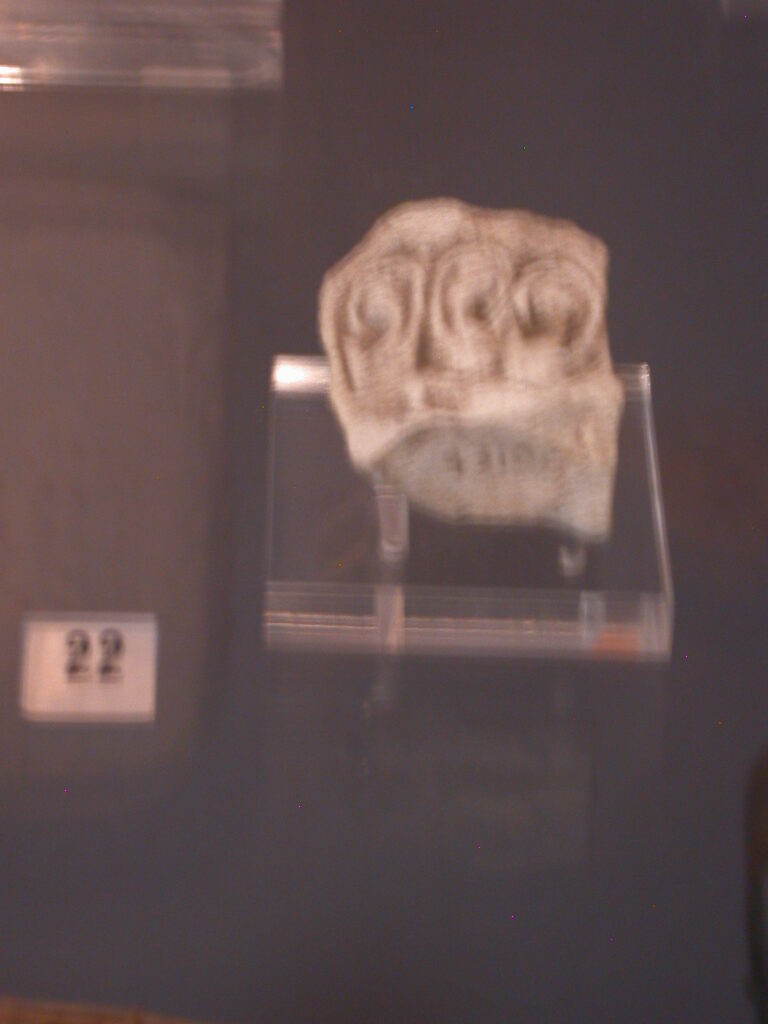
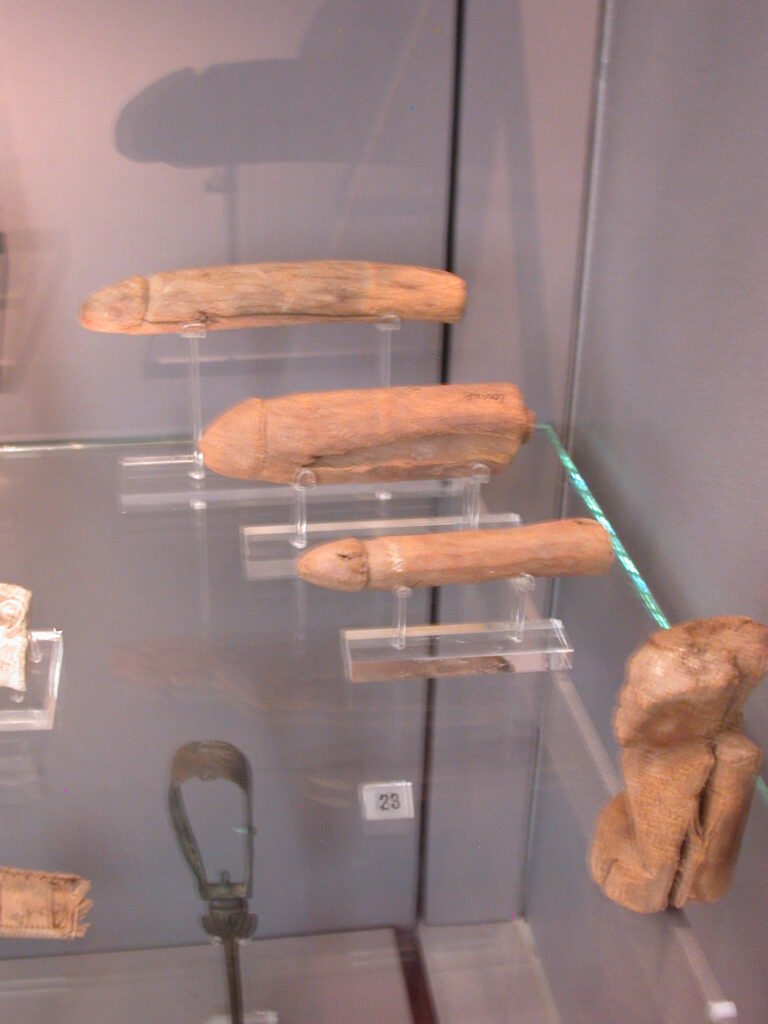
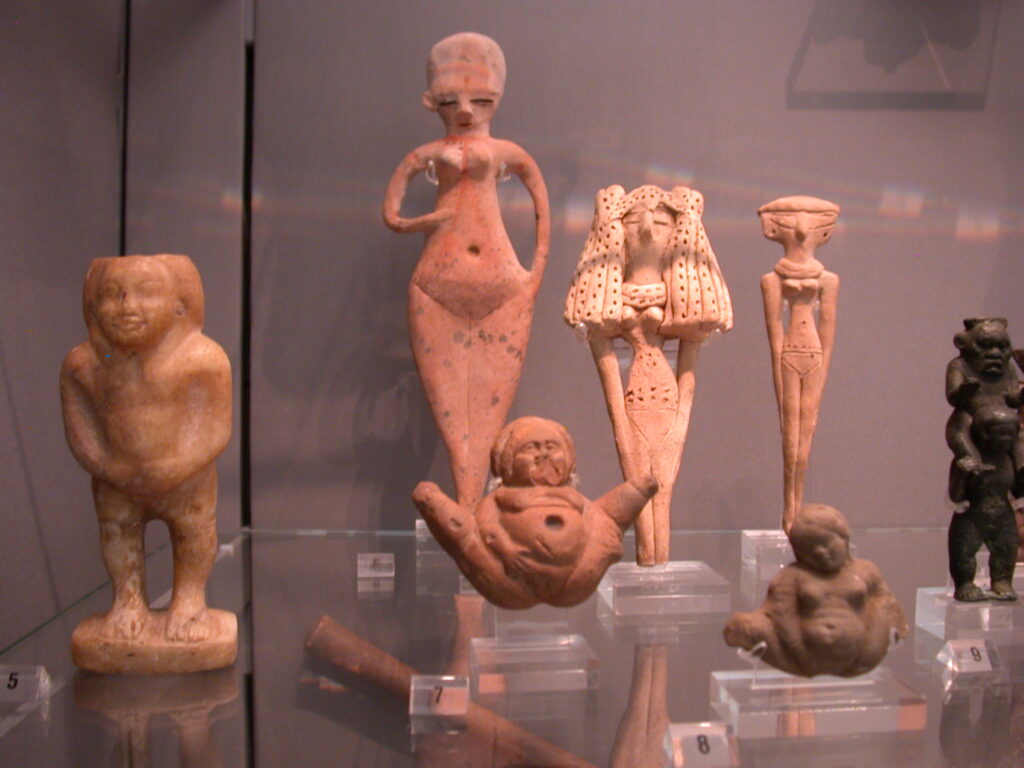
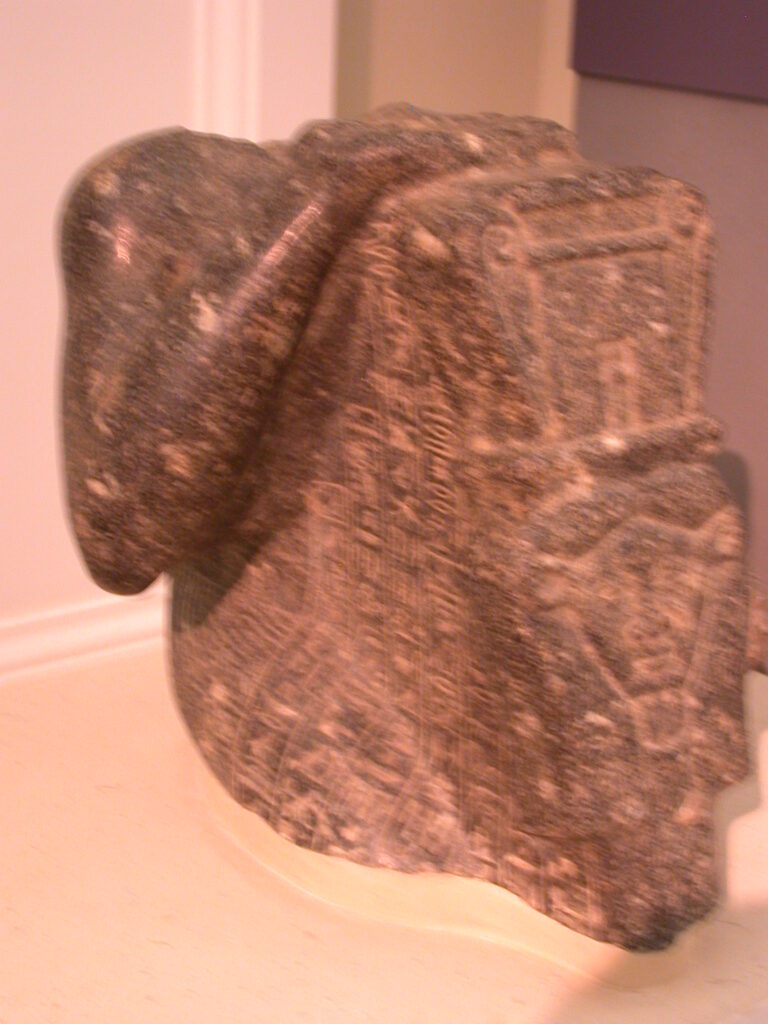
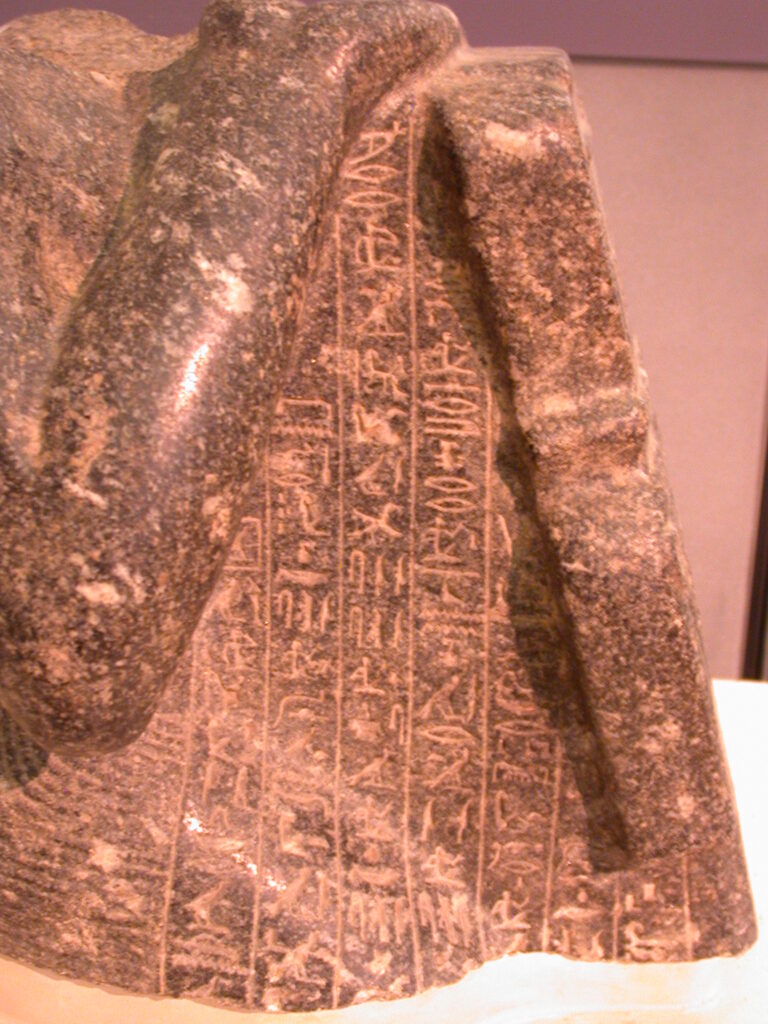
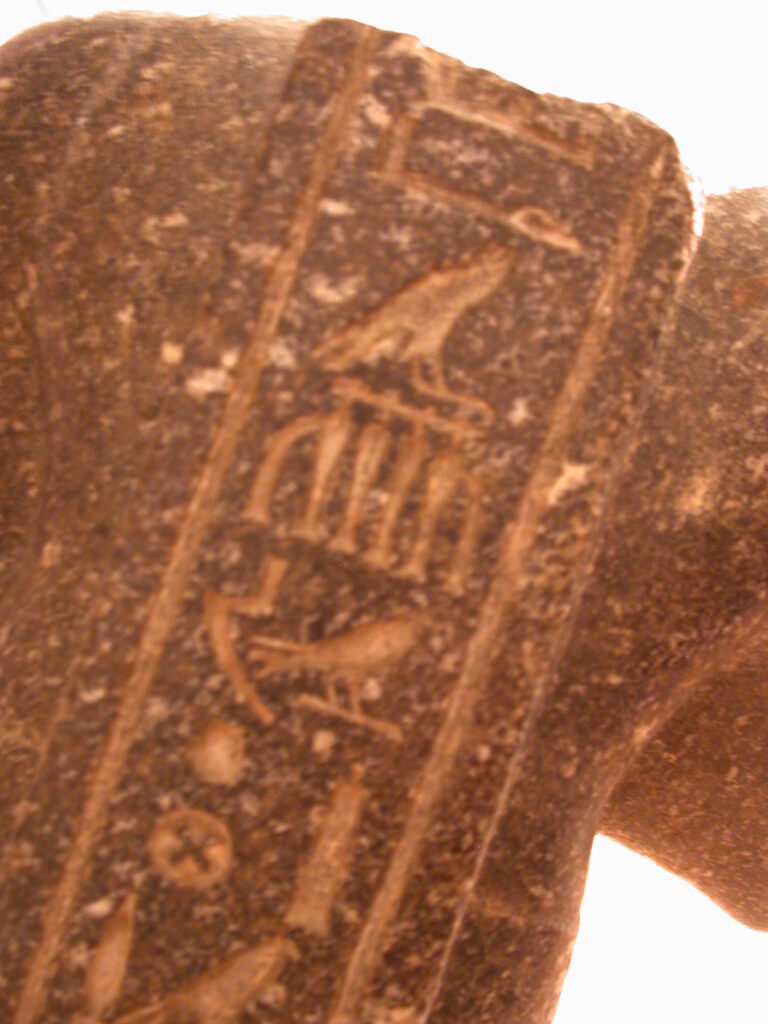
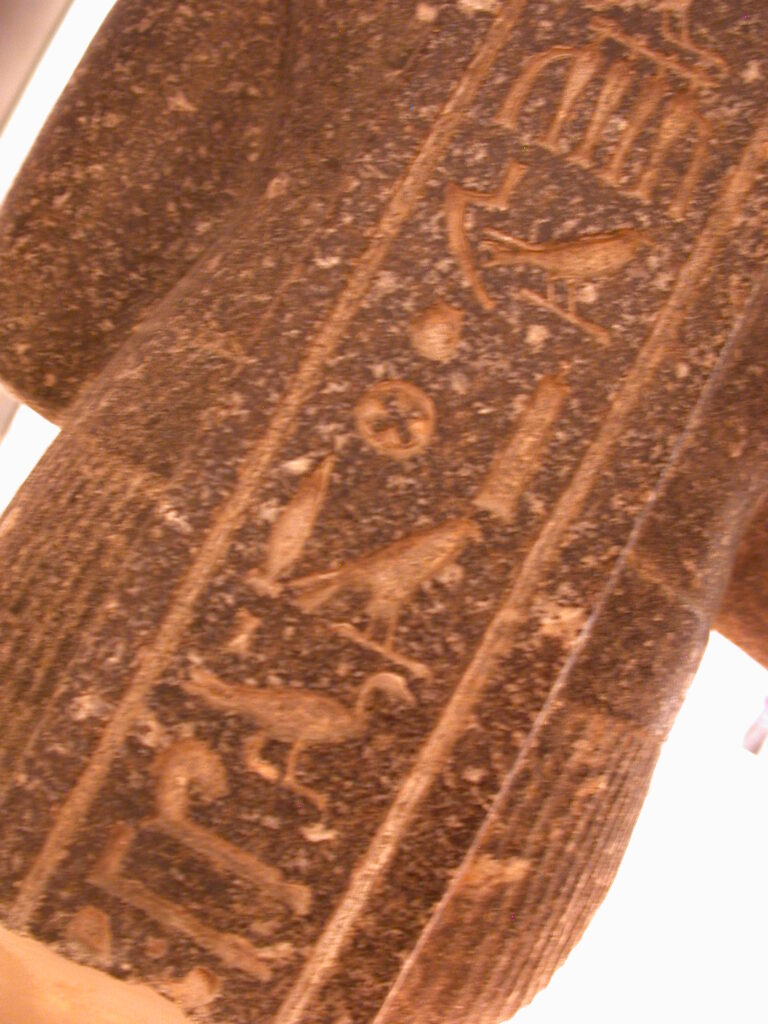
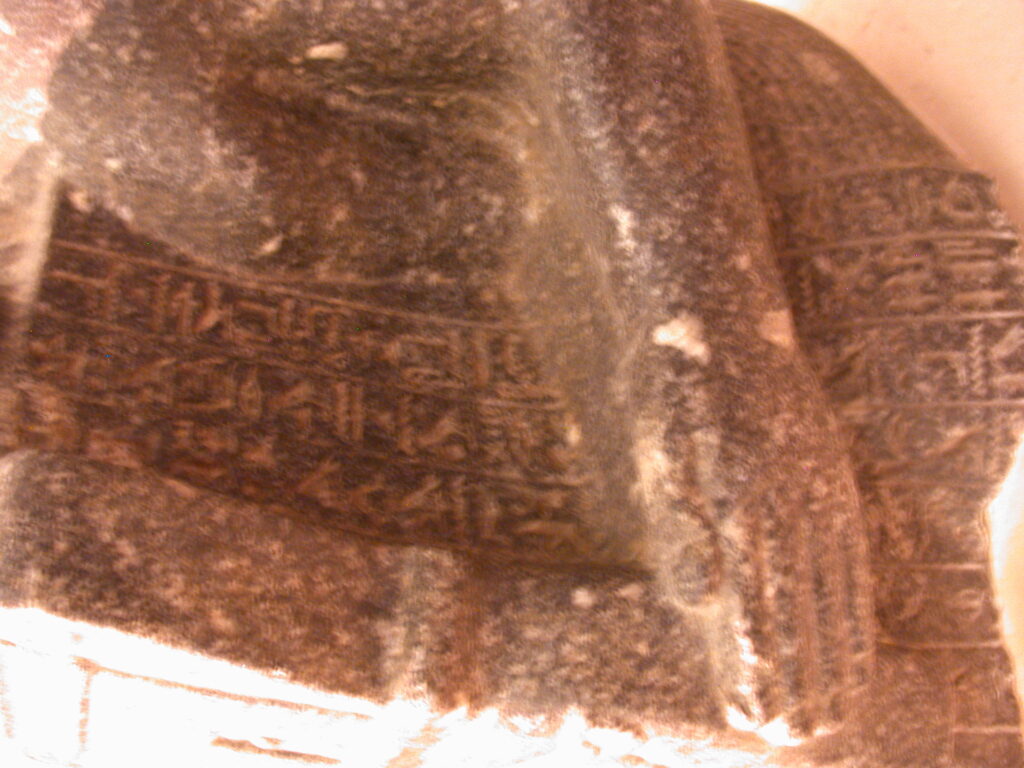
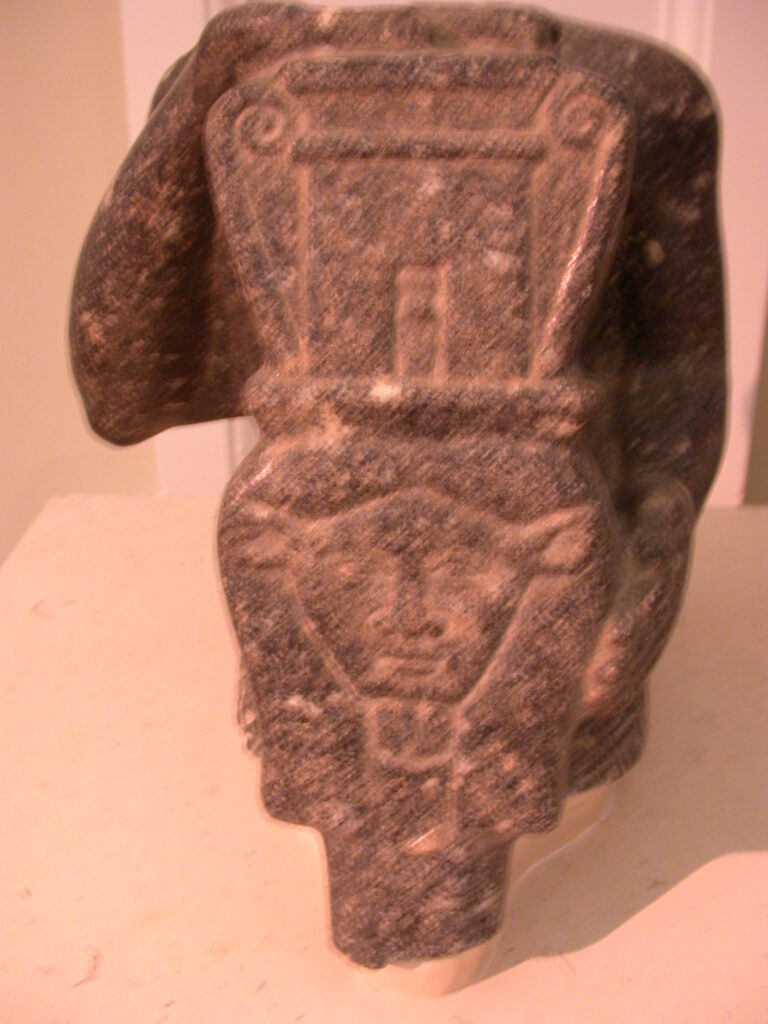
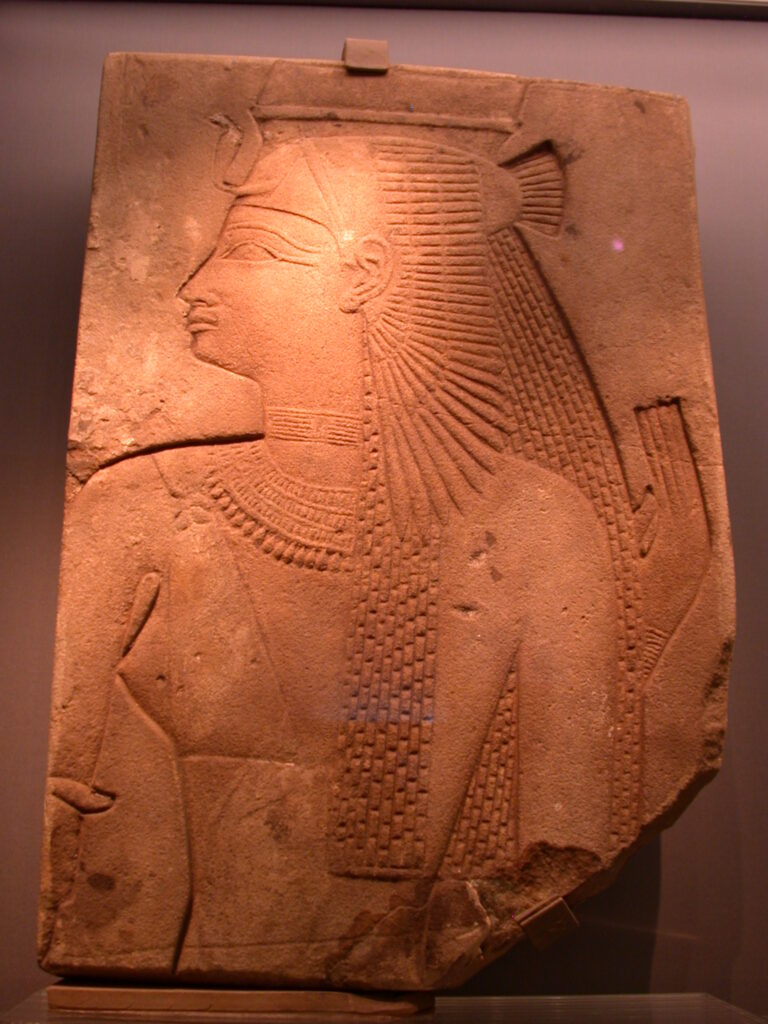
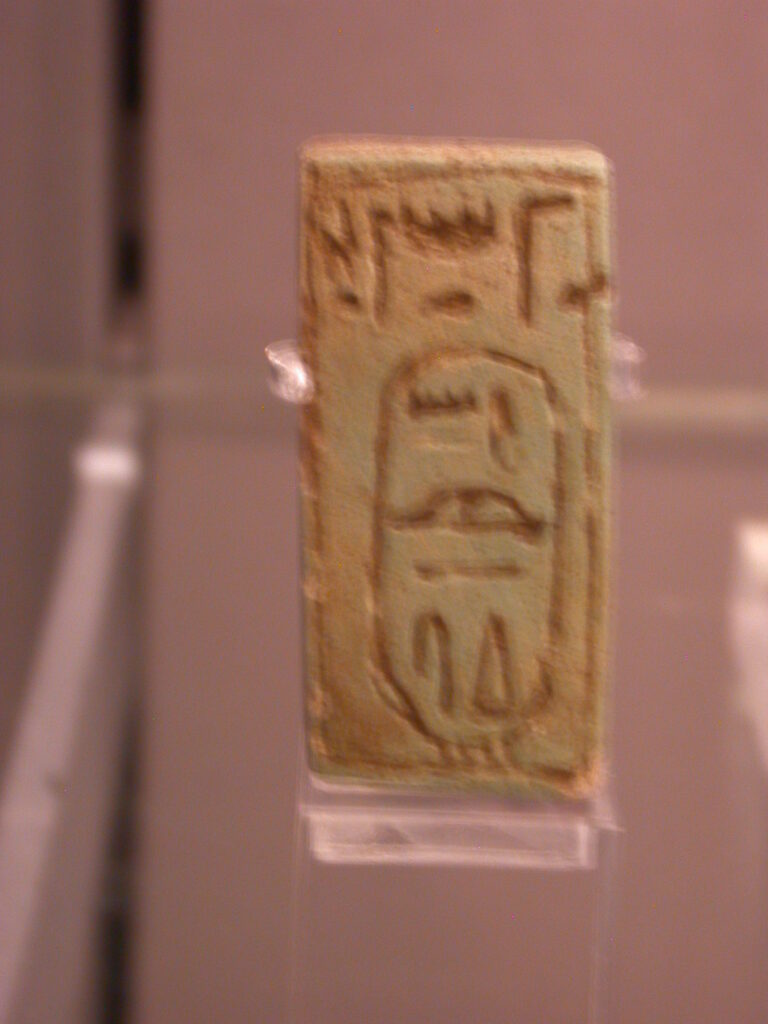
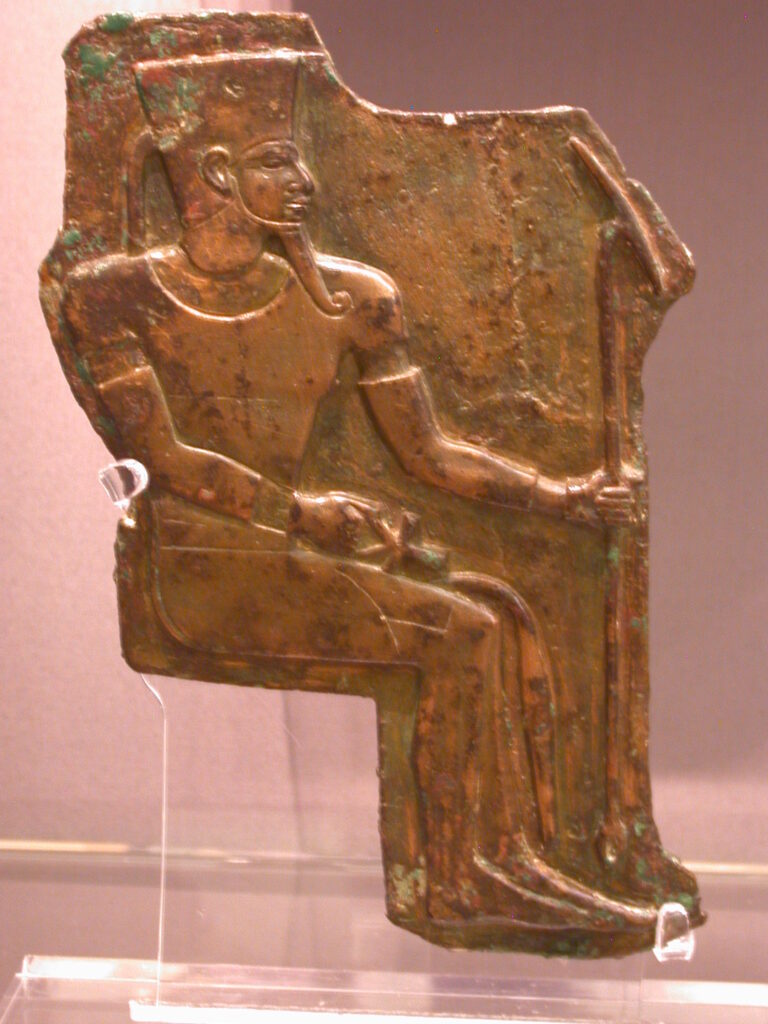
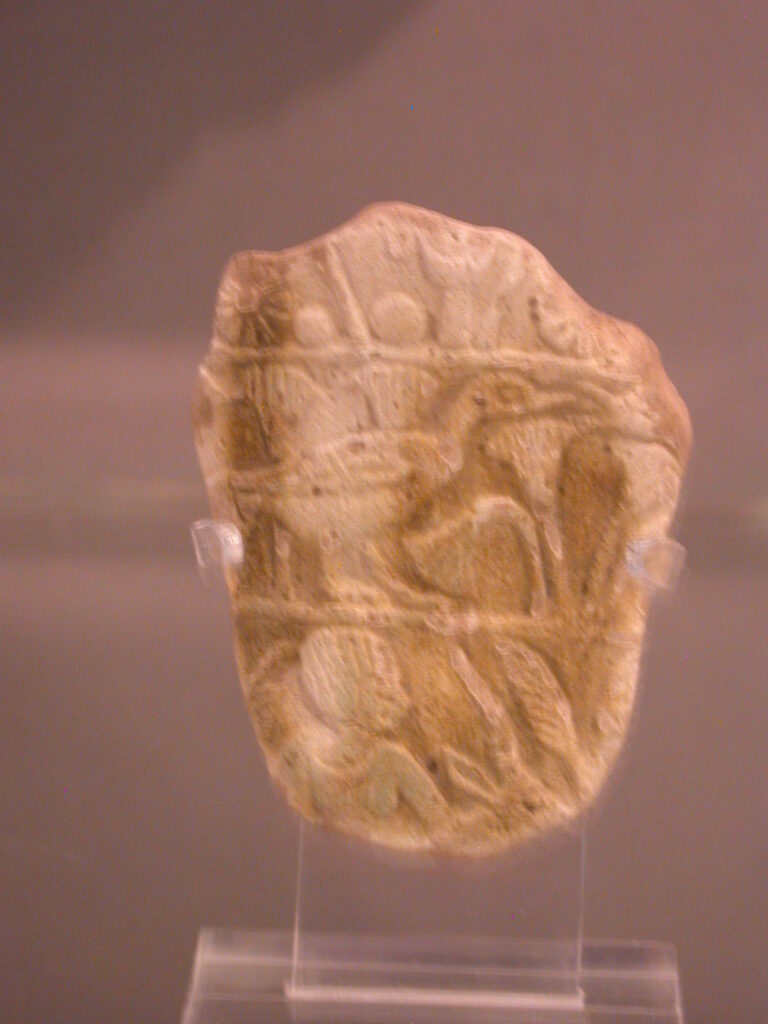
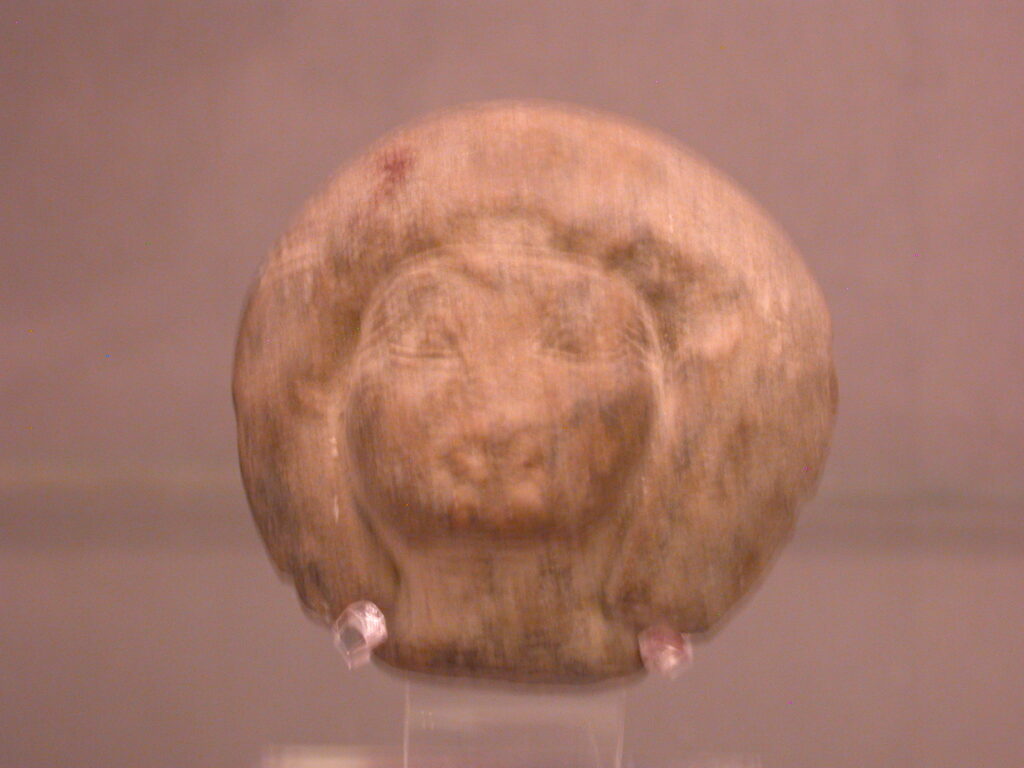
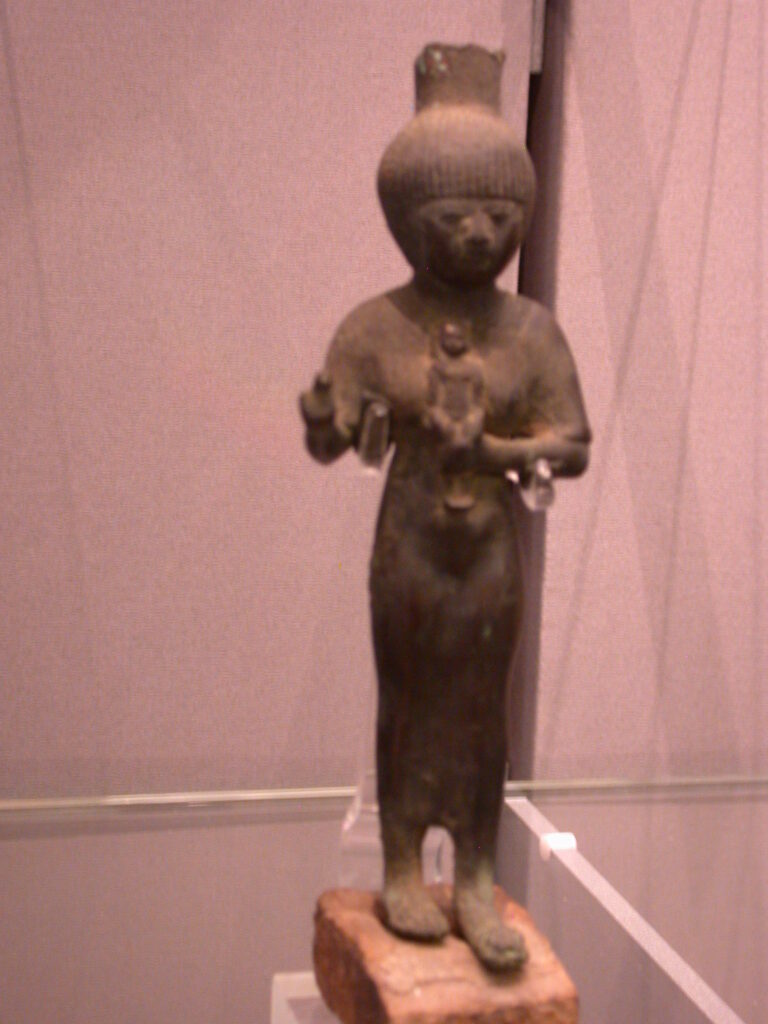
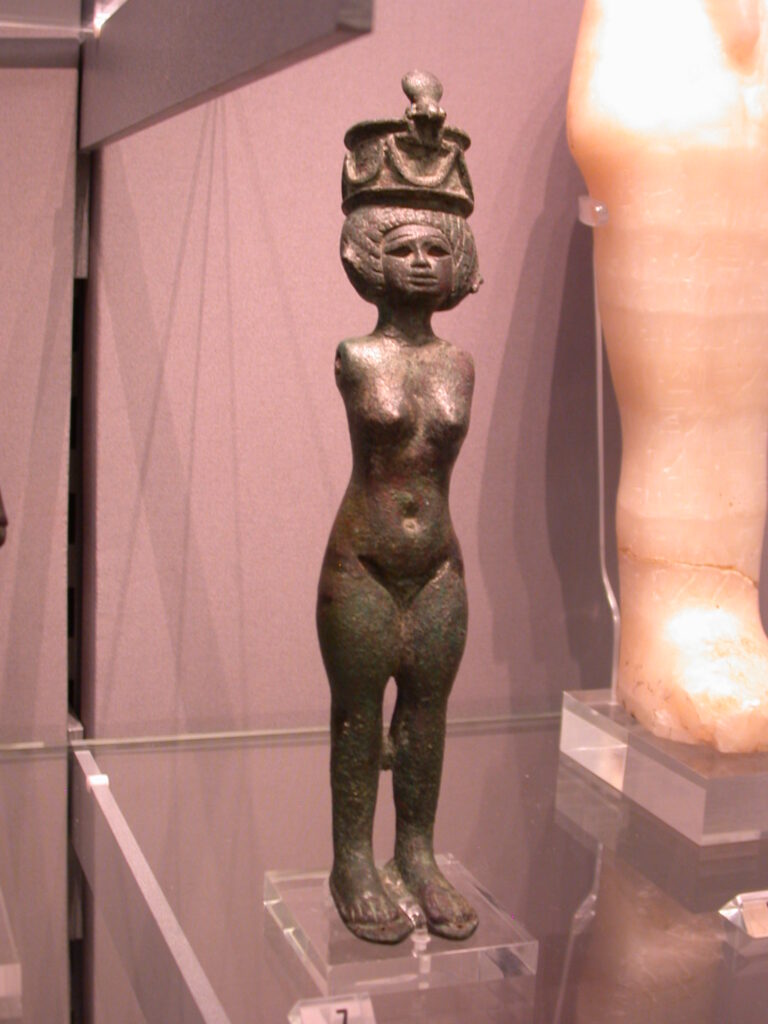
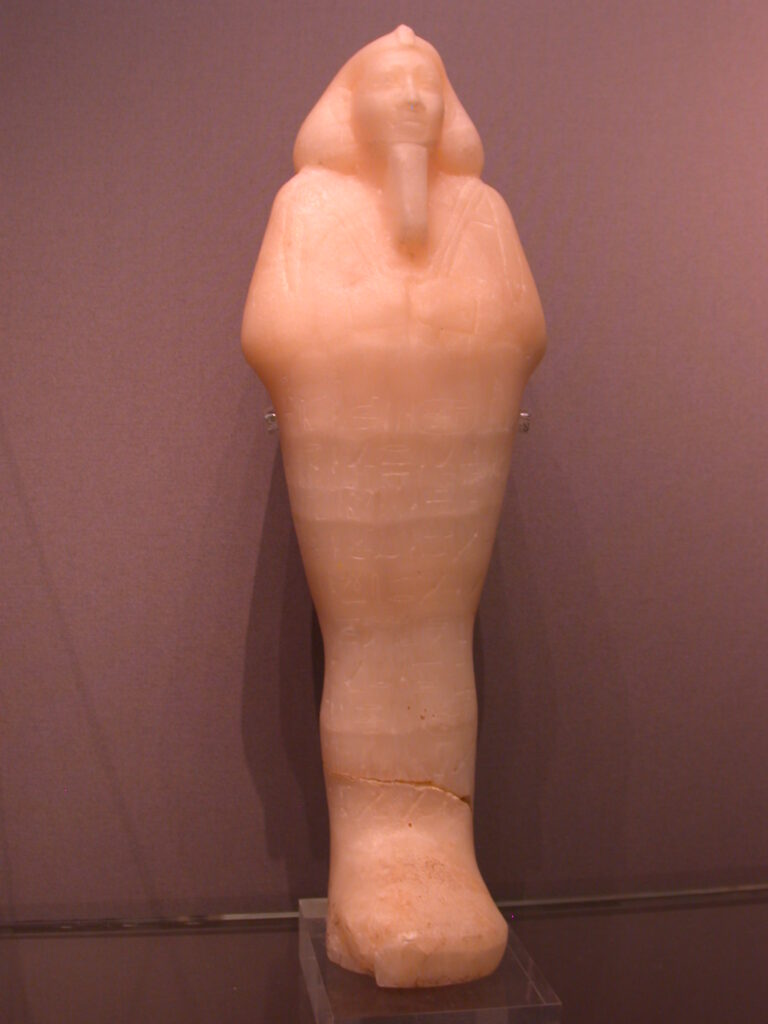
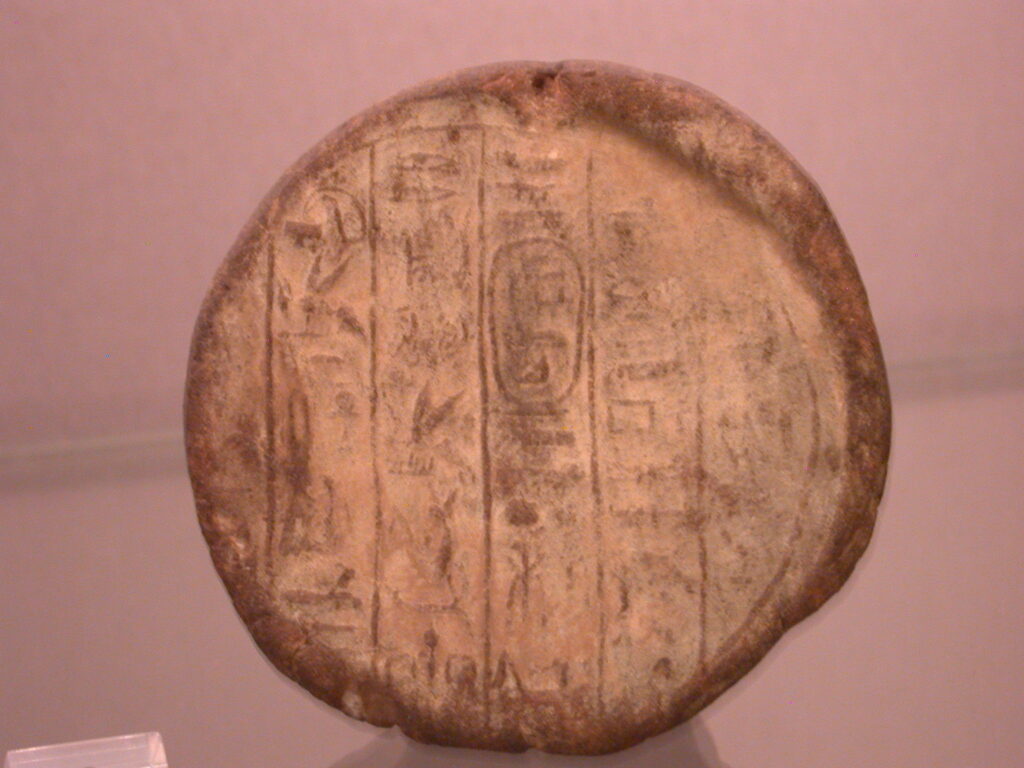
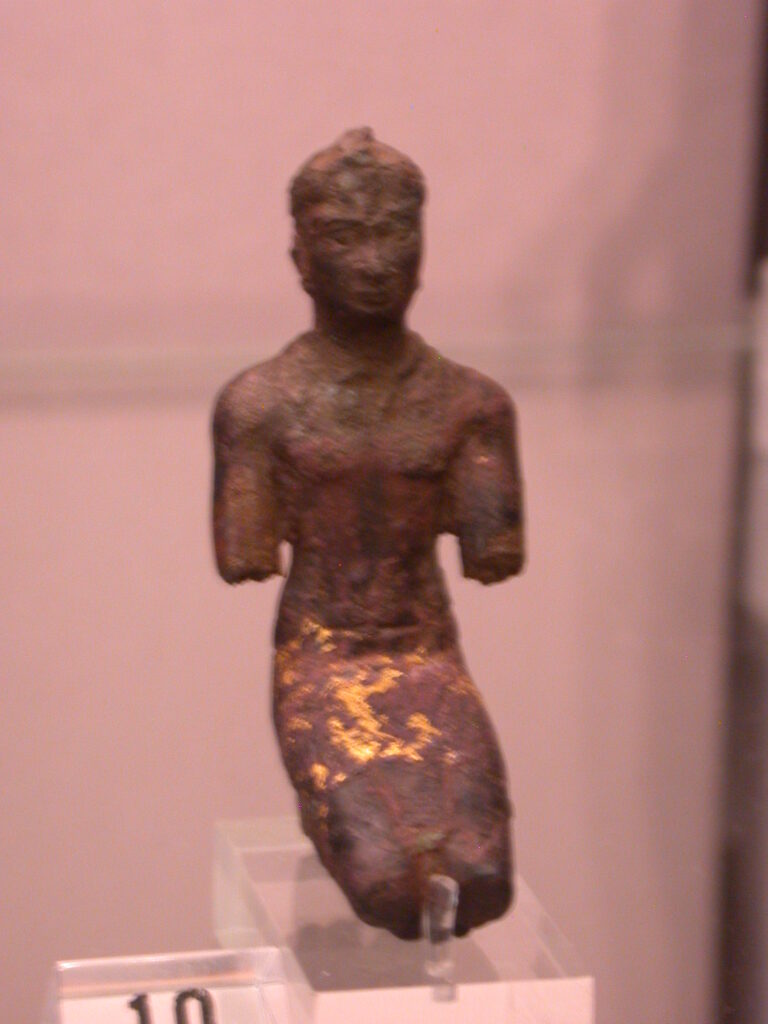
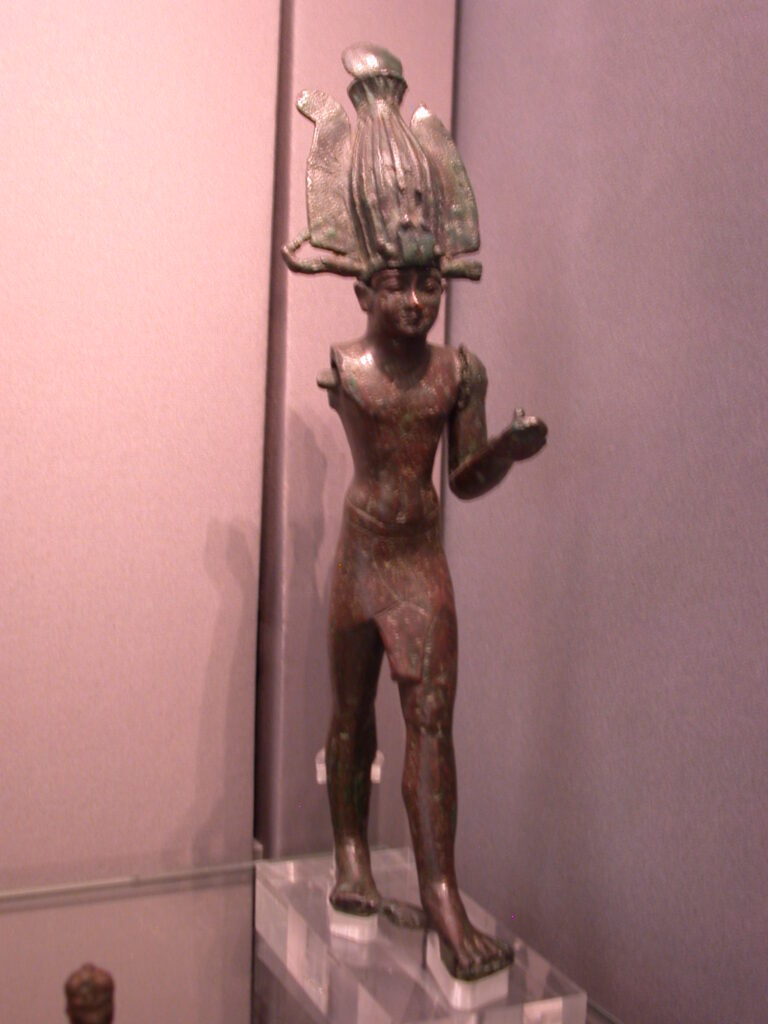
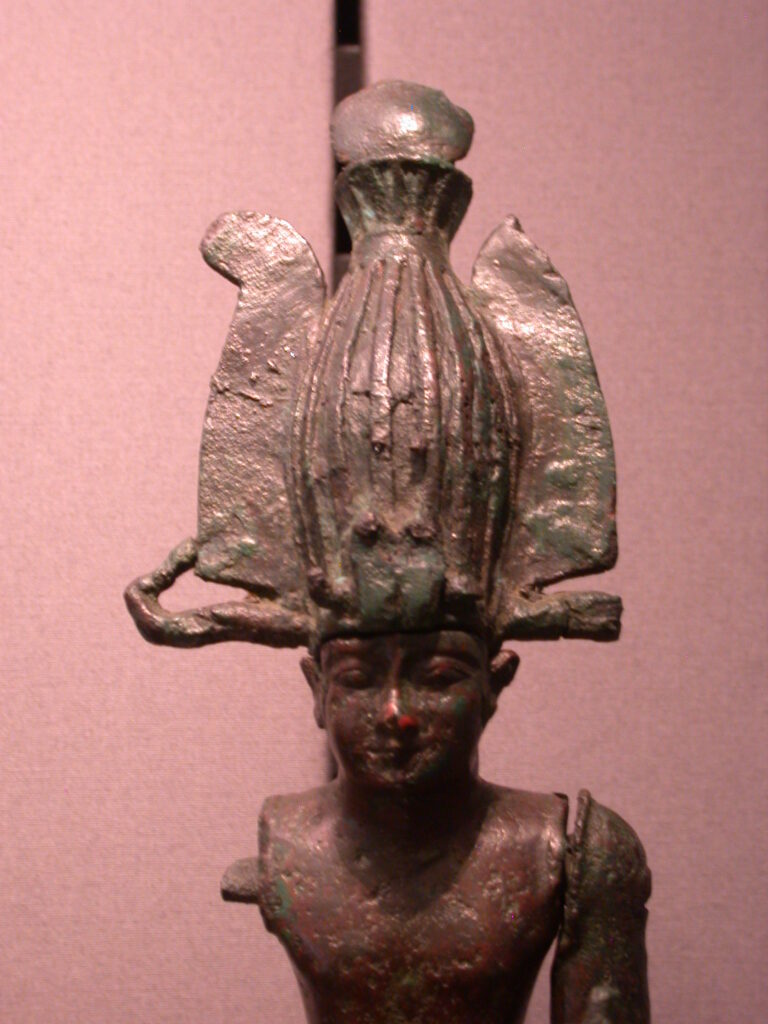
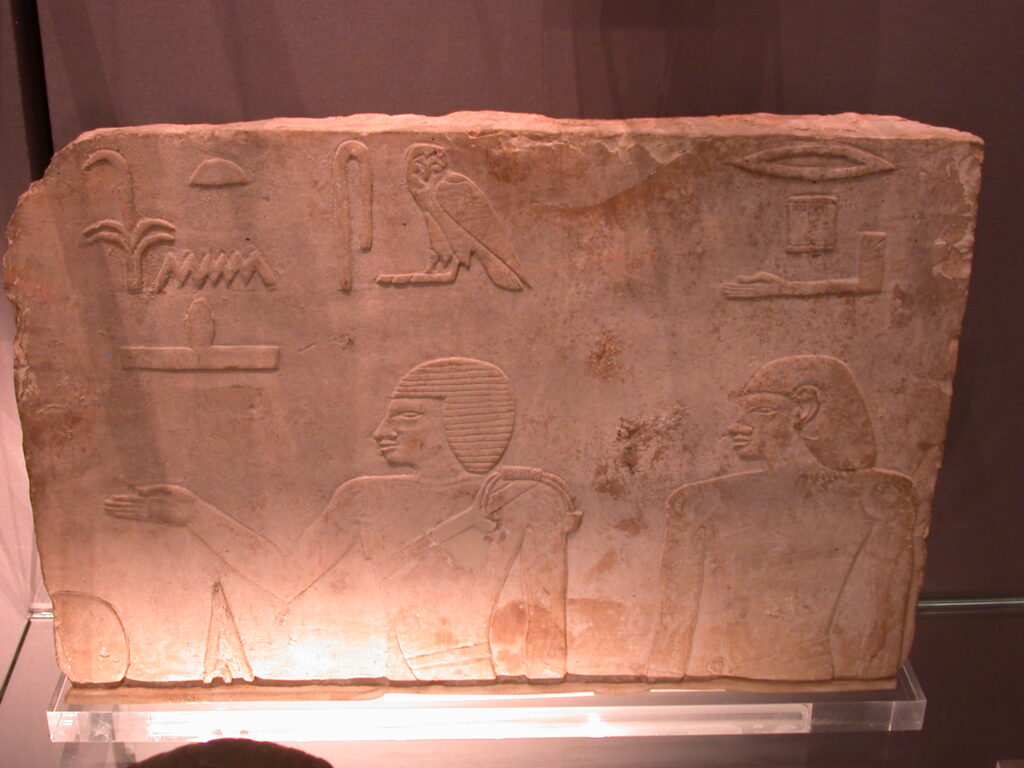
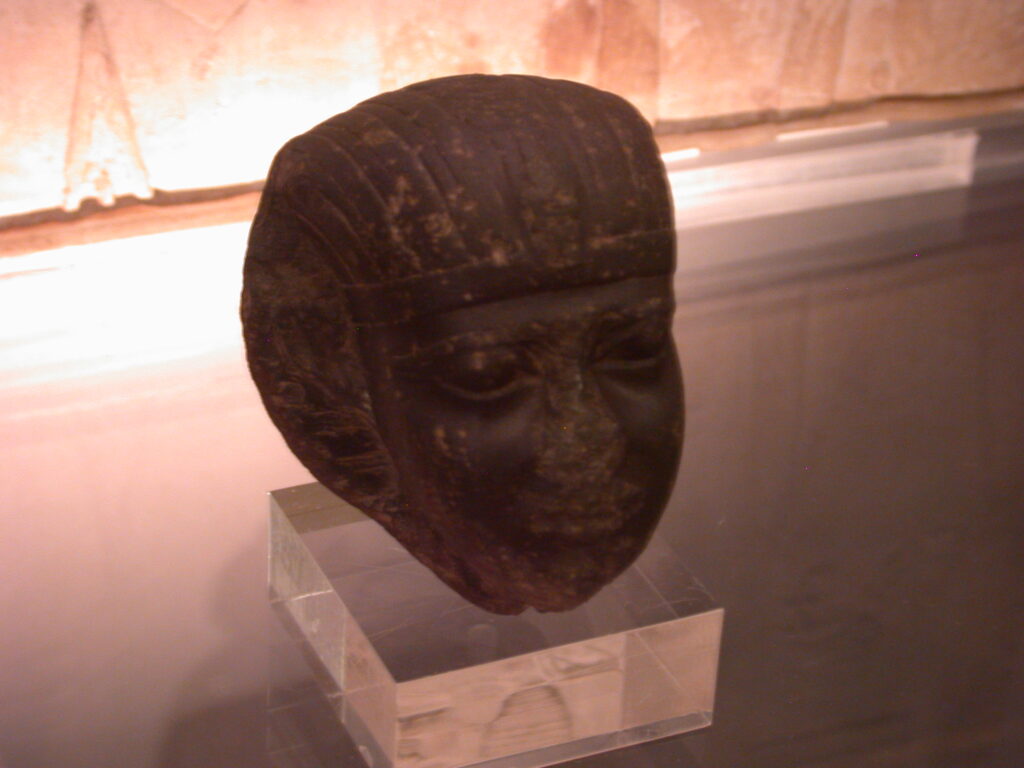
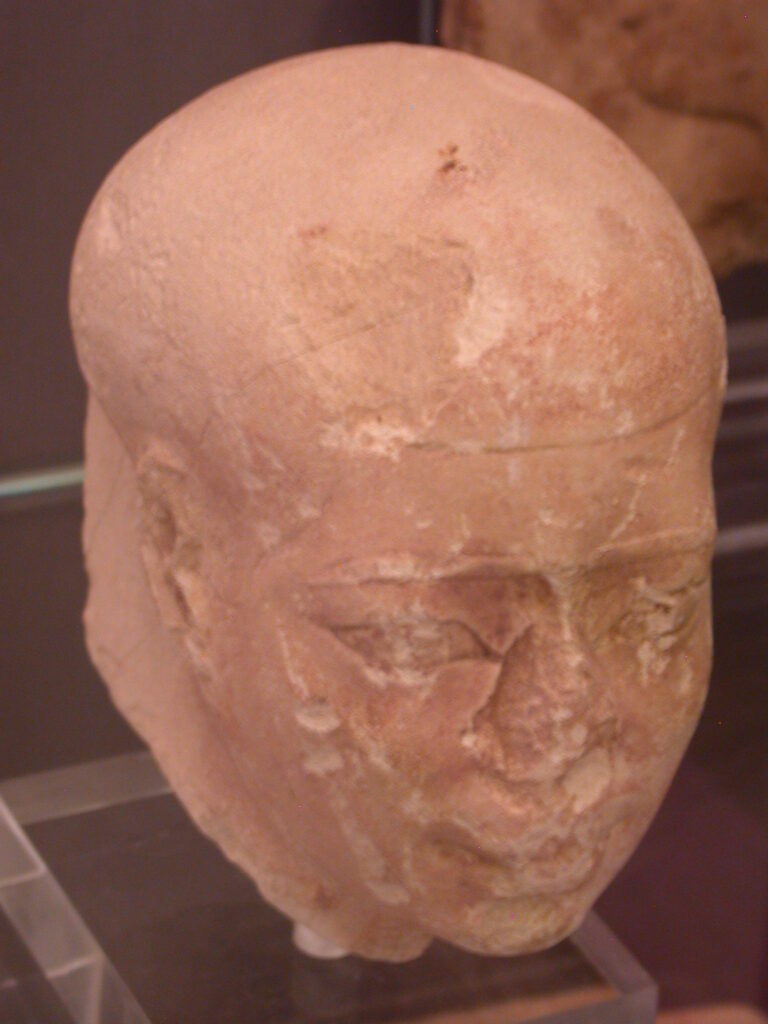
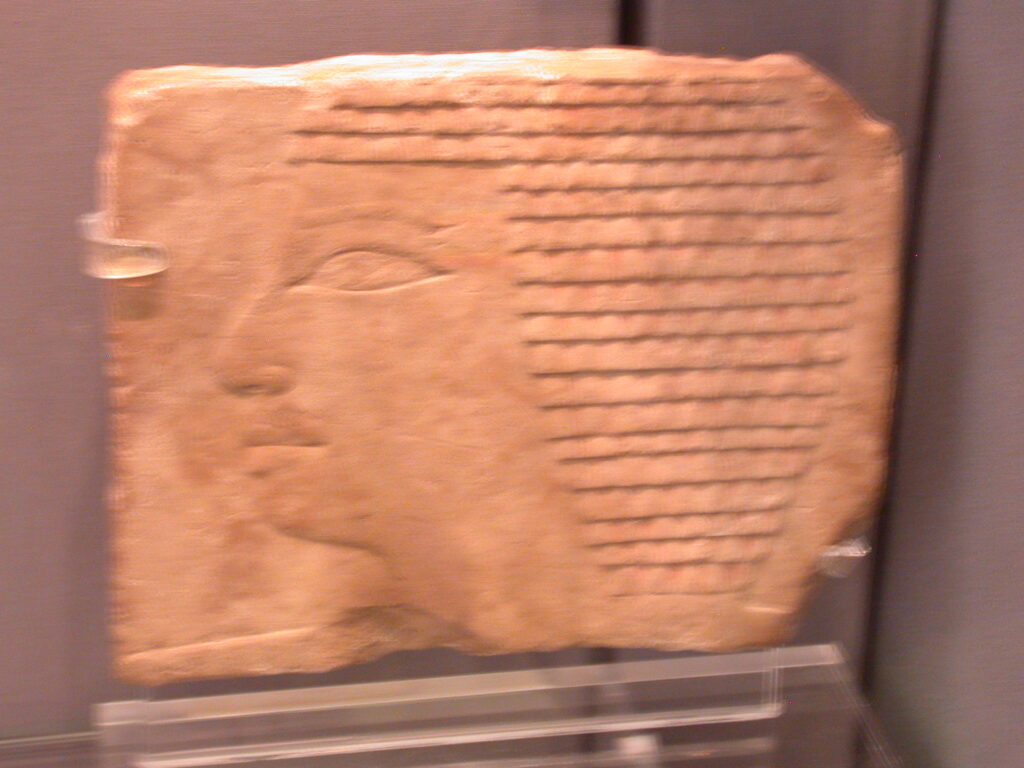
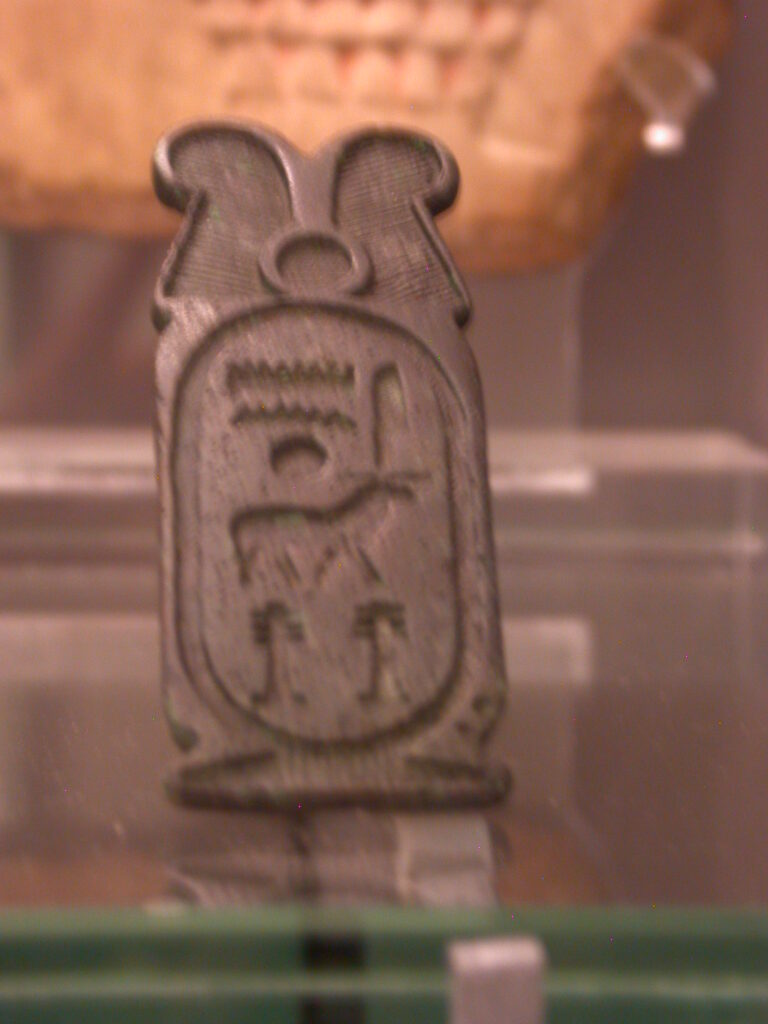
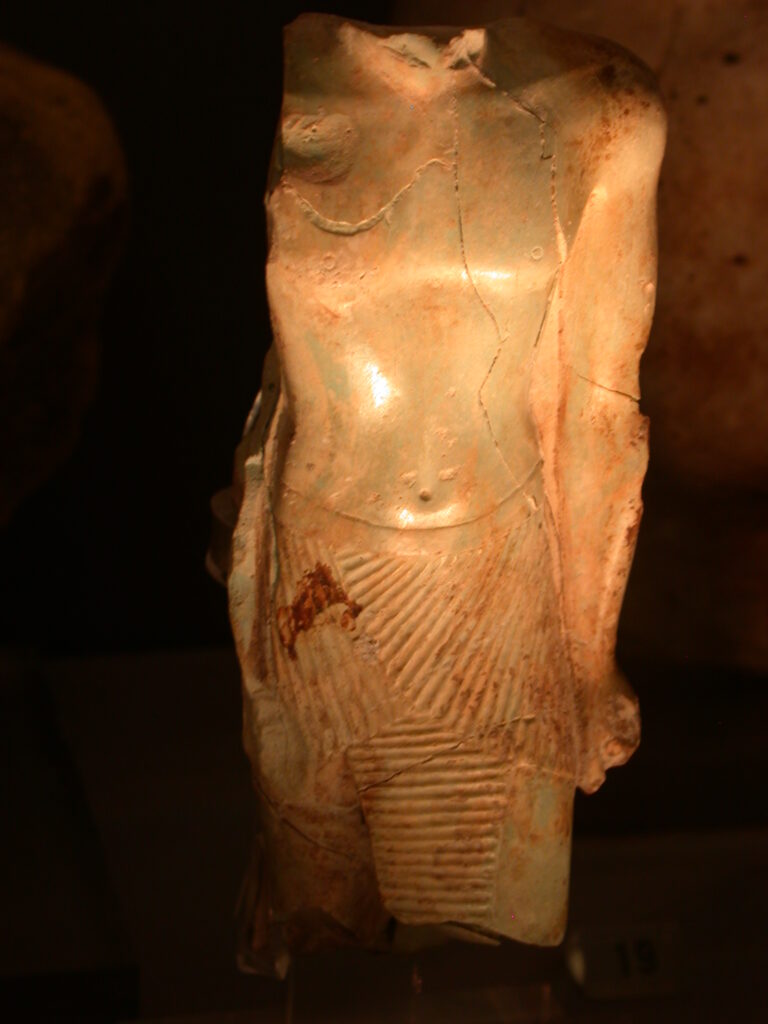
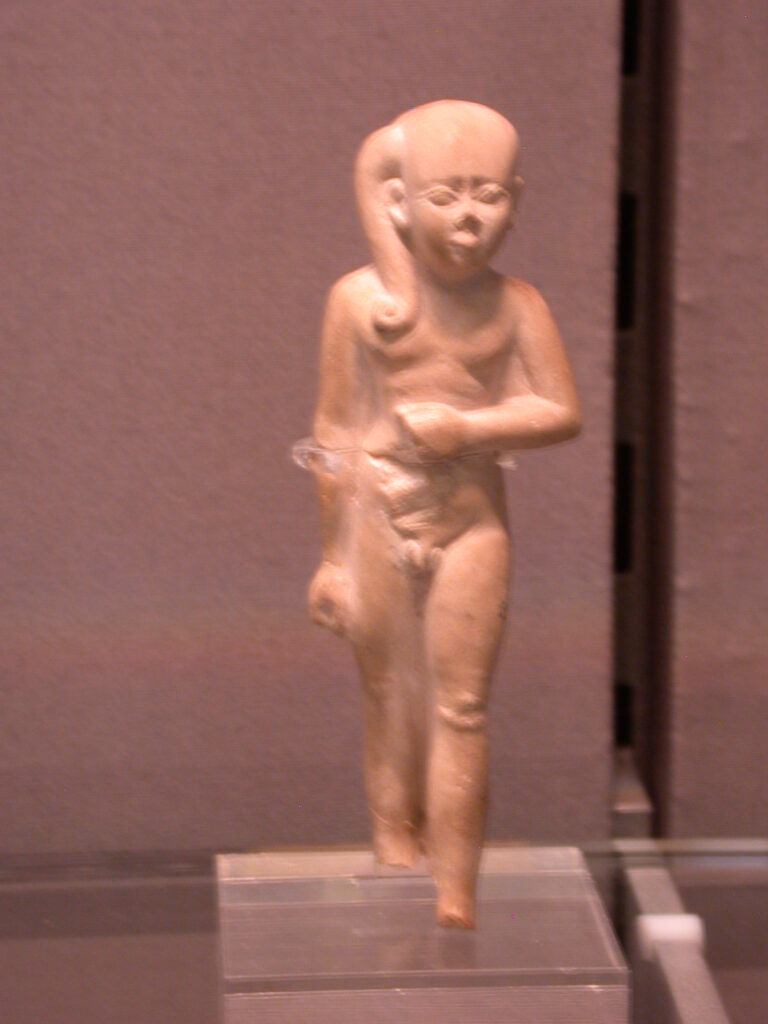
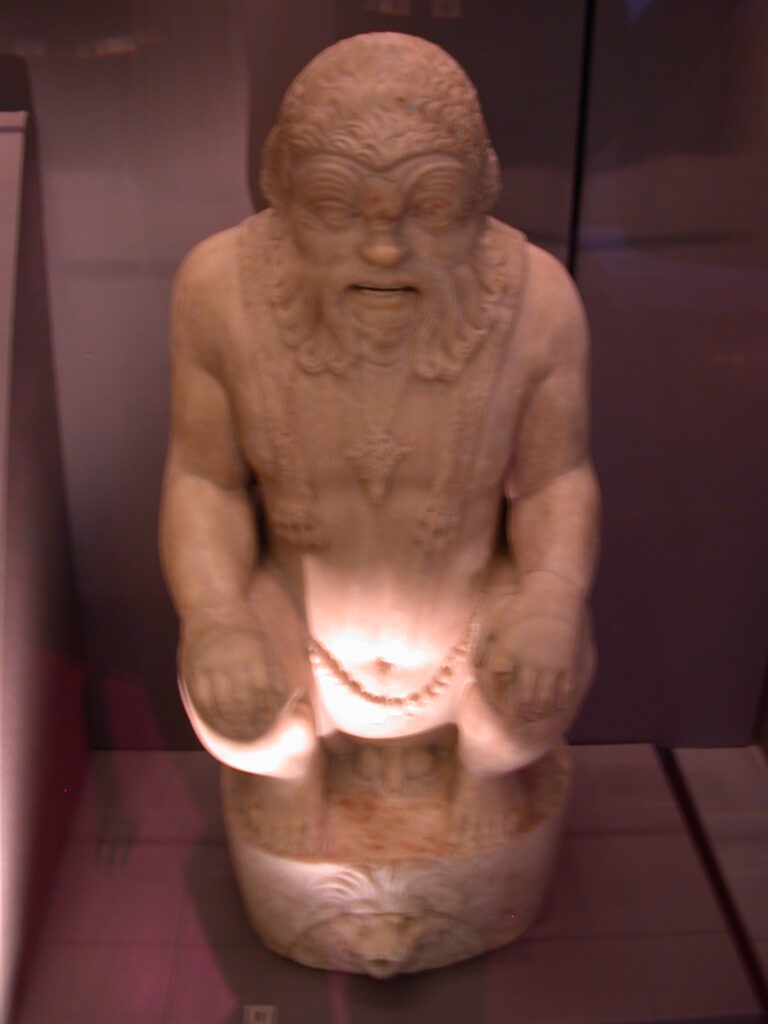
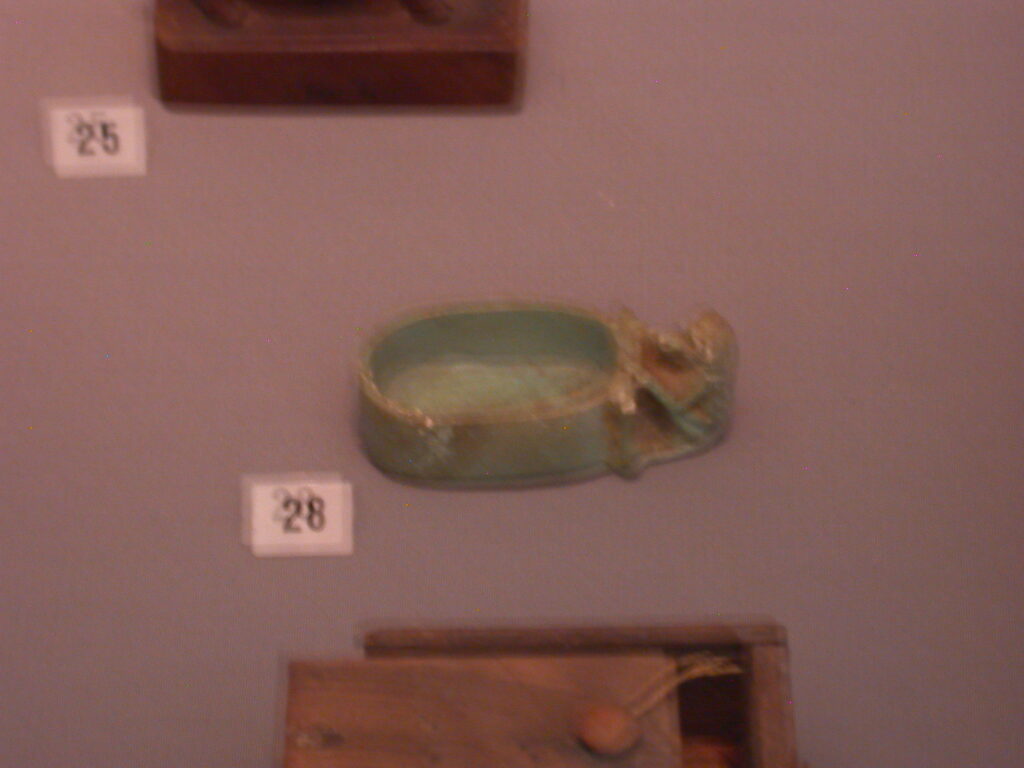
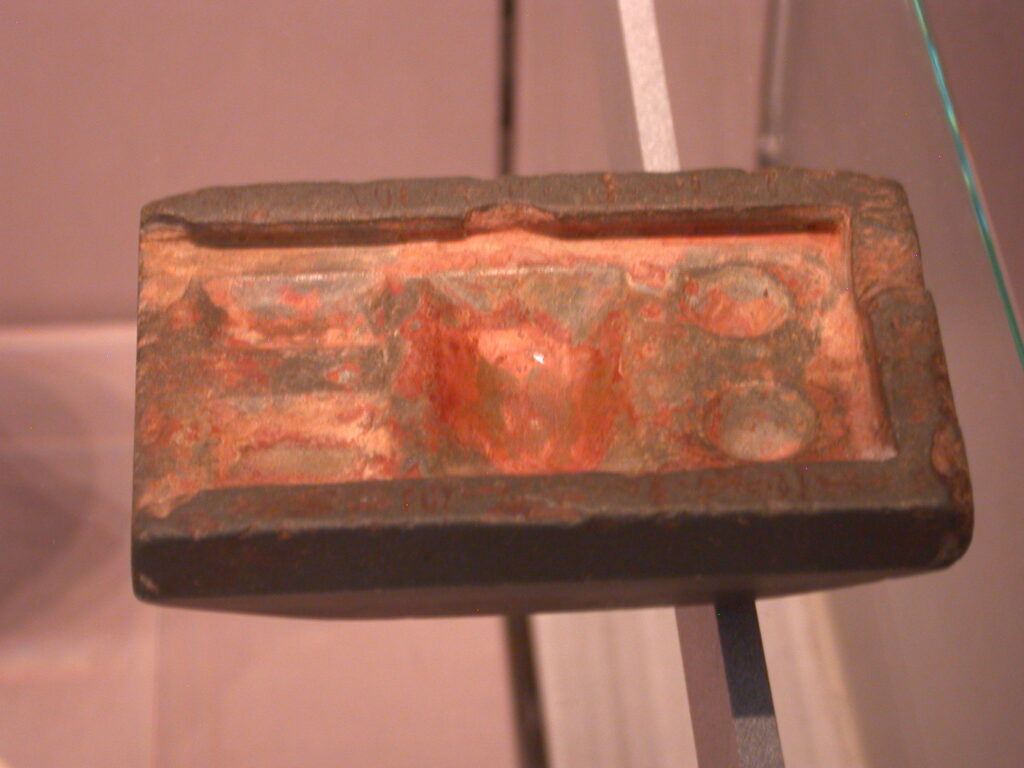
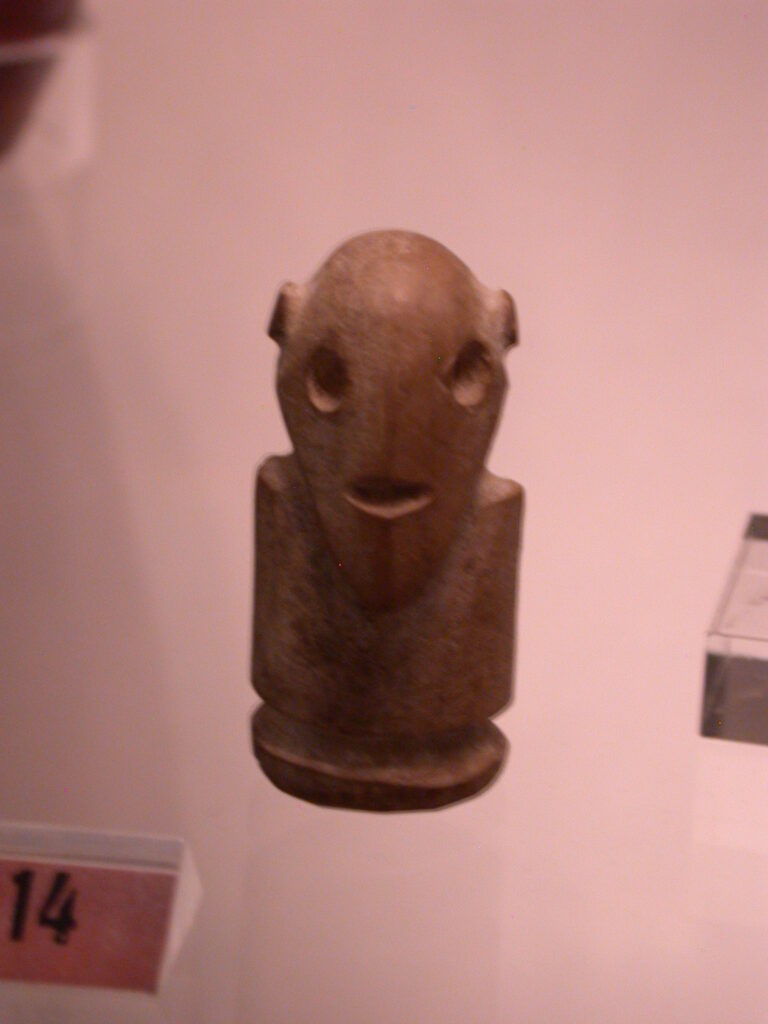
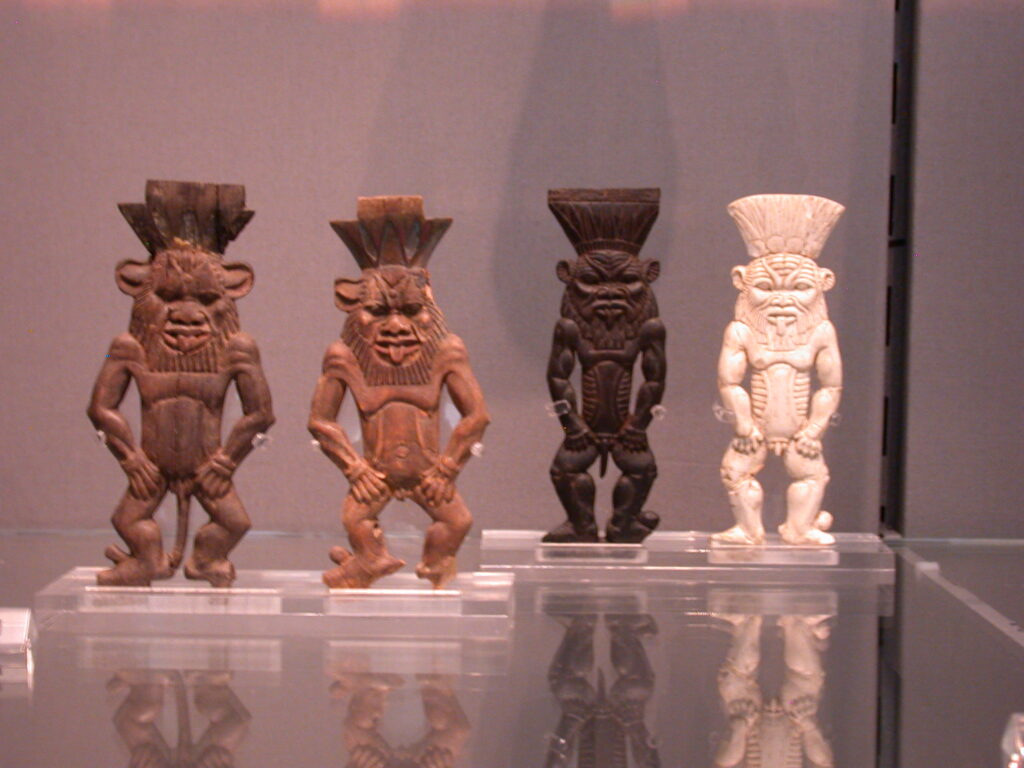
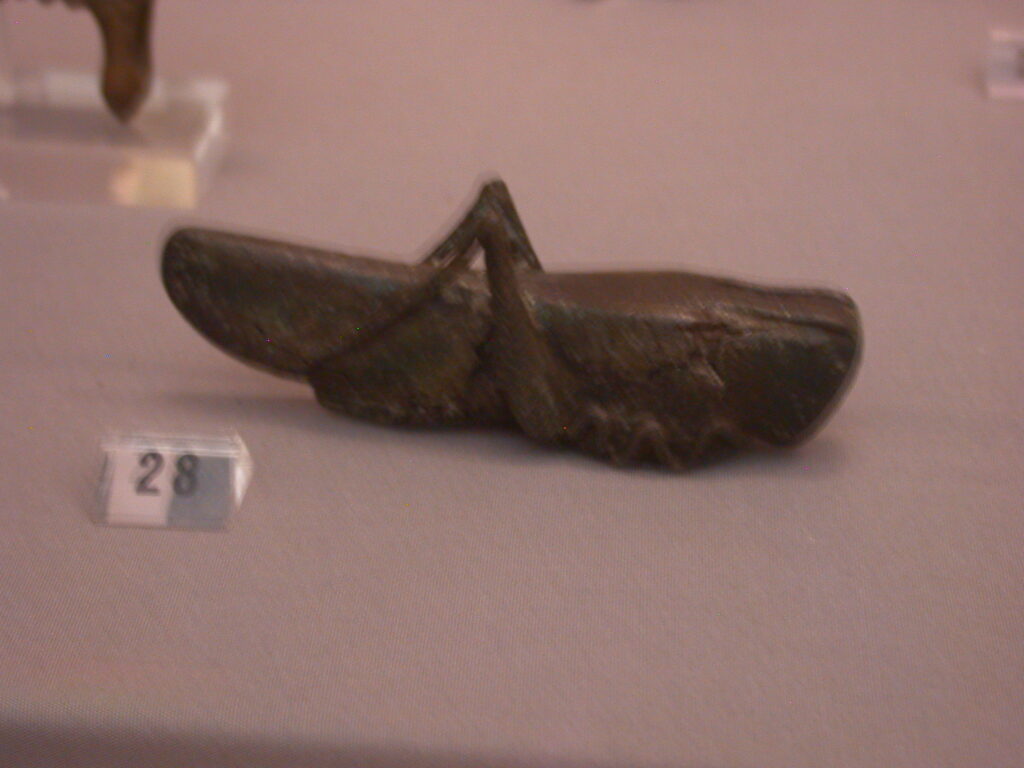
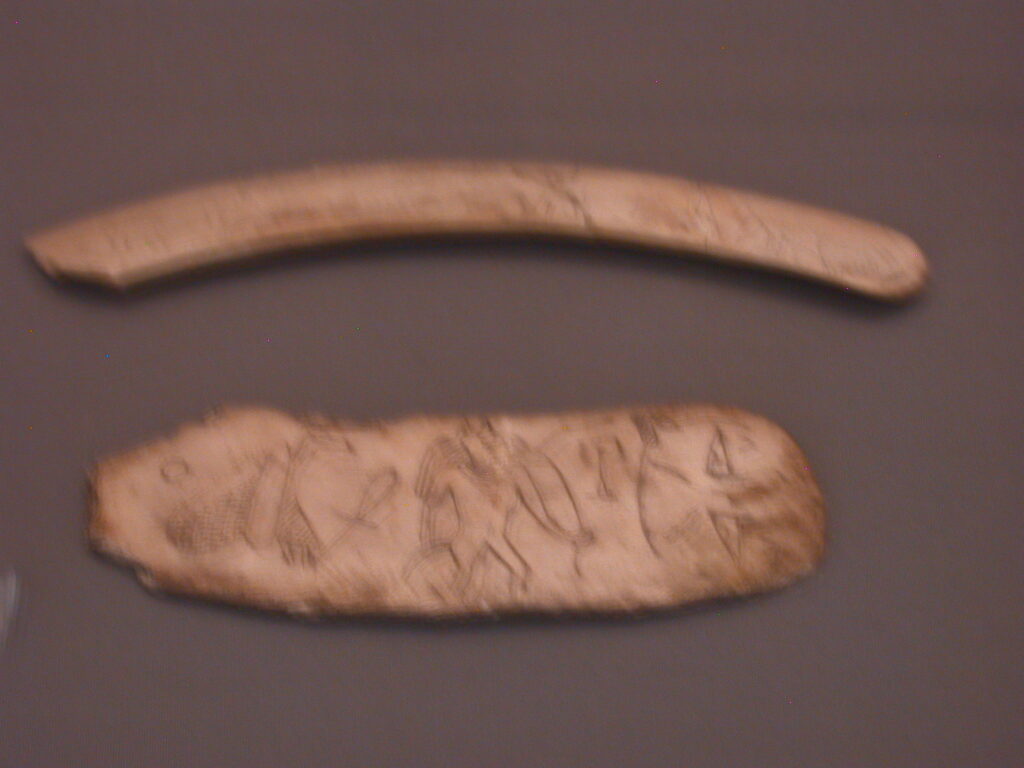
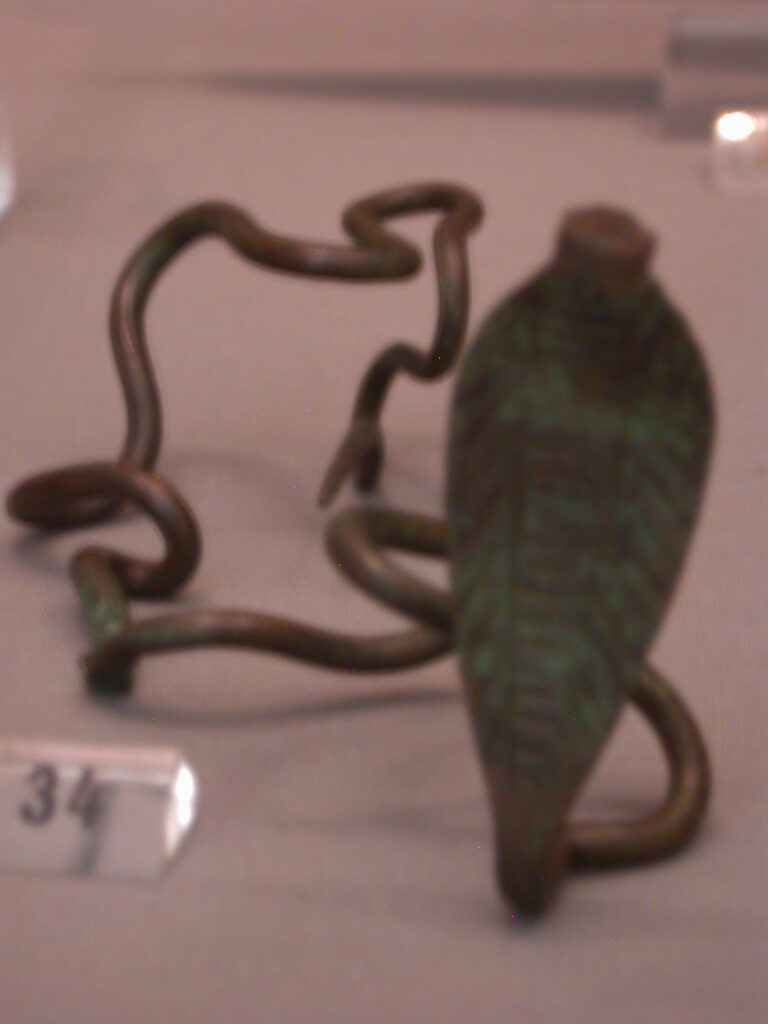
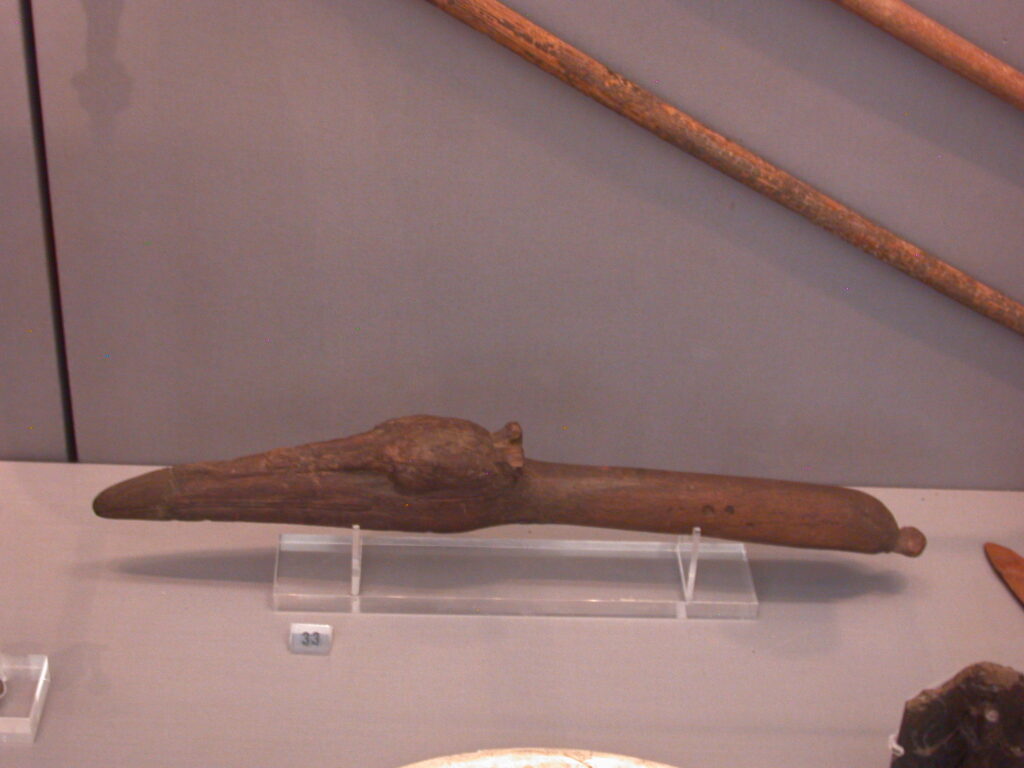
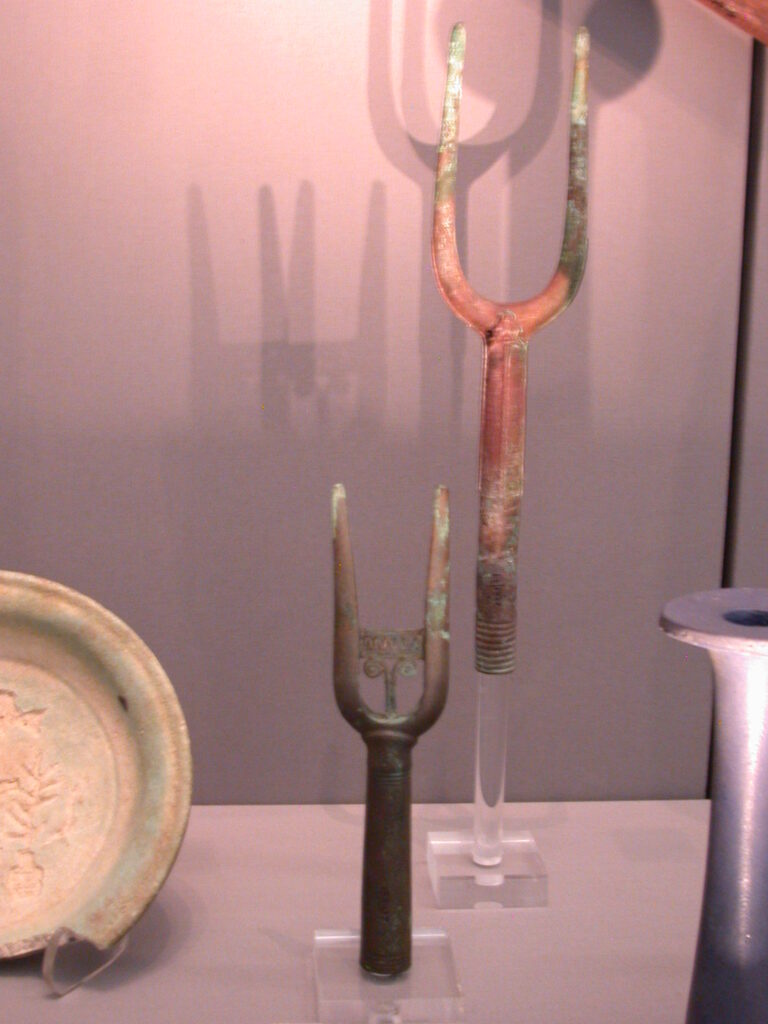
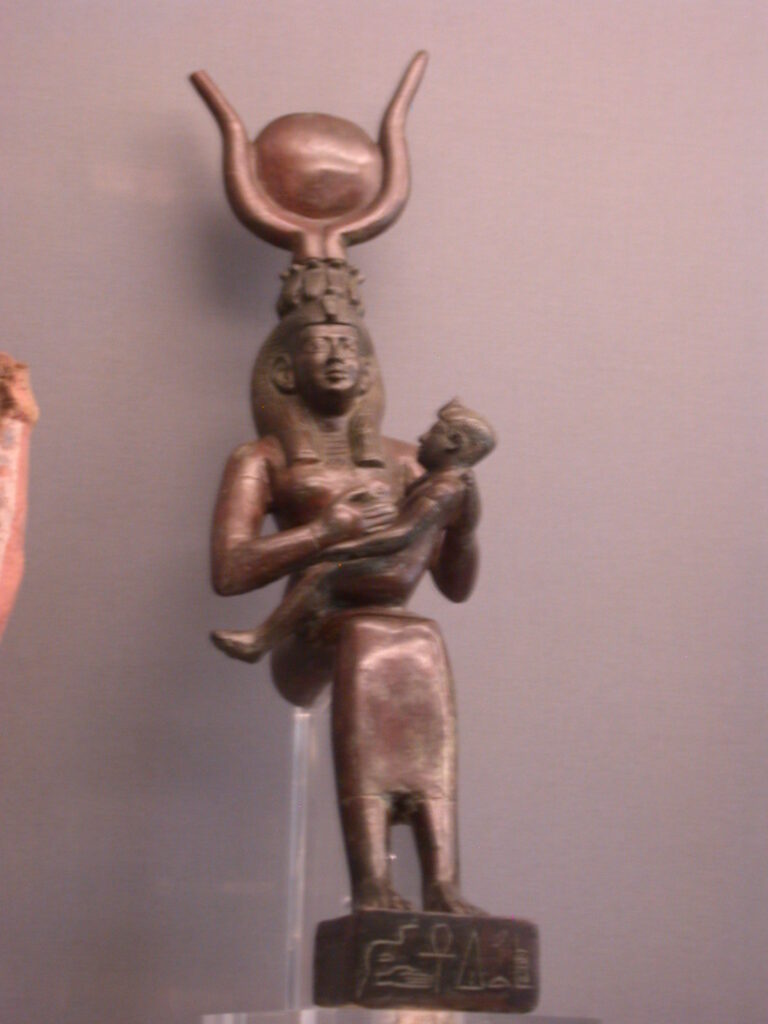
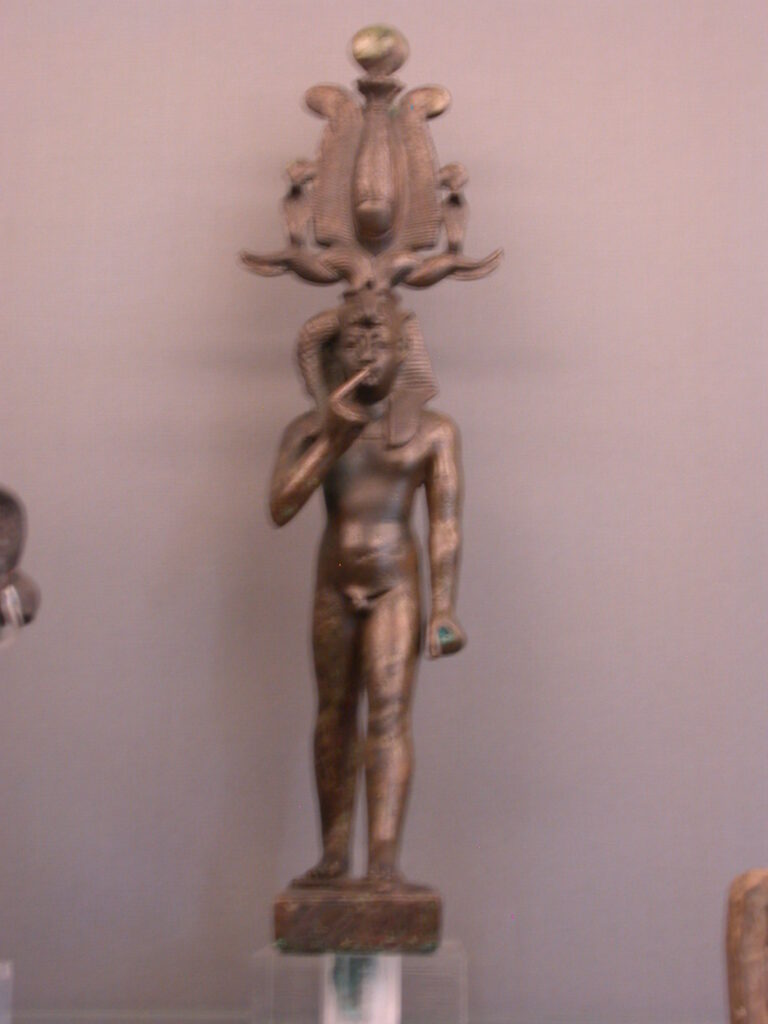
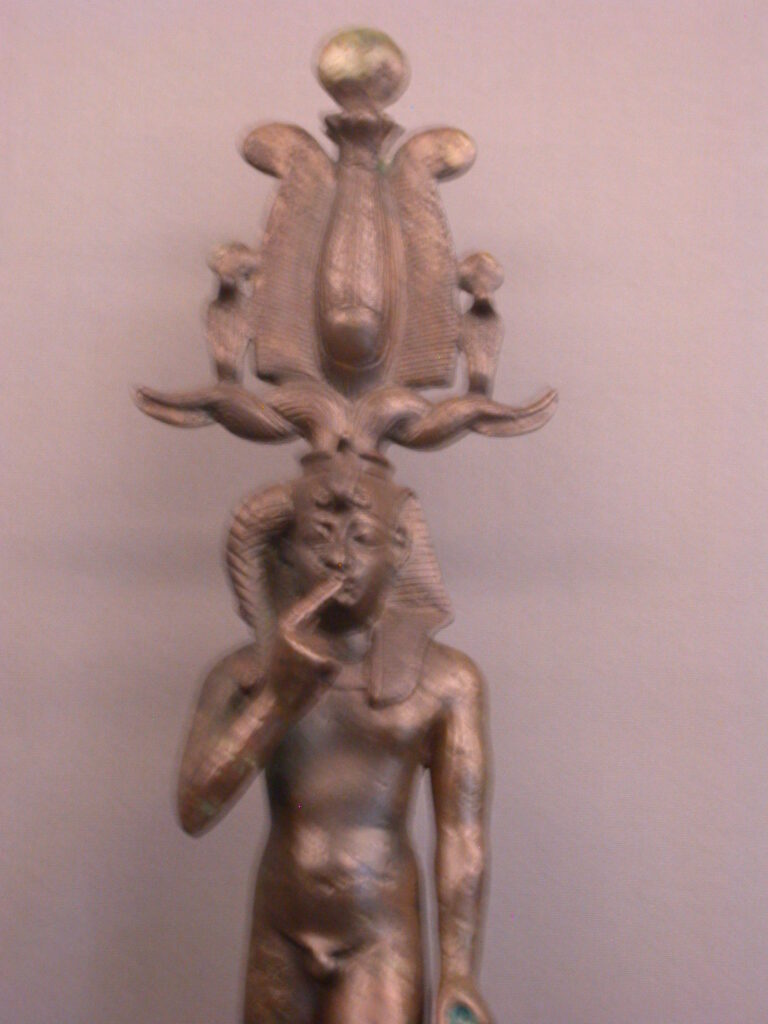
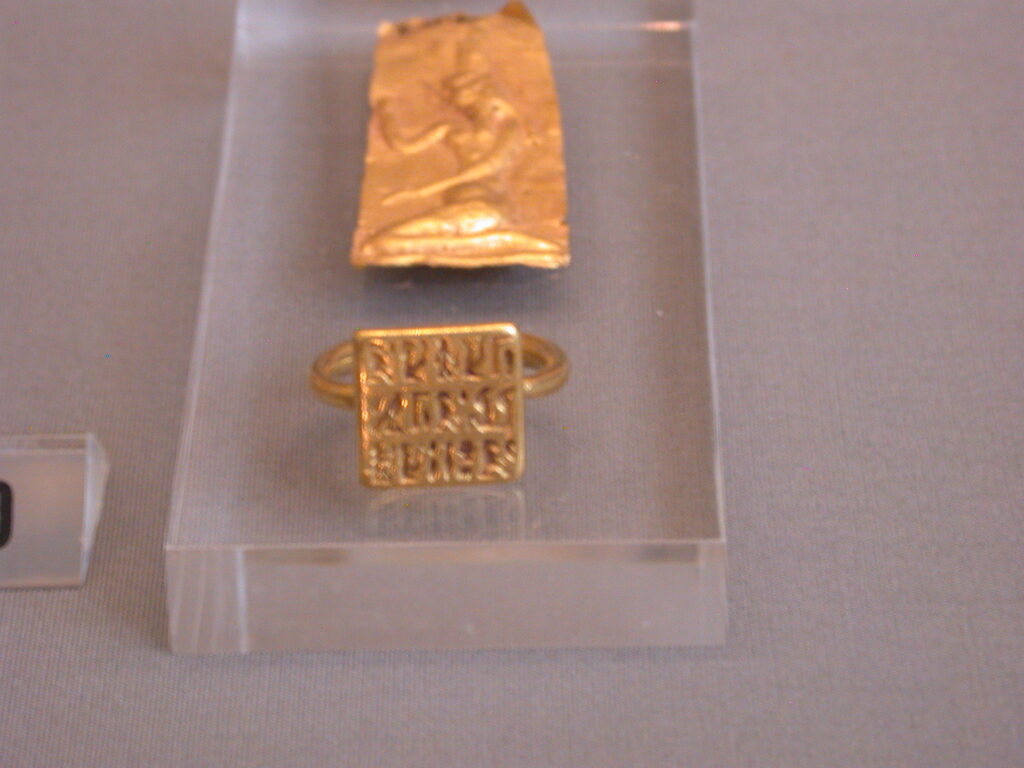
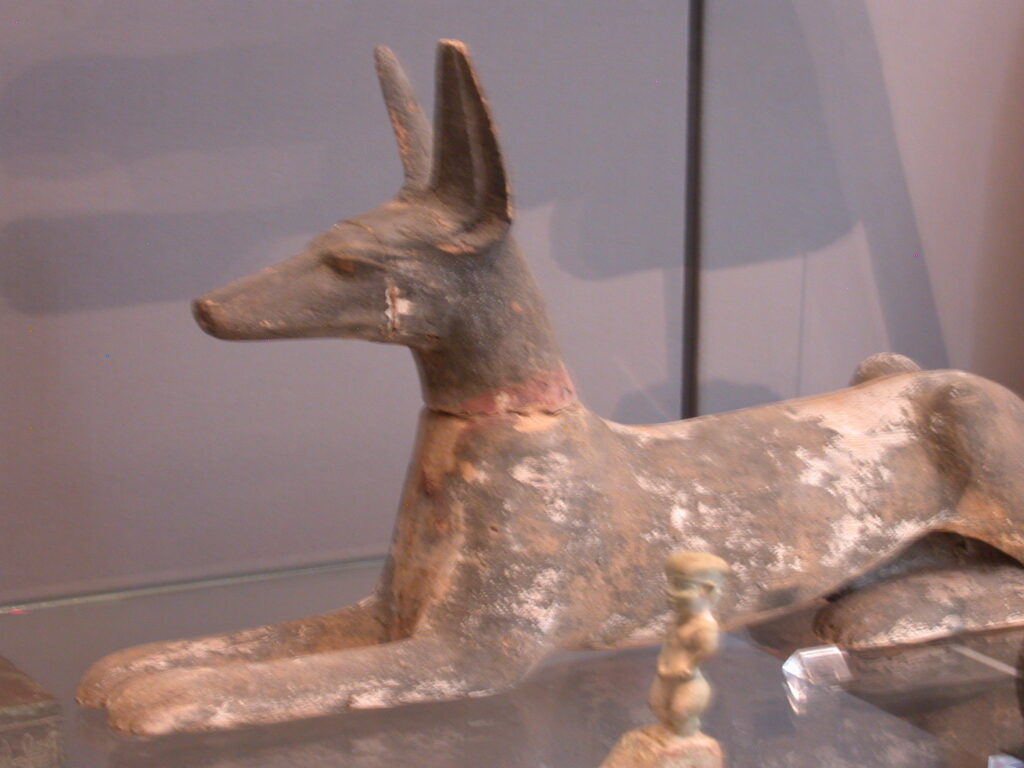
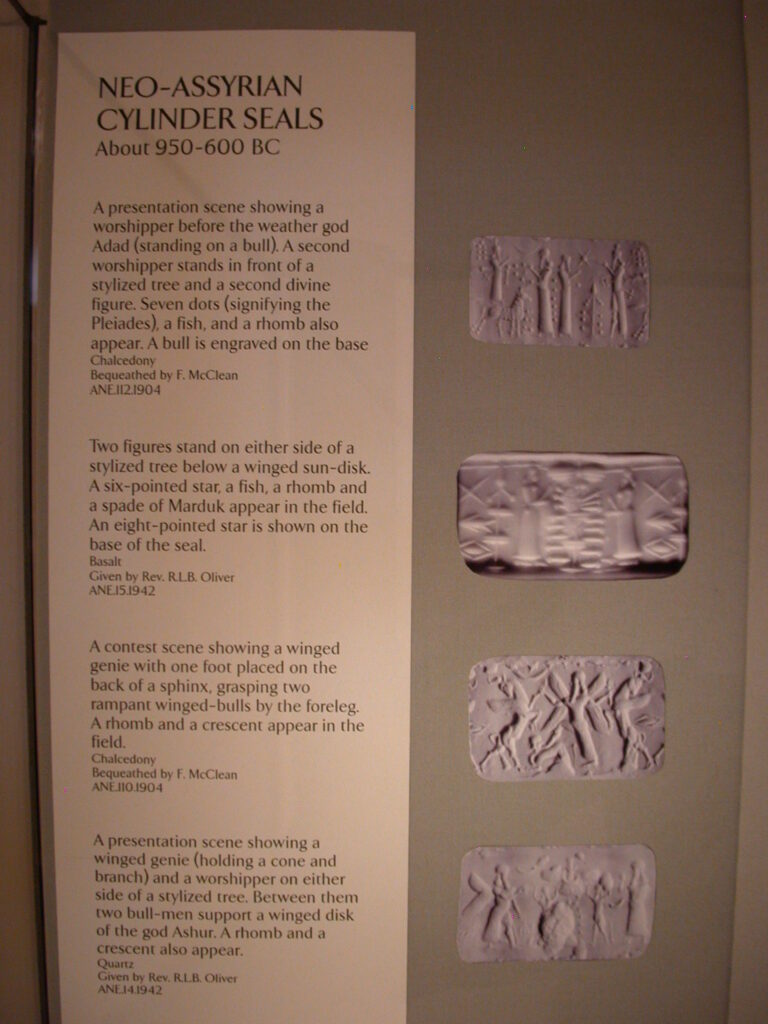
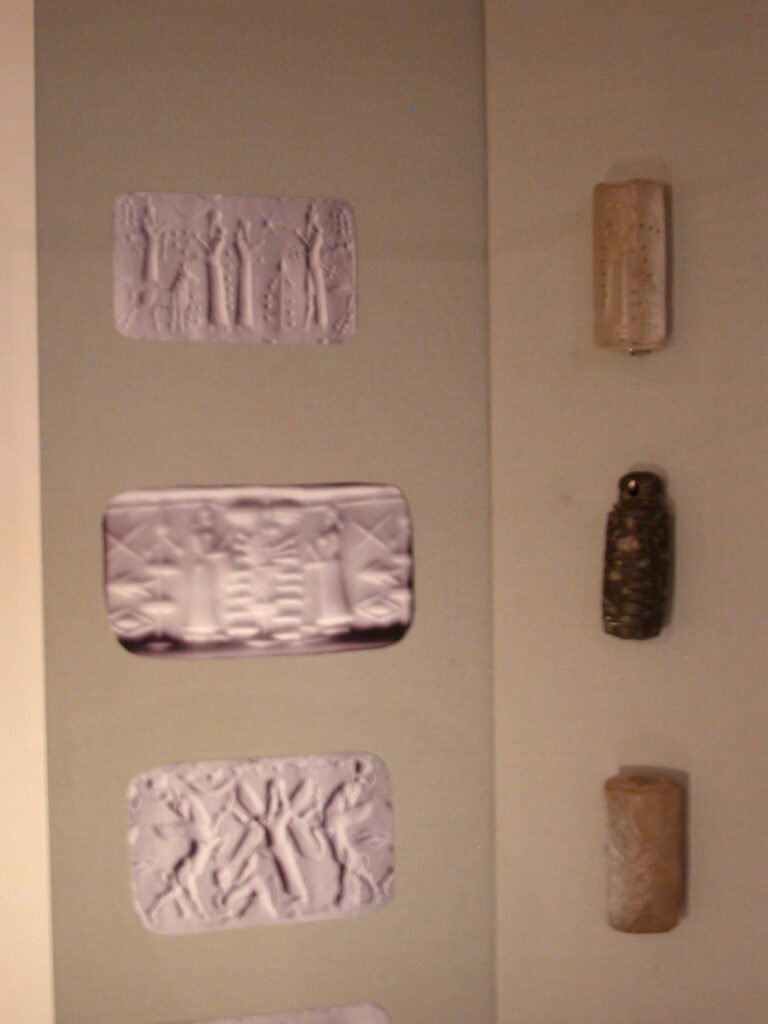
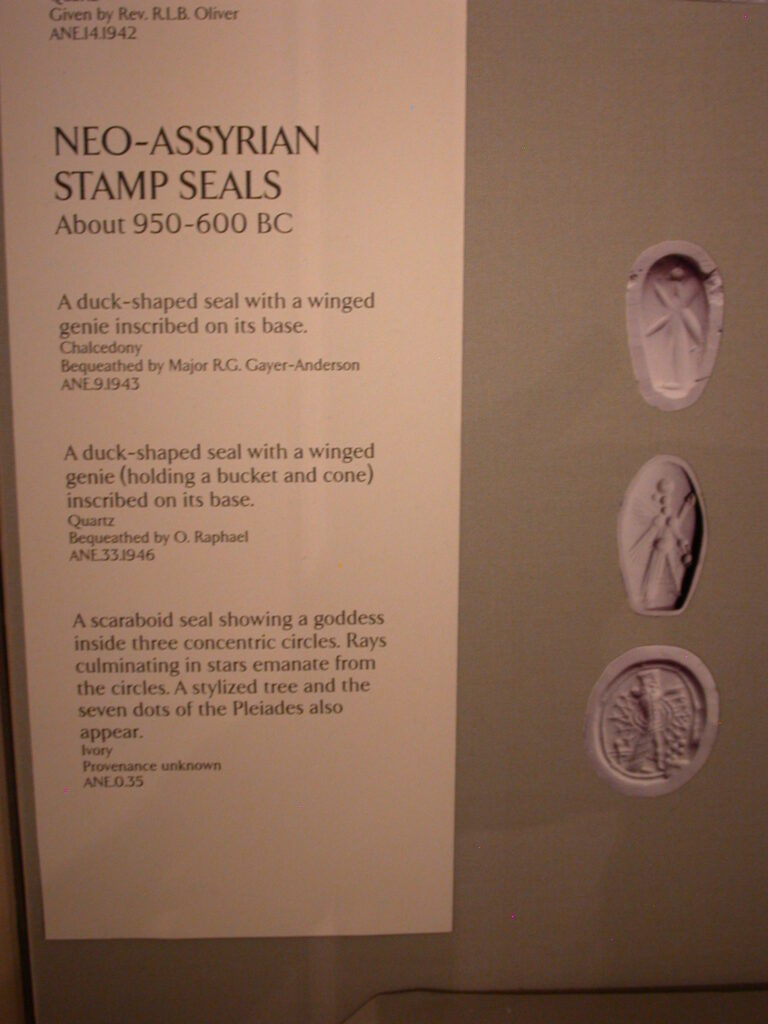
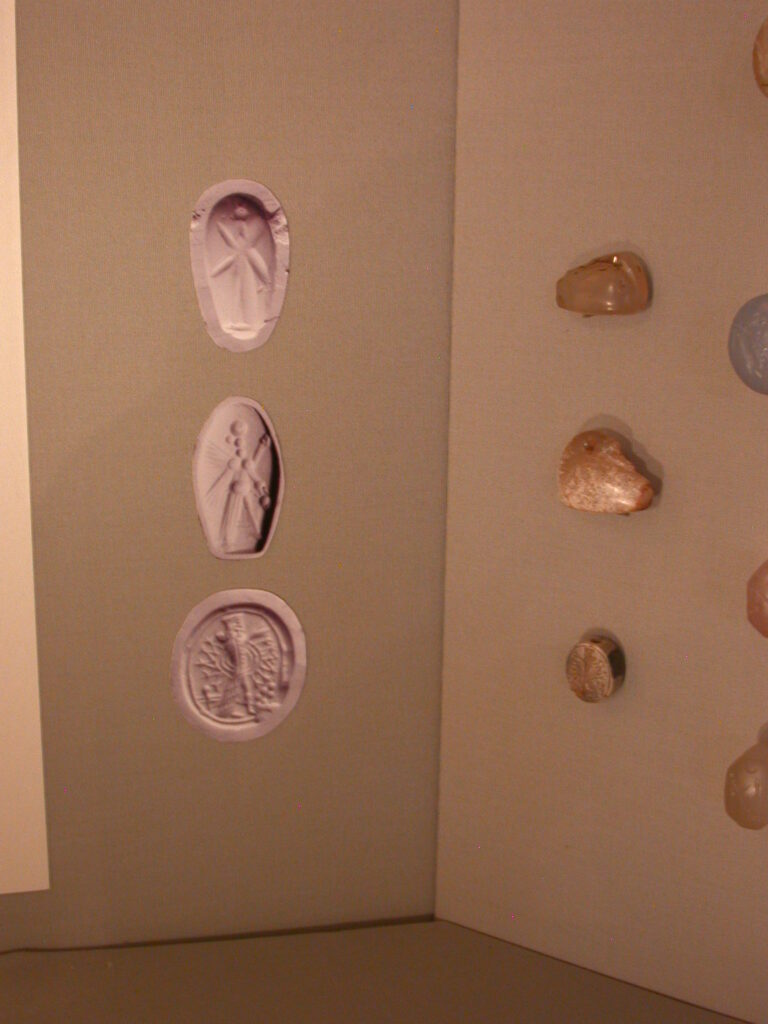
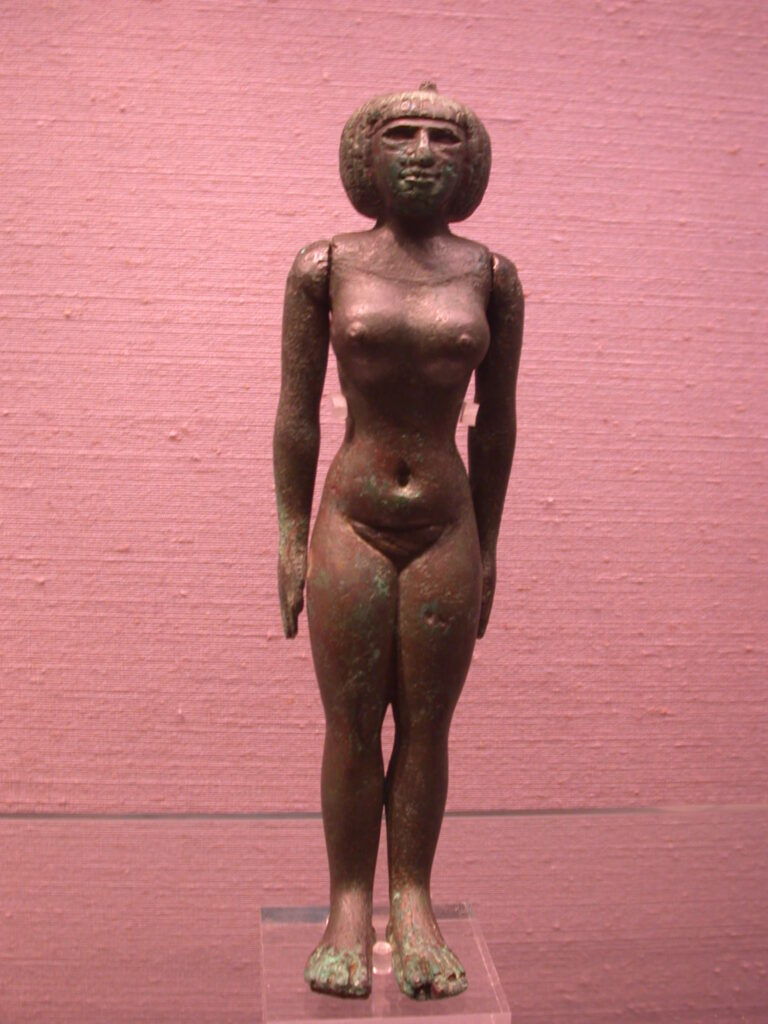
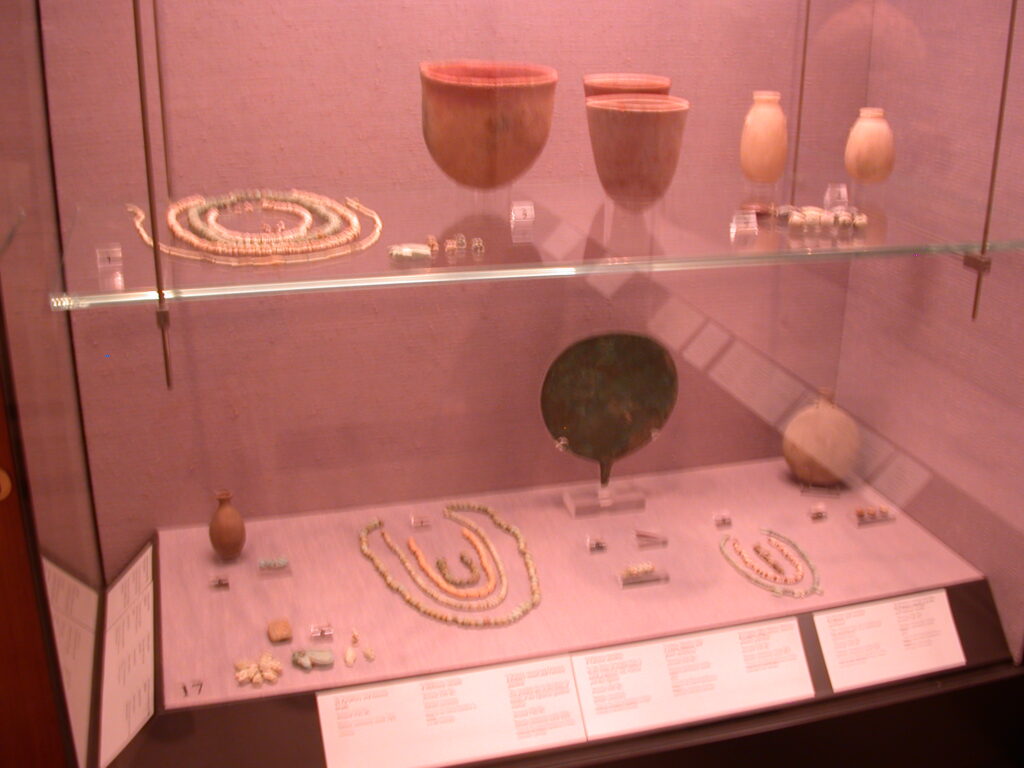
The next blog entry has a special feature on Pakepu’s coffins. He was a Water carrier who lived in Western Thebes around 700-650 BCE.
I managed to finish my work at the museum in 2½ hours. On the way back to the train station, I took a few pictures of the Scott Polar Research Institute and the wonderful statue of a nude young man outside it.
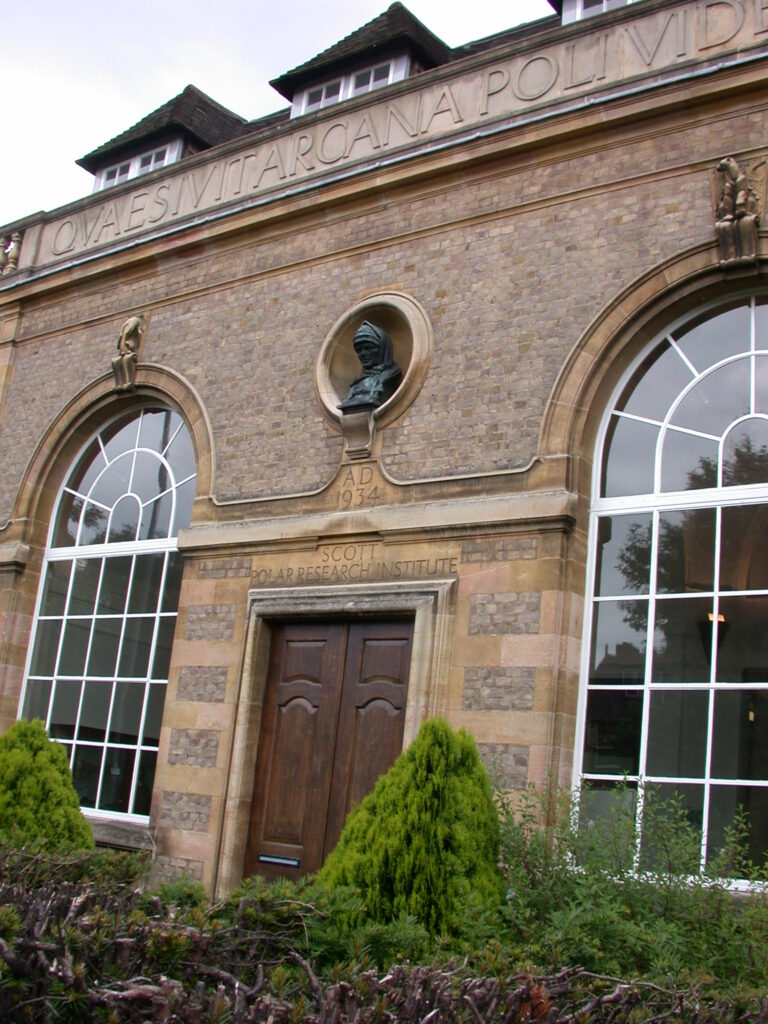
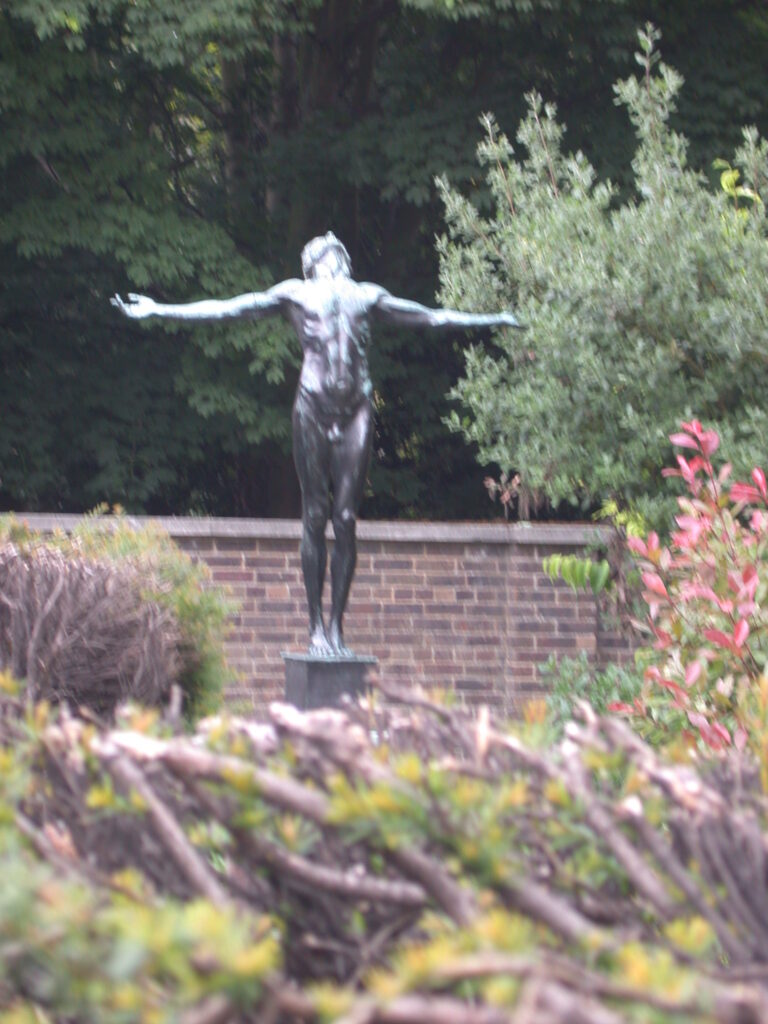
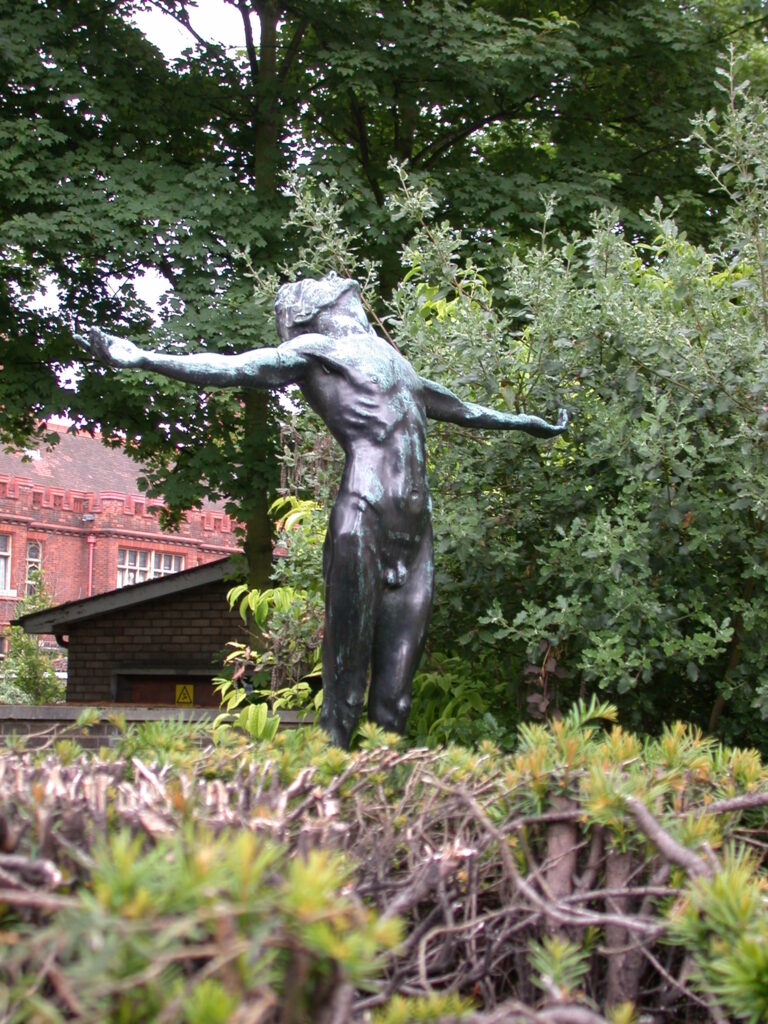
I also walked a bit further down the street and visited the cathedral on the way to the train station.
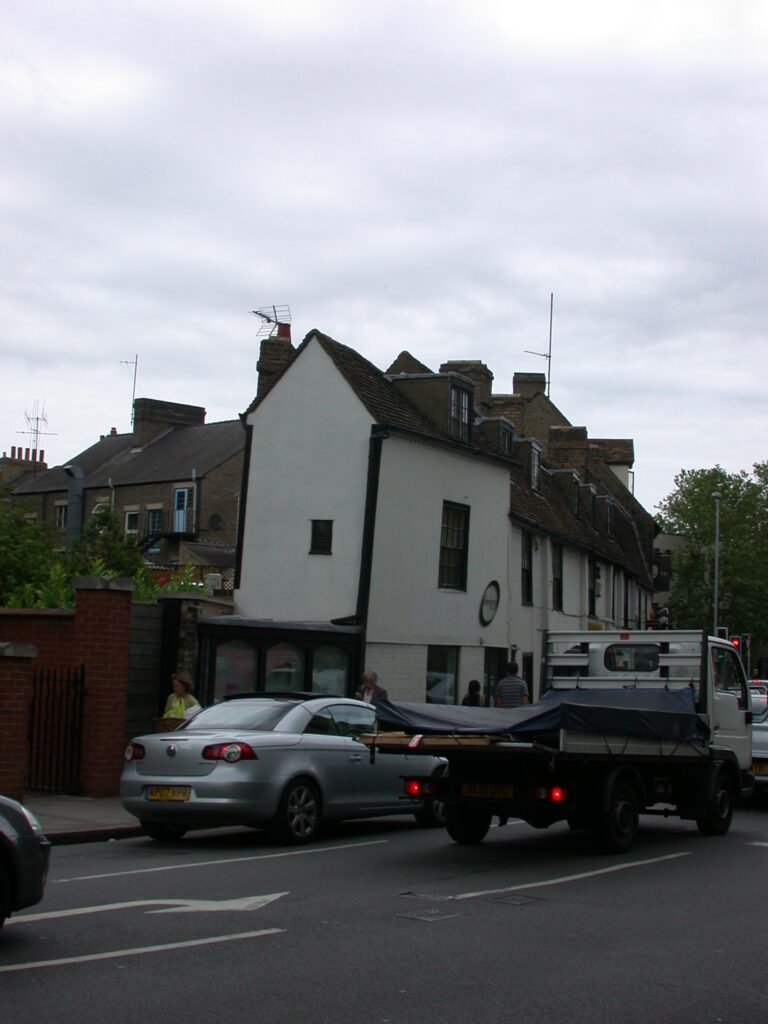
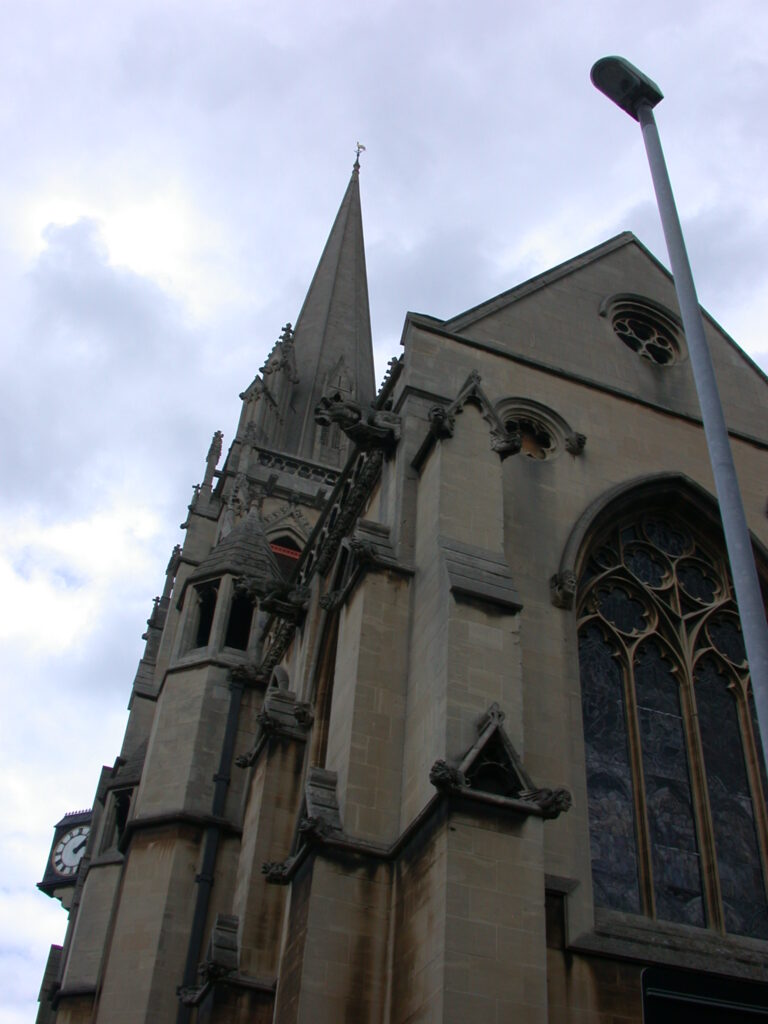
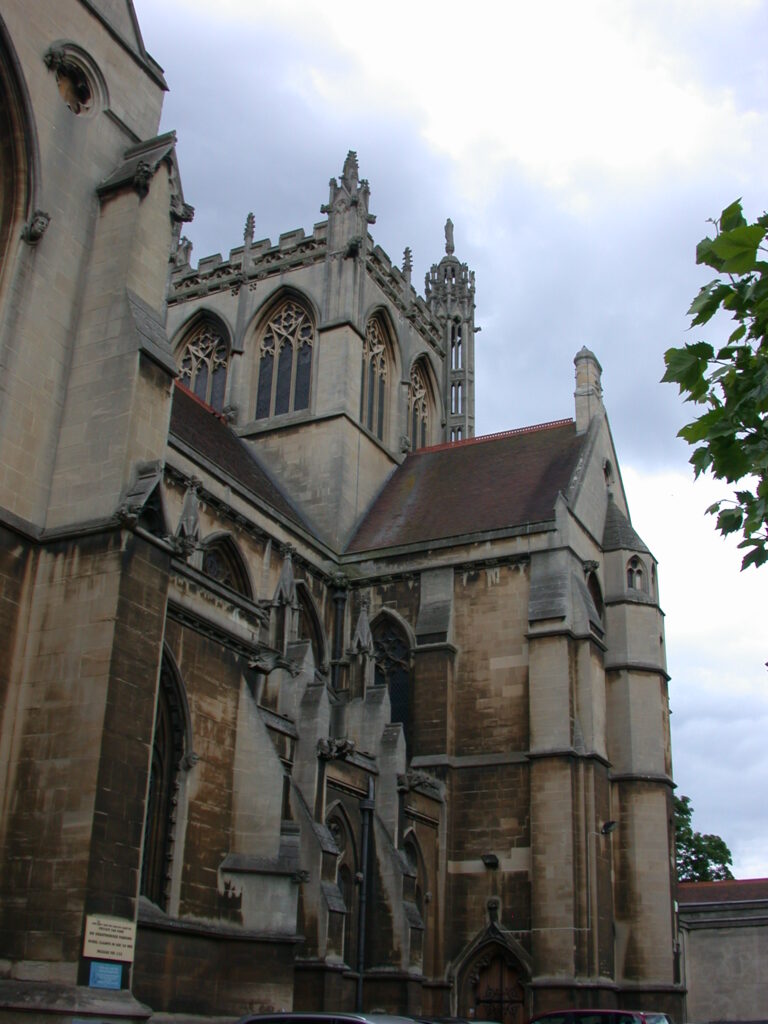
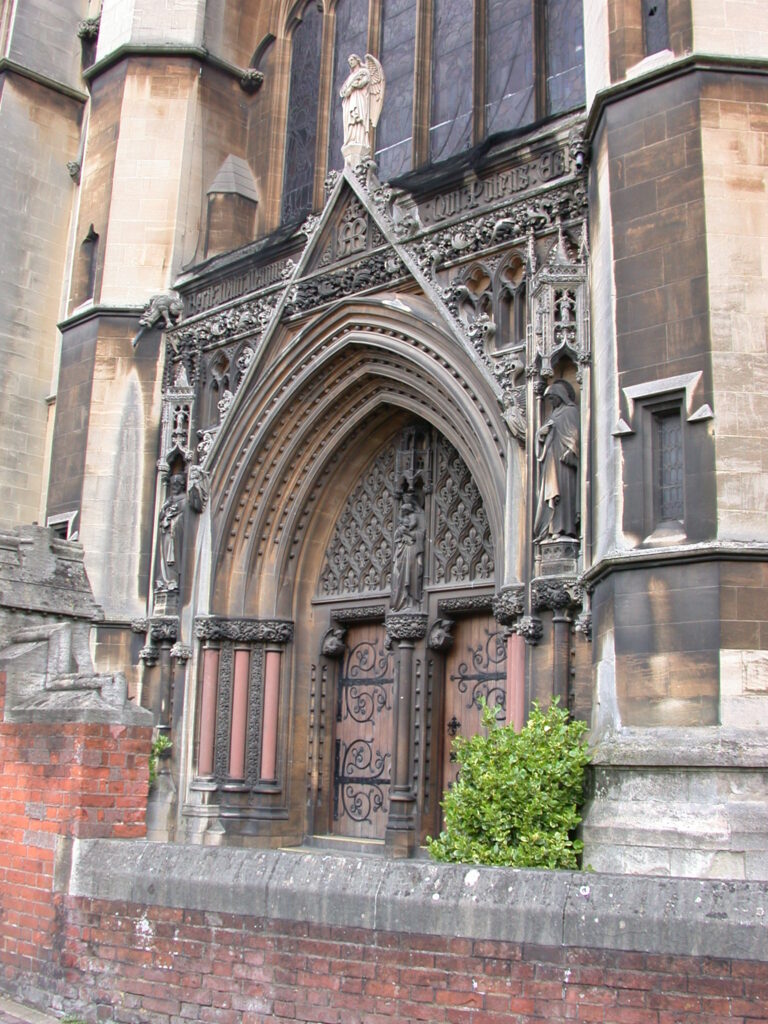
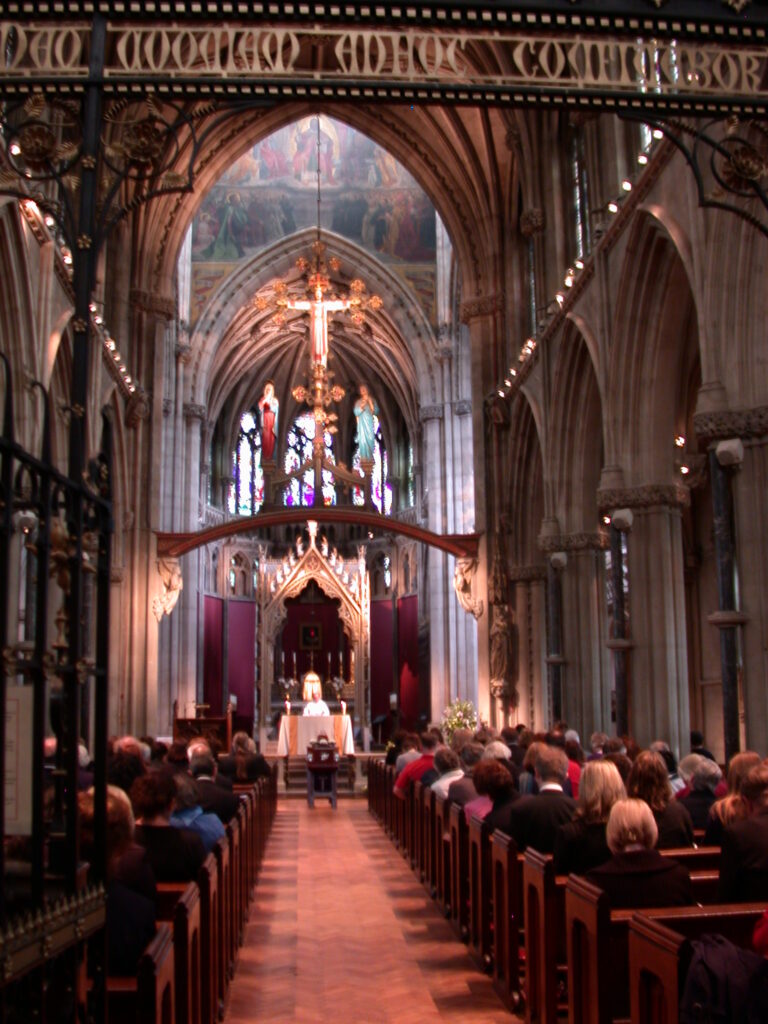
Then I hopped back on the train to London to check into the overpriced European Hotel near Kings Cross, into that small basement-level room with a loud bathroom fan and a musty odor with little room for anything else but the bed and the lamp next to it, all for the bargain rate of £45 (~US$90) per night. That’s actually a good deal in central London.
I massaged my body with a hot shower, then headed out to find free wifi, so I could search for vegetarian restaurants and queer bars. The Cafe Sosso closed just as I arrived, so instead I went to the (Quaker) Friends House cafe, which had also closed, but they let me site there in the courtyard and browse with my laptop. I found this excellent veg restaurant called Eat and Two Veg where I just finished an excellent meal of veg sausage on mashed potatoes with fresh-squeezed juice and a fruit cobbler topped with butterscotch ice cream for dessert.
London Is Expensive! British Museum and Egypt Exploration Society
Written on June 13, 2008, at Eat and Two Veg Restaurant, London, United Kingdom
I reluctantly left Sacrilege in San Francisco and boarded the plane to London via Washington, DC, on June 9, leaving late in the evening and arriving late the following evening.
Sarah, my friend from Zimbabwe, is working in London and kindly prevailed on her housemates to permit me to crash at their place for a couple of nights. One of her housemates, Caroline, is a schoolteacher and I didn’t meet the other housemate, who is apparently from Malaysia and was traveling in Amsterdam.
Sarah lives in a greenish northern suburb of London which is at least a half hour on the metro, or “tube” as they call it here, from central London. The tube ride costs £2 (~US$4) if you pay in cash, or only 90 pence if you use the Oyster card, a kind of metro debit card.
On my first excursion into town, I went to the Petrie Museum for Egyptian Archaeology. I arrived at 11:00 and left around 16:00 after examing ten artifacts up close and personal and many more exhibited in the public collection.
Next, I searched around for a hotel where I could spend Friday and Saturday night. The cheapest room I could find in the Kings Cross area with a bathroom “en suite”, i.e. in the room, not shared, was £45 (~US$90)! The place is called the European Hotel and the expensive room was in the basement, small, and perhaps a bit moldy.
I made it back to Sarah and Caroline’s place before either of them got back home, so I waited on the stoop until Caroline got home before Sarah did.
That evening, Sarah and I ate pizza with Caroline, then Sarah invited me to meet some childhood friends with whom she is still close. They even live in the same neighborhood in London. We went first to a typical English pub where I tried a draft ½ pint of ale. Everyone else drank at least twice as much as I. We met Antony at the pub, then went on to his cute little house and sat in the back garden with Antony’s brother Bobby, who I had met in Zimbabwe on an outing with Sarah to majestic Matopas, along with a girlfriend of theirs also named Sarah, who lived for awhile in Australia.
Antony is a great conversationalist, his banter littered with curses and his stories and political arguments quite entertaining. We drank and drank and drank, then Sarah and I walked home, so waking for our work the next day wouldn’t be too painful.
Next day, we walked again to the tube and she went to work, I to the British Museum. I got some good pictures of 25th dynasty Egyptian artifacts in Gallery 4.
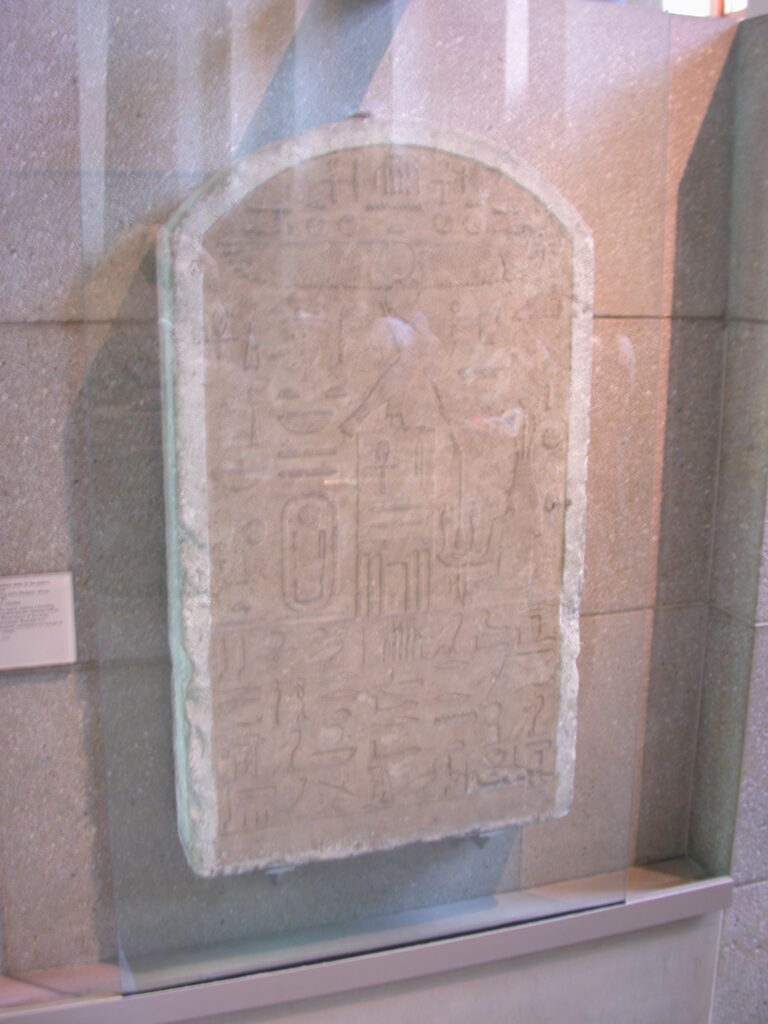
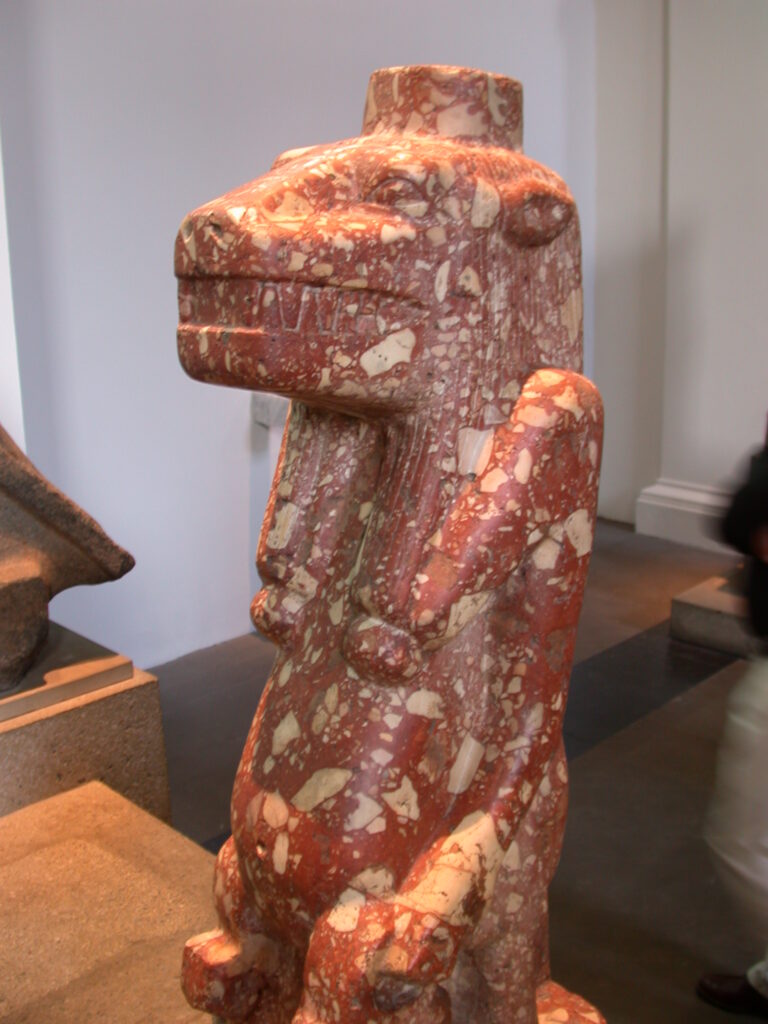
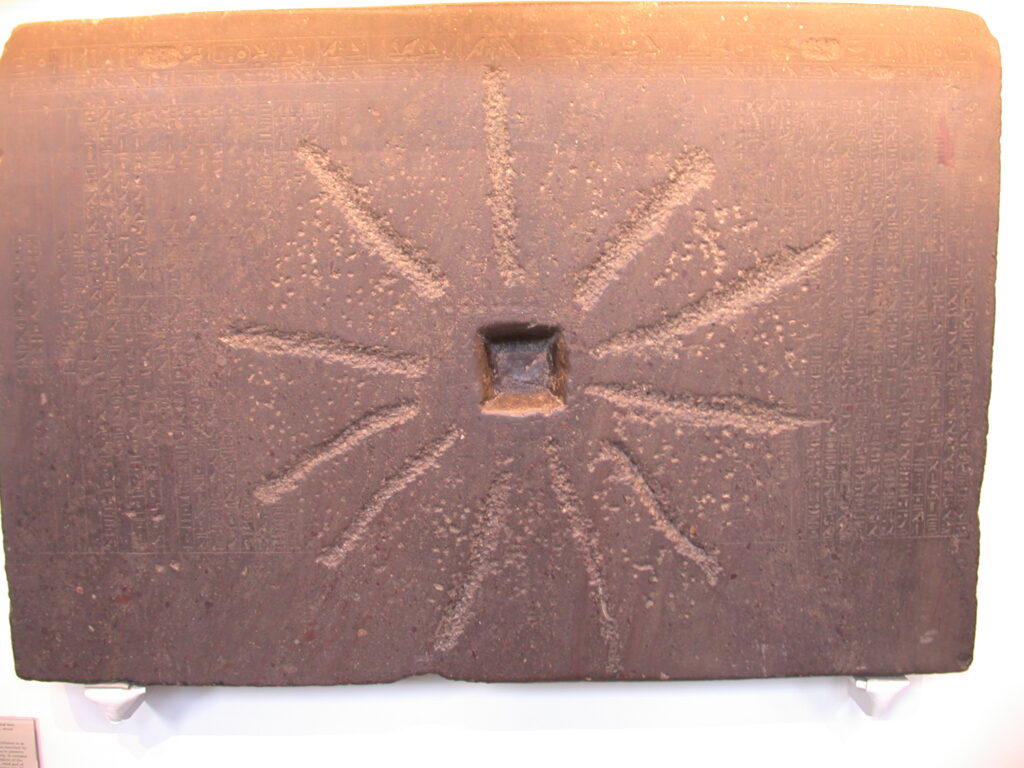
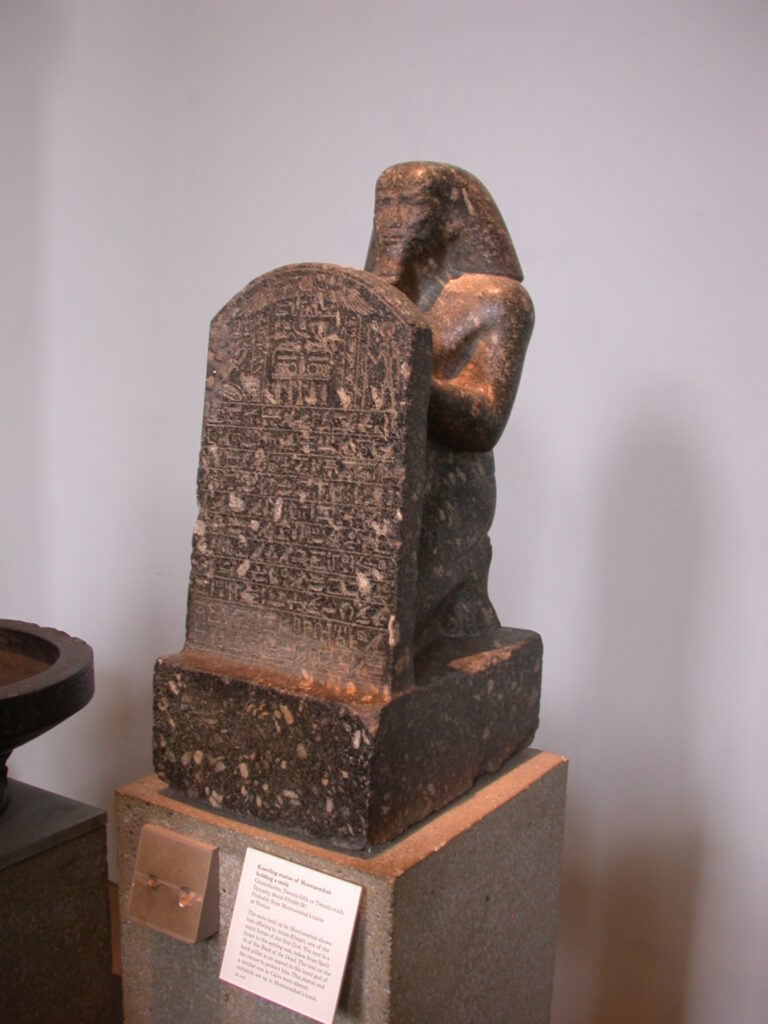
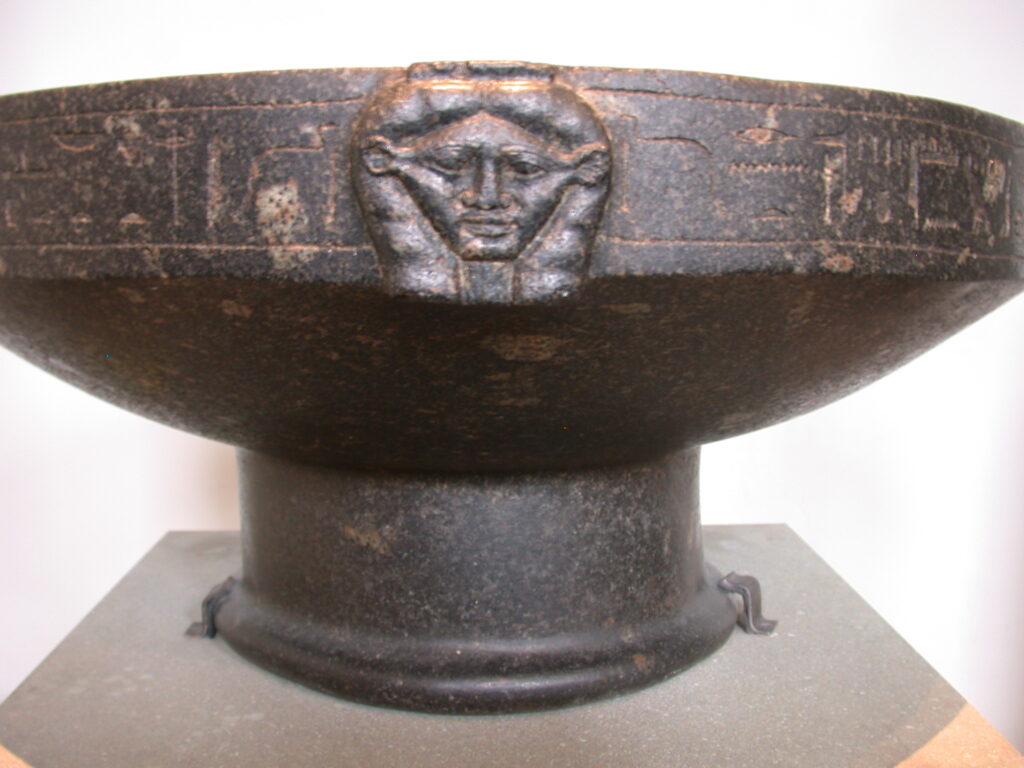
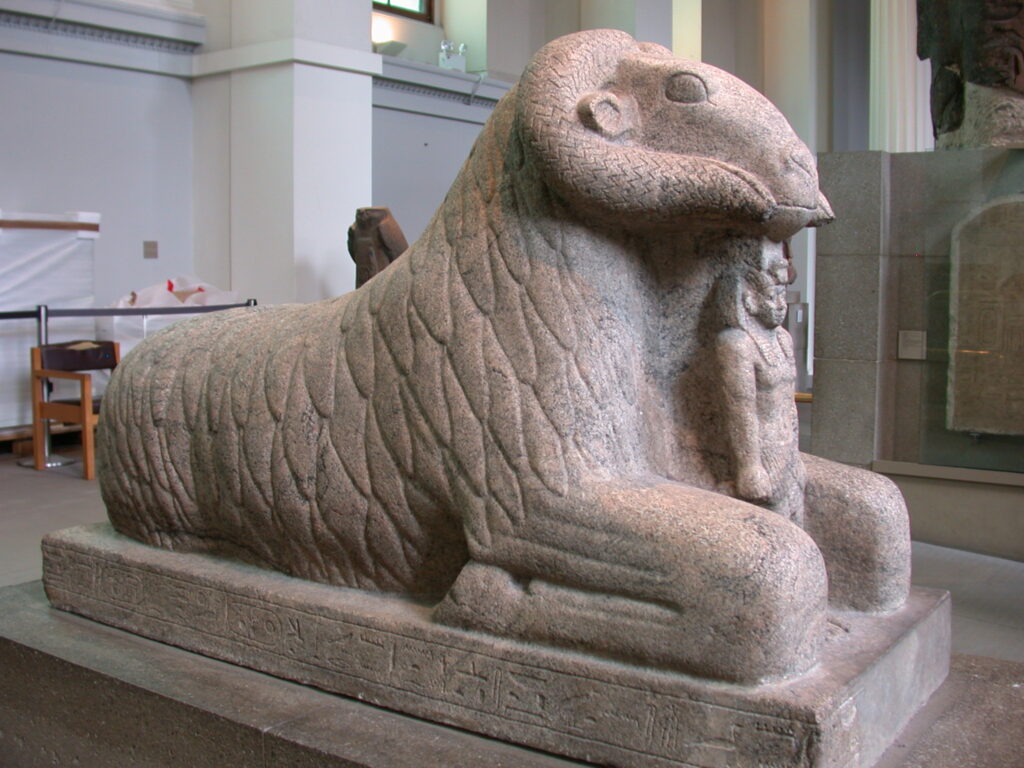
I’ll go back there tomorrow (Saturday) to do more. I had an 11:00 meeting scheduled with Chris Naunton, Deputy Director of the Egypt Exploration Society. Their office is located on Doughty Mews, a cute little cobblestoned street with comfy old brick buildings. The library there had lots of resources to help me with my research, but best of all was the chance to chat with Chris, who has been researching 25th dynasty non-royal officials for at least eight years. Although he was delayed by an emergency meeting due to leadership change within the organization, and although he was obviously dealing with considerable stress over it, he made time to hang out and chat with me and provided a bunch of helpful materials.
I was scheduled to meet Sarah at 18:15 at Charing Cross station, so I managed to go to the Kings Cross station to purchase my round-trip train ticket to Cambridge for the following day, Friday.
I took the tube to Charing Cross to meet Sarah. While I waited, I ate a veggie pasty from a place in the station. Then, I took Sarah out to dinner at an Italian restaurant near the station.
After that, she invited me to a South African bar, where her friend Jeremy had invited a group of Zimbabwean and other friends since he was passing through town on this travels with his girlfriend and hadn’t sen many of his friends, now in London, for some years. It was all about drinking a lot of beer or cider, but surprisingly, people chatted a lot as well. We also tried Amarula Cream, a liqueur from a South African fruit that tasted like Bailey’s. Then Sarah and I left — I was really tired. I nodded off a bit on the tube and struggled to walk the rest of the way back to her place.
Radio Silence
I apologize for the “radio silence” since Khartoum, but I haven’t seen an Internet cafe since I left there headed north along the Nile for Egypt. I’m hale and hearty, except for a small cough probably due to all the dust in Sudan. All is well with my adventures. Since Khartoum, I took a bus past Shendi to explore the old Meroë pyramid cemeteries and ancient city by camel! near Barijawaya. On the next bus, I accepted an invitation from a fellow passenger to visit his home village near where Sudan’s President Bashir’s home is located. Escaping there from a near Islamic conversion experience, my friend drove me to a half-dozen hotels in Atbara — all of them full that evening. So, he put me up with his uncle in nearby Ed Damer and we visited more of his family the next day. The bus from Atbara went on a ferry across the Nile and through irrigated fields and the Bayuda Desert. I arrived in Merowe (not the same as Meroë) and explored the Nuri cemetery pyramids, including that of the great Kushite Pharaoh Taharqa and his great-grandson Aspelta. The next day, I crossed the Nile again by ferry to Karima where I stayed at a beautiful and expensive Nubian Guest House. Walking from the hotel that evening, I visited the Temple of Amun and the Temple of Mut at Jebel Barkal, the sacred mountain, which I climbed to see the scenery and the sunset. Near Jebel Barkal at El Kurru, the tombs of Tanwetamun and his mother Qalhata were very impressive and, although not much remains of Piankhy’s tomb, I enjoyed being there among the 25th dynasty characters for my novel. Next came a crazy ride on the back of a bokasi truck during haboob-like dusty desert winds of at least 60 mph. Near Dongola on the banks of the Nile, I saw the ancient city of Kawa. A donkey cart ride brought me to the large mud Deffufa structure and its surrounding ancient village at Kerma. With a stop at the village of Wawa for a walk over to the Nile and a passenger ferry to the temple at Soleb, I spent the night for free in a traditional Nubian home, then by bokasi the next morning to Abri and right onto a bus to Wadi Halfa in time to buy a ticket for the ferry to Aswan, Egypt, which leaves only once a week on Wednesdays. After a 16-hour ferry ride past Abu Simbel, I’m in Aswan, Egypt, with what appears to be a hi-bandwidth Internet location. 🙂
In other good news, I finished the first full draft of the first part of my novel, although I have to fill in a couple of items after further research and writing. I hope you are all well. I’d love to read news from you by email. If it takes me some time to reply, don’t worry — I’m catching up with thousands of emails from when I had no Internet access.
Sufi Dancing in Omdurman
Phil was kind enough to reserve a minibus so a group of us could go experience the weekly Sufi dancing ritual on the late afternoon and early evening of March 23 in Omdurman, just across the Nile from Khartoum. We stopped by the teachers’ apartments and picked up Brad, Rene, Colin, and Colin’s mother who had just arrived that morning from the States. Across the street from the teachers’ apartments is a building under construction where some poor people have staked out a home of their own until the construction is complete.
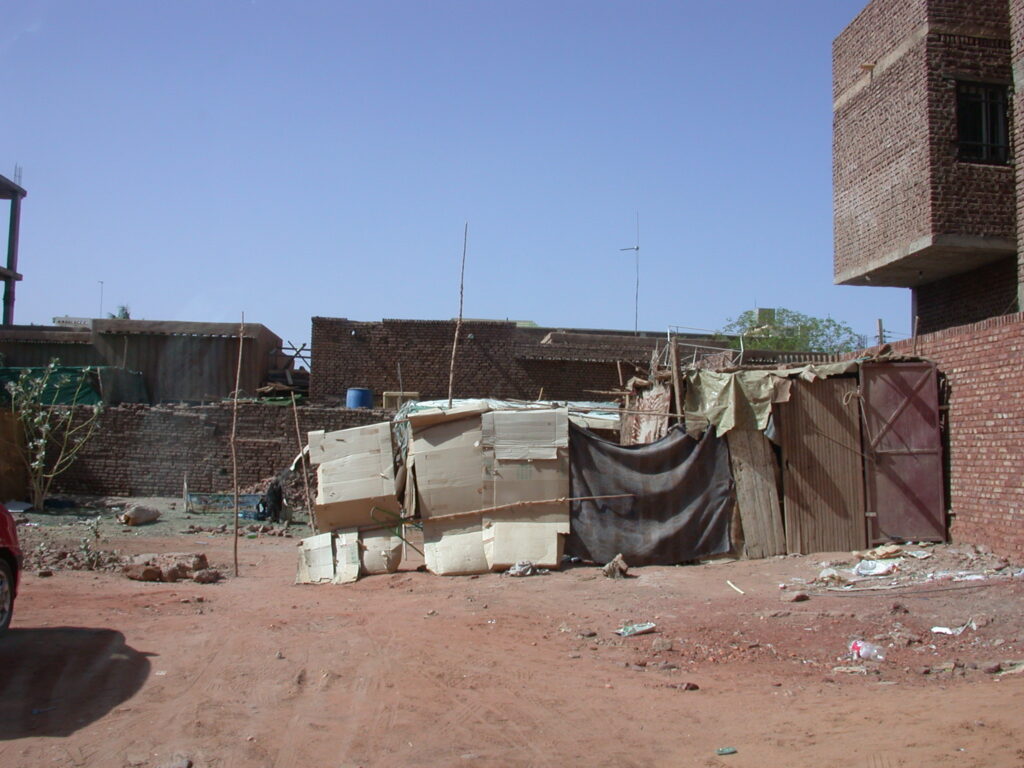
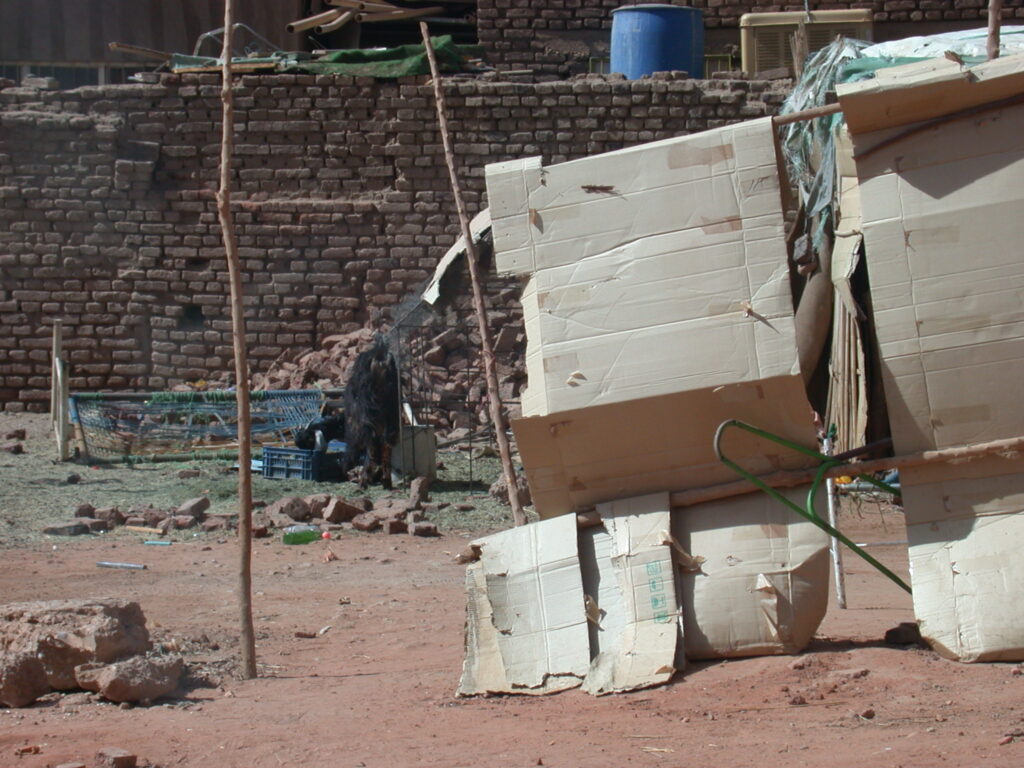
We met the minibus at the Khartoum American School.
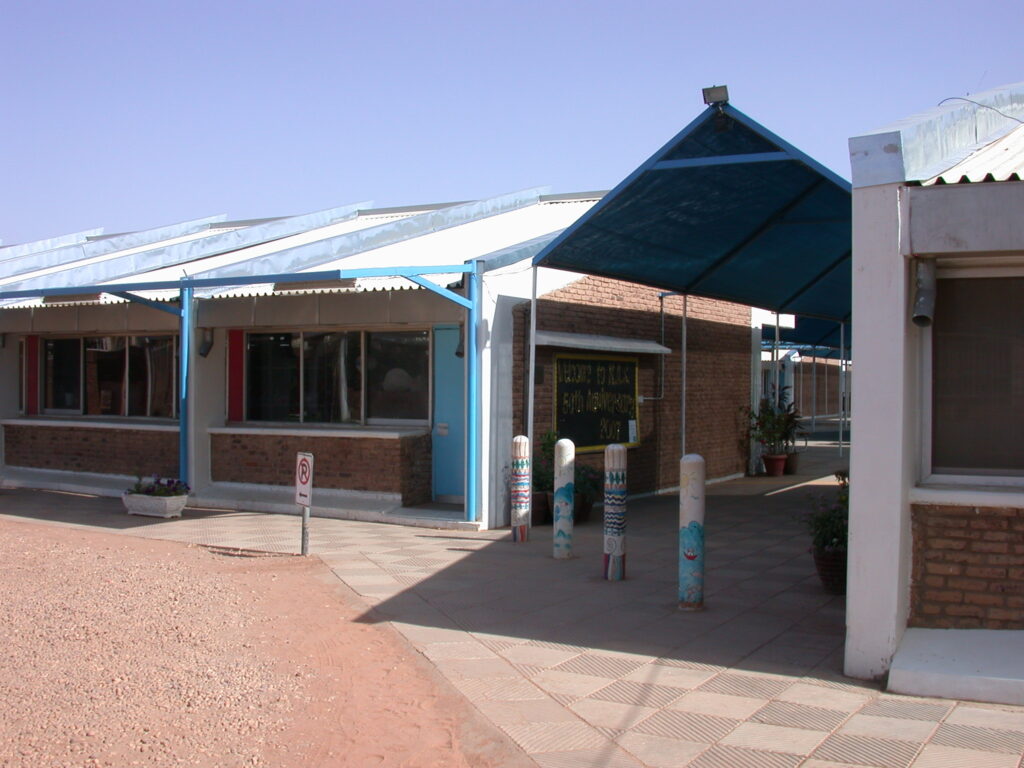
The minibus brought our group to Omdurman where we spotted the two buildings enclosing tombs of famous Sufi teachers. A Muslim cemetery surrounded the two buildings.

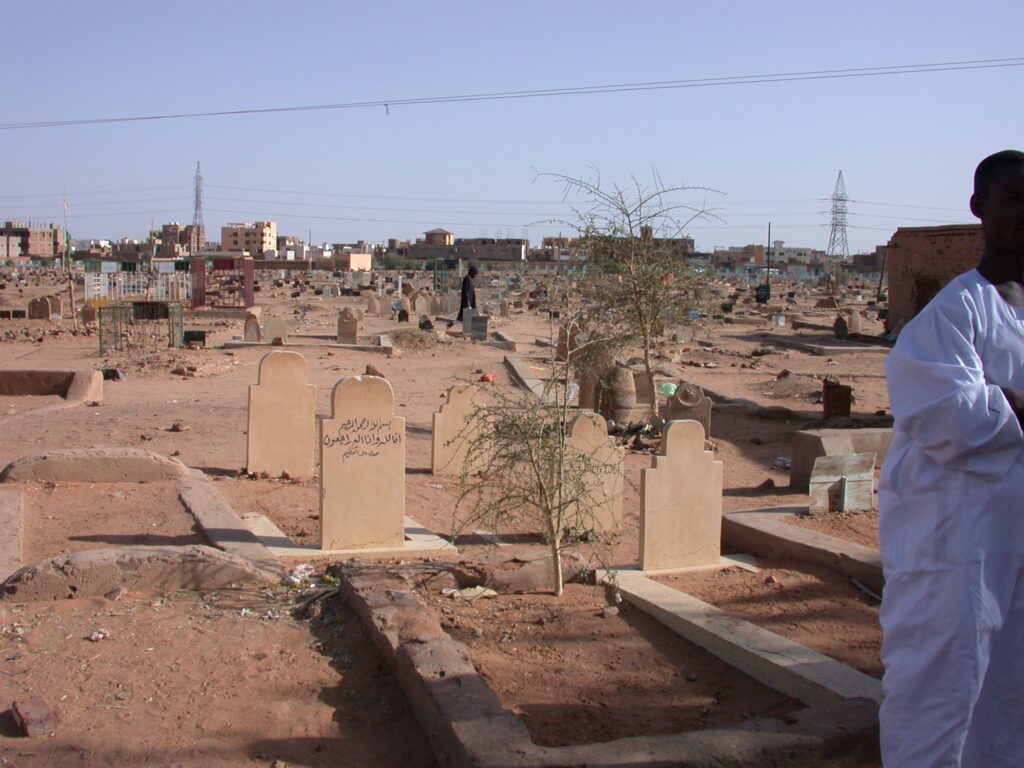
I went inside the tombs, after removing my shoes, to check them out. The caskets looked large and specially made clothes covered the caskets. People inside touched the tomb in prayer and/or mumbled prayers while sitting or walking around the tomb.
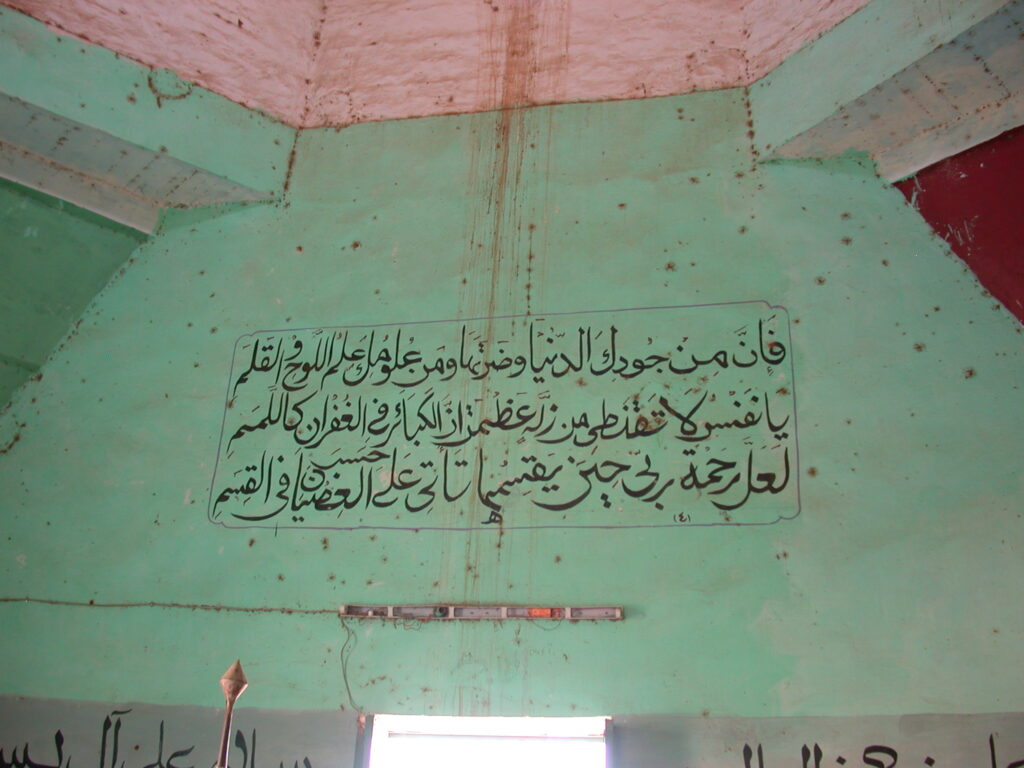
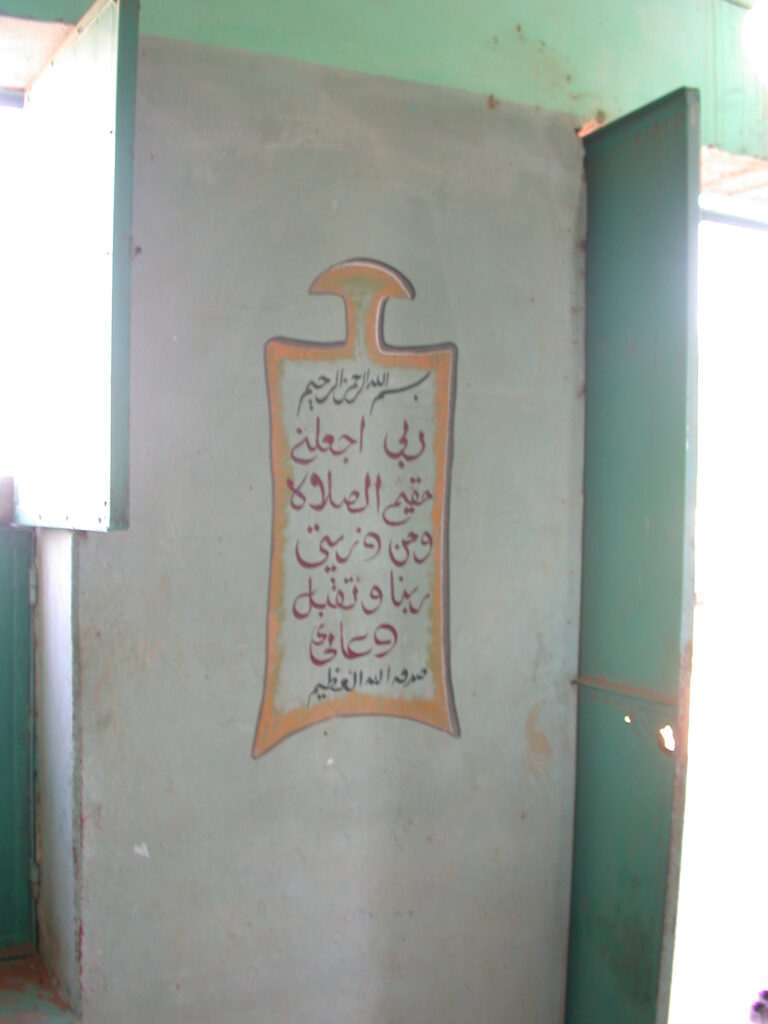
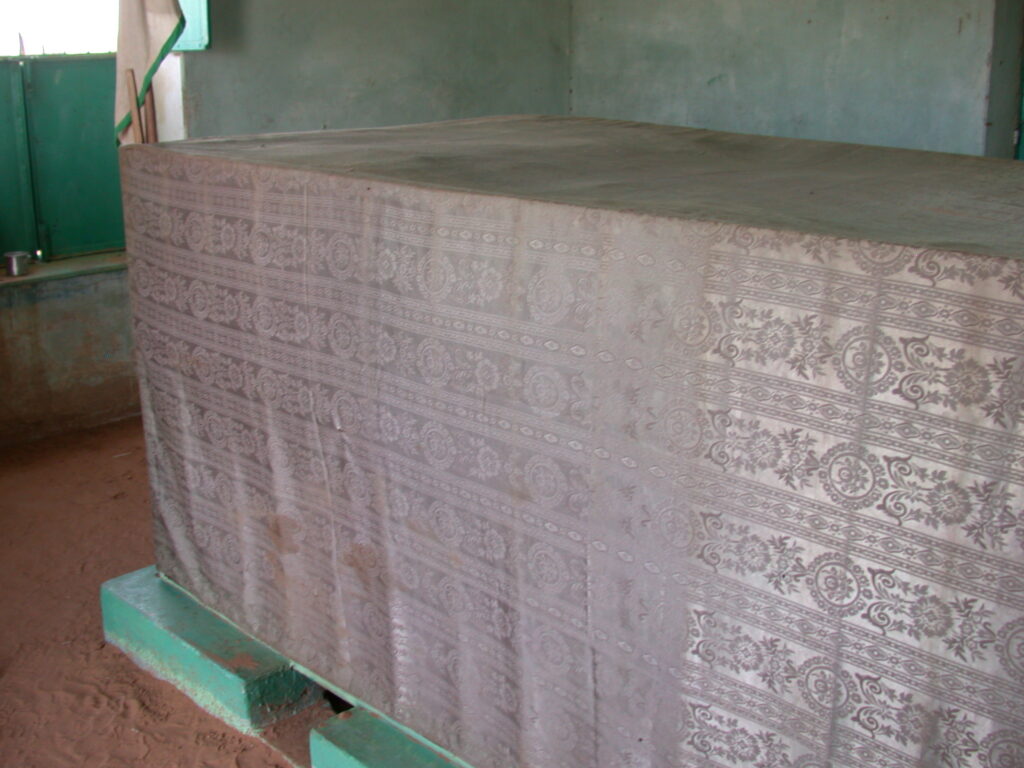
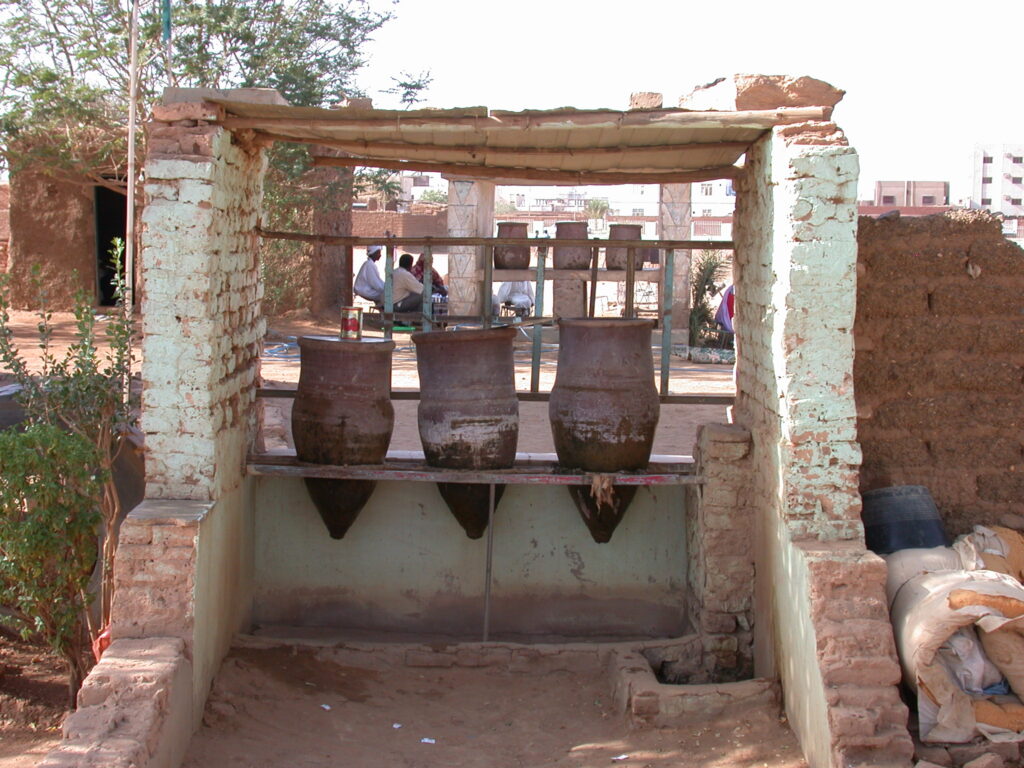
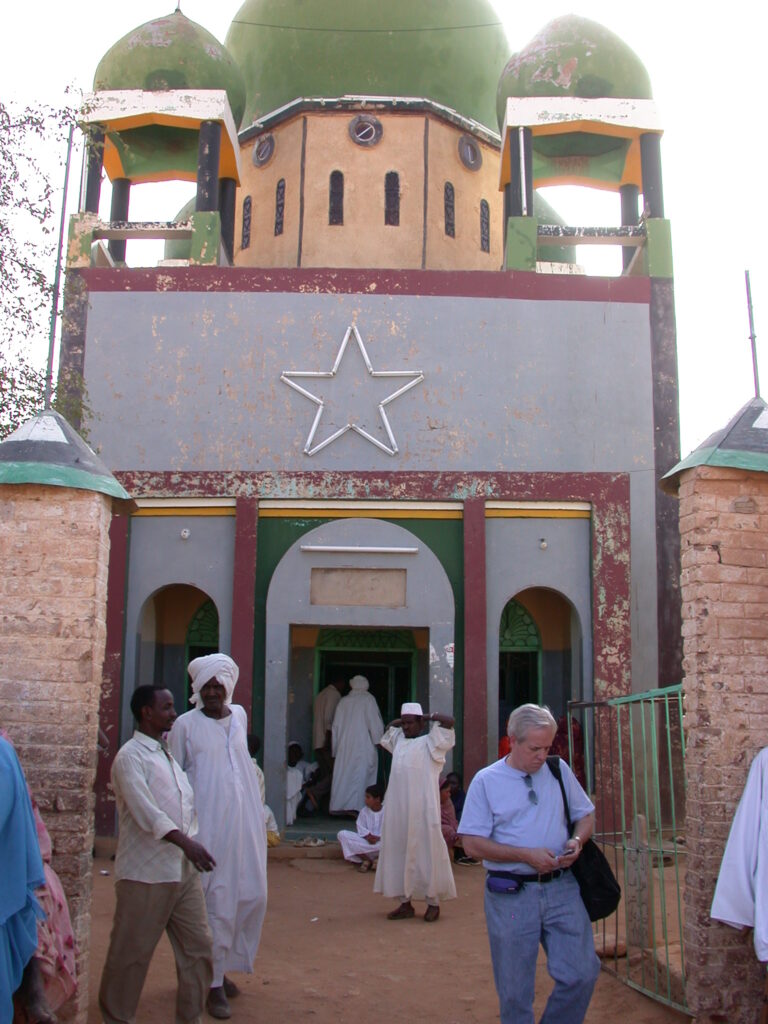
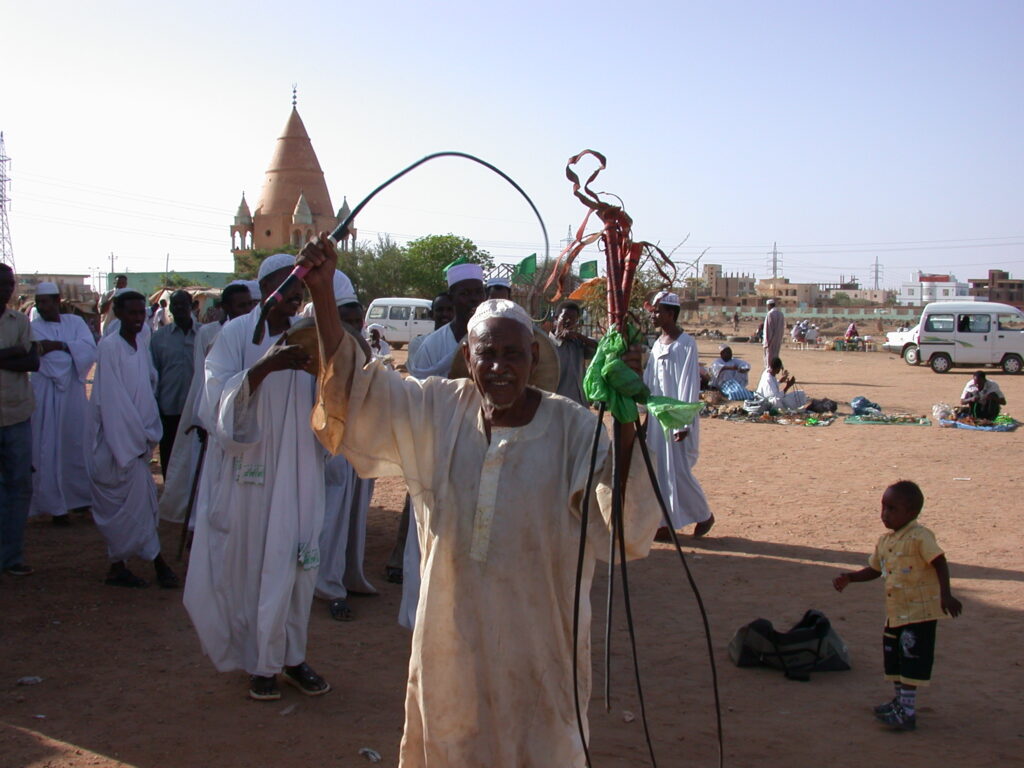
Before the Sufi dancing got going, we experienced many preliminaries. A guy preached about the name of Mohammed, a man was selling whips, and two others played drums along with lovely chanting. Sometimes, people would approach the drummers and dance a bit with them. Some guys sat on top of the tomb structures. Many of the Sufi dancers dress in green and red robes. A procession approached with green and red flags at one point entering the tomb complex, then departing. Gradually, a large circle of participants forms around a central pole where they hang green and red flags.
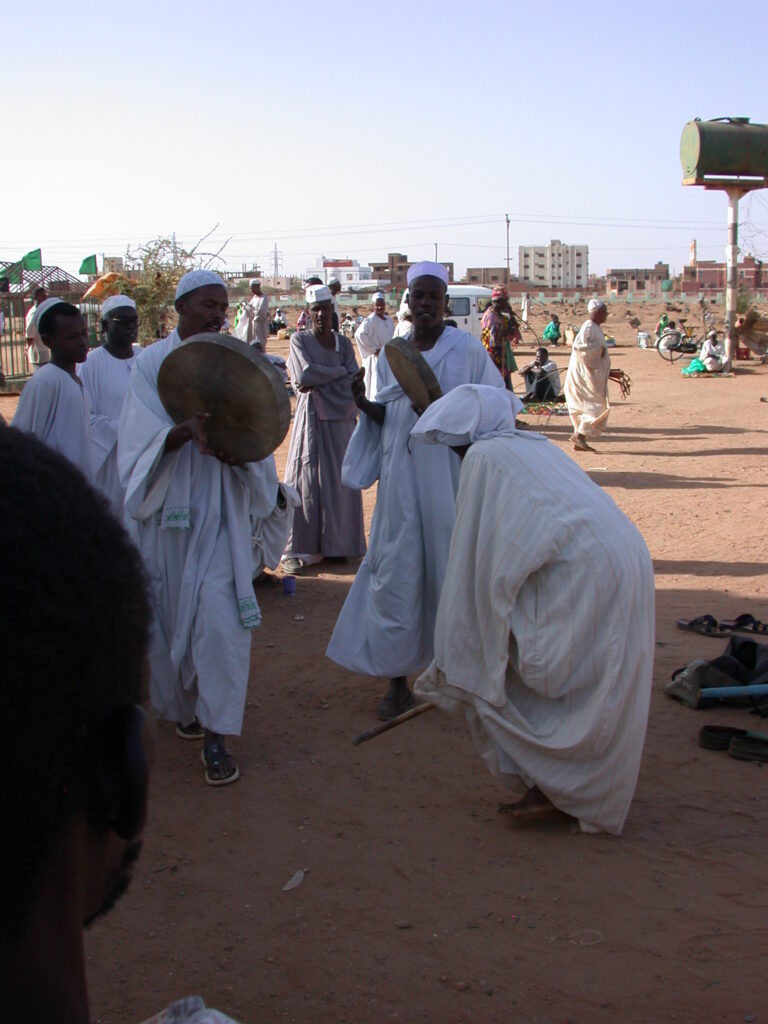
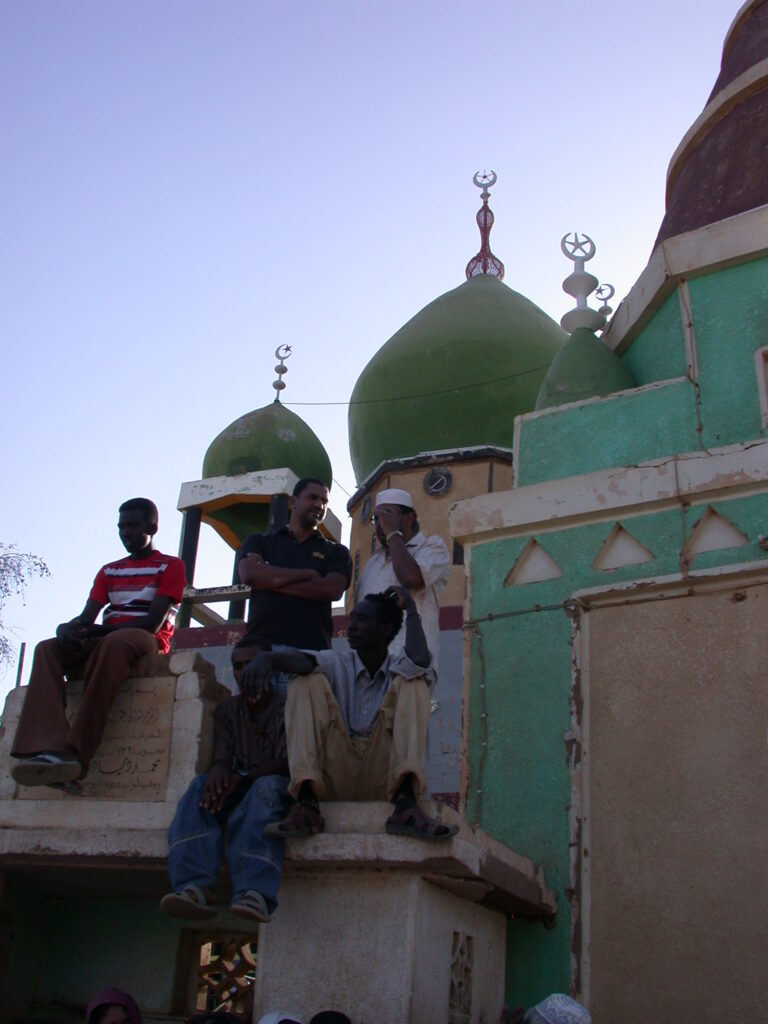

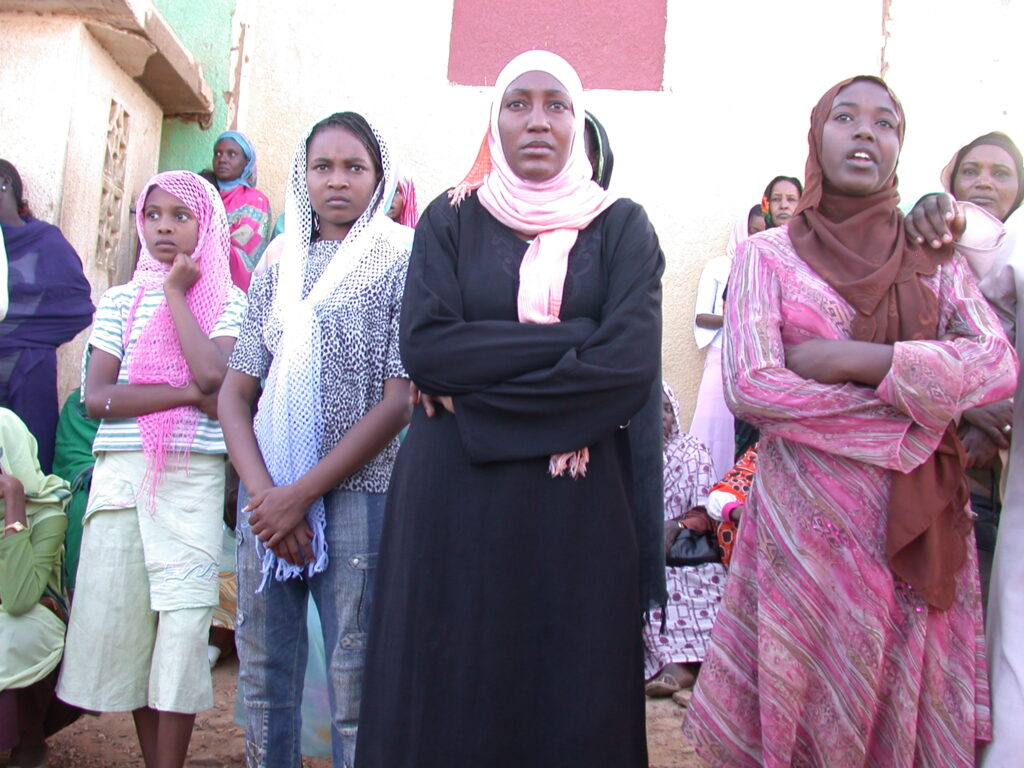
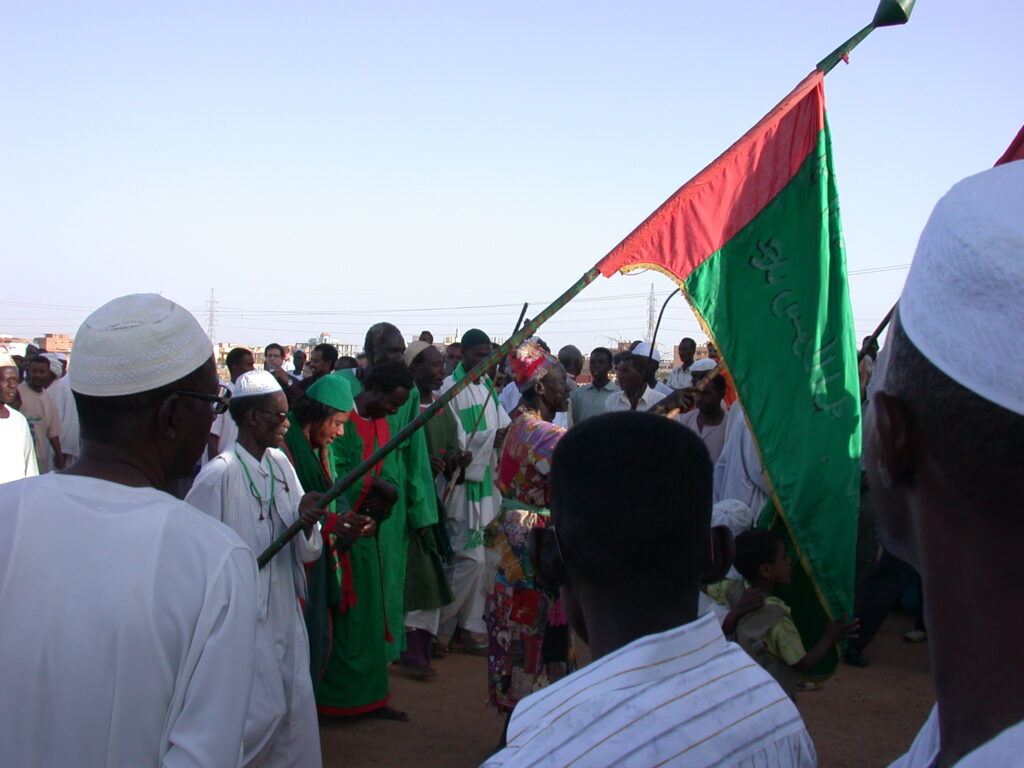

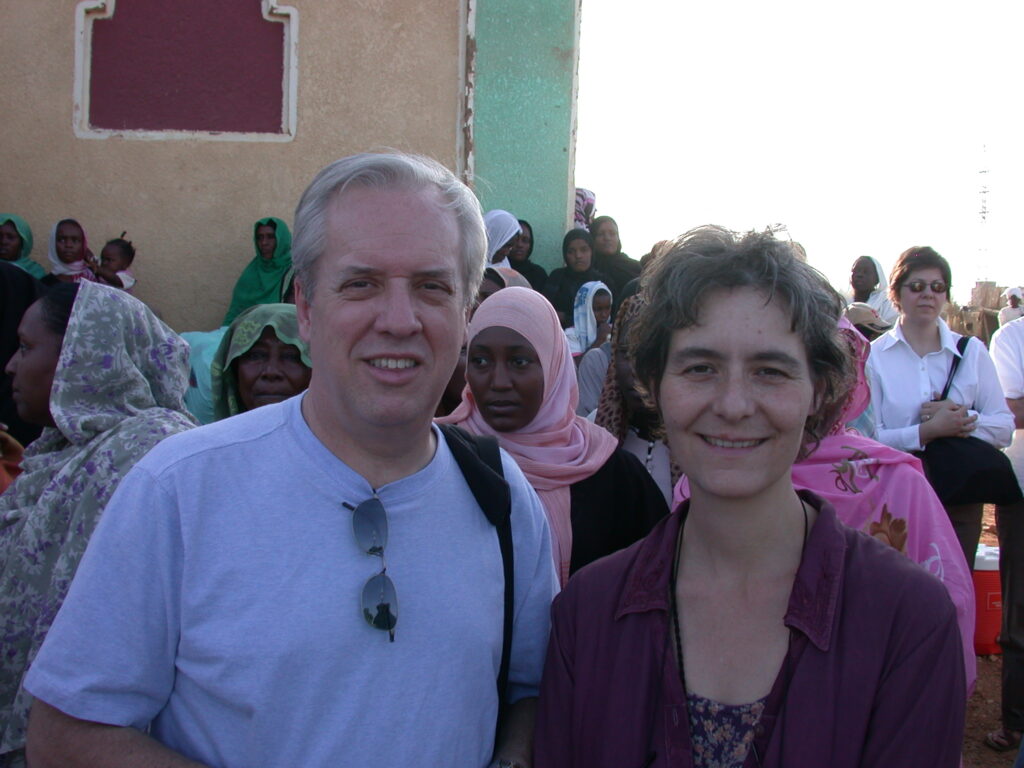
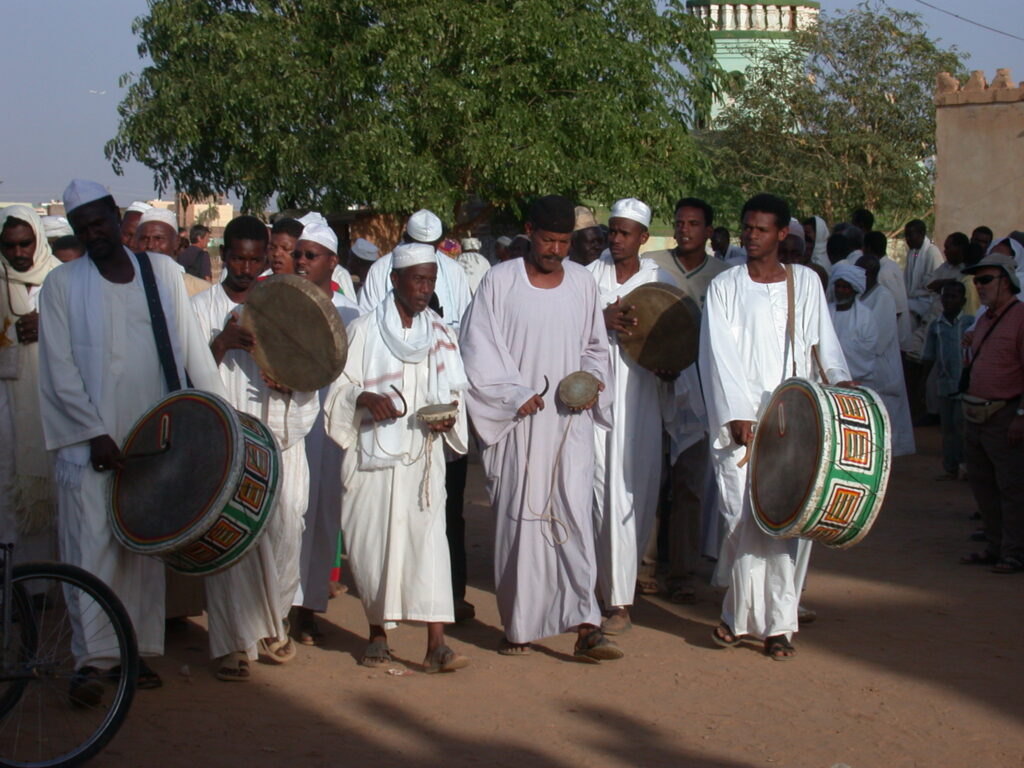
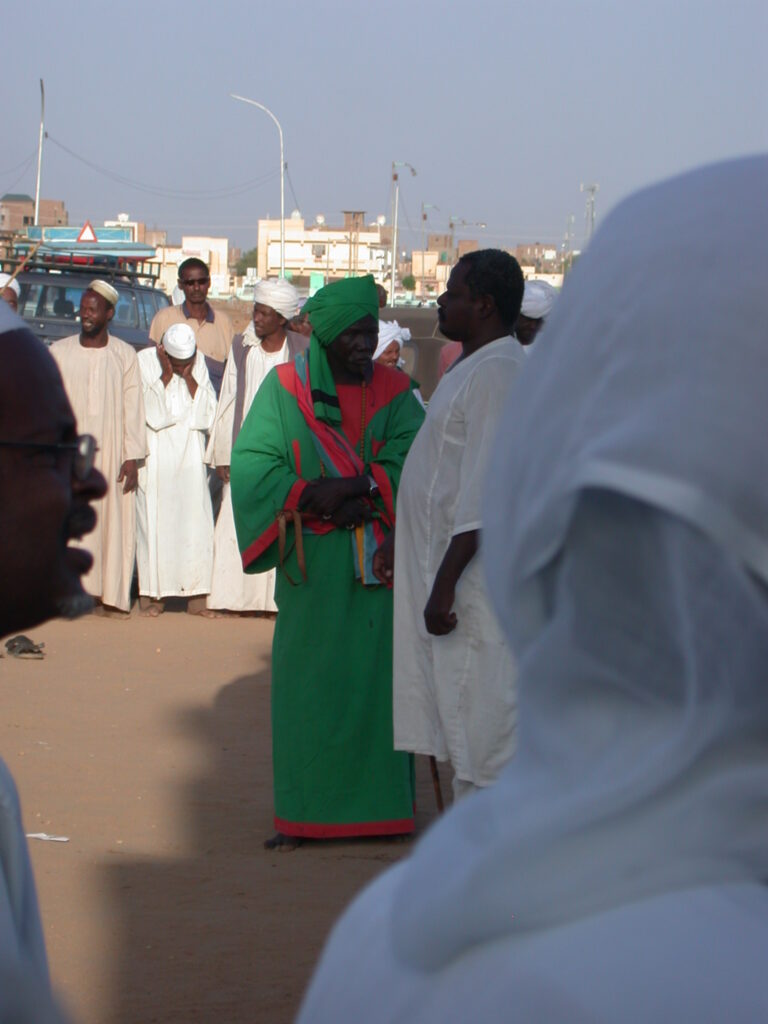
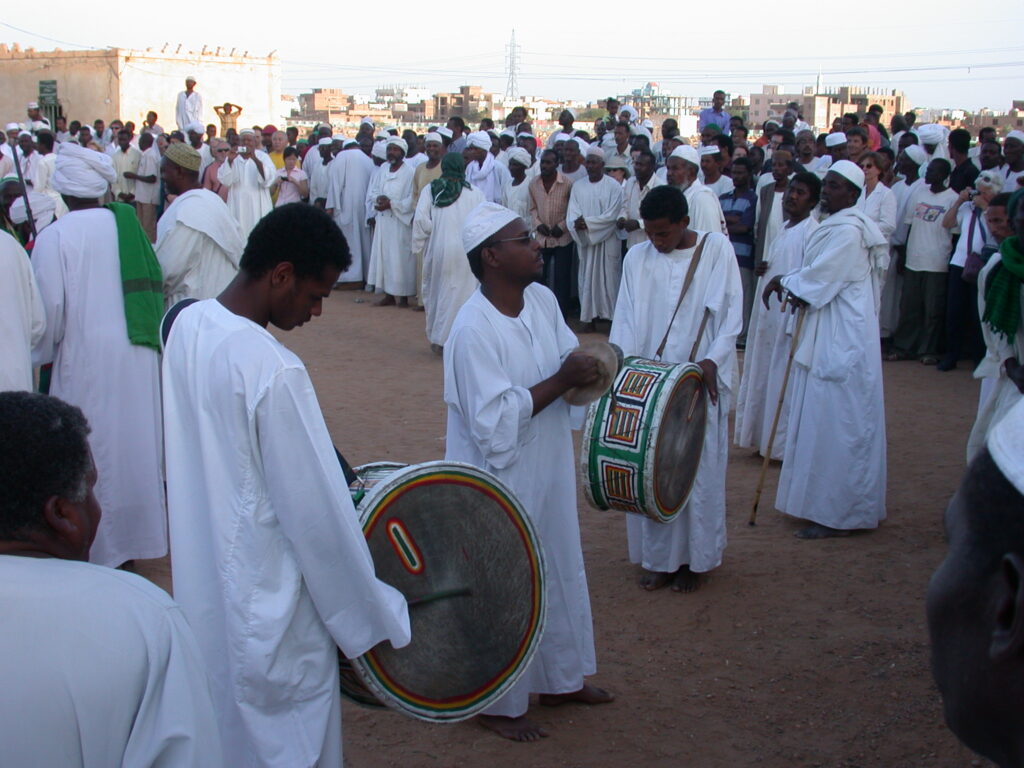
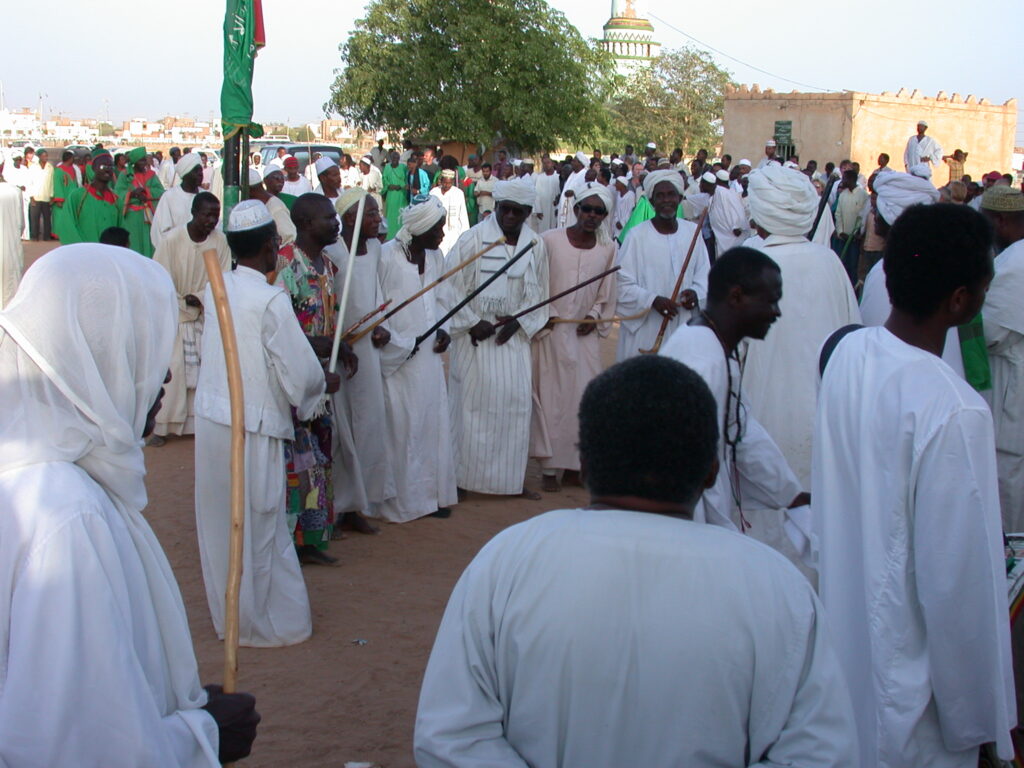
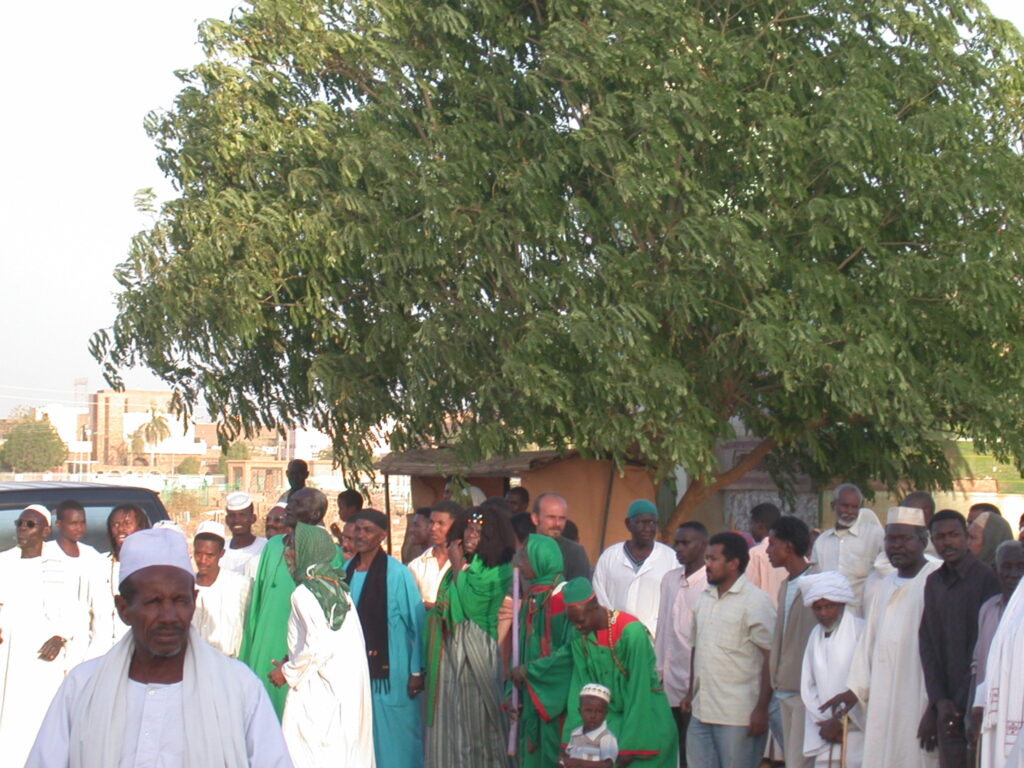
As the drumming and chanting of Islamic prayers gets more intense, the inner circle of mostly men start bobbing and bowing. Newcomers greet each other with handshakes or embraces, which become blessings. One elder Sufi, adorned in beads, embraces me, perhaps recognizing a kindred spirit from afar. Some enter the circle to shuffle forward and back in a counterclockwise direction. Some carry traditional sticks, whips, or other fetishes, which are used only symbolically in the dancing. The combination of chanting, drumming, and bowing becomes meditative, even engendering trance states. Occasional passionate dancers start twirling in the dervish fashion.
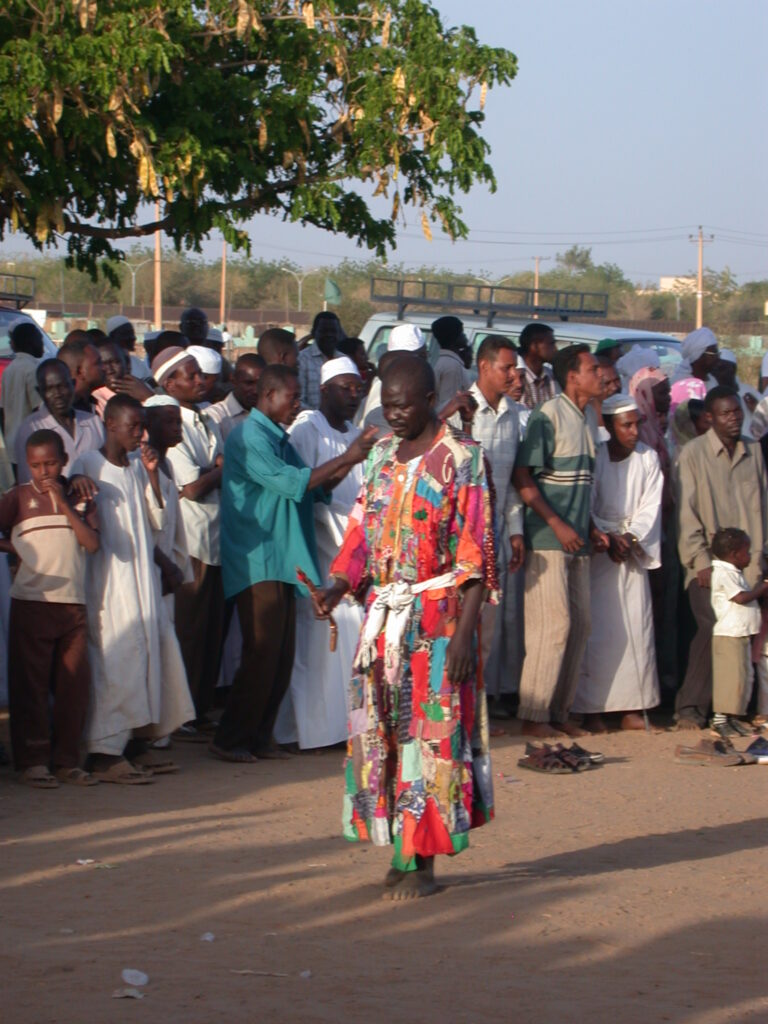
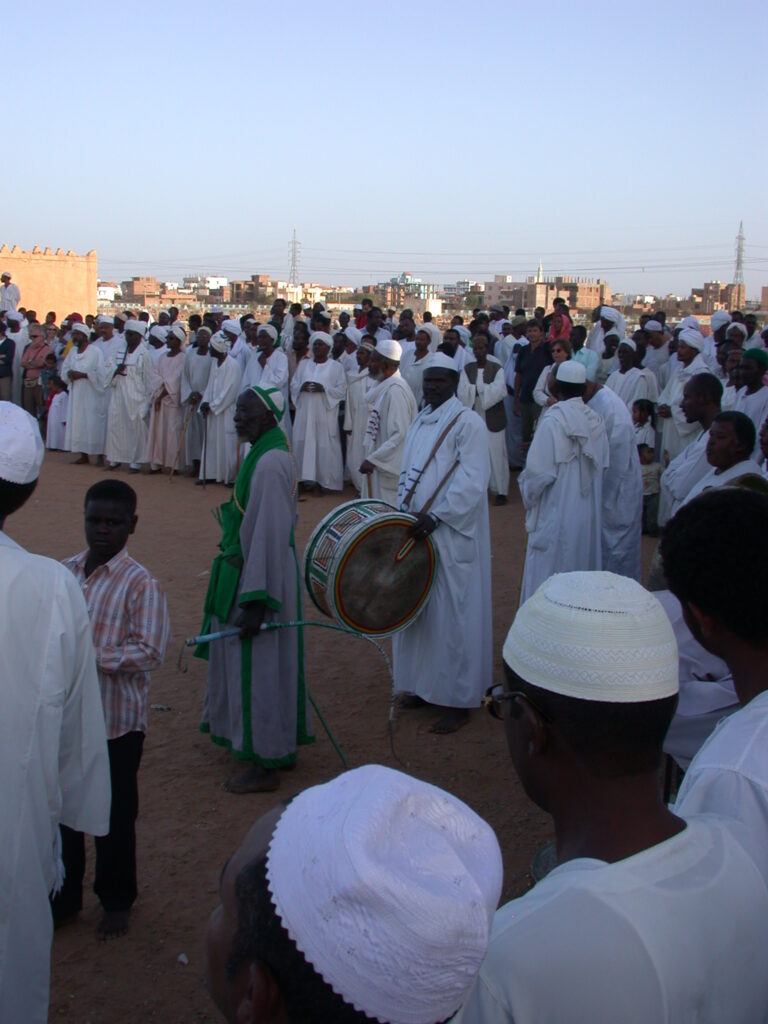
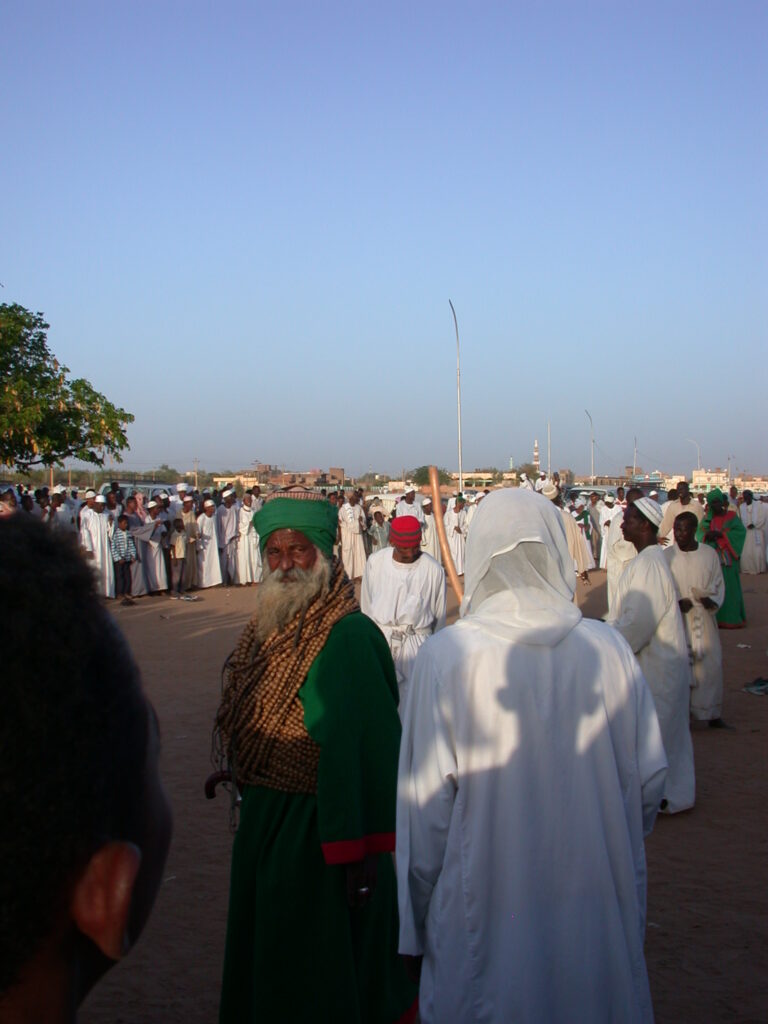
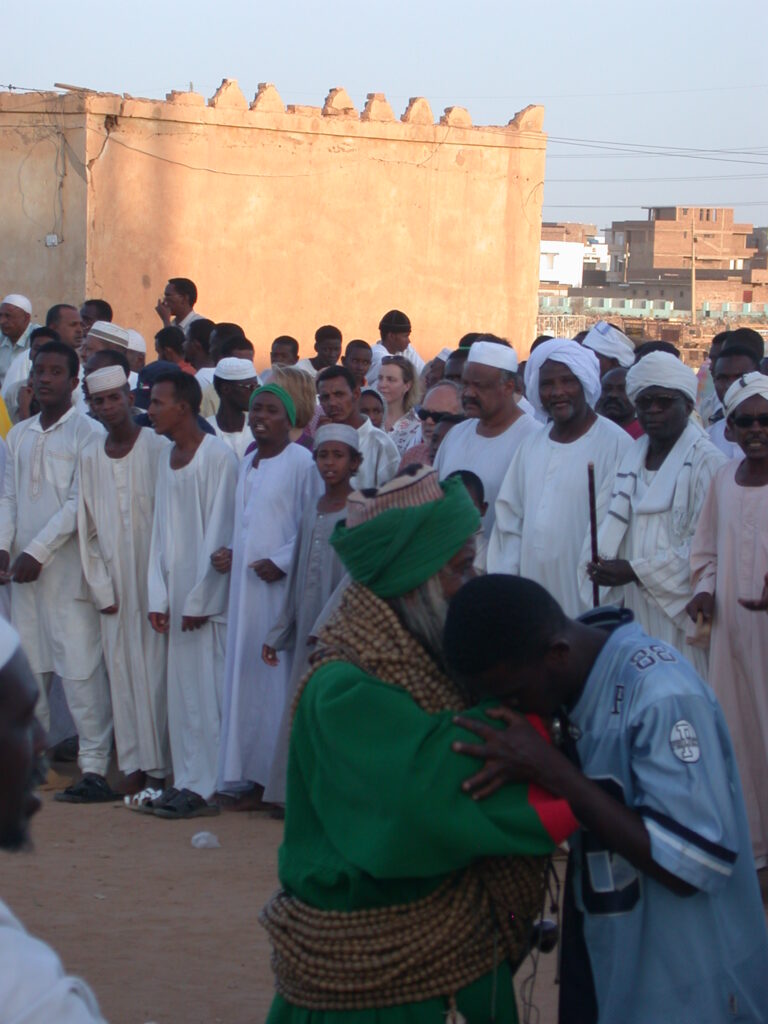
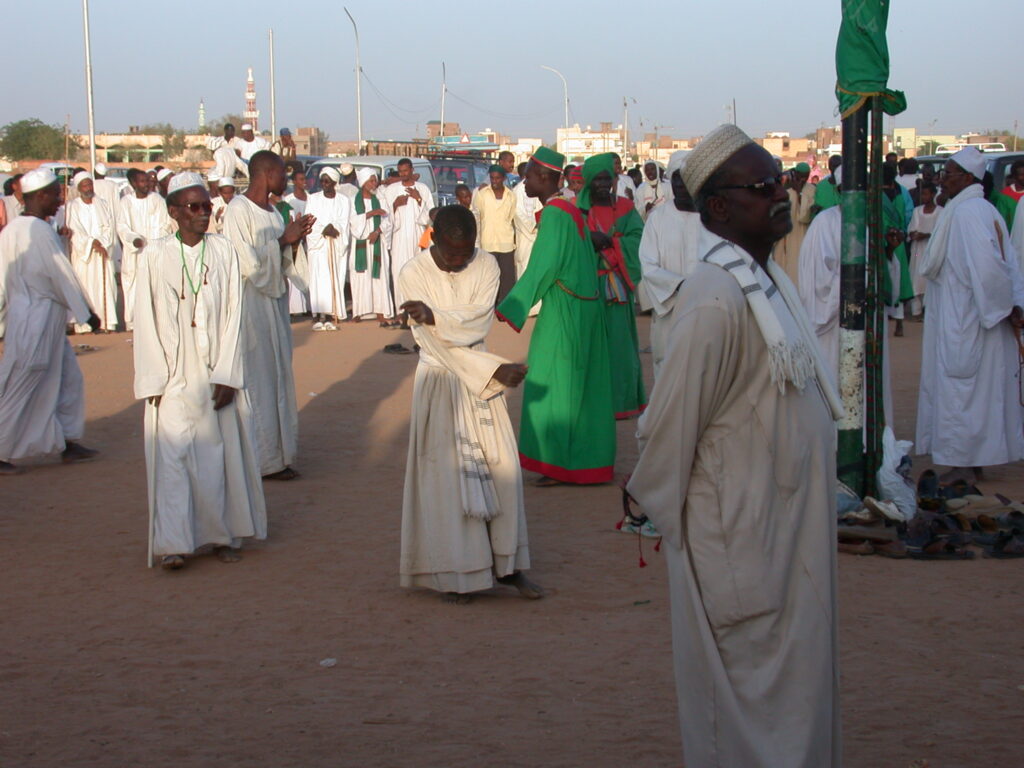
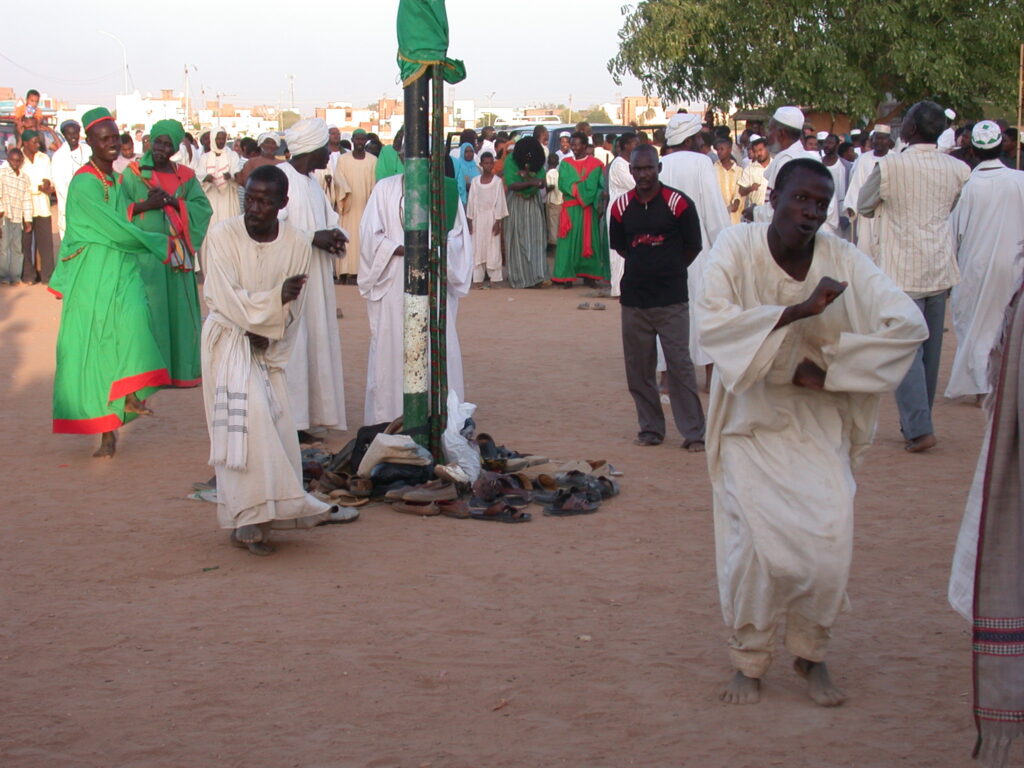
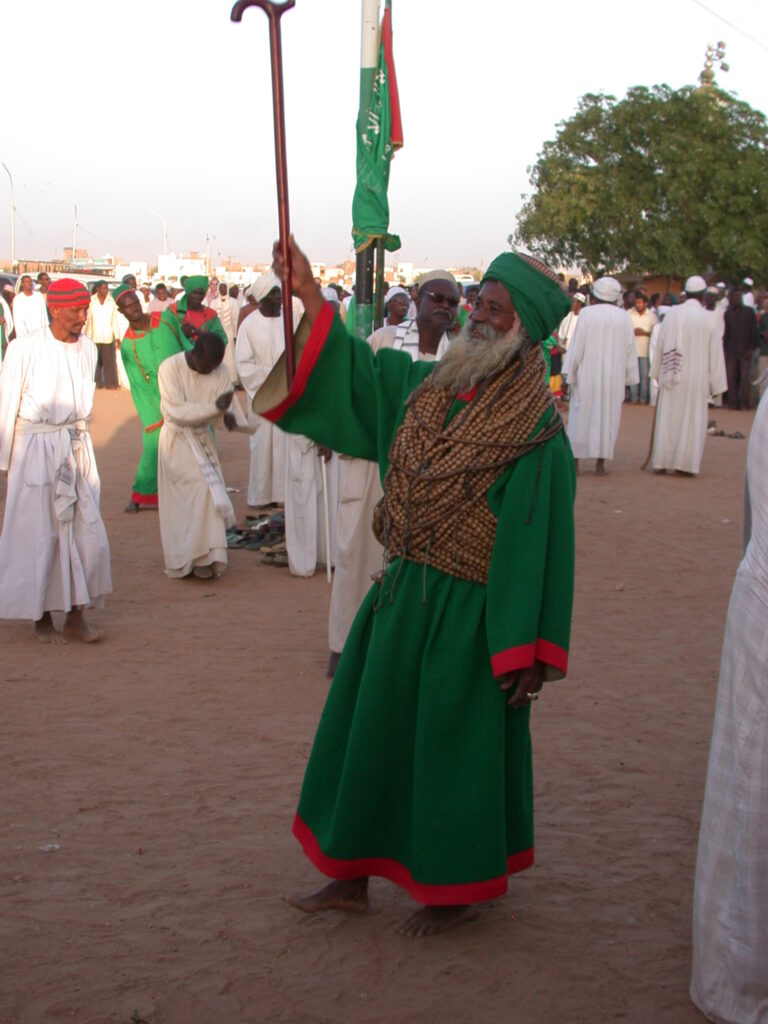
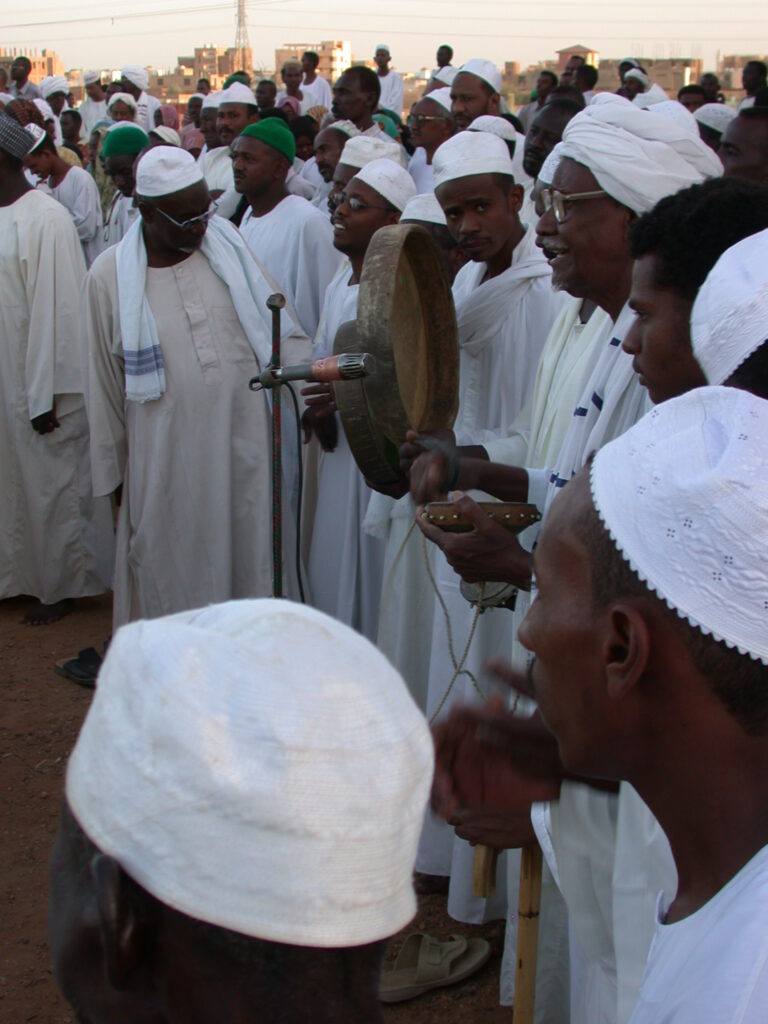
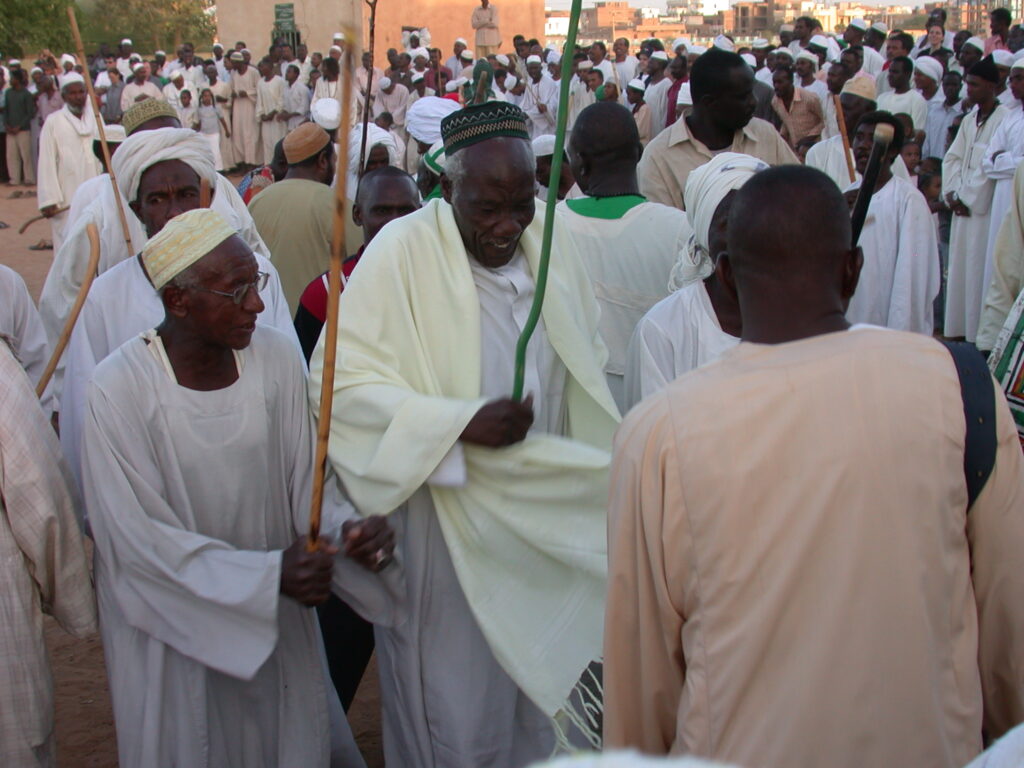
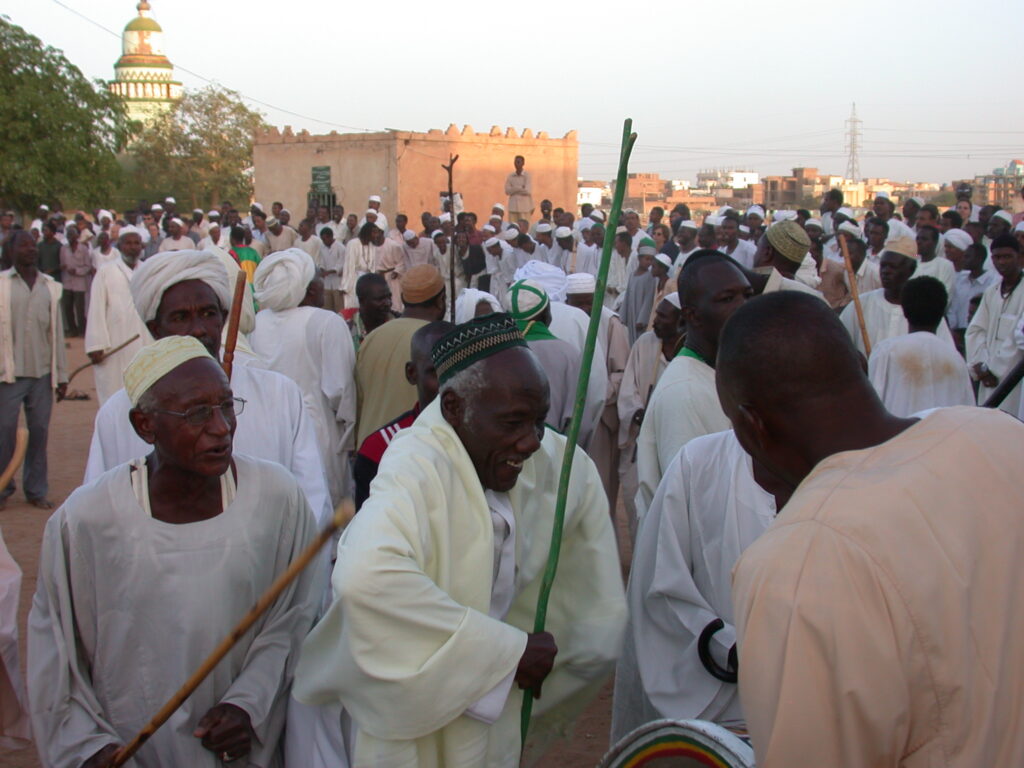
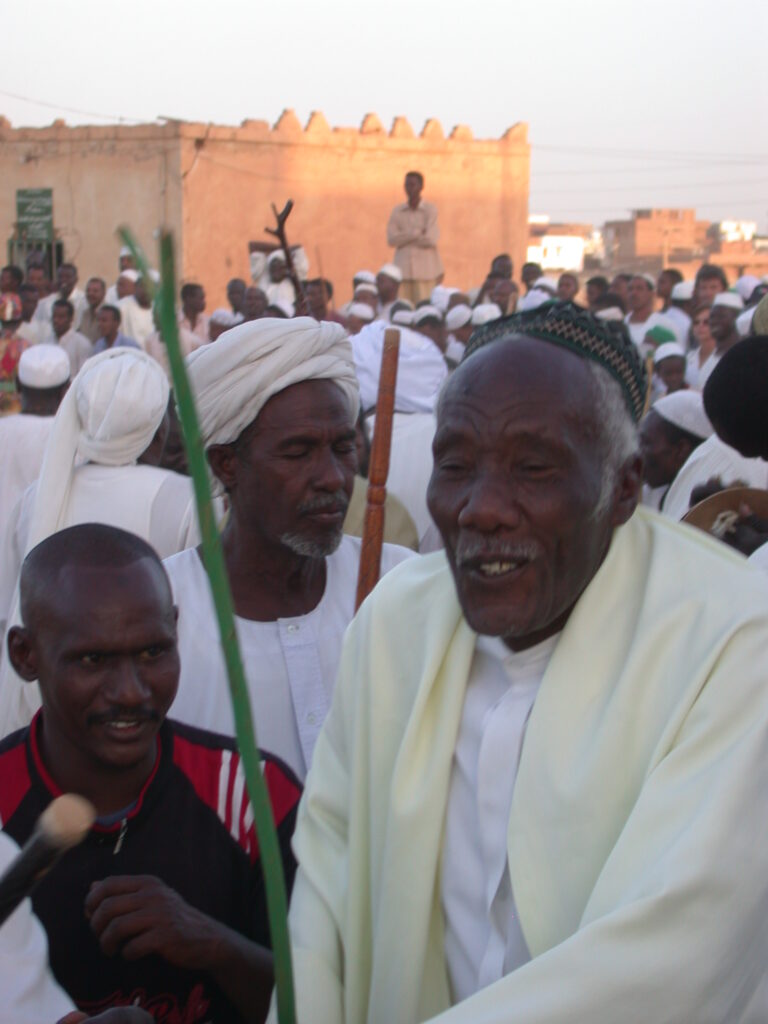
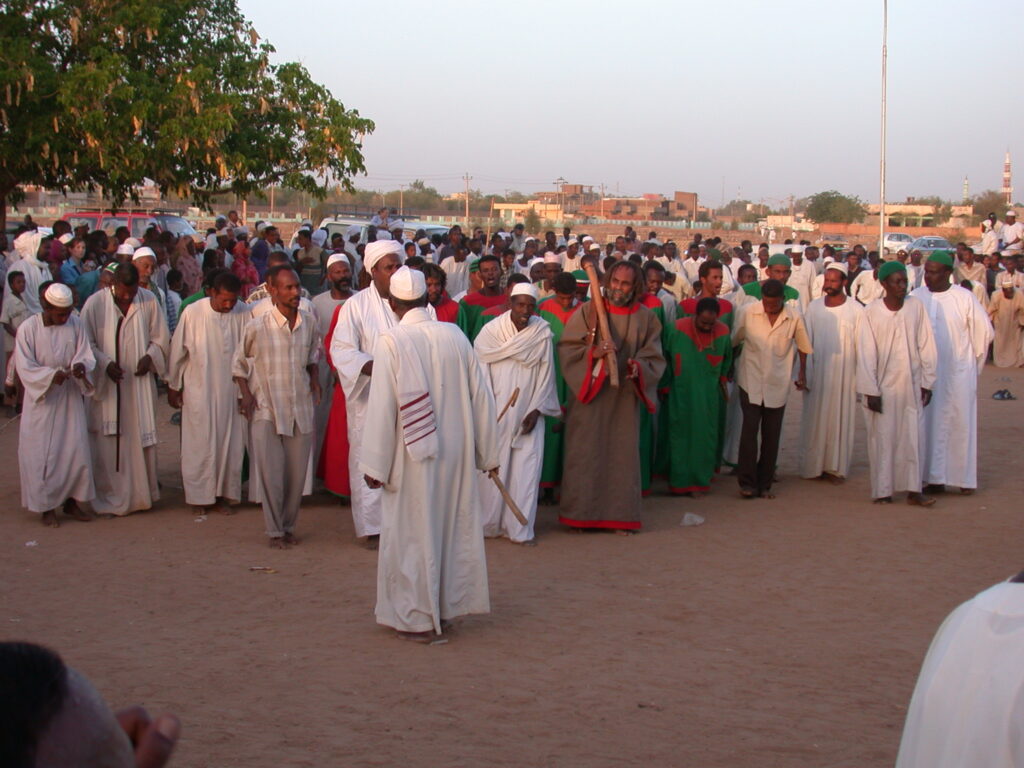
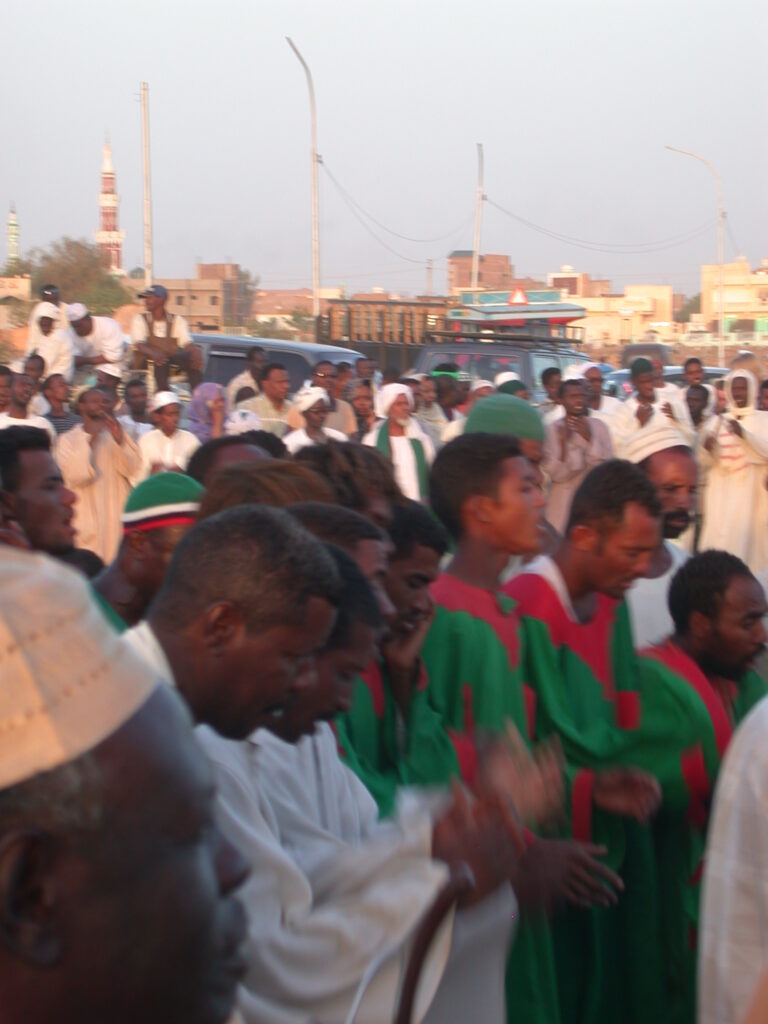
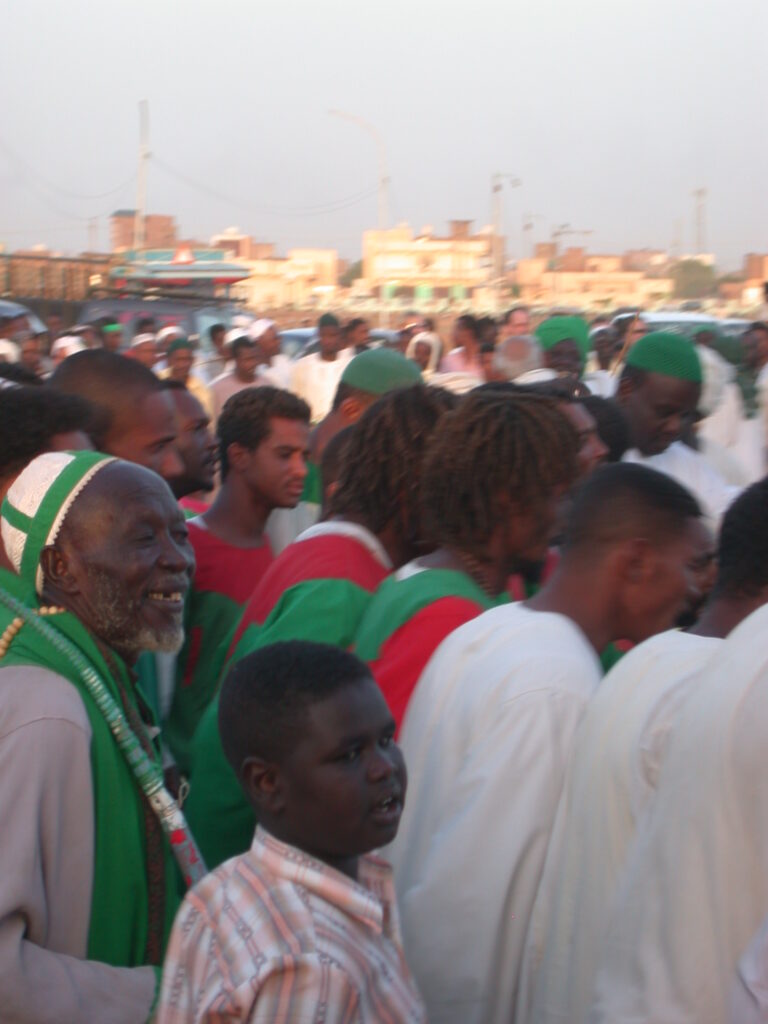
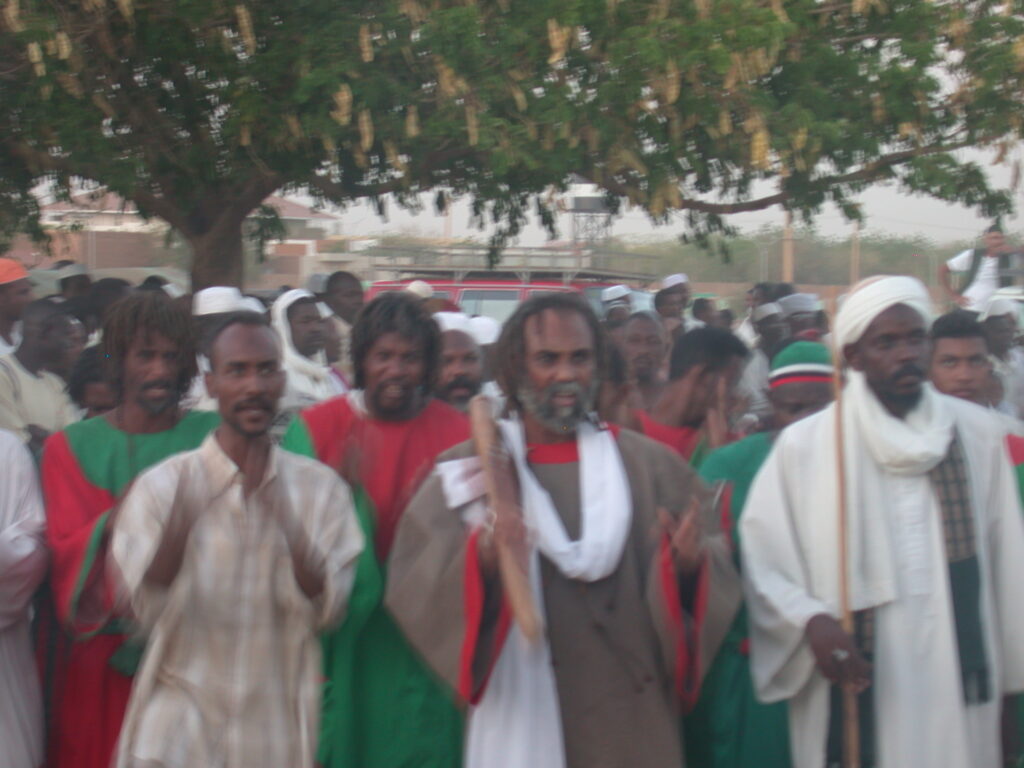
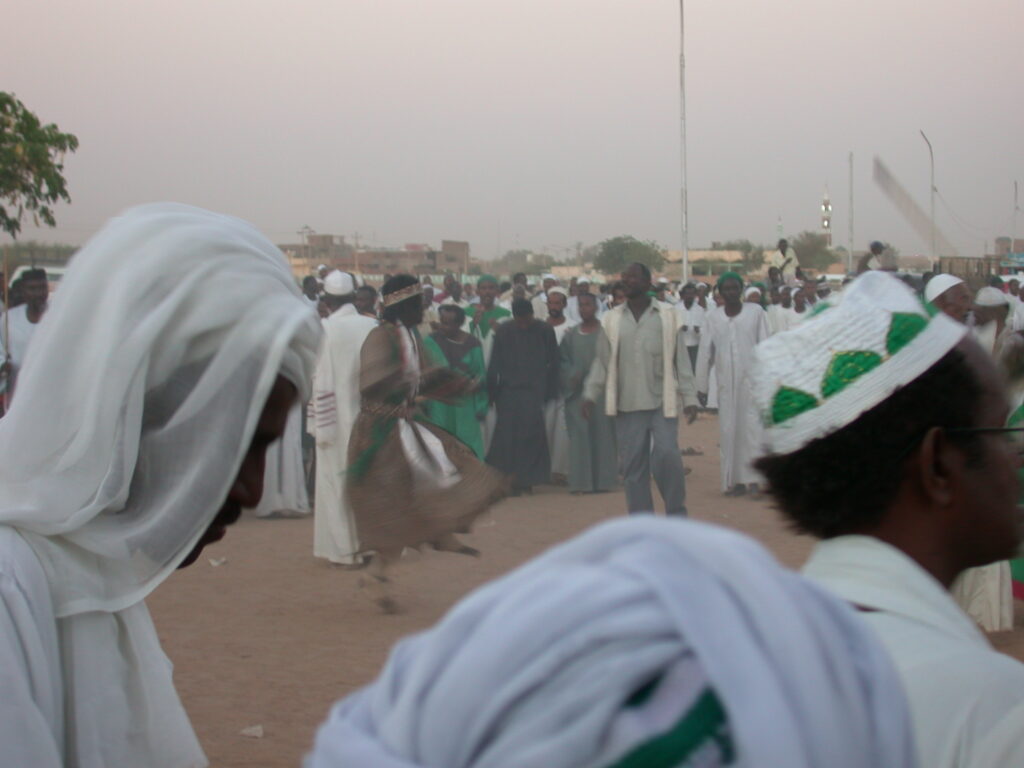
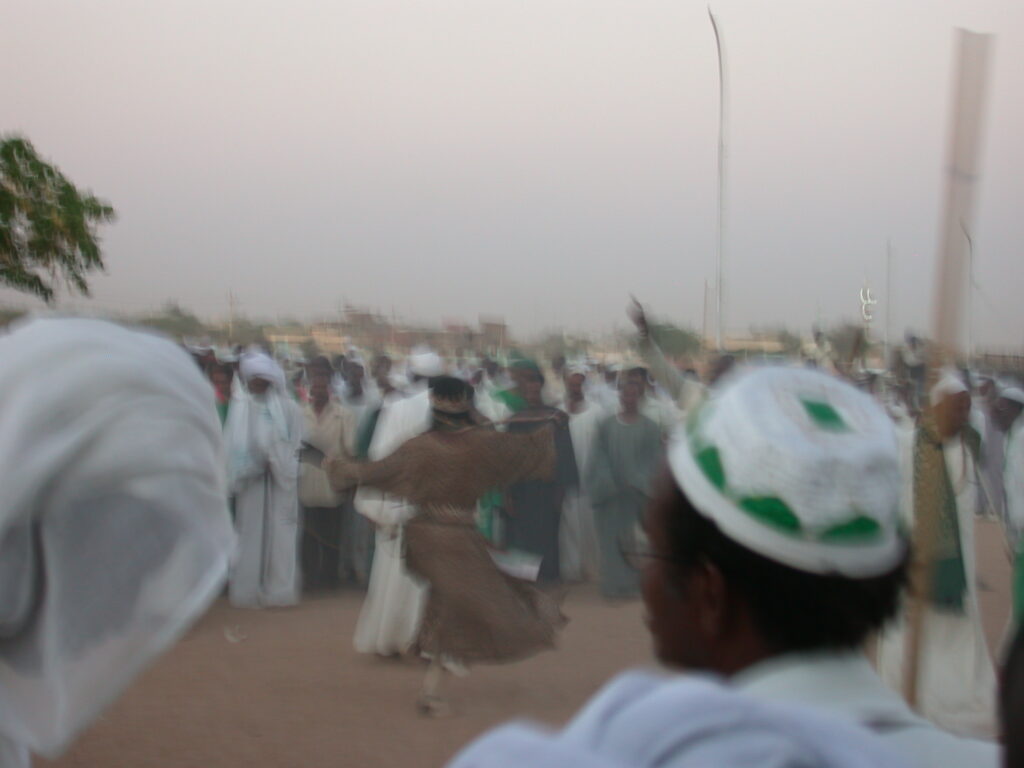
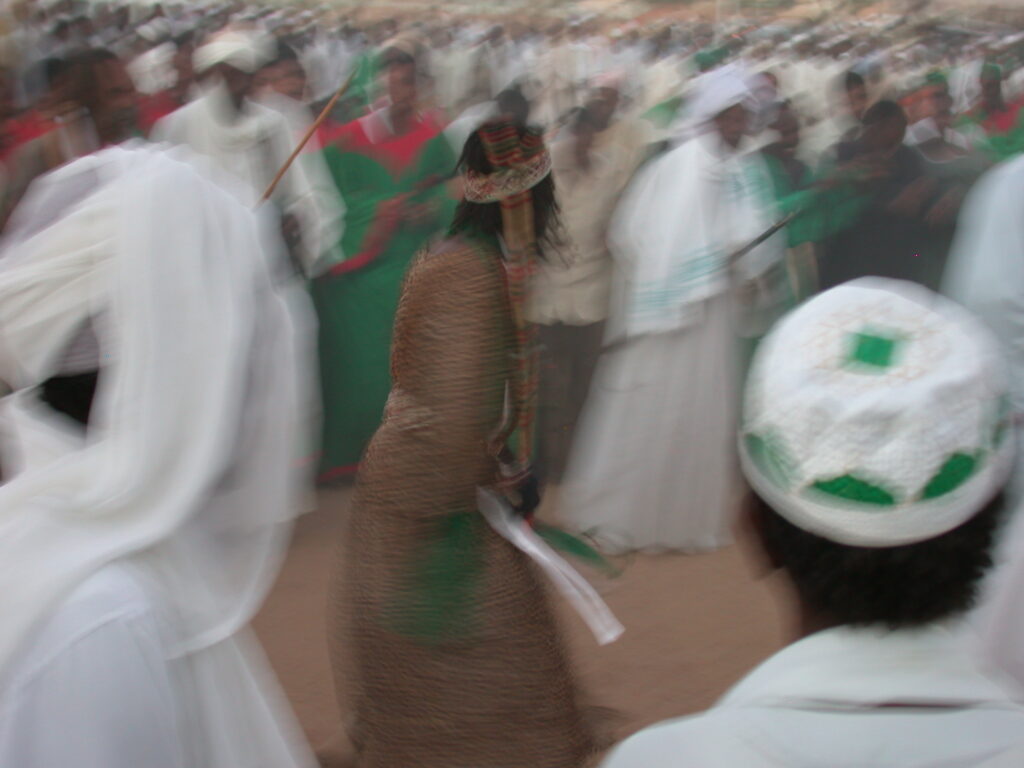
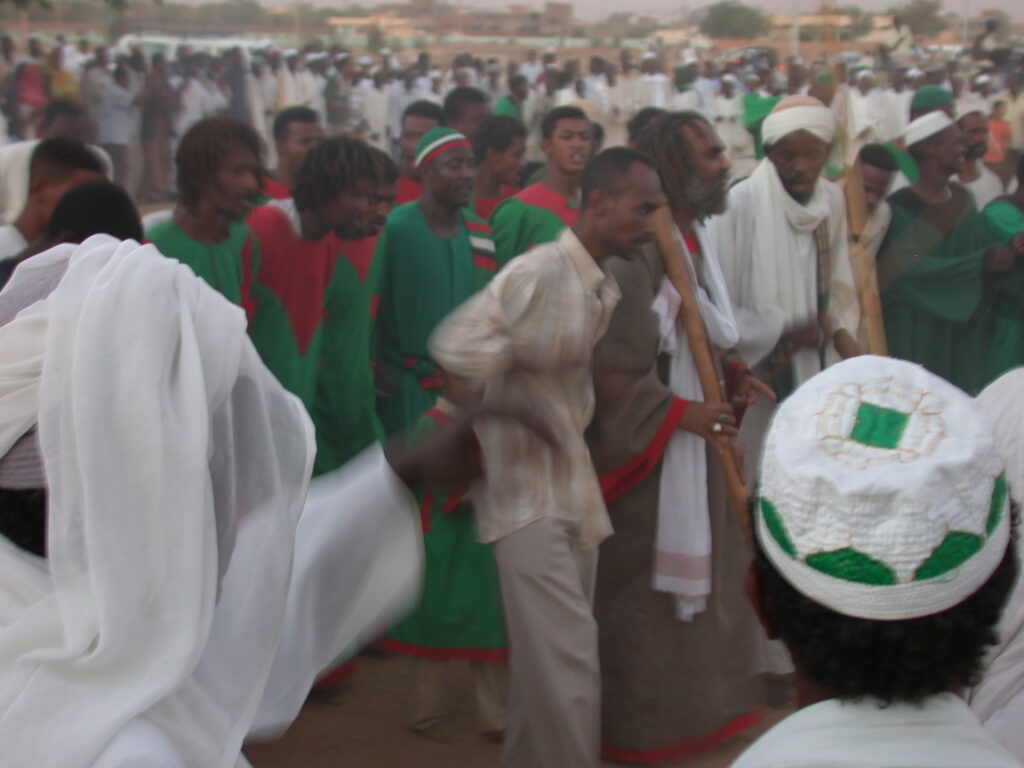
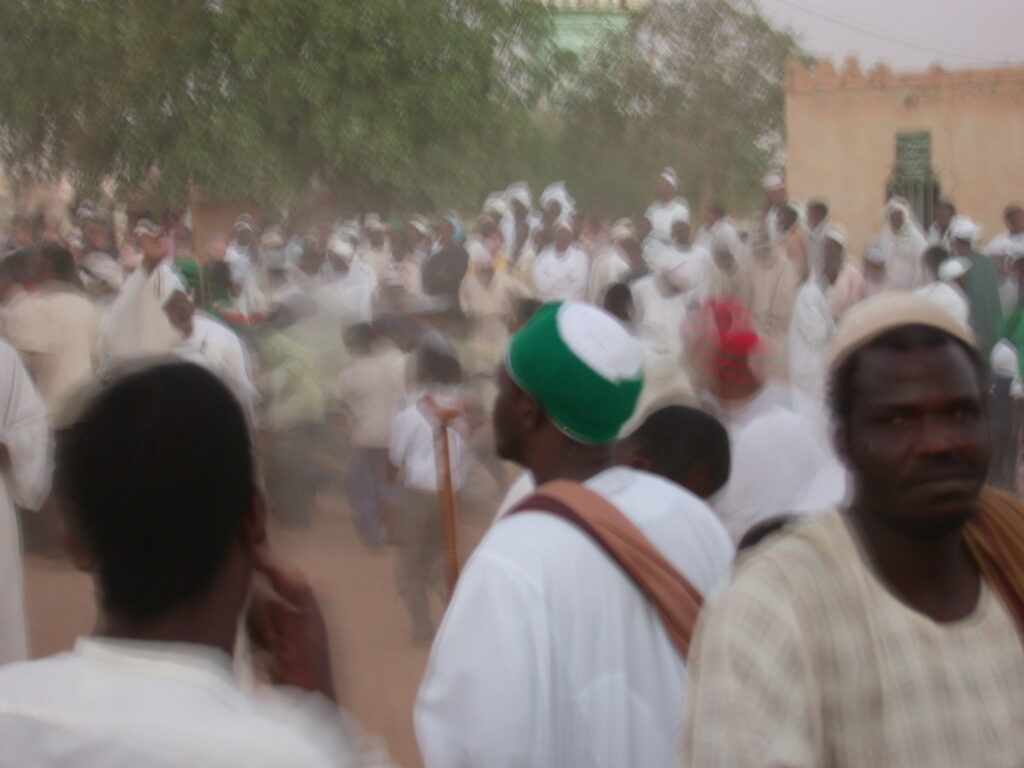
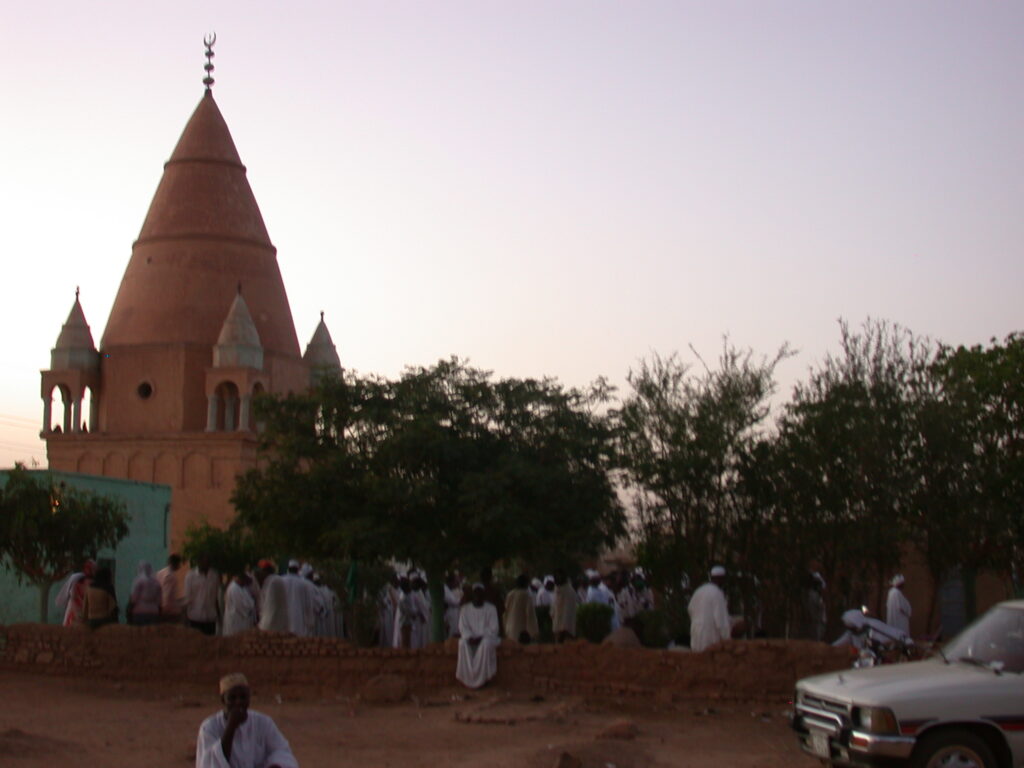
We got very thirsty went to buy juice and soft drinks after the Sufi dancing.

International Charity Fair, Akropole Hotel, and Cemeteries in Khartoum
Phil and some of the teachers from the Khartoum American School went to an international charity fair in Khartoum on March 23. I joined them.
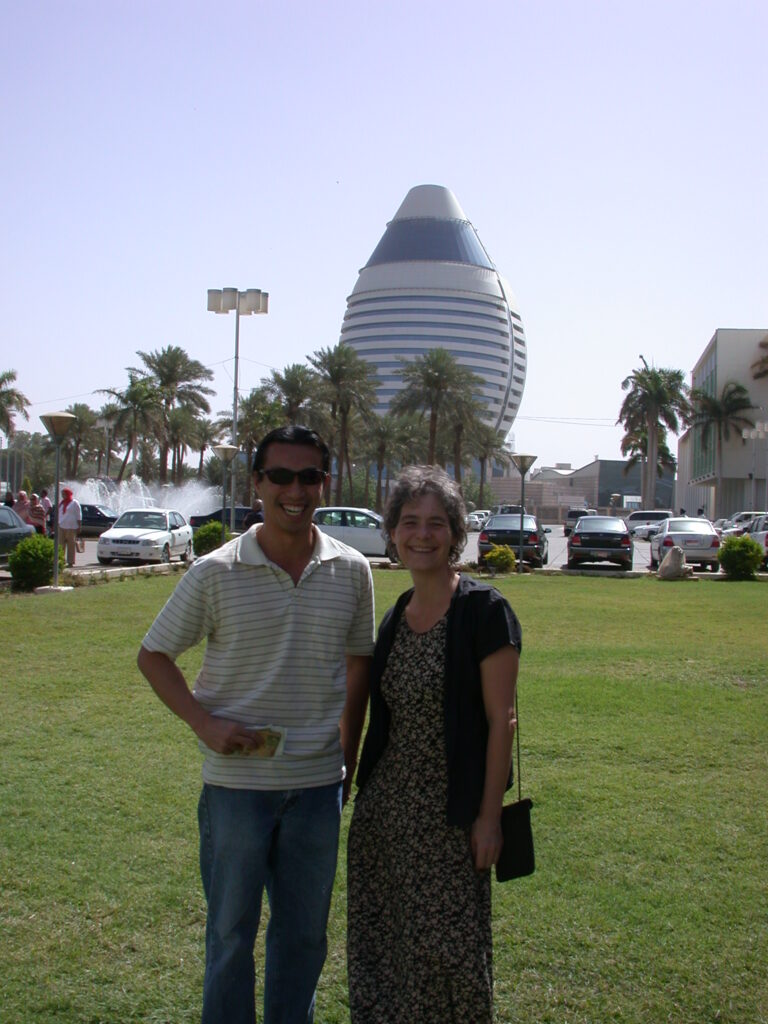
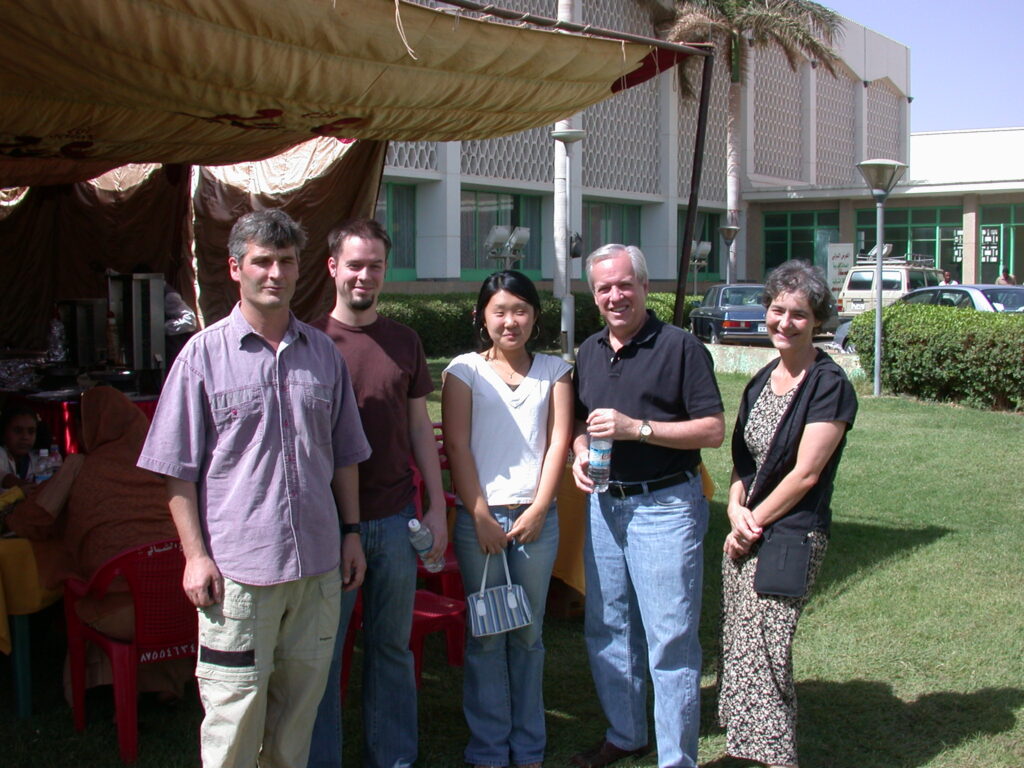
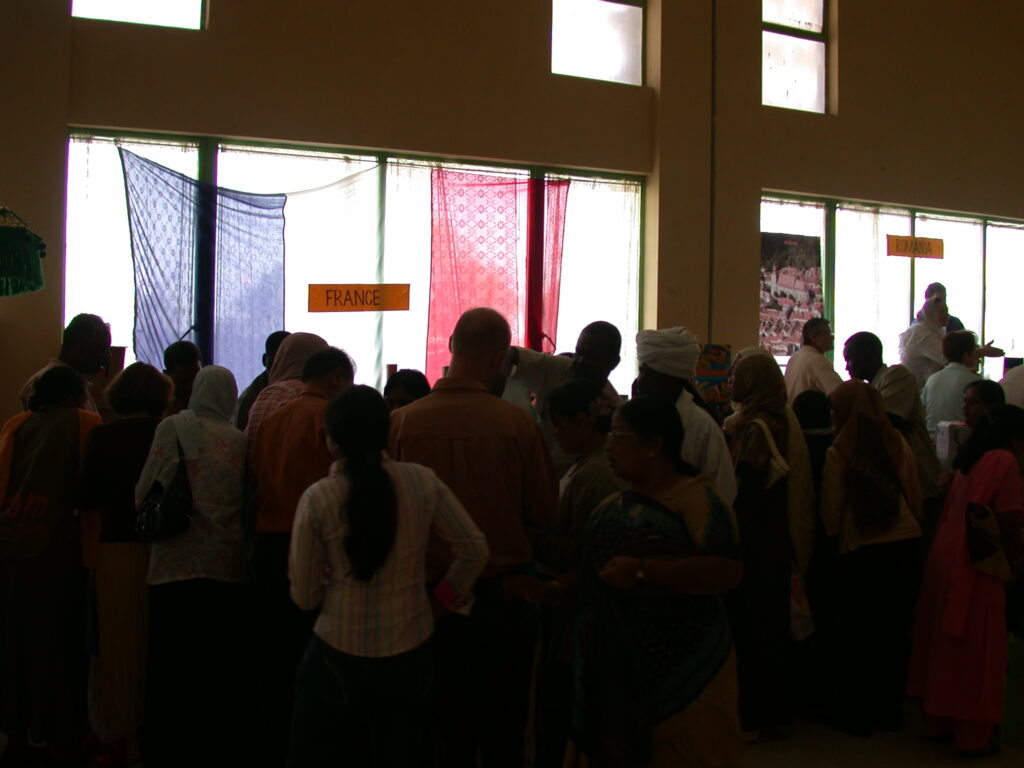
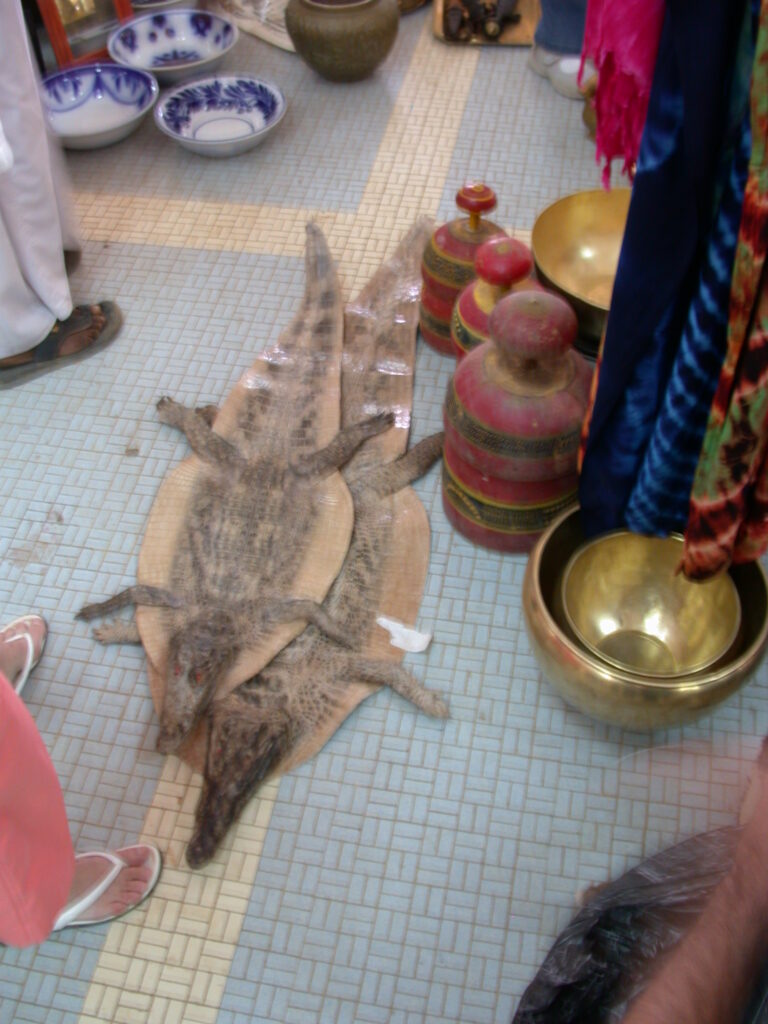
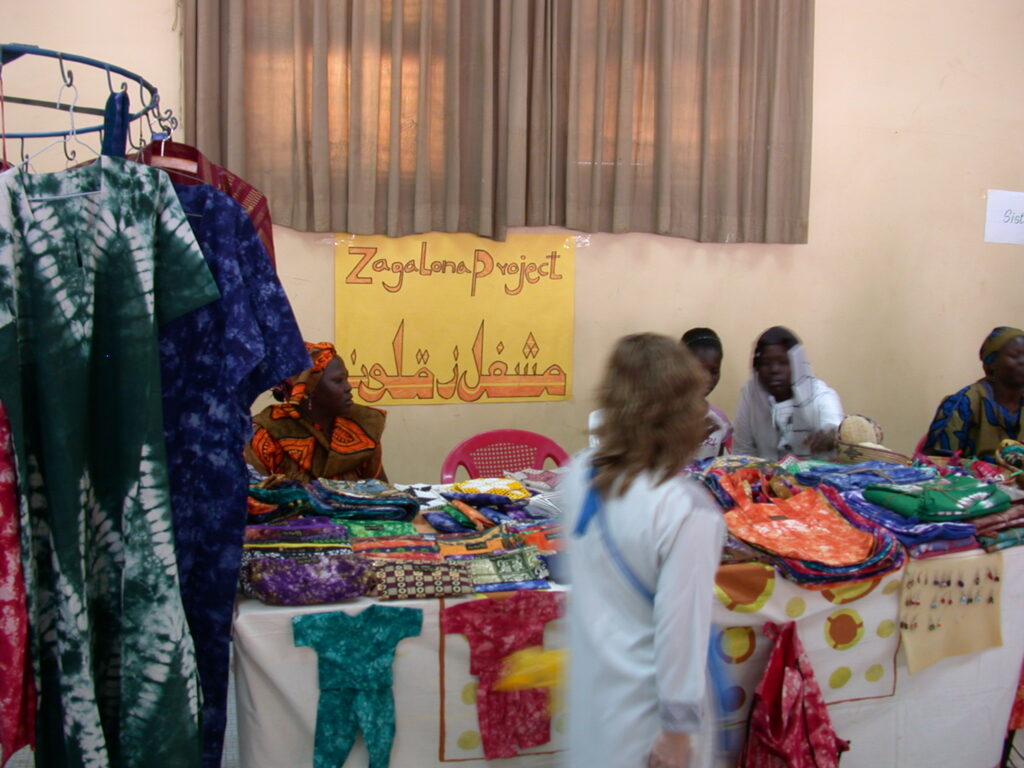
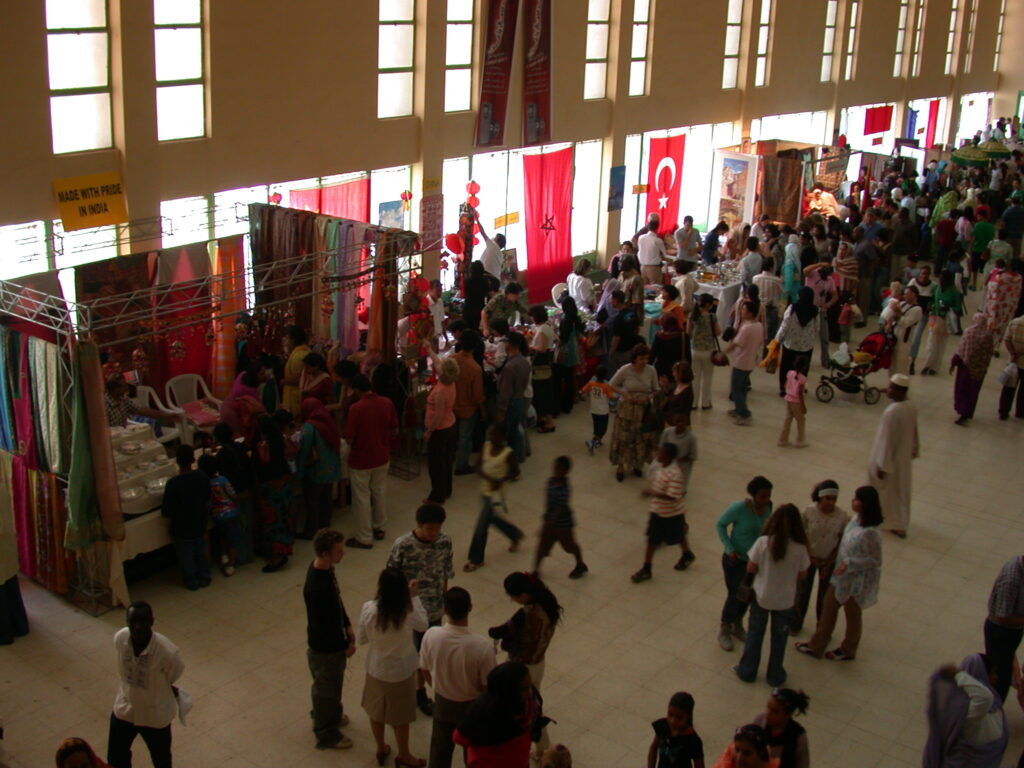
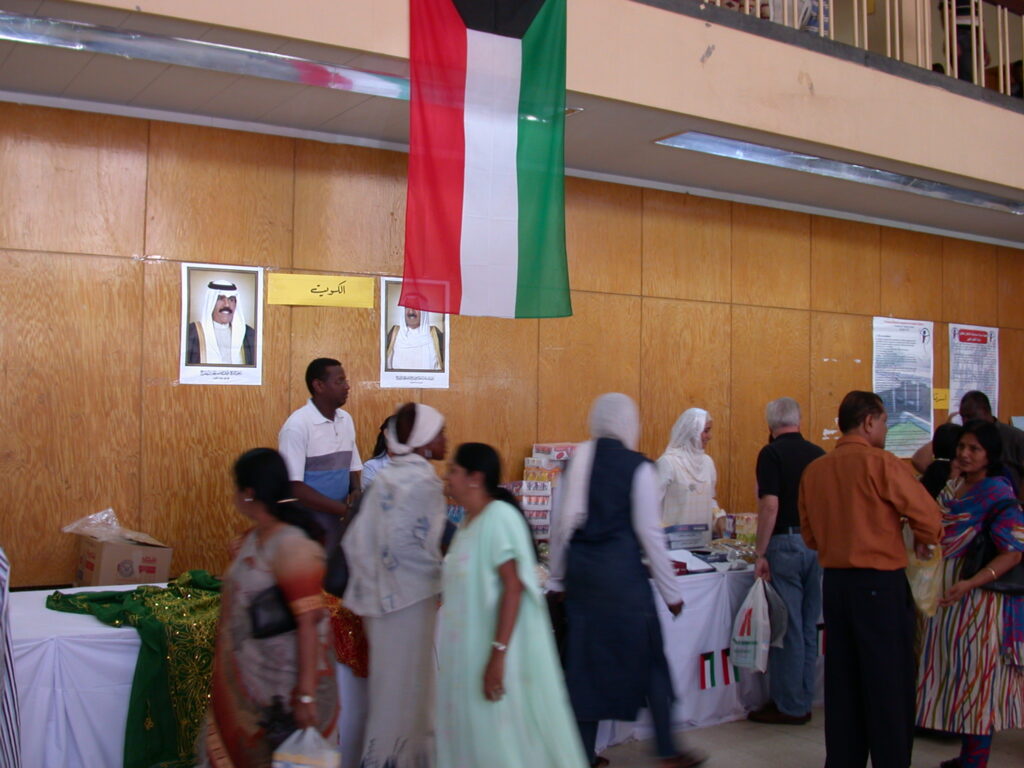
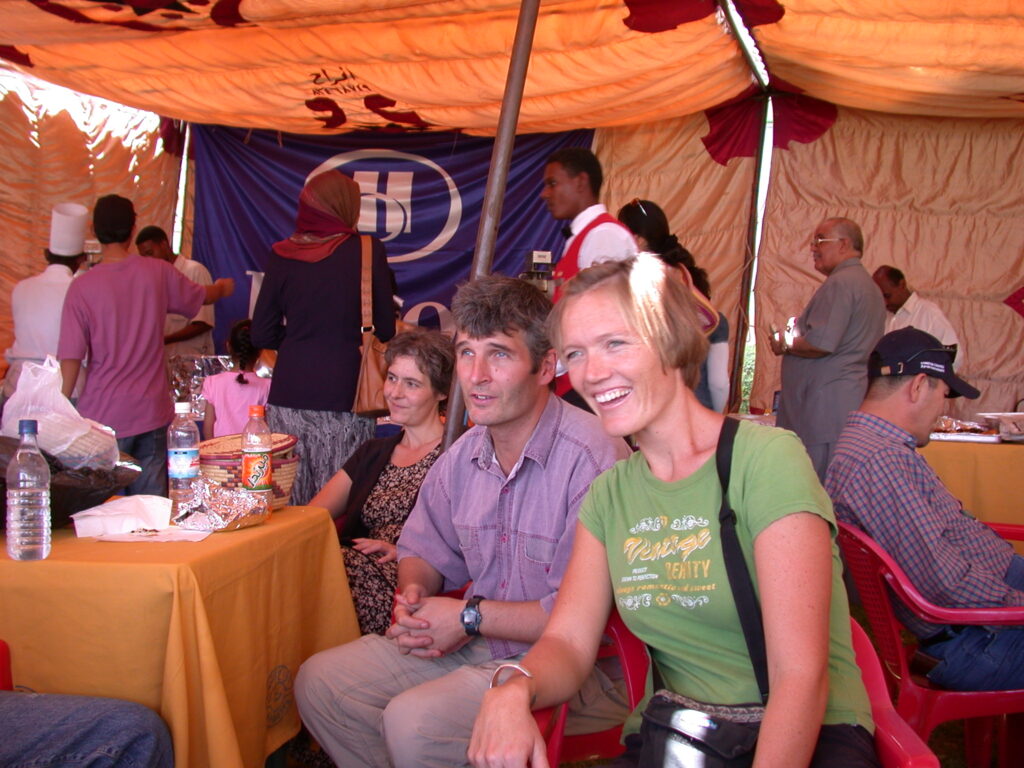
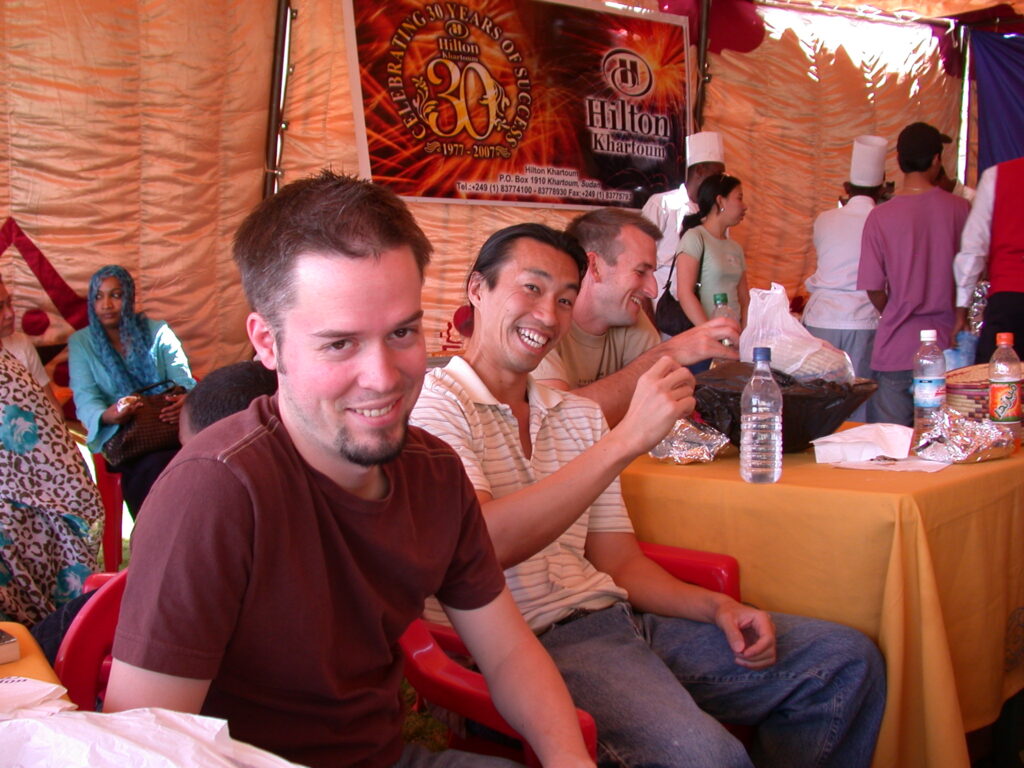
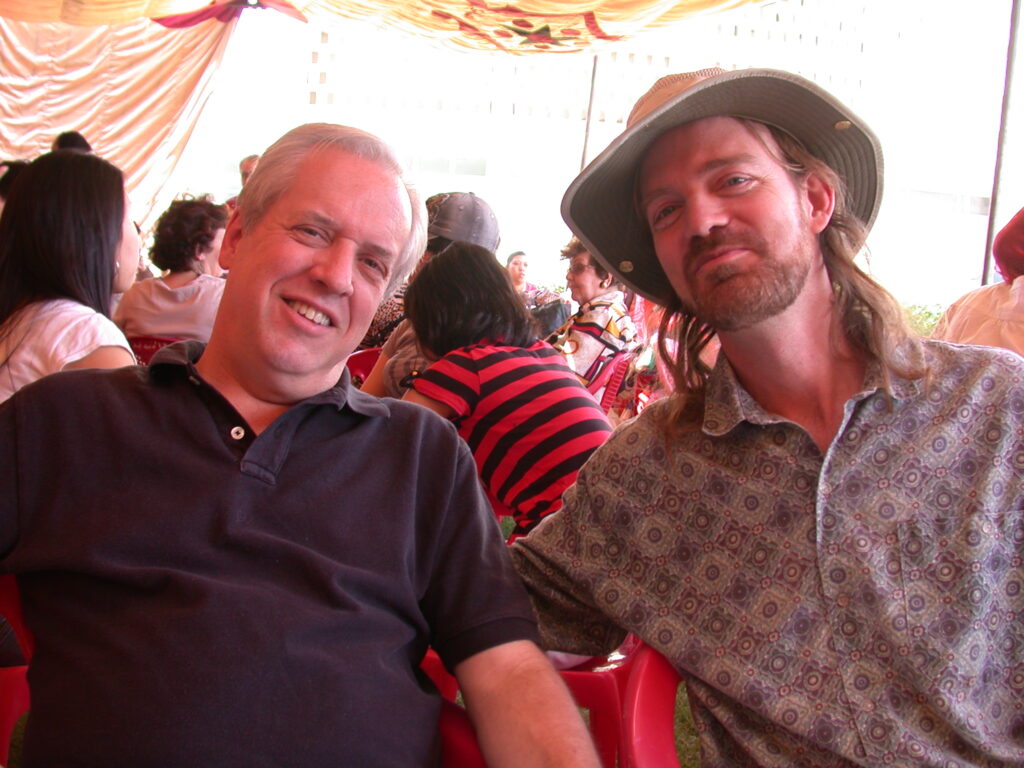
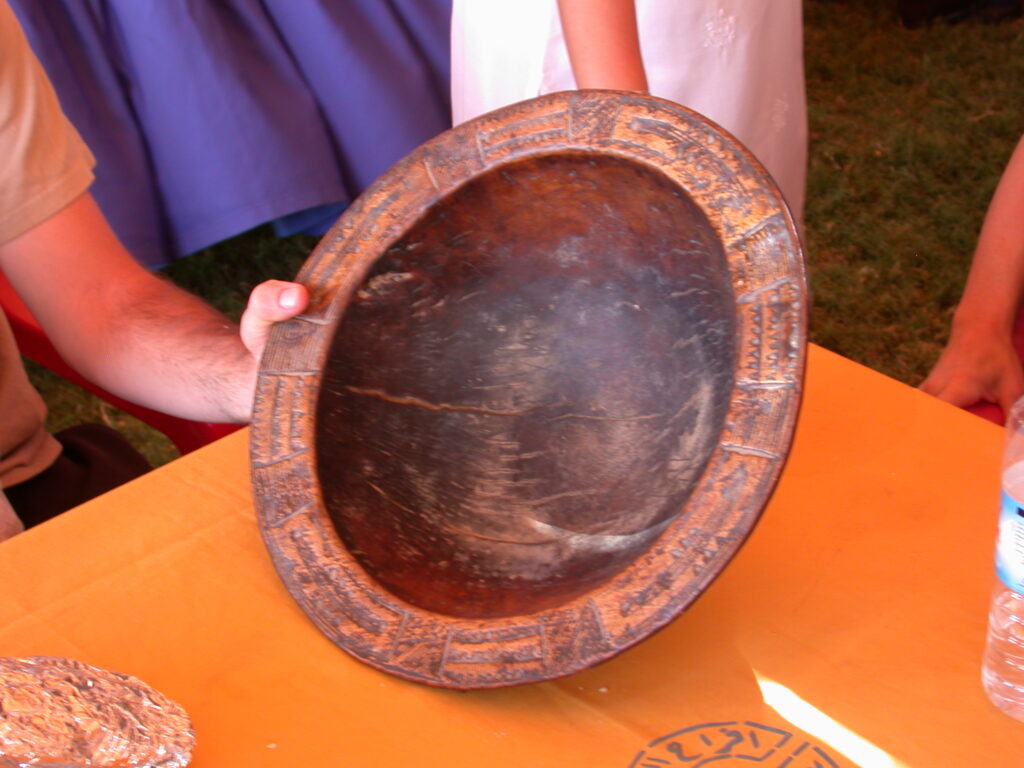
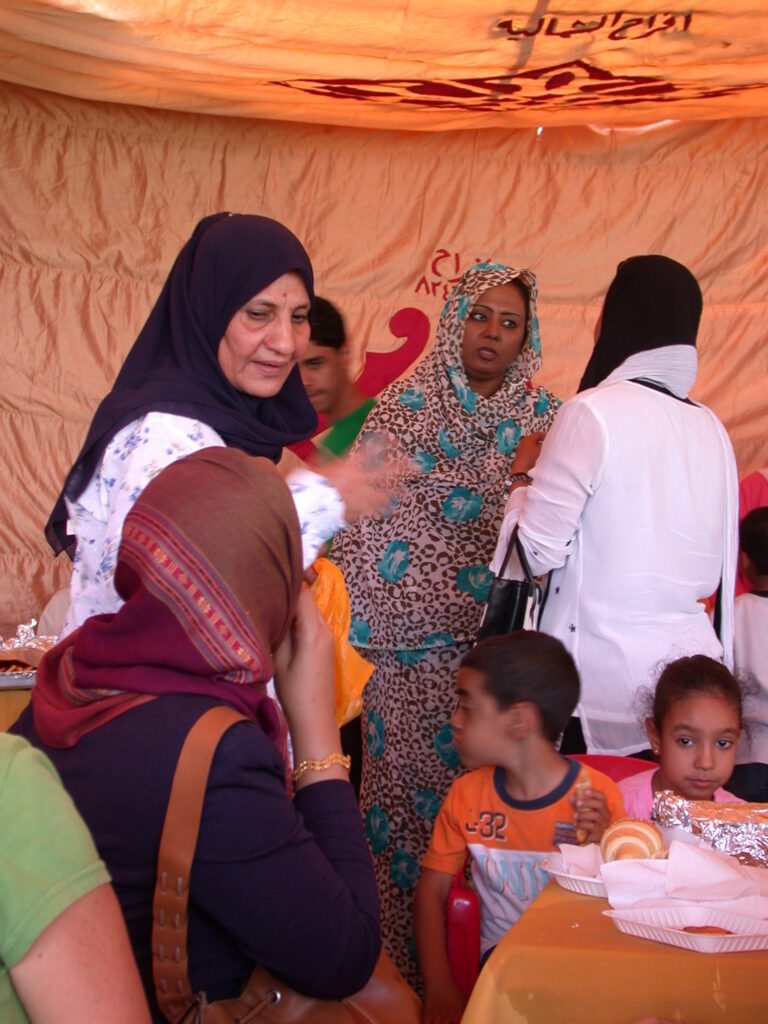

After the fair, Phil and I stopped by the Akropole Hotel, some years ago the site of a terrorist attack in Khartoum. The staff helped us to understand that not many people are traveling north as it is the end of the archaeological season because it is getting quite hot now. Instead, most of the people staying at the hotel are now journalists covering the Darfur situation.

Next, Phil and I visited a Christian cemetery and a war memorial cemetery. Around here, Christians are buried in separate cemeteries from Muslims. Most of the Christian men died in their early to mid-forties, my age. Most of the soldiers died in their twenties, victims of the conflicts with Italy in the late nineteenth century, then around World War II.
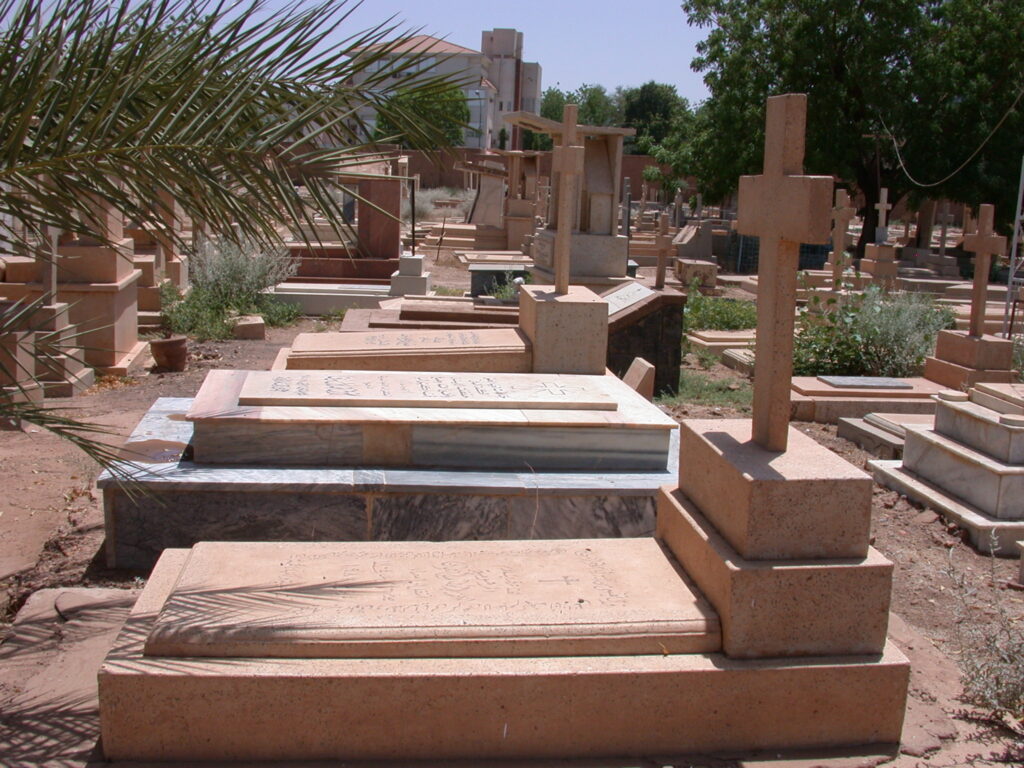
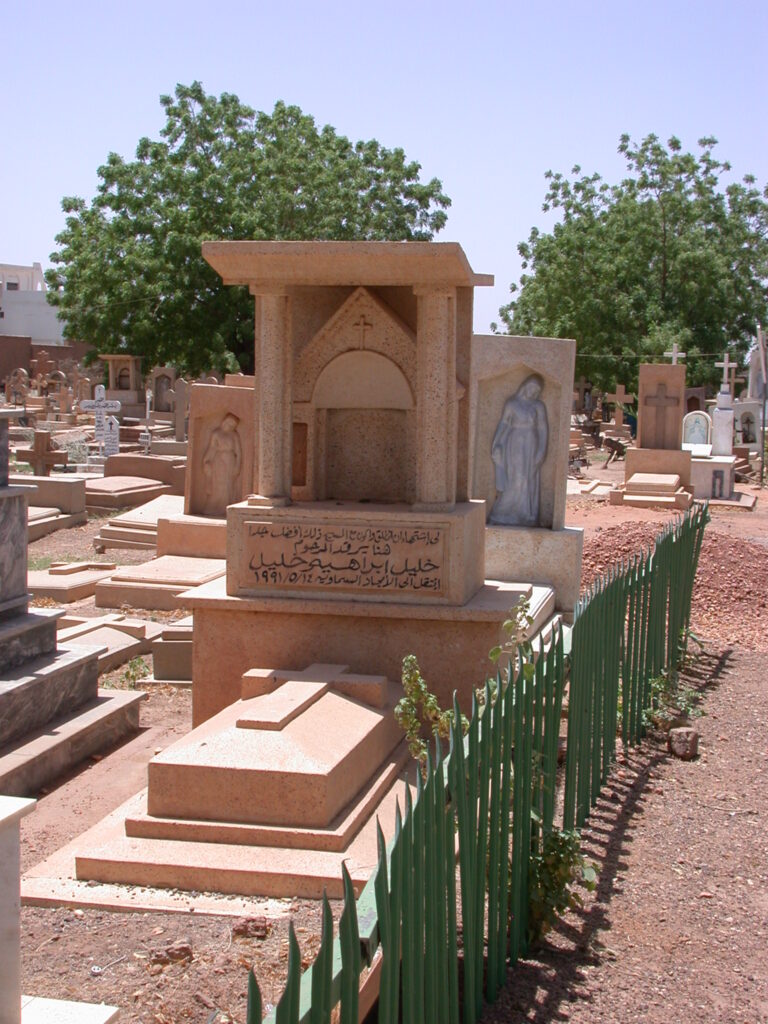
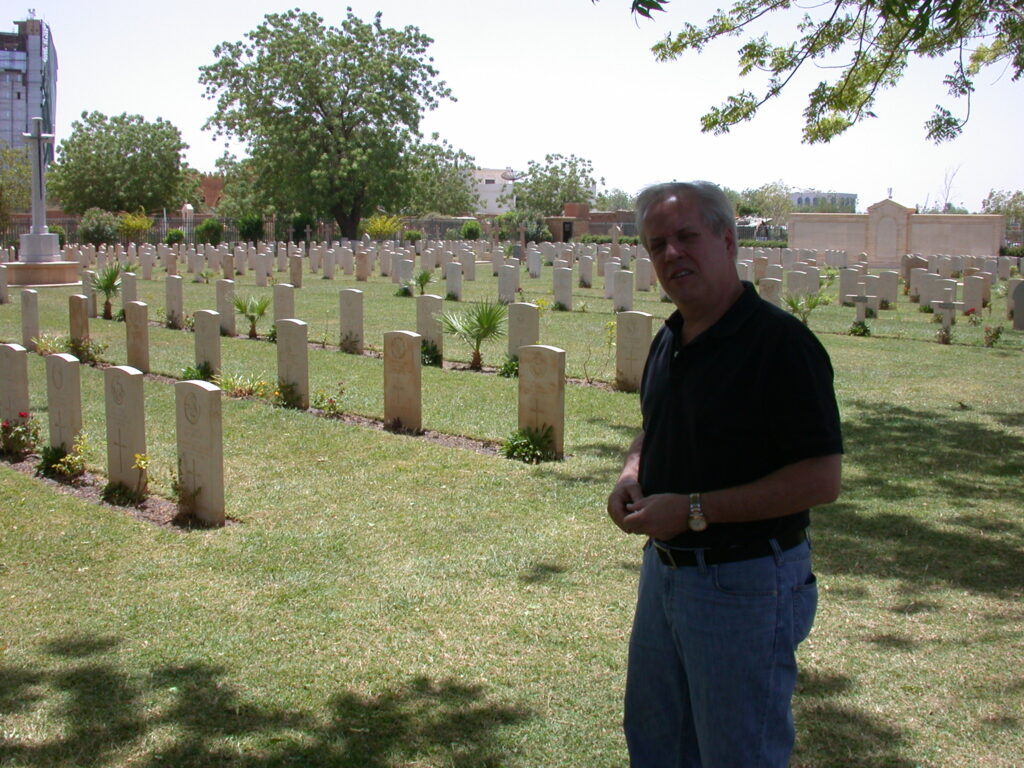
Next, we went to some fruit and vegetable stands and on to rest at Phil’s place.
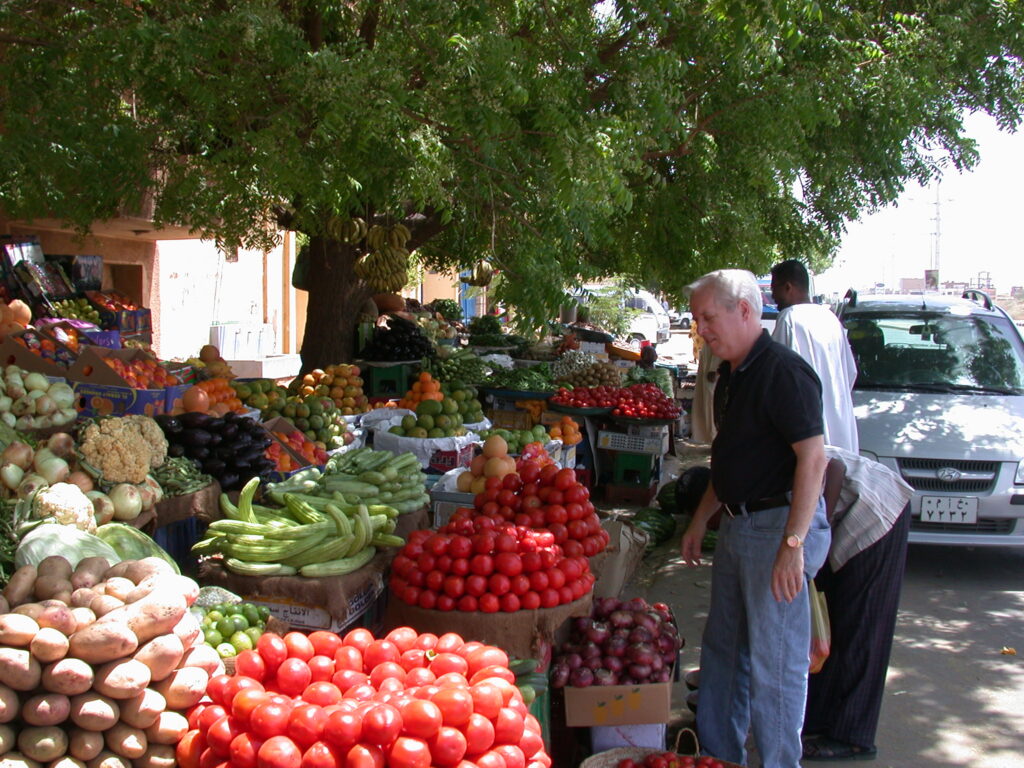
Sudan Reprise: Arriving in Khartoum
When Phil arrived at the mosque near the bus station to pick me up, he took one look at me, heard me say I was sick, and we went directly to a medical clinic near his home.
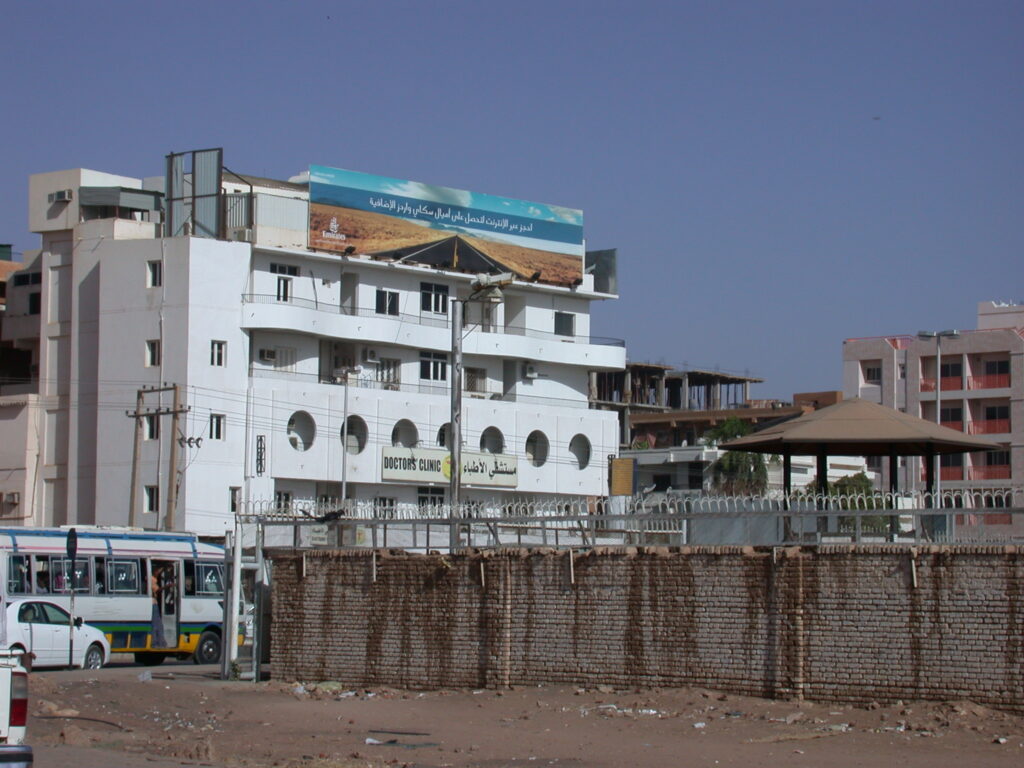
Thanks to Phil for basically saving my life! They looked me over and said they wanted to keep me overnight for observation. I was a bit scared, but Phil was reassuring. The doctor kept returning to whether I had been drinking. Phil says that when he took my blood pressure, he did it on both arms because he wanted to check for tracks on my arms. He probably thought I was an alcoholic or other kind of drug addict, and he prescribed a shot of B vitamins. Was I scared to be admitted to a hospital in Khartoum? Hell, yes! But honestly, the hospital was clean and they used sterile needles. Phil stayed with me until after they did a blood draw and got me situated in my bed. They did have trouble poking me for a shunt for the IV, probably because I was so dehydrated. Shortly thereafter, they started a dextrose IV, which helped immensely by rehydrating me. By late morning on March 15, we received the test results from my stool sample which indicated I had gastroenteritis. This was actually good news! I now knew that I needed to take a round of Cipro antibiotics. So, when Phil came back to the hospital, we checked me out. I paid nearly US$500 for the hospital stay. We went to Phil’s place, which to me was heavenly. I didn’t have to worry about contaminated food or water. He even has airconditioning and safe ice cubes!Here’s a picture from outside Phil’s apartment, a typical city scene, and some of the many water jugs that provide free water to anyone stopping by around Khartoum.
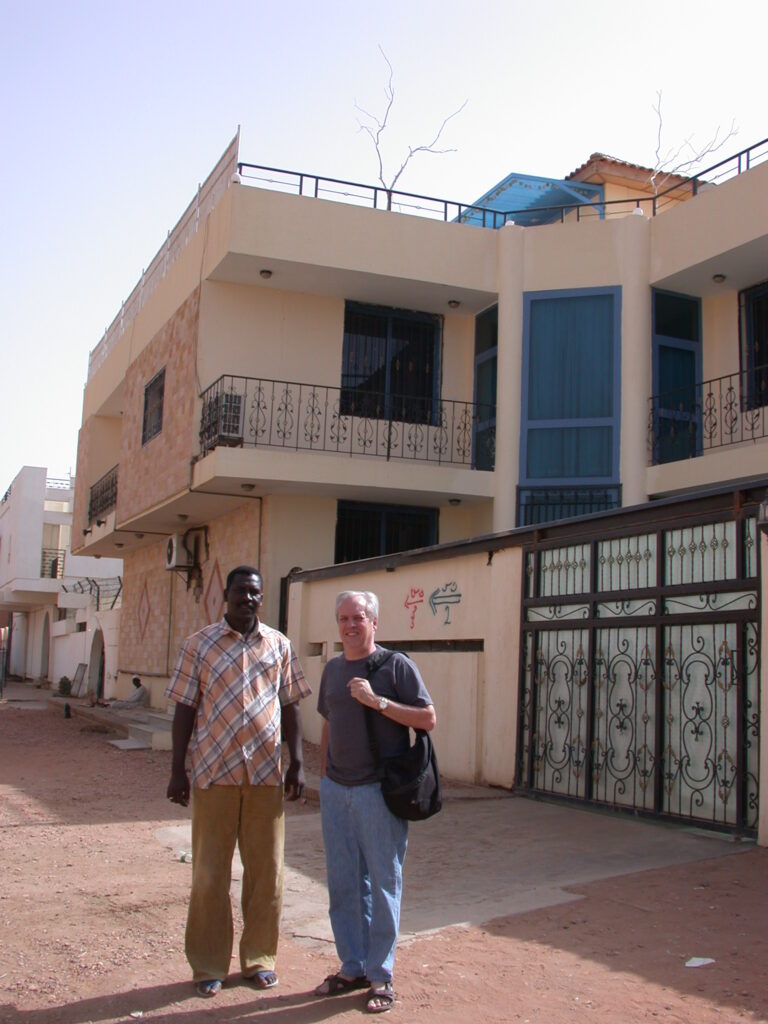
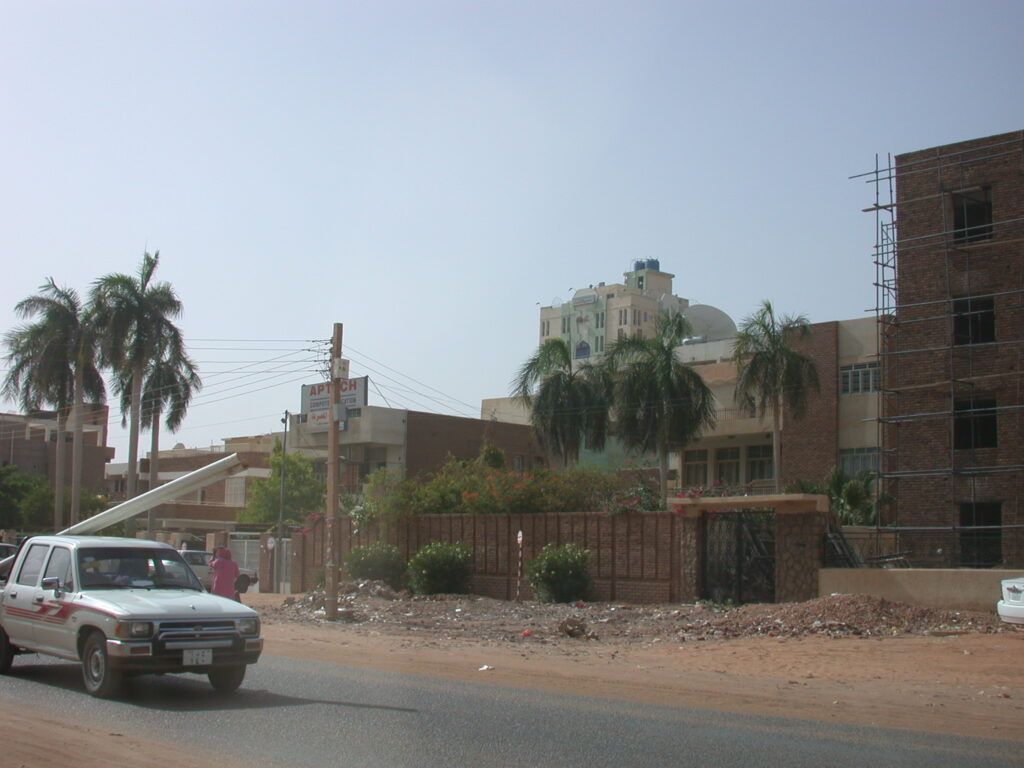
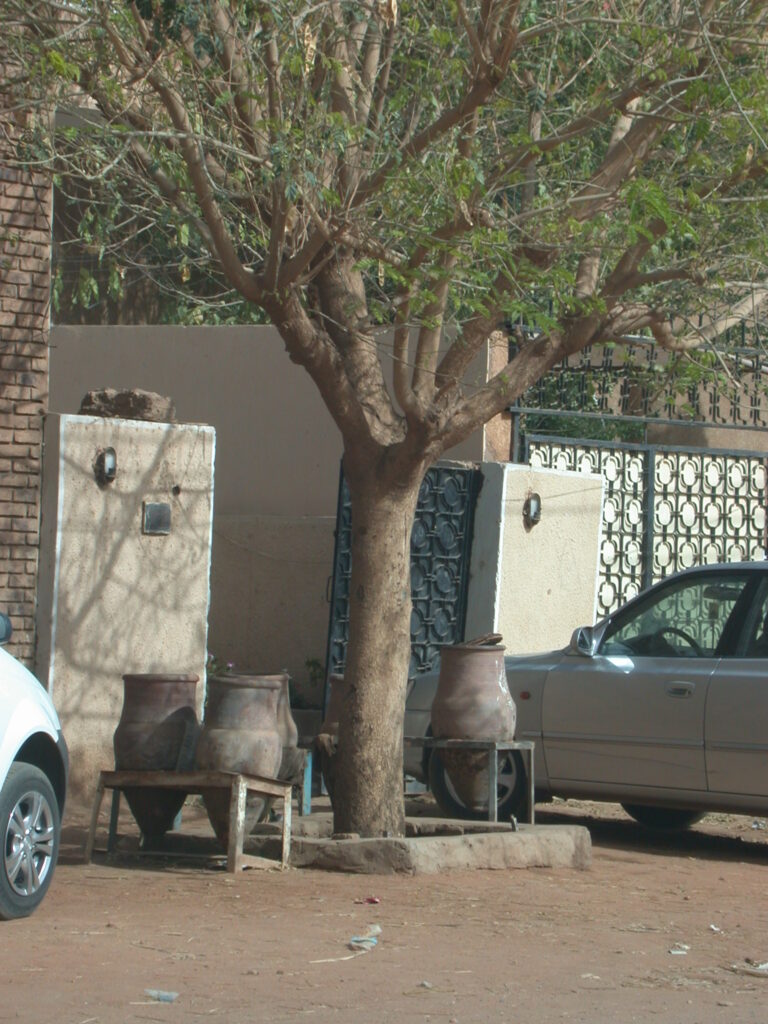
Khartoum boasts some modern buildings along with poverty-striken urban sprawl, mostly from the tens or hundreds of thousands of refugees from the wars in the south and now from the Darfur conflict. Sudan runs primarily under Sharia law, although apparently part of the agreement forged out of peace with the south involves separate justice systems for those who are not under Sharia law. The area by the banks of the Blue Nile, the White Nile, and their confluence in Khartoum, have rich soil and green plants.
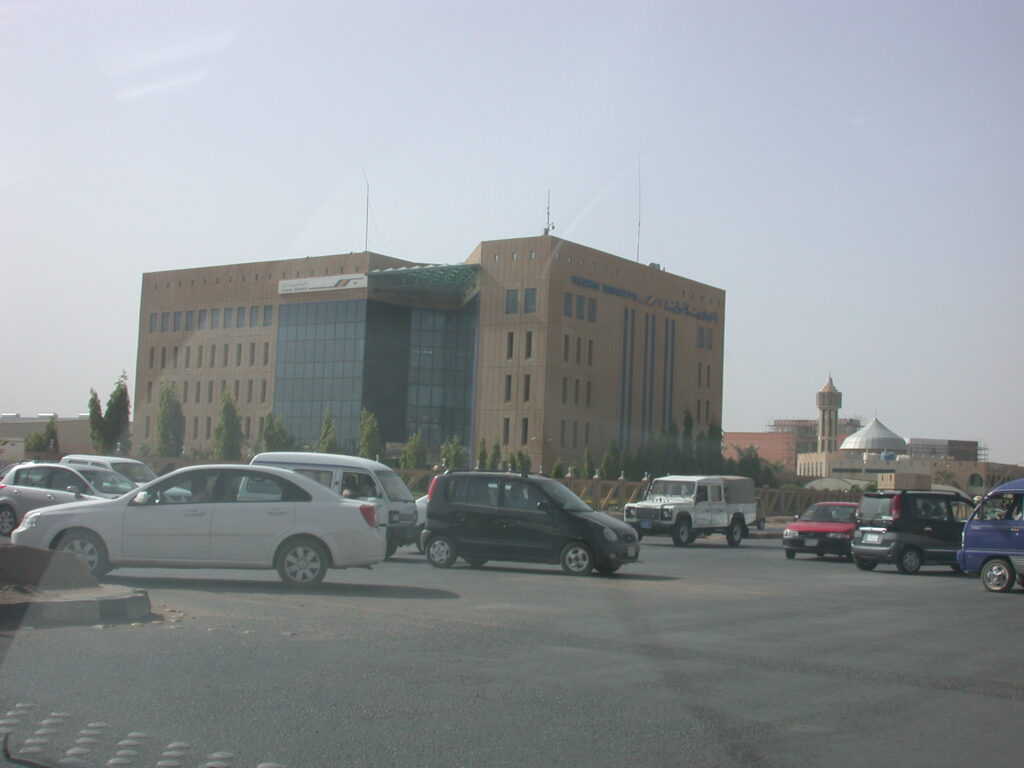
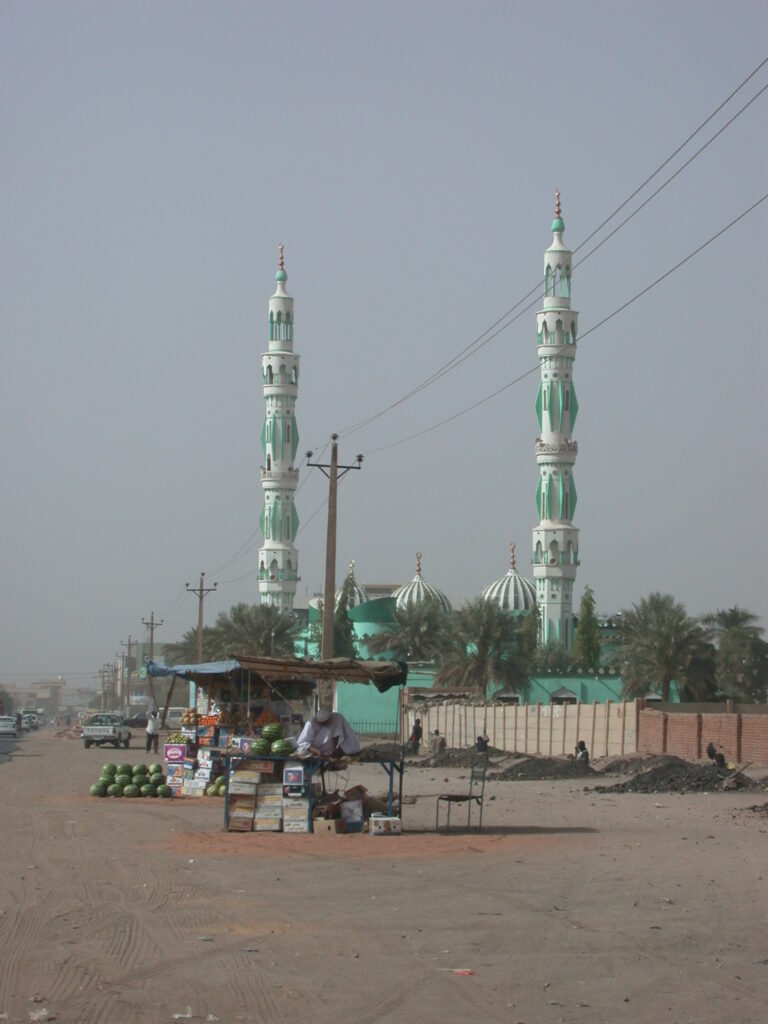
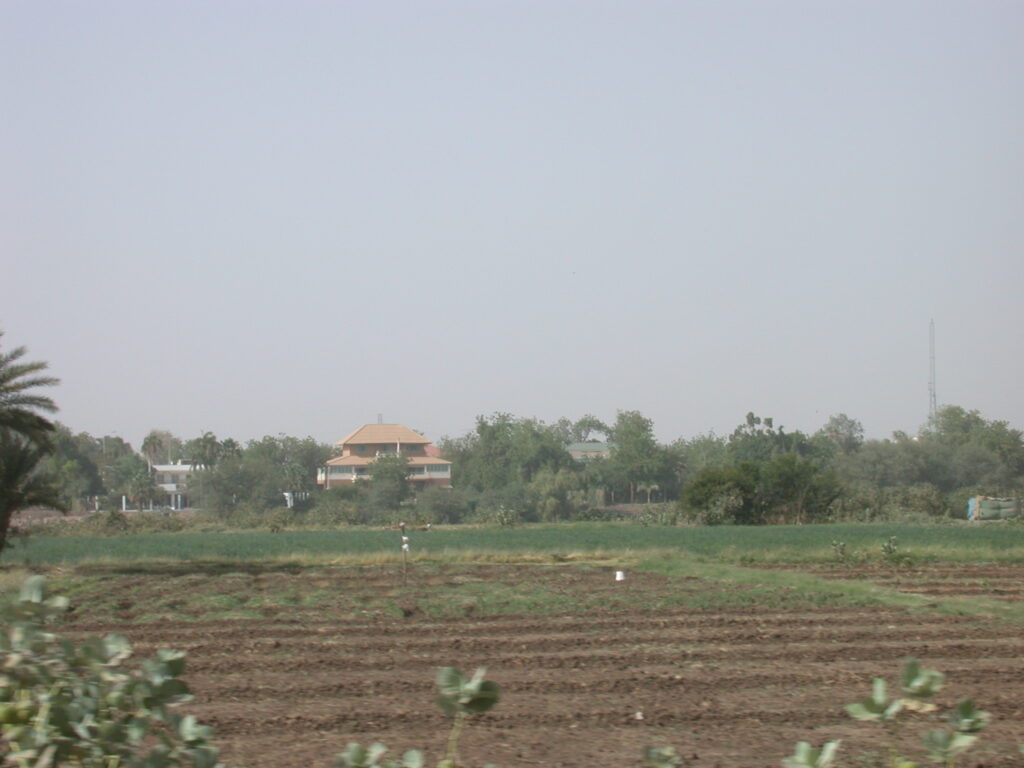
Here is a fancy new egg-shaped hotel, the famous confluence of the Blue Nile from Ethiopia with the White Nile coming from southern Sudan, and the Sudan Parliament building on the Omdurman banks of the Nile.
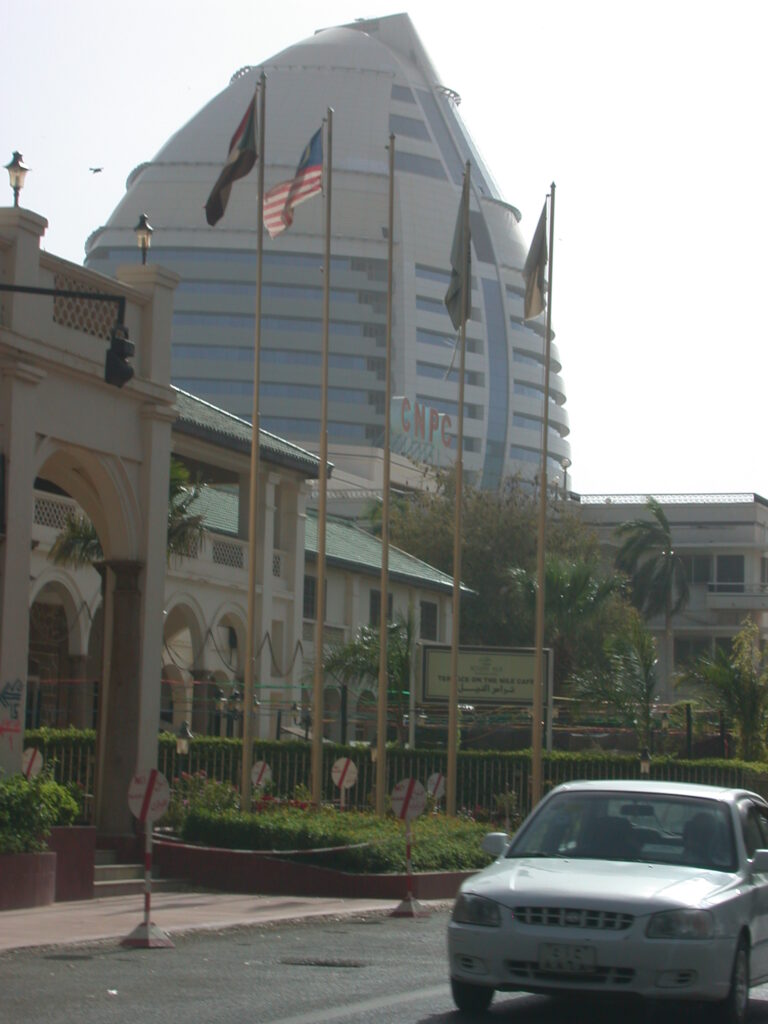
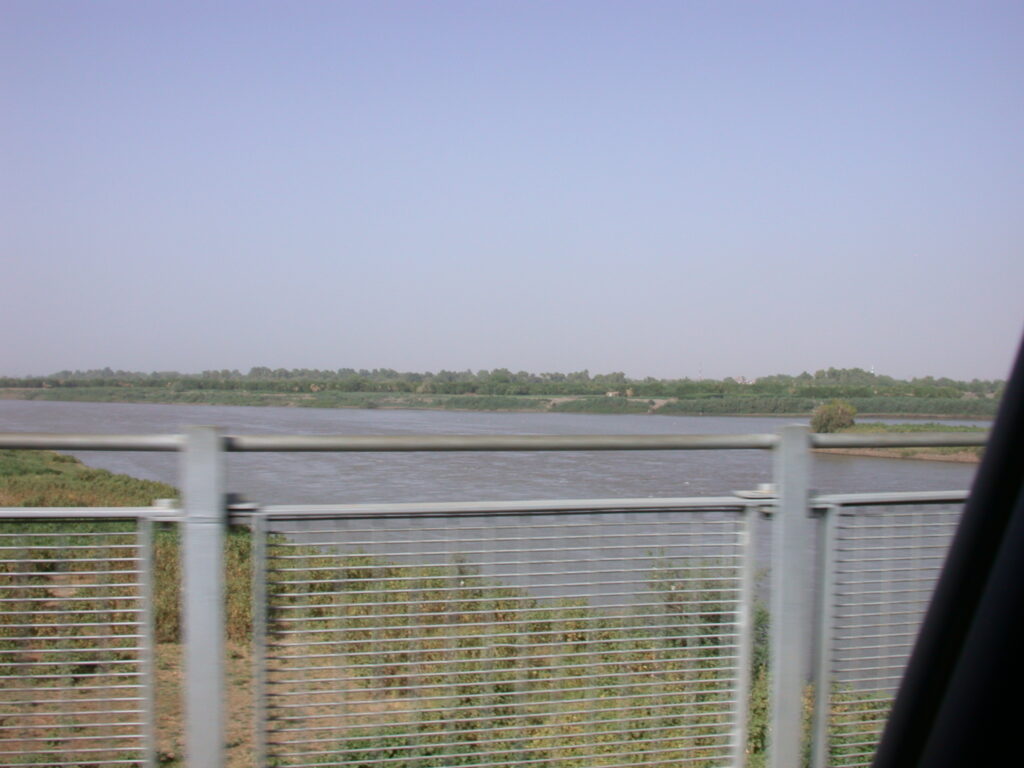
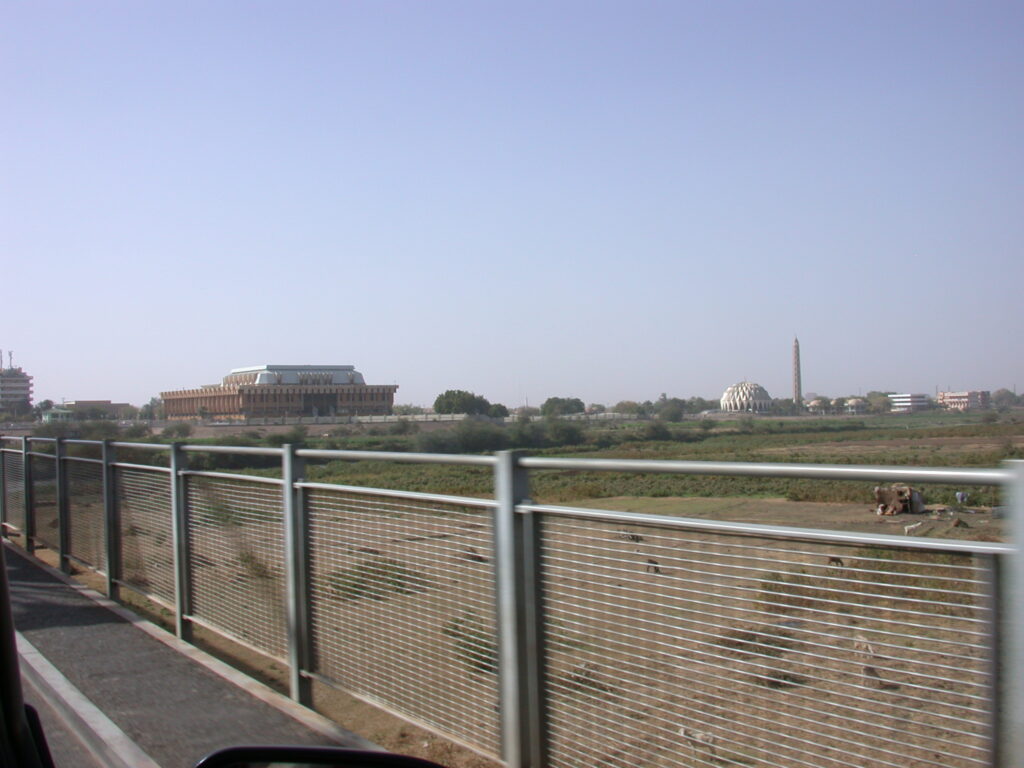
An old mosque in Khartoum and some great views from the Palace Hotel.
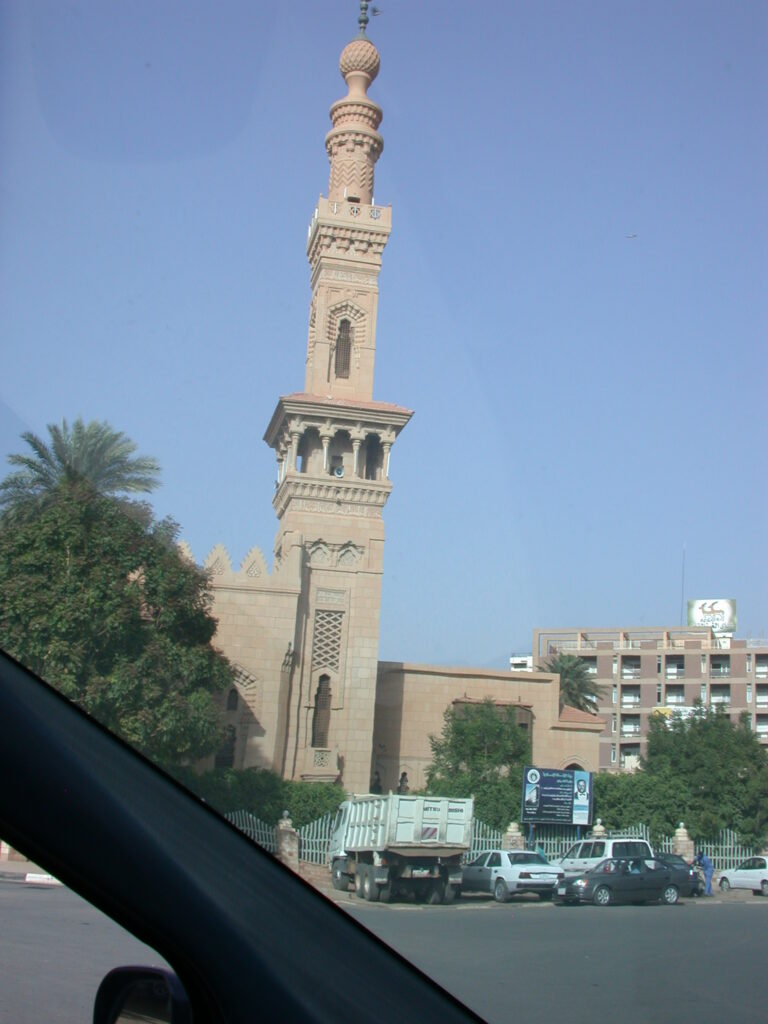
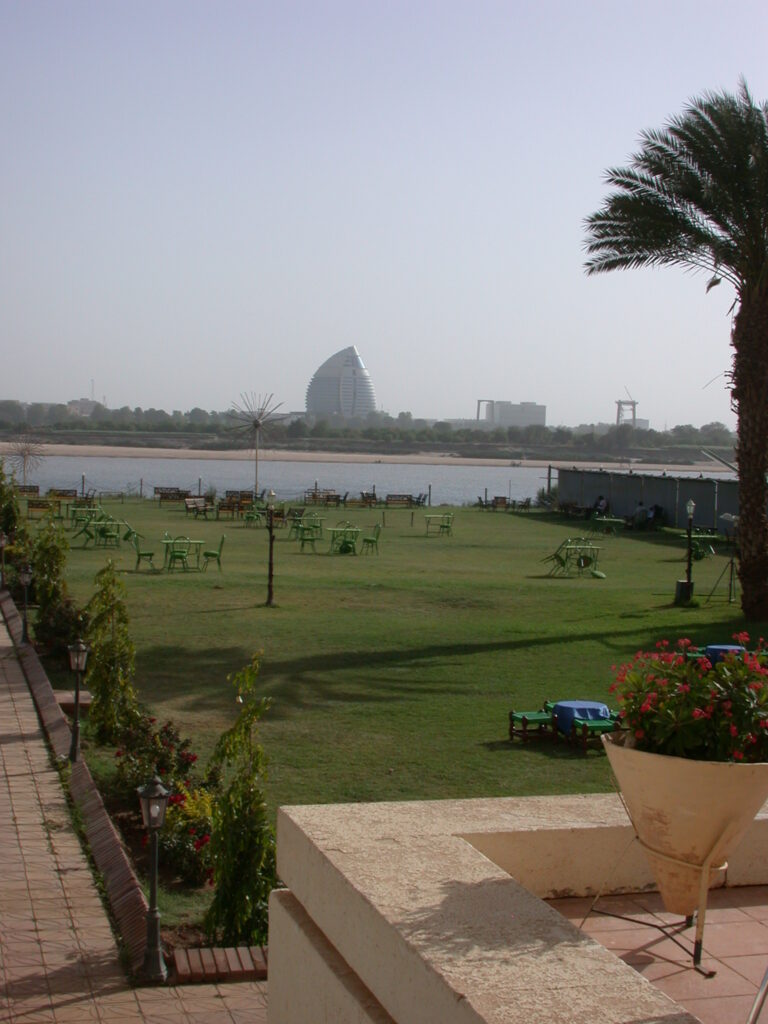
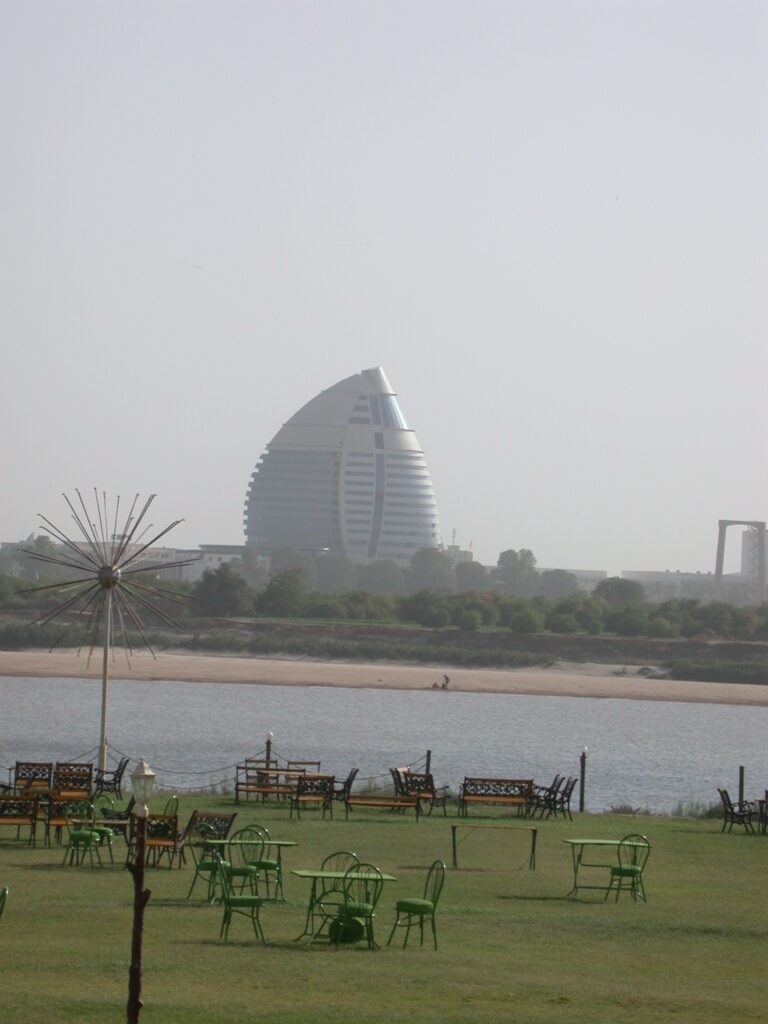
Interesting paintings on a Coptic church, including one of St. George slaying the dragon (also very popular in Ethiopia), plus bridges on the Nile.
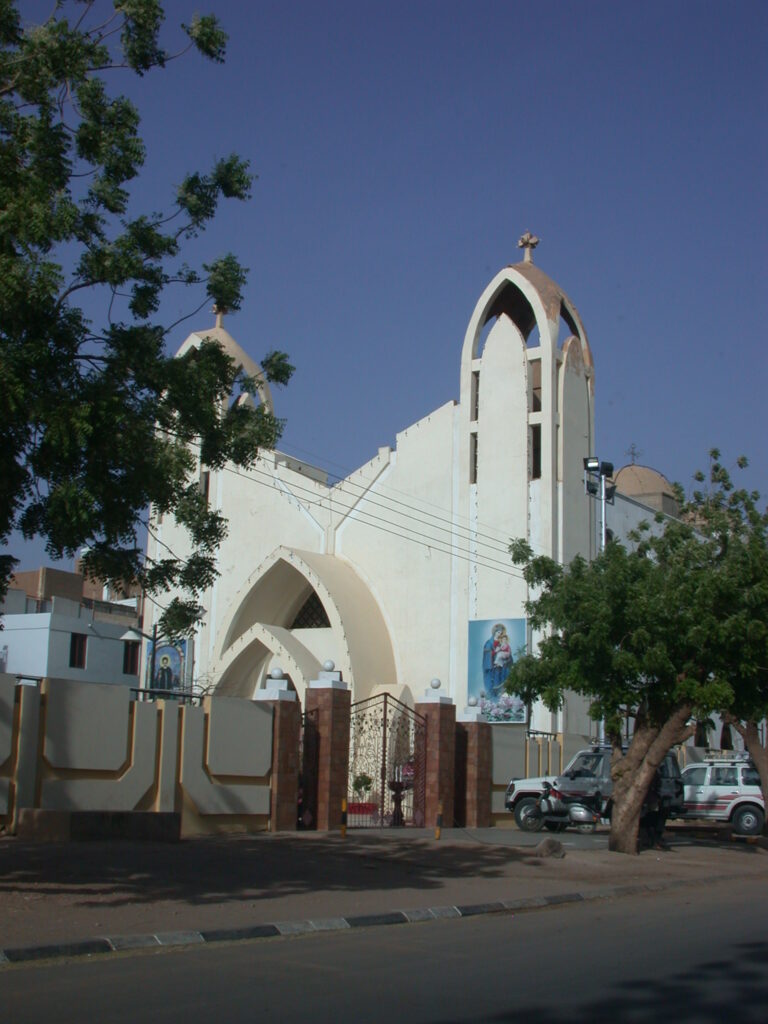
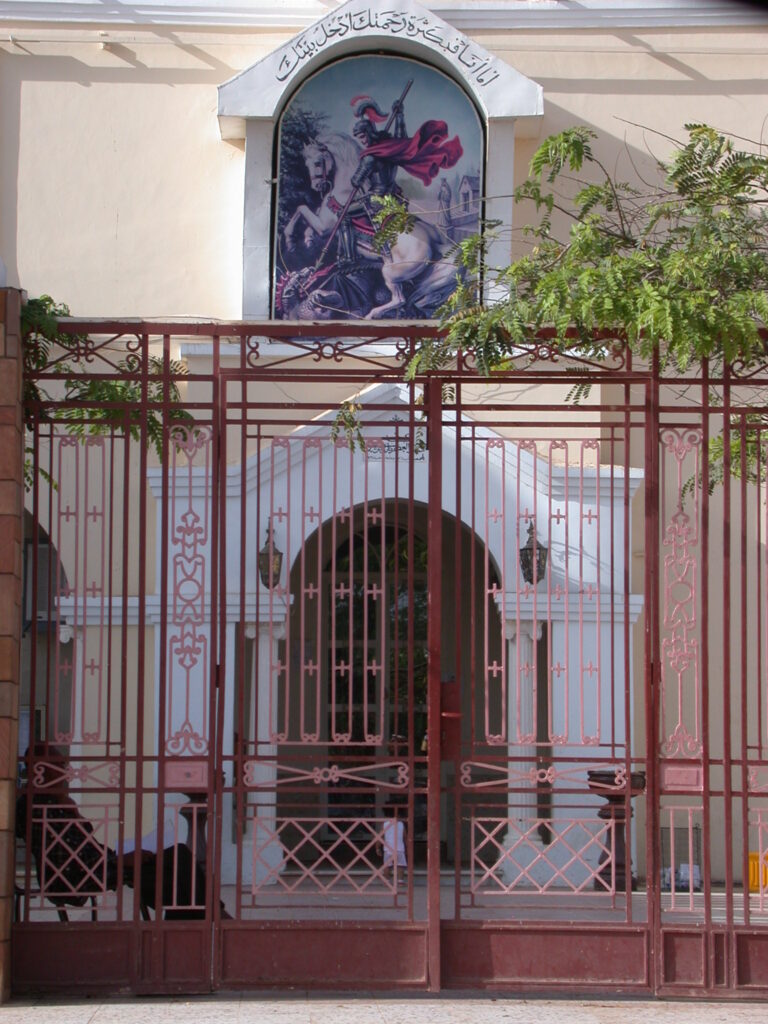
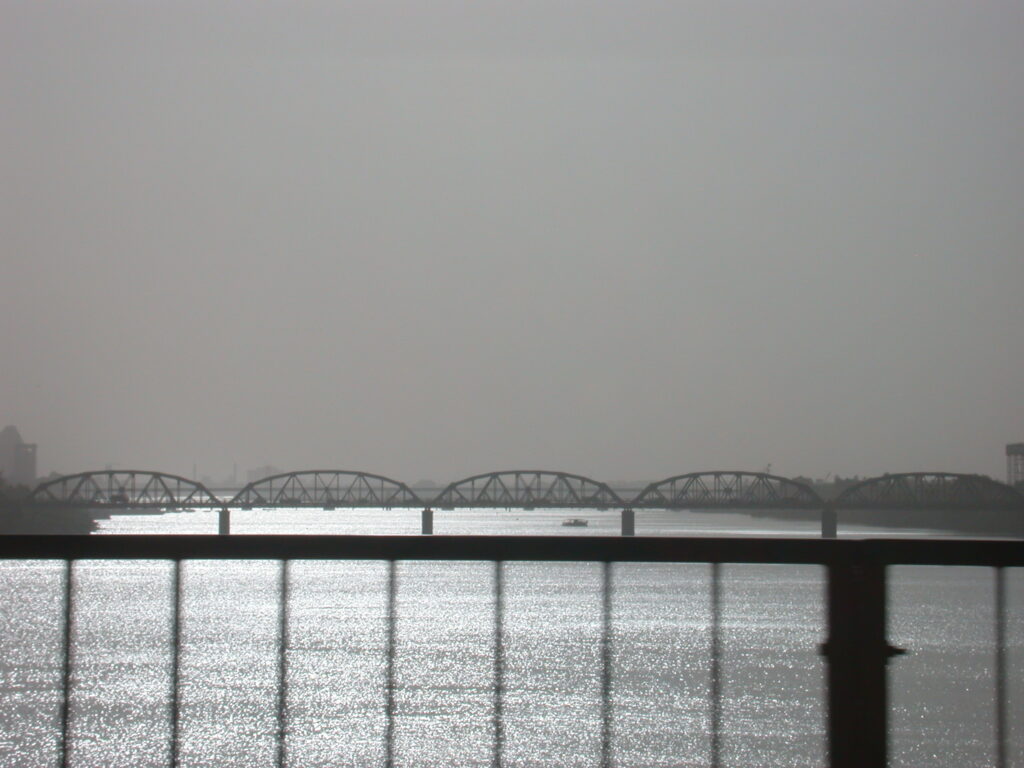
I’ve been relaxing and recovering at Phil’s place in Khartoum until now, March 23. I now feel like a human being again. On March 26, I’m planning to head north in Sudan along the Nile, then to Egypt.
Crossing the Ethiopia-Sudan Border
On March 13, I took the bus from Gonder to Mettama at the Ethiopia-Sudan border. The bus was bumpy, but mostly not as bad as the bus between Gonder and Debark. The terrain on that route was arid and mountainous. As we approached the border, the temperature soared.
I crossed the border with the help of two guys who carted my baggage in wheelbarrows for 1 birr (about 12 cents) each. Before we even crossed the border, two Sudanese guys were bugging me about changing money and stuff. I changed my remaining 50-birr note into Sudanese pounds (or dinars, they are still using both for a few more months until the pounds get fully established). I had to visit an immigration office and a customs office on the Ethiopian side to get my passport stamped. I tried to get a soft drink and use the bathroom while in the immigration office, but the guy working there was not very helpful. Eventually, I figured it all out. I headed across the bridge between Ethiopia and Sudan which most people passed without any border crossing formalities at all. When I arrived on the other side, I had to visit the immigration office, customs office, and a security office, all of which ogled my passport and eventually gave it back. Two out of three offices required a photo to process me through. They did let me postpone my Sudanese registration until I reached Khartoum (three-day time limit for doing so).
By this time, I was pretty much deathly ill. I couldn’t walk with my luggage, so I had to take a little taxi from the customs office to the security office. I then took the taxi across the street to the bus station and argued with the driver about the fare which had been agreed upon at the customs office. He eventually let me go after I threatened for us to ride back to the customs office telling me, “Time is money.” Then, I argued with the guys on the bus to Gedaref about how much that would cost. It was supposed to be US$5. After much haggling, I ended up paying US$10. Once in Gedaref, I knew I could stay in a nice airconditioned hotel, then take an airconditioned bus the rest of the way to Khartoum.
A security post on the route stopped the bus and we all had to get off and get our stuff searched. No problems and we moved on. About 20 minutes into the ride, the bus died. We had to wait in the broiling hot sun for another bus to arrive.
Meanwhile, I was dying. I mean actual near-death experience. I told the other guys on the bus that if I passed out they should pour water on me to revive me. Eventually, the replacement bus came. We all packed in to the new bus and I had to practically force the guys to move my baggage over from the old bus.
While I was moaning and groaning on the remainder of the bus ride, I noticed a young woman seated just behind me. She gave me the most wonderful smile. She was beautiful. I felt better just from that simple connection. I didn’t really chat with her until she had her sister say hello and practice speaking English with me. Later, I got off the bus for a male-only pee break (all the Sudanese guys pissing kneeling on the ground and only me standing up). When I returned, the young woman looked upset, as if her brother on the seat behind her had chewed her out perhaps for talking with me.
Later in the bus ride, I fortunately met an attorney who is a member of a political party that likes the U.S. That meant that he was pleased to help me make a phone call on his mobile phone. I called my friend Phil about 20 minutes before arriving at the “Landport” bus station in Khartoum. Phil figured out where the place was and picked me up in front of a strange-looking mosque near the station. I had to crawl there with my two bags.


